The Bittersweet Seder
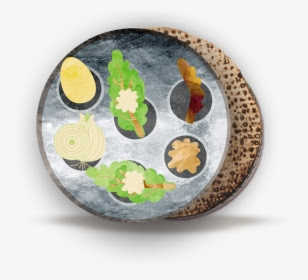
April 11, 2025 | This week is we read Parshat Tzav. Read more about it here.
Can you celebrate Passover even if you don’t feel free? What if the chaos of the world has someone feeling down and squeezed - how can they express joy and freedom at the Seder?
The sounds, smells and tastes of the Seder elicit so many beautiful memories. Early memories of our childhood Seders and inherited memories of slavery and exodus.
The rabbis intentionally crafted the Seder as a multi-sensory experience that engages our senses in an immersive journey of liberation.
But there’s a curious tension at the Seder. On the table in front of us are symbols of both slavery and freedom. The two opposing feelings are vying for our attention.
The Maror reminds us of the bitter times. The salt water of the Jews’ tears. The Charoset symbolizes the cement they had to make.
Alongside those we have Matzah and wine, symbols of faith, liberation and freedom.
In truth, Matzah itself carries this duality. It is the bread that our ancestors made as they were escaping Egypt - a symbol of freedom. But it is also called the “bread of affliction” and a “poor person’s bread” - a symbol of brokenness and slavery.
What should we be feeling on the Seder night? Slavery of freedom? How do the two go together?
The simple answer is that both are part of the story and we are focusing on both the original hardship of slavery and the joy of redemption. Without acknowledginghow challenging the Egyptian slavery was we can’t fully appreciate the Exodus.
But here’s the thing. If that were the case, we should first eat Maror and then Matzah. First relive the pain and then the joy that was born from it.
But the Seder - which means order - has us eating the Matzah of freedom and only then the bitter Maror of exile! Clearly the Maror is a feature of its own and not just to provide contrast for the freedom of Matzah.
I think there’s a very deep message that the Seder is trying to convey: the freedom of Egypt gave us an eternal freedom that can never be taken away from us.
The exodus was not just a moment in history, it shaped history. From that moment on, no matter how bitter or challenging our lives would be, we’d have the tools to remain free.
Jews are no strangers to suffering. We have had our fair share of Maror-moments. But we’ve managed to rise above them and remain committed despite it all.
Victor Frank wrote: “Everything can be taken from a man but one thing: the last of the human freedoms—to choose one’s attitude in any given set of circumstances, to choose one’s own way.”
With a clear inner identity and consciousness, which was gifted to us at the Exodus and our subsequent journey to Sinai, we are forever free.
The Exodus gave us a sense of identity and purpose that can never be robbed from us. People can enslave and oppress our bodies, but our souls are always free.
Maybe this is why we eat the Maror after the Matzah. The Seder night is all about freedom. The Maror is telling us that the freedom of the Matzah extends even in the bitter moments. Even when everything seems tragic and oppressing, we can remain happy and free.
After we eat the Matzah, and feel the freedom of our ancestors, we extend this consciousness to the Maror - telling ourselves that the Passover freedom means that we are free even in moments of bitter challenge.
I hope you have a wonderful and meaningful Seder and may we all experience this unbridled freedom and joy this year.
Shabbat Shalom and Chag Sameach,
Rabbi Menashe Wolf
Your Best Is The Best
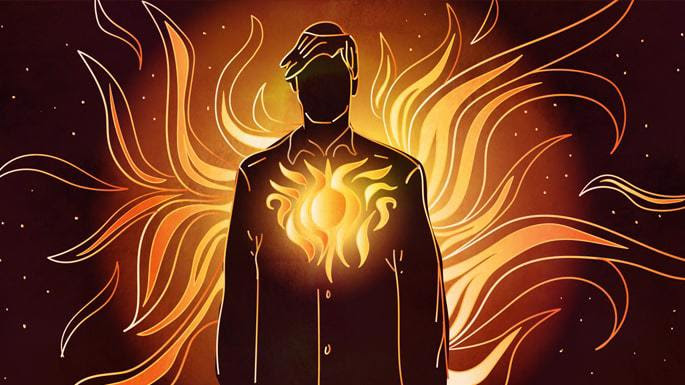
April 4, 2025 | This week is we read Parshat Vayikra. Read more about it here.
This week’s Parshah introduces the role of sacrifices, and details some of the many categories of offerings that the Jews would offer in the Mishkan/Temple. On the surface, the subject matter doesn't seem too inspirational or relevant, but a close look at the reading provides many profound insights and lessons.
One thing that the commentaries pay attention to is the terminology used to describe the person offering the sacrifice. There's one offering in particular that stands out.
The simplest of offerings, the flour-based "meal-offering", is unique in that the Torah uses the word Nefesh - literally, soul - to describe its donor. Rashi, quoting the Talmud (Menachos 104b), explains why: "Who usually donates a flour meal-offering? A poor man [because flour is less expensive than birds or animals]. [Hence,] the Holy One Blessed is He, says: “I account it for him as if he has sacrificed his very soul!”
It may seem measly, but it's often a greater sacrifice for a poor person to give something small than for a wealthy person to give a substantial amount.
But there's more to it than just a numbers game. The poor person feels little pride in the meager offering. If anything, there's a tinge of shame in coming to the holy Temple bearing a bowl of flour, while everyone else struts in with their burly animals. Yet, the pauper puts his misgivings aside and doesn't let his personal feelings of inadequacy hold him back from offering the best he can under the circumstances.
That gift, says the Torah, is one that is full of soul. His small offering conveys a huge heart. The poor person has invested his entire pride and identity into the modest offering. He is not only giving flour, he is giving of himself.
There are areas in all of our lives that we are poor and seemingly insecure. We may want to pray, but not know all the prayers. We may want to contribute but don’t have large financial means. We may want to make a difference in the community but don’t have the time. We may want to grow in our Judaism, but aren’t ready to radically change our lives. We may want to help someone but can’t do anything transformative for them.
Even when we can’t give something that seems objectively generous, we can give our best. And that has tremendous value. G-d doesn’t judge us in comparison to others. We’re judged in comparison to our own potential.
It's not about how much we do, but how much heart and soul we give. It doesn't matter so much the amount we can contribute, but how much of ourselves is invested in the contribution.
Even when it doesn’t seem like a lot, do the best you can. G-d understands that your soul is invested in it, and the people around you will feel it too.
Shabbat Shalom,
Rabbi Menashe Wolf
Happy New Year!?
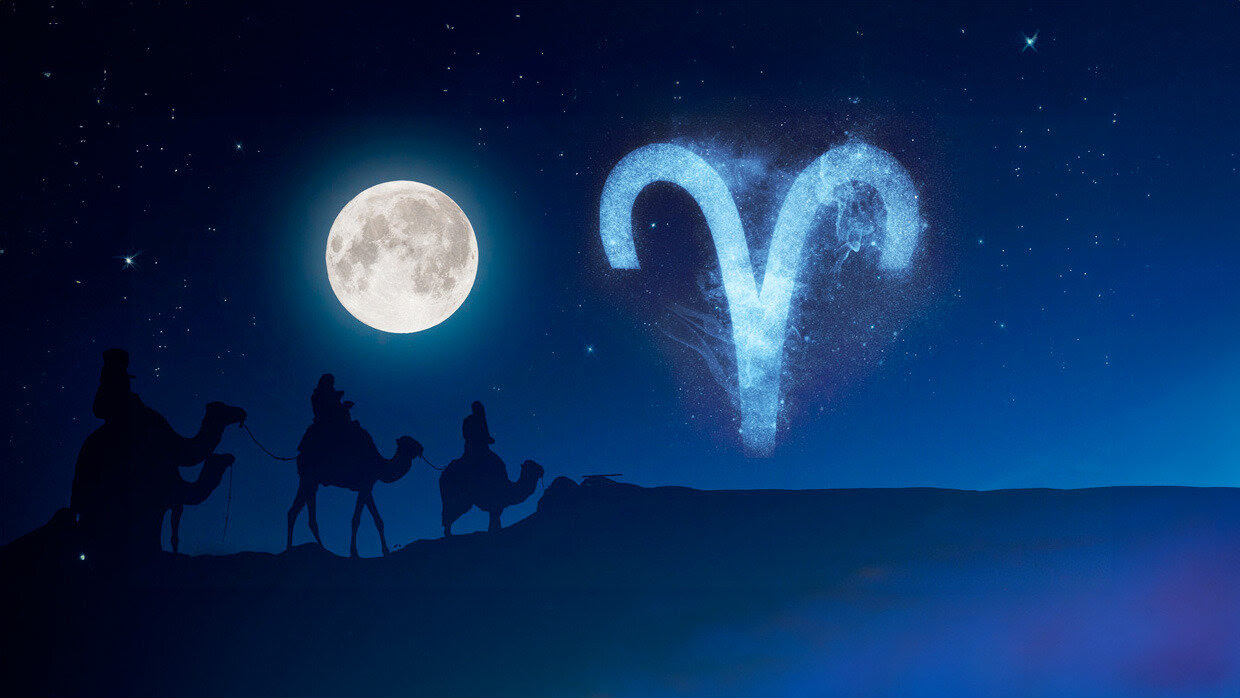
March 28, 2025 | This week is we read Parshat Pekudei. Read more about it here.
Happy New Year!
This Sunday is the 1st of Nissan, the first month of the Jewish calendar. So, technically it’s a new year. Ok, I know what you’re thinking: didn’t we celebrate Rosh Hashanah in October?
It’s a little confusing, but the Jewish calendar has an irregularity. The “first month” is in middle of the year and the “new year” starts in the 7th month. In the Torah months don’t have individual names and are referenced by their order from the Exodus: Nissan is the First Month, Iyar the Second Month etc.
In Jewish tradition, Rosh Hashanah celebrates the anniversary of creation and the beginning of time itself. As such, it begins a universal new year. But the Jewish nation was formed in Nissan, with the Exodus from Egypt. It begins a new cycle of time for Judaism, a particularistic new year.
This was actually the very first Mitzvah that G-d instructed the Jews, even before they left Egypt, and we read it this week in a special Torah reading anticipation of the new month: “This month (Nissan) must be for you the beginning of the months; it must be for you the first of the months of the year.”
While Rosh Hashanah is Judaism’s New Year, the first of Nissan, which is this Sunday, is the New Year for Judaism.
Why is this important? Why do we even need our own New Year? And why was this the first Mitzvah?
There’s something profound here that speaks to the core of Jewish identity. While the universal years are counted from the creation of the natural order of the universe, the Jewish months count time from the moment we were miraculously saved from Egypt. The world is defined by nature, but we are defined by the miraculous. The Talmud actually teaches that the two Hebrew letter “nun”s in the month of Nissan (ניסן) stand for the Hebrew word for miracle, nes. It’s a month of double miracles.
It goes even deeper. The whole notion of a year is a product of the sun’s rotation, while a month is a product of the moon’s cycle. The sun rises and sets like clockwork, representing stability and constancy. The moon waxes and wanes, representing renewal and dynamism.
Years are marked by the creation of nature. Months are marked by the innovation of miracles.
We celebrate Rosh Hashanah and acknowledge the incredible world that we are a part of. But, at the same time, we celebrate our unique identities as Jews in Nissan.
This week we celebrate that the very fabric of our existence is supernatural. Our survival through history is miraculous. Our lives today are sustained by Divine blessings. This isn’t only a reflection on our existence but a call to action.
We are a people that were born of Divine miracles and because that is our very mission, to create a Divine awareness in the world. We are driven by a higher calling. Our purpose is not a product of the world, but a calling to change the world. We are meant to be the miracles that reshape the natural universe in the image of G-d.
Shabbat Shalom and Chodesh Tov (happy new month),
Rabbi Menashe
How Many Jews Does It Take To Build A Home?
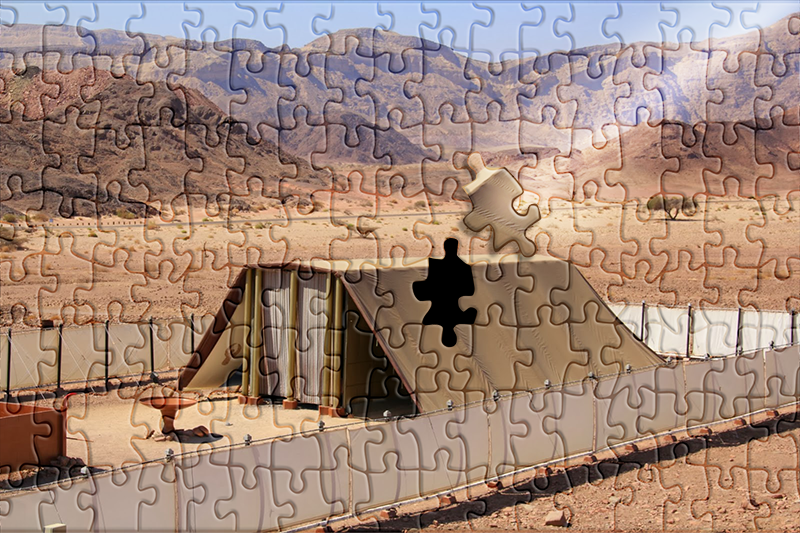
March 21, 2025 | This week is we read Parshat Vayakhel. Read more about it here.
Jews aren't exactly known for being handy. There are more than enough jokes about Jewish husbands to make that abundantly clear. But in this week's Torah portion we read of an impressive building project undertaken by the newly formed Jewish nation in the desert. They put their heads and hands together to build the Mishkan, a portable Temple for G-d.What was unique about this building project is the sheer amount of people involved. Every Jew alive then - estimated to be a few million - was encouraged to participate. The Parsha opens the narrative of the construction with "Vayakhel Moshe" - Moses assembled the entire community of Jews to guide them on the construction.Apparently, Moses hadn't heard of the saying 'too many construction workers spoil the building'. Why didn't they select a group of builders instead of enrolling everyone in the project?The Jews weren't just building any building.They were constructing a sacred space that was going to serve as a source of light for the world. They were creating a portal for the divine. They were making a home for G-d.
To construct a finite edifice that can contain the infinite is no ordinary project. The rules of spiritual home building are different from regular building projects.G-d only rests in a place of harmony. Spirituality can only be found in unity. Inspired living can only be achieved in an inclusive environment.For the physical Mishkan - and later, the Temple in Jerusalem - to be a home for G-d, Moses needed the support of everyone in the community. The slightest hint of exclusivity would have ruined the entire project.If one Jew - no matter their age, gender, wisdom or skill - would have been left out of the project, the physical Mishkan structure may have been built, but it would not have housed G-d. It would be a beautiful home, but a vacant one.
To succceed in our mission to bring G-d into our lives and the world, we need to be united and we need every person’s contribution. There’s no such thing as a big Jew or small Jew, important Jew or irrelevant Jew - every single Jew matters to the collective nation. We all have to do our part to make our lives and environment a welcoming space for G-d.
When we pur our forces together and all work in harmony on this project, we will successfully make our world into a home for G-d, which is the Messianic vision of our prophets.
In the words of Maimonides, our efforts will acheive an era when “there will be neither famine or war, envy or competition for good will flow in abundance and all the delights will be freely available as dust. The occupation of the entire world will be solely to know G-d.”
Shabbat Shalom,
Rabbi Menashe
When Judaism Was Reborn
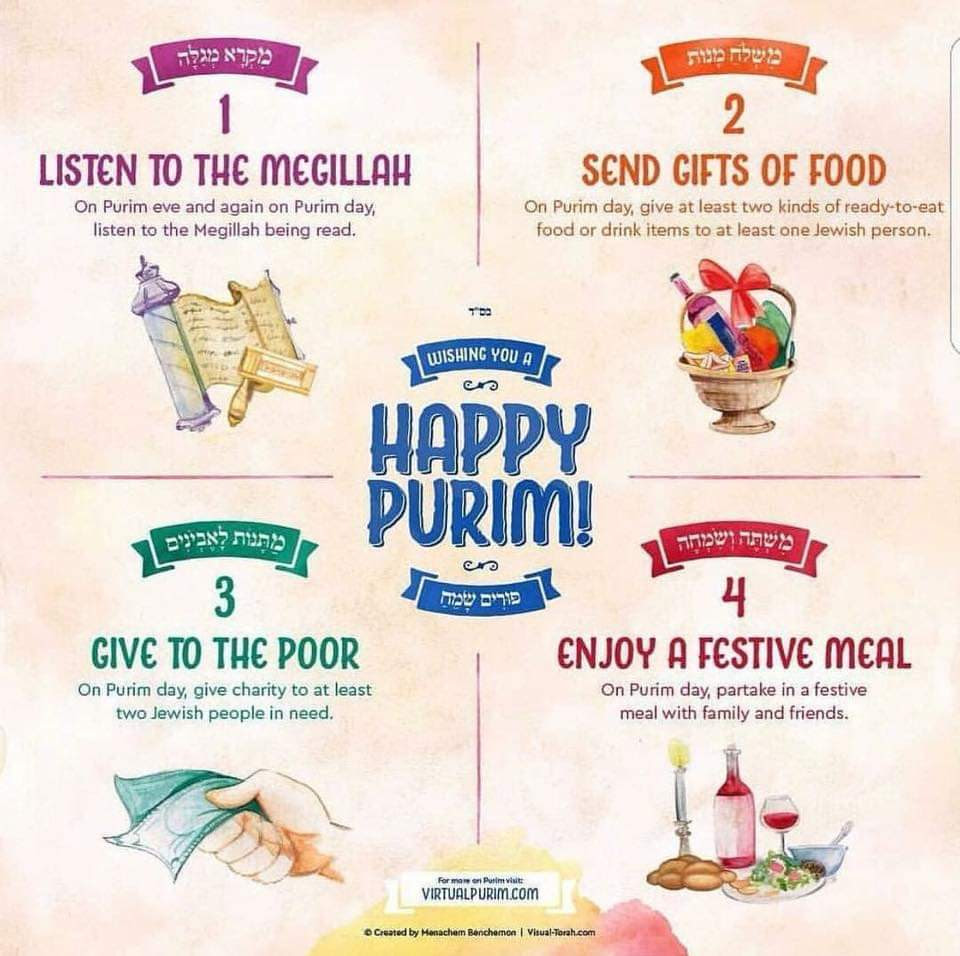
March 14, 2025 | This week is we read Parshat Ki Tisa. Read more about it here.
The Talmud shares something radical about Purim. It was only during the Purim story that the Jews finally accepted the Torah. In other words, Judaism became cemented at Purim.
Why then? Didn’t we get the Torah at Sinai and become the Jewish nation a thousand years before Purim?
When the Jews received the Torah at Sinai, they didn’t really have a choice. G-d had showered them with such kindness - he took them out of Egypt with miraculous plagues, he split the sea for them - that they almost couldn’t say no. Their acceptance of Torah wasn’t complete since it didn’t come entirely through their independent choice. It was a privelege to be a Jew - of course they’d want to belong to G-d’s nation.
Purim was the first time in history that the Jews were oppressed for being Jewish. They were threatened with annihalation, not for the conquest of land or over a fortune of money, but for the simple crime of being Jews.
Here, for the first time, being Jewish came with a high price. It was difficult to identify as a Jew and it meant risking your life. They faced senseless antisemitism.
But the Jews in the Purim story didn’t back down from their unique identity. They didn’t try to assimilate or disavow their heritage. Quite the opposite! They gathered in prayer and study. They doubled down in their Judaism. They pledged allegiance to G-d under the most challenging conditions.
They say that people are like teabags - you don’t know how strong they are until you put them in hot water. The Jews were put in hot water and proved their strength of faith.
At that moment, they cemented their collective acceptance of Torah. Judaism was no longer something that was forced on them, so to speak, but something they chose. The Jews took ownership for their Jewish identities and Judaism. In doing so, they shifted their relationship with Judaism forever. In the Purim story, Judaism was reborn.
Today, unfortunately, this message resonates. For a long time, we had it easy being Jewish in the modern world. We were accepted and respected. But things have shifted a little. Now, nearly every day there’s a story of Jews being discriminated against and called out with bias. To be a Jew openly today in certain circles is an act of resistance and defiance.
But this is exactly when it’s most important to stand strong and choose to be a loud and proud Jews. This is our Purim moment. When we show ourselves and the world that we will not back down from our heritage. When our Judaism is challenged, we’ll grow stronger. We’ll be more Jewish.
For a long time, Judaism was something we kept because there was no real reason not to. This is our moment to keep it because it means something to us. This is our moment to choose it.
Happy Purim and Shabbat Shalom,
Rabbi Menashe
P.S. There are 4 Mitzvahs we do today to celebrate Purim: 1) Give gifts of food to a friend 2) Give charity to to the poor 3) Have a Purim feast 4) Hear the Megillah
Why Haman Hated Jews
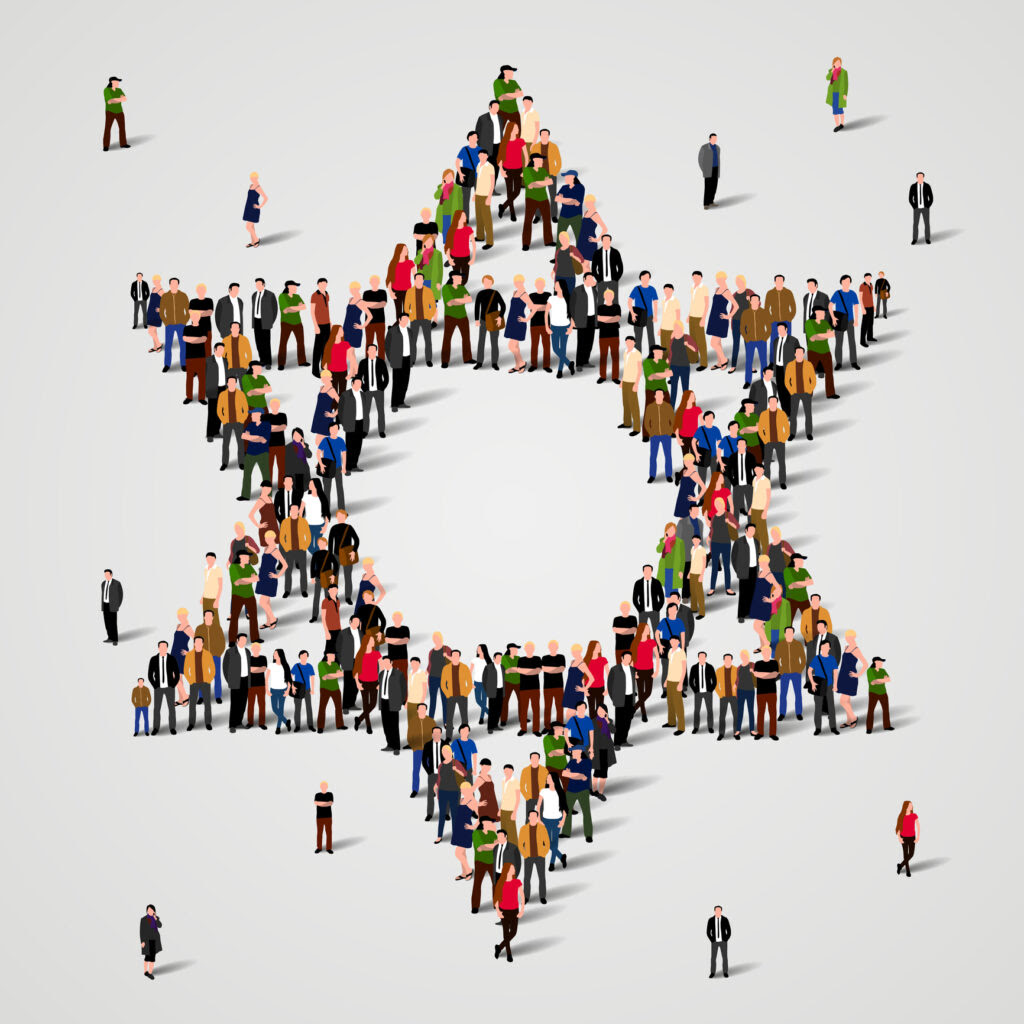
March 7, 2025 | This week is we read Parshat Tetzaveh. Read more about it here.
One of the things antisemites hate about us is our shared sense of identity. They can’t tolerate that Jews stand up for other Jews, sacrifice to help each other, and feel a sense of brotherhood for one another.
It’s unthinkable to them that a Jew living in New York would have feelings for Jews in Israel that they’ve never met. In their minds, our care for each other must be part of some nefarious scheme that we are plotting together.
They fail to understand our shared sense of Jewish identity, encapsulated in the Talmudic dictum: kol yisrael areivim zeh lazeh - all Jews are responsible for each other. It isn’t just an ancient statement - it’s visceral, and we feel it with every fiber of our being. Wherever you may be in the world, if you meet another Jew, you immediately feel a kinship and trust. You may never have met them, but they are your brother or sister.
This coming Thursday night and Friday is Purim, the joyous celebration of Jewish survival from the threat of the genocidal antisemite, Haman (I hope you can join us to celebrate). He also practiced this brand of antisemitism.
When Haman petitioned King Ahasuerus to sign on to his planned genocide, he told him (Esther 3:8):
“There is a one people, scattered and separate among the peoples throughout all the provinces of your kingdom, and their laws differ from [those of] every people…””
A simple reading of this verse tells a story of plain antisemitism - the Jews are different and therefore we should hate and attack them. But the Rebbe once offered an alternative reading of the verse that gives a more precise idea of what really bothered Haman:
“There is a people who are one, a unified group, despite being scattered and separate among the peoples throughout all the provinces of your kingdom. They keep this identity through practicing laws that are different from those of other people….”
Haman was enraged by the Jewish unity. He felt threatened by the deep and authentic bonds that tie us together as Jews.
The Jews’ response to Haman’s edict was not to downplay our Jewish unity, but to strengthen it. Led by Mordechai, Jews gathered in record numbers. Esther, who was out of harm’s way in the safety of the palace, didn’t neglect her brethren in their time of need. Instead, she risked her own life to stand with her people and petition for their safety.
Our haters may lose sleep over it, but for us, our unity is our superpower. Our care for each other that crosses all divides - political, social, geographic etc. - is what holds our people together and has ensured our survival. Every Jew, no matter how different or distant they may be, is family.
There are two Torah portions that we read this week, and both highlight this idea too.
Parshat Tetzaveh - the portion of the week is the only one that doesn’t mention Moses by name from the time we’re introduced to him. This omission is glaring and the commentaries have suggested a few theories to explain it. One beautiful interpretation: in next week’s reading, when the Jews worship the Golden Calf, G-d wants to punish them severely and Moses put his neck out for them, risking his reputation (Exodus 32:32): “And now, if You forgive their sin, good. But if not, erase me now from Your book, which You have written.”
G-d did end up forgiving the Jews, but Moses’ condition still had to be upheld in some respect. To represent his willingness to be erased from the Torah, his name doesn’t appear in our Parsha.
Think for a moment which Jews Moses was sacrificing everything for? The ones who had undermined him. The rebellious ones who had created a false G-d just weeks after Sinai. His message is loud and powerful: Every Jew is family. Every Jew matters.
Parshat Zachor - In anticipation of Purim, we add a portion this week about our evil archnemesis, Amalek, who was the ancestor of the Purim villain, Haman (this is the only Torah reading of the year that is Biblically mandated). We read about the nation of Amalek attacking the Jews on their way out of Egypt. With G-d’s miraculous help, the Jews defended themselves and overcame Amalek, but the senseless hate that Amalek displayed led to the Mitzvah to forever remember what they did and wipe our any memory of their nation.
A close reading of the story shows something fascinating. The Jews were protected in the desert by a Divine cloud that surrounded them. There was no way for an enemy to approach them. The only people Amalek could attack were those Jews who were outside the cloud - the ones that had separated themselves from the Jewish community. Here’s the verse":
You must remember what Amalek did to you when you were traveling after you left Egypt—how, on the way, it attacked you by surprise, and mutilated all the weak ones at your rear. You were faint from thirst and weary, and did not fear God [while simply these final words refer to Amalek, some commentaries apply it to the Jews who were attacked].
It was the stragglers, those who were “outside the tent” that Amalek attacked. And it was those people that the entire Jewish nation mobilized themselves for. For their sake, Amalek is forever etched into our consciousness.
As we confront an increasingly hostile world, let’s hold focus on what really makes us special and strengthen our love and concern for each other. The best way to confront antisemitism is not through anti-antisemitism, it’s through semitism. Instead of using all of our resources to shout down those that hate us, we should invest in our Jewish strength, our unity.
Shabbat Shalom,
Rabbi Menashe
The Day After Plan
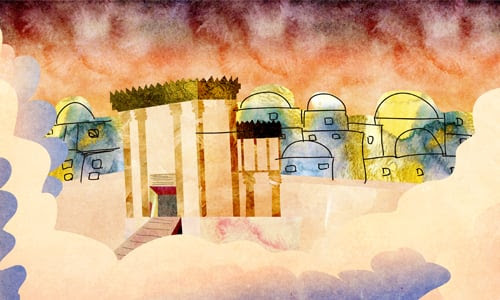
February 28, 2025 | This week is we read Parshat Terumah. Read more about it here.
In the war in Gaza, there’s been a lot of rhetoric about the “day after plan” or the seeming lack thereof. We all recognize that as important as it is to defeat Hamas and eradicate the evil and terror, there has to be a vision for what comes next. Otherwise, the fighting may be for nothing.
We can read opinion peices and get into heated conversations about Israel’s day after plan, but most of us don’t really have influence there.
But it has had me thinking about the broader “day after plan.” We spend our lives working to be better people and make the world a better place. We battle with negative influences and invest so much energy into educating our kids and creating a better society. In one way or another, we fight for values, stand up for all kinds of rights, and protest injustice.
But what is our end game? It’s easy to fight against evil, but can we envision the reality we are fighting for? What does success look like? Do we have a day after plan?
Today, I, and hundreds of thousands of others, completed a yearly cycle of study of Maimonides’ work of Jewish law. The final chapter of the 14-book work details the Jewish messianic vision, and the final passage provides a visualization of Judaism’s “day after plan”:
In that era, there will be neither famine or war, envy or competition for good will flow in abundance and all the delights will be freely available as dust. The occupation of the entire world will be solely to know God.
Therefore, the Jews will be great sages and know the hidden matters, grasping the knowledge of their Creator according to the full extent of human potential, as Isaiah 11:9 states: "The world will be filled with the knowledge of God as the waters cover the ocean bed."
(Mishneh Torah, Laws of Kings 12:5)
The closing words of the 1000 chapters of Jewish law is the bottom line of everything we are striving for and working towards: a world of peace and harmony, where everyone gets along, and recognizes our ultimate Divine purpose. A world where G-d is apparent and real. A time when we are dedicated to a spiritual calling.
Moshiach is not a radical religious idea or controversial word. It does not belong to the Christians or the Ultra Orthodox. It is everything we are working for. All of Judaism is leading towards it. It is meant to be our day after plan.
This is a tall order and ambitious plan. But it’s our destiny. Our prophets foresaw it. Our rabbis envisioned it. Our entire lives are working towards it. At Sinai, G-d gave us the tools to accomplish it. This is what all of our Mitzvot and efforts are acheiving. It’s the trajectory of our entire history. And, I believe, we are closer to it than ever before.
This week we begin a long narrative (stretching 5 parshahs!) about the construction of the Mishkan, the portable Temple that the Jews build in the desert. In painstaking detail, we learn the precise measurements and materials that G-d wanted to be used in the construction of the Mishkan.The amount of attention this building gets in the Torah text is astounding. In the usually concise text, hundreds of verses are dedicated to the construction - compare this to the narrative of Creation which only gets 34 verses of airtime. And it is all about an ancient building that has been out of service for thousands of years and was only ever supposed to be temporary for that time period.
Apparently, the Mishkan is pretty important to our Jewish mission. It was the first major directive given to the Jews after the revelation at Sinai, and the Mishkan was meant to be a symbol of the realization of the vision at Sinai.
The home described in this week's reading took the form of a physical structure in a specific place, but it is symbolic of the broader Temple that we are tasked to build: making space for G-d in our lives and our society. The ancient Mishkan building was a microcosm of what we are tasked in acheiving in the world at large.
The message that G-d is sending with the drawn out Mishkan narrative is that building a home for the Divine is possible. We can create a society that is in sync with its purpose and with the Divine values we hold so dear. If the Jews could use their resources to create a physical space that housed the Divine, we can extrapolate that to the world at large. The small project of the Jews was a big project for mankind.
May we see the success of our efforts very soon and witness the era of Moshiach and the day after plan of a redeemed world.
Shabbat Shalom,
Rabbi Menashe
Life Shouldn’t Go On, But It Must

February 21, 2025 | This week is we read Parshat Mishpatim. Read more about it here.
As I sit to write my message, my mind is numb.
The last 24 hours have been excruciating for the Jewish people.
It has been a show of pure evil. And it’s nothing new and only a tip of the iceberg. 38 children suffered the same fate as Ariel and Kfir on October 7 and another 116 were orphaned. But it’s another punch in the gut and it reopens the thousands of holes in our hearts. And it’s a stark reminder of the world’s indifference to the fate of our brothers and sisters in Israel.
What can I write that can make sense of any of this? No words can do justice. No commentary can explain it. How can I write anything? How can I not write anything?
Something I keep having to remind myself is that the aim of the terrorists is to crush our spirit. They want us to feel anger and devastation. Their only hope is to break our hearts and weaken our resolve.
I watched an interview (in Hebrew) this week with the daughter of Keith Siegel, a hostage who was released 3 weeks ago, that moved me. She recounted that in the darkest place of the tunnels of Gaza, her father felt lost and alone and needed something to anchor himself. He started saying small prayers like Shema, making blessings on food (things he never did before). This helped him feel rooted and connected to his people and himself and gave him strength.
When he was freed and arrived back in Israel, his family, who had been imagining and planning his first Shabbat dinner back home for 500 days, asked what special dish he wanted on the menu. His response surprised them: “More than anything else, I want a Kippah and Kiddush cup.”
Keith’s profound response to the darkness and depravity that surrounded him was to anchor himself in his Judaism and find strength in our heritage.
It's precisely at these moments that we have to dig within and remember who we are and our story. We can’t let our enemies define us or control our narrative. We have a rich heritage and history. We have a robust and strong community. We have a unique role in society. We’ve been through the worst oppression but we never lost hope or sight of our collective identity and mission. As hard as it is, we have to stand taller than before with even greater Jewish resolve.
It’s a very difficult moment. But we need to lean on each other, support each other, and keep our Jewish heads up. The grief is overwhelming, but we can, and have to, find strength and courage in our Jewish faith.
This week we read the 18th Parsha. Its a parsha of chai (which had the numeric value of 18), life. What is significant about this Parsha that it projects life?
Last week we read the 10 commandments. We read about the incredible earth-shattering experience of Sinai and the Divine revelation to the Jewish nation. If anything that should be designated as the lifeline of the Jewish people.
In tomorrow’s portion, the narrative takes a major turn and we read a long list of civil laws. We read how to respond to theft and murder. What to do if someone loses someone else’s belongings. Who is responsible for damages.
This is, at best, anticlimactic. After hundreds of years of slavery, the Jews are finally liberated and inducted into a divine covenant, and we’d expect lessons of enlightenment and spiritual growth. Instead, we get mundane guidance of how to deal with life’s messiness. Instead of tales of human perfection, we are reminded of society’s flaws.
This is doubly confusing, considering that many of these situations wouldn’t have been relevant to the Jews who were living on Manna in the desert.
Perhaps this is exactly the message that Torah is conveying. Life isn't going to be ideal and we're going to have to struggle to maintain our peoplehood, our morals and our faith. But that is where Judaism begins, not ends. When the going gets tough, the tough get going.
The giving of the Torah, in last week’s parsha, was a temporary projection of an ideal reality. It was a perfect moment of Divine embrace. But it didn’t reflect the lived experience of the Jews. It was a momentary bliss, but not reflective of real life.
The first lesson the Jews would learn after experiencing the revelation is that Torah is really about applying Divine wisdom to deal with the ugliness of reality. It guides us on real world issues. Torah is not a path to escape into G-d’s serene reality, but to imprint His vision onto ours.
Judaism is not about chasing an ideal as much as it is about navigating the imperfect. It isn’t a path of eternal bliss but a guide to responding to the chaos.
This has been the secret to Jewish survival. To be a Jew is not to delude ourselves that evil doesn't exist. It is to have the strength to stand up to it.
We often define our history as a long chain of persecution and oppression. But that is only half the story. It is a long chain of responding to oppression with determination, faith, grit and resolve. Each time we were knocked down, we got back up again.
The world is a mess but our commitment to each other and to our heritage and faith give us the tools to stand strong in the face of human imperfection and evil. Ours is not a light that is afraid of being extinguished by darkness, but a light that illuminates the dark.
In this moment, we have to push ourselves to lean into our own faith and story and respond to the evil with added Jewish resolve. We can’t change what has happened but we can choose how we go forward.
Let’s respond with life. That is the Jewish way.
Let’s not back down from our moral and spiritual convictions. Let's not give up the fight.
We can’t bring back the lives we tragically lost, but we can do an extra mitzvah for them. We can’t physically return the hostages ourselves, but we can say an extra prayer for them. We can’t undo the pain we’re all feeling, but we can find some comfort by connecting more deeply with our Jewish community. We can’t instantly erase Hamas and its supporters from the face of the Earth, but G-d can. Let's pray and hope for the Messianic era when all pain and evil will be eradicated from the world.
We hold on to hope for Shiri’s return. Oded, Ariel and Kfir, we will never forget you and will not let your deaths be for naught. May your memories be blessed. May your memories be a blessing.
Am Yisrael Chai.
Shabbat Shalom,
Rabbi Menashe
The 3 Letter G-word
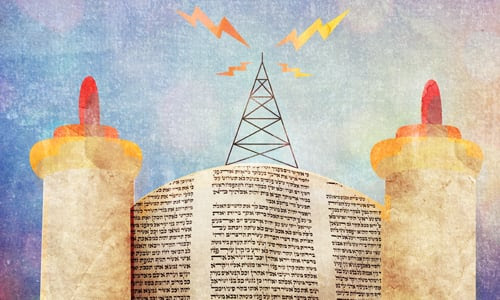
February 14, 2025 | This week is we read Parshat Yitro. Read more about it here.
We live in an age when everyone can be an expert and we don’t blindly trust authority.
Before going to a doctor we google our symptoms to self-diagnose. And after seeing a doctor, we don’t take their word blindly, but investigate it ourselves afterwards.
When we hear something on the news or see it on social media, we quickly search around to verify the information.
Investigative research is at our fingertips. And our Judaism shouldn’t be any different.
Many of us have the same conceptions of Judaism and G-d as we had from Hebrew school.
We feel very Jewish, but aren’t even sure what that really means or why it’s so important to us.
We believe in G-d (or don’t) but aren’t really sure what the three-letter G-word even means.
Who or what is G-d? Is He an invisible figure in the sky? The force of the universe? Is G-d a concept or a real being? And what role does He have in our world? What space does our relationship with G-d have in our lives?
These aren’t just abstract philosophical questions. A close reading of the parsha this week shows that this exploration is the bedrock of our Judaism and the foundation of faith.
The Jews were camped at the foot of Mt. Sinai, ready to accept the Torah and eager to hear G-d’s commands. After experiencing lightning, loud noise and smoke, they finally heard G-d’s voice pierce the Heavens: “I am the L-rd your G-d…”
Take a moment to think about it. What exactly is this first command? If anything, it seems more like an introduction or preamble to the rest of the list.
Some commentaries actually don’t think it’s a commandment at all. The term 10 Commandments is truthfully a mistranslation of the original Hebrew, aseret hadibrot, which is closer to 10 Statements. Not all of them are necessarily commandments, and some may contain more than one commandment.
Most commentaries, though, do understand the first statement to be a standalone commandment: the mitzvah to believe in G-d.
But this presents a logical fallacy. A Divine commandment to believe that there is a Divine just doesn’t compute. How can there be a commandment to believe: if you don’t already believe in G-d, who is commanding? And if you have faith already, what need is there to command it?
If the Jews hadn’t believed in G-d, they wouldn’t have been waiting to hear Him at the bottom of the mountain.
Rabbi Don Yitzchak Abarbanel was a fascinating 15th-century Portuguese rabbi and statesman. He was the national finance minister and a respected rabbi, and escaped both the Portuguese and Spanish inquisitions. He suggests that the Mitzvah is not simply to believe that G-d exists, but to develop an understanding and appreciation for what and who G-d is. It’s not enough to know about G-d, we have to investigate it.
We shouldn’t just accept the simple and surface information we are taught, but challenge it and look deeper to understand it and find ways that make it resonate in our lives. We should take an active interest in G-d and try to relate to him through philosophical inquiry and emotional exploration.
In effect, G-d was inviting us into a relationship by giving the Torah. And the first thing He asked for is for us to really get to know Him. To be curious about Him. G-d, so to speak, wants to be seen.
Let’s take Him up on the challenge and explore our faith in a mature way. Take a few minutes to do our own investigations into the Divine. To think about faith. To learn about G-d. To meditate on His place in our lives.
And to study His Torah. Studying the texts gives us insight into G-d’s wisdom and world. Kabbalah and chassidic teachings in particular opens us to the Divine and help us get to know G-d better. You may just be surprised how deep, empowering and relevant you’ll find the study to be.
Shabbat Shalom,
Rabbi Menashe
A Winter Night In 1951 That Sparked A Movement
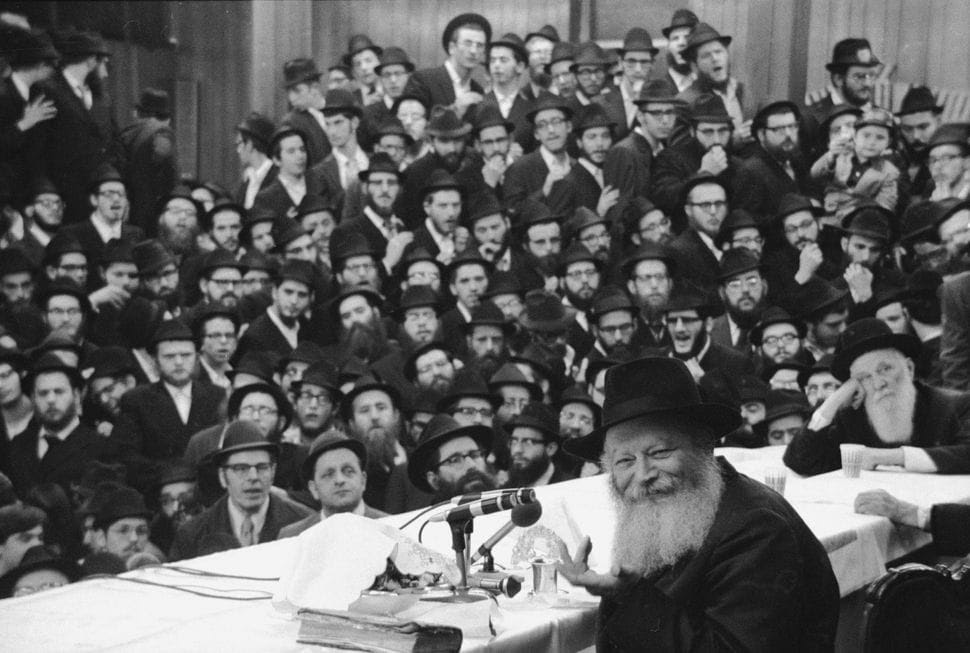
In a small synagogue thousands of miles away from where I grew up (although only a few miles from me now), a year before my father was born, a gathering took place that would shape my life.
On tomorrow’s date, seventy four years ago, the Rebbe, Rabbi Menachem Mendel Schneerson, presided over a small crowd of Jews in Brooklyn and delivered his inaugural Chassidic address.
With that, he formally assumed the leadership of the fledgling Chabad community, exactly a year after the previous Rebbe - his father in law - had passed away. That moment set in motion a movement that would forever change the Jewish landscape.
Over the next forty years, the Rebbe would revolutionize the Jewish world and inspire a mass movement of Jewish renaissance. In the seventy-plus years since that night, thousands of his followers have created Jewish outposts in communities around the world - from remote places like the Congo and Vietnam to inner cities of New York, London and Tel Aviv - making Chabad a household name and the fastest growing Jewish movement.
My father would go on to discover Chabad, years later, in his teens. And I would be inspired by the Rebbe's teachings to join the ranks of the his ambassadors - with Leah and our kids - and start a Chabad outpost in Brooklyn, more than 20 years after the Rebbe's passing.
But on that frigid winter night in 1951, the seeds were planted for the growth of this vision - and for the founding of our community, Dirah .
The Rebbe had an unsatiating quest to revive the Jewish spirit in the aftermath of the Holocaust. He had an unwavering faith in people and in G-d and in the future of the Jewish story. He had an unrelenting spiritual calling to make this world into a home for the Divine. And he communicated that effectively to his followers and the Jewish world at large.
The central role of a Jewish spiritual leader goes back to the begining of the the Jewish story. Moses plays a central role in the Exodus. But his position isn’t only political. He was more than a mouthpiece for the Jewish people, representing them in front of Pharoah. He was also a spiritual guide and mediator between the nation and G-d, between the Jews and their Divine purpose.
This is made clear at the splitting of the sea. When the sea split for the Jews, concluding their Exodus from Egypt, they broke out in song to thank and praise G-d for saving them. But there’s a curious introduction to the song in this week’s Parsha: “When Israel saw the mighty arm that God had exercised against the Egyptians, the people stood in awe of God; they believed in God and in His servant Moses.”
They had faith not only in G-d, but in Moses too. Of course, Moses wasn’t a G-d figure and they didn’t worship him. But he was an integral part of their faith. They were able to fully grasp and make sense of their experience and faith because of Moses’ guidance.
As human beings, we have a hard time seeing through the fog of reality and recognizing our path and purpose or sensing the Divine hand in our lives. What is our role as Jews? What's my personal purpose? How can I make sense of the things that happen to me? Moses gave the Jews access to their deepest selves and to an inner understanding of their experiences - and that elicited the greatest joy, causing them to break out in song.
A true leader, a Rebbe, sees a depth in each person and in reality that penetrates the opacity and can help us uncover our inner faith and self-awareness and guide us on a path of purpose. And there’s no greater experience than that.
The Rebbe's teachings and vision are what inspire and guide me. They are the motivating force behind the work that Leah and I do. The Rebbe is the engine that drives Dirah, among the thousands of other Chabad centers around the world. If you’re reading this email from us, the Rebbe has had an impact on you too.
Tomorrow is the day it all began - the yahrzeit of the previous Rebbe and the anniversary of the Rebbe's leadership - and I invite you to take a moment today to learn about the Rebbe and his life and leadership at therebbe.org and encourage you to add a Mitzvah today to honor his legacy. Reach out and I'd love to help you with Tefillin, a Mezuzah - or choose a Mitzvah that talks to you.
Shabbat Shalom,
Rabbi Menashe
Standing Tall
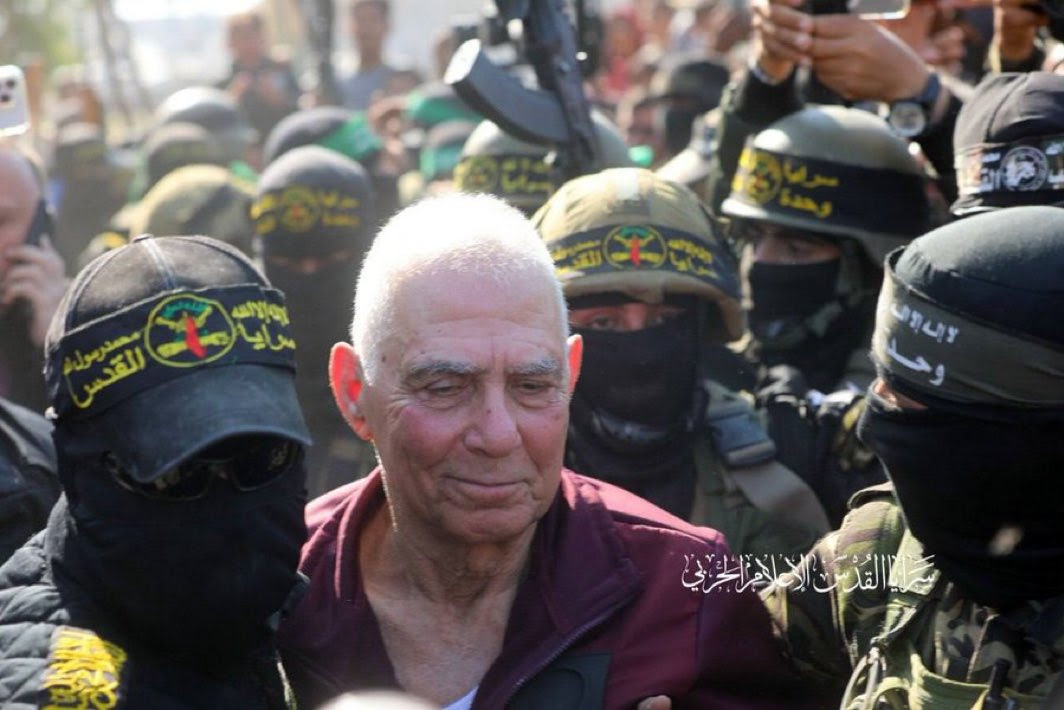
January 31, 2025 | This week is we read Parshat Bo. Read more about it here.
Last night we hosted a fascinating talk with Jonny Daniels about his work with Holocaust memory and education, Israel and Jewish identity.
He shared so many great insights and stories but most powerful of all, I think, was his positive demeanor and confidence in the Jewish people and our story.
He closed his talk with conjuring the imagery of Gadi Moses, the 80 year old hostage that was released yesterday. Surrounded by Hamas terrorists and a mob of Gazan haters, he walked with his head held high. His body language shared the message from thousands of years of Jewish history, that even 480 days in captivity can't break the Jewish spirit. All the hate and torture in the world won't faze us.
This was a powerful message to all of us there: now is a moment where we need to be extra strong and proud Jews.
This has been the Jewish story since the very beginning.
We read in this week's Parsha that Pharoah and the Egyptians agreed to let the Jews leave during the death of the firstborn, which happened at midnight. In fact they begged them to go right then. But the Jews waited for morning to leave Egypt and left in middle of the day.
Imagine, after hundreds of years of slavery, they were finally free. But they didn't leave. They waited an extra 12 hours in Egypt to uphold their pride.
They weren't going to escape sneakily. They didn't want to show any weakness. They marched out of Egypt, in full face of the Egyptians, with their heads held high.
This was the birth of the Jewish nation and sets the tone for our people since. In the face of adversity, we stand strong. In the face of hate, we stand tall. In the face of delegitimization, we stand proud.
The way we have to respond to any challenge is by bouncing back stronger. This moment that we're in calls on us to be prouder Jews and live even more Jewishly.
Shabbat Shalom,
Rabbi Menashe Wolf
Flexing Your Faith Muscle

January 24, 2025 | This week is we read Parshat Va’eira. Read more about it here.
Faith is the foundation of Jewish practice and also makes our lives much richer. Sending G-d’s hand in our lives helps us appreciate everything we have. It keeps us calm even when things seem stressful. It provides direction and fills every moment with meaning.
But it’s not always easy to access. It’s something we all grapple with and have to consistently work on. But here’s the thing - it can be worked on, nurtured and developed.
This week we read about the downfall of the mighty Egyptian empire through the medium of the ten plagues.
We’re all familiar with the story, from the Passover Seder: G-d wrought destruction on the oppressive nation, leading eventually to the Exodus of the Jews. The plagues were a build up, successively getting harsher, until the tenth plague, death of the firstborns, was too much for Pharaoh and the Egyptians to handle. They caved to the Jews and let them free from their slavery.
But there’s something in the story that we don’t always pay attention to. The plagues were a drawn out affair, happening over the course of a year. During that time, the Jews were still suffering under Egyptian rule. If the final plague was so overwhelmingly powerful, couldn’t G-d have used it first and saved the need for the other nine? Why spend a year with a chain of lesser plagues and leave this winner for last?
[It’s not as if G-d hadn’t thought of this final solution. Before Moses began his mission to redeem the Jews, G-d had already let him in on the end plan of killing the firstborns when Pharoah wouldn’t let the Jews go (Exodus 4:23).]
There is a profound interpretation of the plagues that gives a different perspective to the whole drama. At the end of the plagues, G-d says: "And in order that you tell into the ears of your son and your son's son how I made a mockery of the Egyptians, and [that you tell of] My signs that I placed in them, and you will know that I am the Lord (Exodus 10:2).” This reframing suggests that the purpose of the plagues were not only to scare the Egyptians and pressure them into freeing the Jews. They were intended to deliver a message to the Jews themselves.
Real freedom is internal. Freedom of the mind. Freedom of spirit. To be free required more than taking the Jews out of the physical space of Egypt; they had to be liberated of its mindset.
After hundreds of years of oppression in a foreign land and generations of immersion in Egyptian culture, the Egyptian values and ideals had assimilated into the Jewish psyche. The Jews were so deeply entrenched in their slave mentality that they had lost the faith of their ancestors.
They had to be reintroduced to a monotheistic worldview. Their thinking had to be reprogrammed. They had to rediscover their faith.
The plagues were sent to impress G-d’s mastery over nature on the Jewish people. They were educational mediums to teach the Jews about G-d and his omnipotence. Of course, G-d would not have used the Egyptian lives as props in this lesson if they would not have been deserving of it. But ultimately the specific choice of fair punishment meted out to the Egyptians was pedagogic; methodically inculcating a faith mindset into the Jewish people's minds.
There’s a beautiful teaching from Rabbi Schneur Zalman of Liadi (1745-1812), the founder of Chabad, who’s Yarzeit is today, on the 24th of Tevet. In chapter 42 of the Tanya, his foundational work of Chasidic spiritual philosophy that is a beautiful spiritual guide to understanding ourselves and our role in the cosmos, he explains that the Hebrew word for faith, emunah, is related to the words craftsman (uman) and training (imun).
Faith is a developed. It’s not a switch that is either turned off or on. It is is skill that is learned and developed. Like a muscle, the more you exercise your faith, the stronger it becomes.
Just seeing a one-off miracle would have impressed the Jews, but wouldn’t have been enough to build up their faith muscle. The series of plagues, and the weeks between them that allowed the Jews to process and digest them, were a sustained workout plan that built up their core faith strength.
One plague was enough to take the Jews out of Egypt. The ten plagues were to take Egypt out of the Jews.
I don’t think we can expect a series of miracles, but we can exercise our faith muscles with routine workouts. Just like physical fitness, we can’t expect results without putting in the effort. To build the muscle of our Jewish identities and faith, we have to create a daily routine of Jewish exercise.
Spending a few minutes every day in prayer is a exercise that nurtures our faith. Studying Torah helps develop our faith. Every Mitzvah we do trains us to sense G-d in our lives. The faith-strength you build through these workouts will enhance your life, center you in challenging times, and add purpose to every moment of your day.
Shabbat Shalom,
Rabbi Menashe Wolf
P.S. You can join us on Shabbat mornings at 9am to study the Tanya. See here for more info.
Why Moses? The Stray Sheep Story
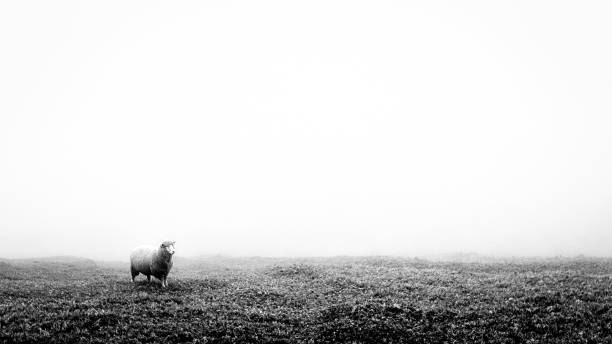
January 17, 2025 | This week is we read Parshat Shemot. Read more about it here.
After over two hundred years of slavery in Egypt, G-d heard the cries and suffering of the Jews and was moved to rescue them. The moment of redemption - that he had promised to Abraham 4 centuries earlier - had arrived.
The revolution needed a head. G-d had to find someone to implement the vision. He needed a leader that would be up to the historic mission that give rise to the Jewish people and change the trajectory of history.
He found an unlikely candidate: Moses. Moses was an outlier to the Jewish people. He never experienced the harsh realities of slavery - he grew up in Pharoah’s palace. He hadn’t even been in Egypt for the previous 60 years. Why was he chosen for this historic role?
There are many reasons why Moses may have been a preferred candidate. Maybe it was his spiritual charisma. Or perhaps being an outsider was exactly what made him fit for the job: since he hadn’t been a slave he wasn’t trapped in the slave-consciousness and could imagine a liberated future.
The Midrash tells an interesting story that paints a different picture for why G-d chose him.
To preface: there are precious few stories that we’re told in the Torah text of Moses’ early life, that paint a picture of who he was as a person. He grew up in a privileged environment (he was adopted by the Egyptian princess Batya) but continuously put his neck on the line to help others. Here are a few of these episodes:
While still a teenager in Egypt, Moses ventured from the palace where he grew up and saw an Egyptian beating a Jewish slave to death. Moses could have walked on pretending not to notice. But instead he risked his life and struck the Egyptian, saving the life of his Jewish brother.
The next day, he saw two Jews fighting and put himself out on a limb to break up their fight. He once again placed himself in the line of fire to prevent an innocent person being hit.
To escape the death penalty as consequence of saving his Jewish brother, he fled to Midian. There, he wasted no time in helping the vulnerable and stood up against the men of the city to prevent an injustice. Moses was at the well and witnessed Yisro's daughters being discriminated against, forced to wait until all the men would take water so they can also have some. He saw their mistreatment, how they were treated as second class, and he refused to let it go by. He stood up and filled their buckets with water. As an unknown guest to town, he took a stand to protect total strangers.
On this backdrop, the Midrash tells a story that was the final straw that clinched him G-d’s trust:
Moses was a shepherd, working for his father in law. He shepherded his flock tirelessly, tending to the animals' every need. It happened that a sheep strayed from the flock and ran off into the distance. Moses chased relentlessly after the sheep (according to some, for days!) and finally caught up to it by a body of water where the sheep had stopped to drink.
He looked at the sheep and said to it: "I am sorry, I should have known you were thirsty and provided you with water." He sensed the sheep must be exhausted after its trek and he carried it on his shoulder, reuniting it with the rest if the flock. G-d saw this, continues the Midrash, and realized that here was his man; this was the leader he needed to free his people from the chains of slavery. It was then that he appeared to him in the Burning Bush.
The most important trait of a Jewish leader is to care for others and to sacrifice everything to help them. Moses’ concern to even a stray sheep that needed his help displayed the ultimate of Jewish values: to care for those in need, to support the vulnerable and look out for others even before they ask for help.
It didn’t matter if the person in need was a peer or a stranger, man or woman, dignified or simple, Moses saw the infinite value in them all and knew they were deserving of care.
This explains why G-d appeared to him in a burning thornbush. It wasn’t just a flashy PR stunt. G-d was indicating to Moses why he was chosen. The thornbush represents people that have no redeeming qualities and are just a drain on society. They cause pain and make you uncomfortable. But even they have an unquenchable fire of purpose and worth. They too are created in G-d’s image and have an unlimited potential.
With that vision G-d was setting the stage for the future of the Jewish people. The value of every individual. The unlimited potential within each of us. And the unlimited care and concern that we have to have for every person - to stand up for those being oppressed and to help everyone we can.
Shabbat Shalom,
Rabbi Menashe Wolf
Joseph’s Final Tears
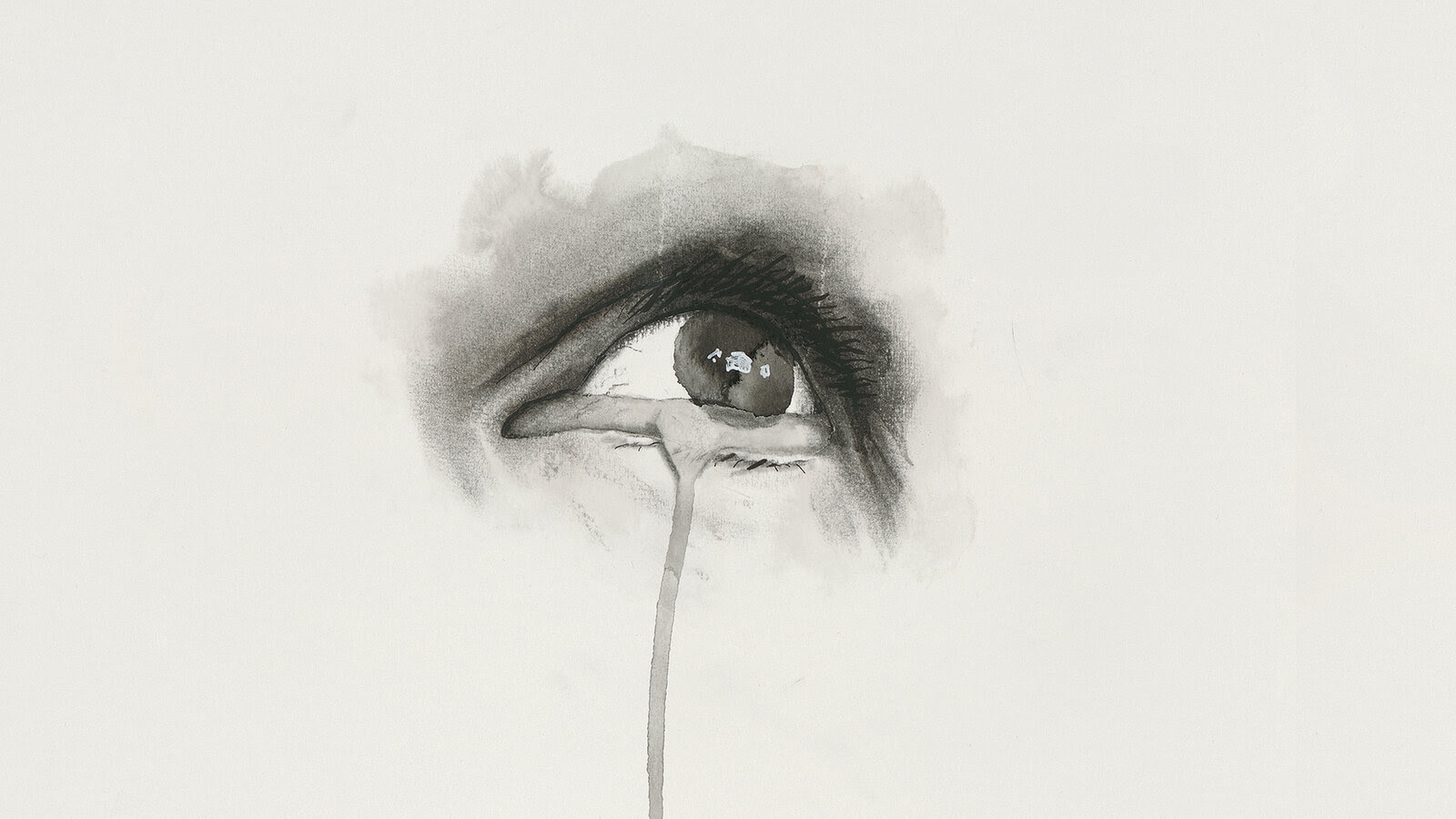
January 10, 2025 | This week is we read Parshat Vayechi. Read more about it here.
Joseph cries more than anyone else in the Bible. In all, there are 7 episodes of him crying - spanning the emotional spectrum of pain, sadness, joy and empathy. But his final cry is the most intriguing.
After Jacob’s death, Joseph’s brothers feared that he would now take revenge on them. Perhaps, they thought, Joseph had been kind to them out of respect for their father. Now that he was gone, Joseph may finally get back at them.
Joseph had already told them that he didn’t have any hard feelings towards them: “You didn’t send me here - G-d did.” But the brothers couldn’t imagine that he really meant it. Sure, faith is a convenient tool, but deep down, Joseph must have felt the trauma of abandonment and betrayal.
In the frenzy of fear, the brothers invented a story to Joseph: Before he died, your father gave this instruction: This is what you must say to Joseph: “Please now forgive your brothers’ crime and their transgression of having treated you harshly.”’ So now, please forgive this crime of the servants of the God of your father.”
They lied to him to secure their safety. This raises all kinds of interesting moral questions about the value of truth and when it is appropriate to suspend it. It’s something we’re going to be discussing at this Sunday’s Ethics Breakfast.
But more intriguing than their plea to Joseph is his response: Joseph wept… and said to them, “Do not be afraid, for am I in place of God?! Although you intended me harm, God intended it for the good, in order to bring things to their present state and to save the lives of many people.”
Why did Joseph cry? What moved him to tears?
The story of Joseph and his brothers marks a shift in the Biblical narrative. Whereas G-d openly communicated with Abraham, Isaac and Jacob, his voice is absent in this story. It’s the beginning of a new era in Jewish history.
G-d openly guided the patriarchs and spoke to them at every critical moment in their lives. His presence was obvious. But this changes with the next generation. G-d doesn’t speak to any of Jacob’s sons. He doesn’t make an appearance.
Instead, we have a very human story, with the brothers having the space to make mistakes and undo them on their own. As the Jewish nation unfolds, G-d takes a step back and gives the characters the illusion that they are in control.
But G-d hasn’t left the story. He just chooses to make Himself less obvious.
This is the theme of Joseph’s life and what makes him stand out - and this narrative so important. Joseph recognizes G-d’s presence at every stage of his life. His faith wasn’t a coping mechanism but an authentic disposition. Through all the trauma and suffering, he senses a Divine hand. G-d hasn’t abandoned him. He knows that it’s all part of a plan.
Joseph’s brothers were also believers. They grew up in Jacob’s home and were immersed in faith and Divine service. But when they suspected Joseph of harboring hate, they betrayed that their faith wasn’t fully integrated. Without G-d’s open hand in history, they gave too much weight to their own agency and couldn’t imagine that Joseph had nothing against them.
Perhaps this is why Joseph cried for the final time. He knew that the Jews were going to suffer in the darkness of Egypt. He knew that the road ahead for his people wouldn’t be openly guided by the visible hand of G-d. And he knew that the Jewish story throughout time was to be one where G-d’s presence wasn’t always easily sensed.
The brothers’ fear frustrated him. They hadn’t fully integrated their faith. Where would that leave the next generation of Jews?
(Perhaps the brothers did have the same faith as Joseph, but didn’t know if he felt the same way as they did - and couldn’t use their faith at someone else’s expense. Either way, Joseph understood their words as lacking faith.)
Joseph’s life’s purpose was to shine light in the darkness. To give hope when it seems lost. To help us sense G-d’s hand even when it seems absent. He desperately wanted his brothers to feel the same way, so they could pass it on to the future generations.
This explains the ending of the book of Genesis that leads into the story of slavery in Egypt. The final verse of the book tells us that Joseph died and was buried in Egypt. There’s a rule in Torah that everything should end on a positive note. Where’s the positive in Joseph’s death?
Perhaps the message that Torah is one of hope, sharing that Joseph remained in Egypt even after his death. His spirit and faith remained with the Jewish people throughout their hardships in Egypt. Joseph’s faith remained a guiding light, providing them with hope and clarity even during their most difficult moments.
Joseph teaches us to have faith even when it doesn’t seem obvious and to find meaning and purpose in everything that happens to us.
Let’s pray that Joseph’s final tears will lead to the final tears for all of us - and we’ll finally understand why everything had to happen the way it did and see the realization of Isaiah’s prophecy that when Mashiach comes, “G-d shall wipe the tears off every face.”
Shabbat Shalom,
Rabbi Menashe Wolf
Shining Brightly in 2025
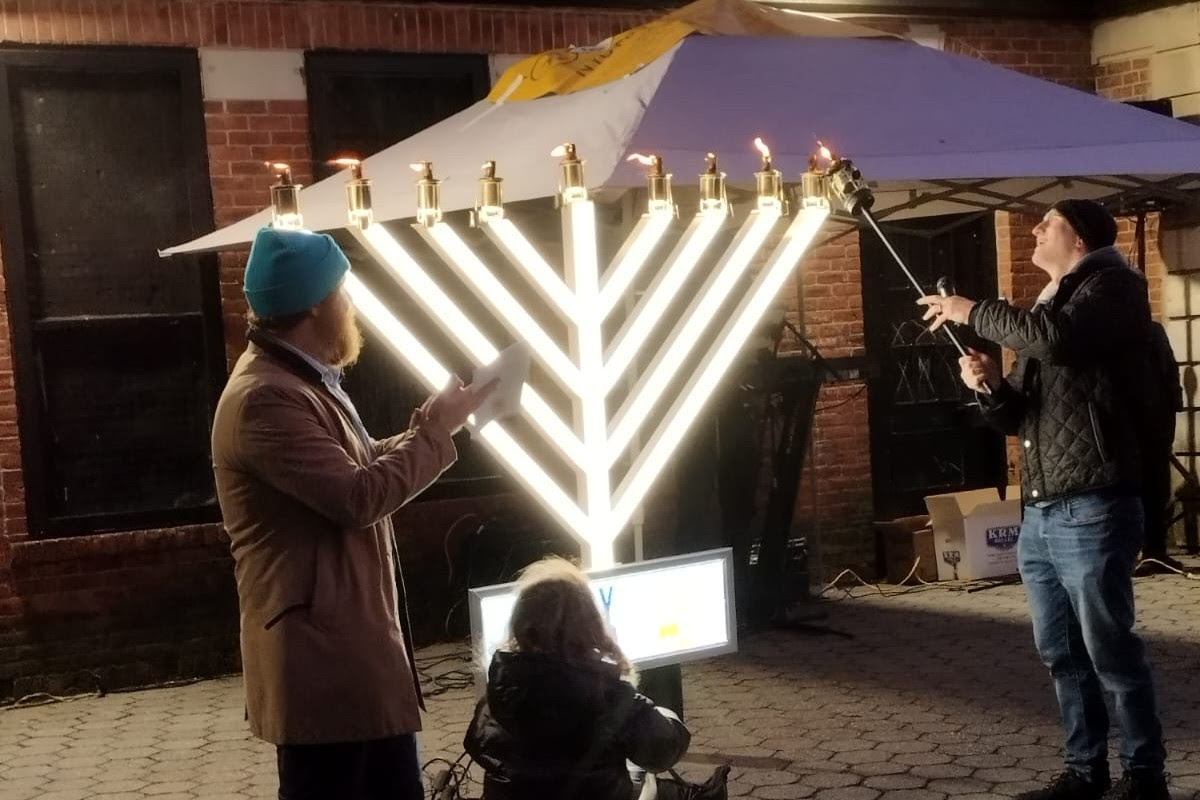
January 3, 2025 | This week is we read Parshat Vayigash. Read more about it here.
This New Years was unique: we were still celebating Chanukah on January 1! 2025 started with a celebration of light - not just any light, but the full 8 candles of the Menorah!
For our community especially, it was a bright start to the year. The Community Menorah Lighting at Carroll Park on January 1 was so beautiful and heartwarming. We sang, prayed, danced and lit the full Menorah together with hundreds of fellow Jews from the neighborhood. We couldn’t ask for a better opening act for 2025.
A New Year is always exciting. The fresh start is filled with hope and potential. But it also carries an ominous unknown. What is 2025 going to bring? How will things shape out for me and for the world? What crazy, unexpected drama will unfold over the next 12 months?
Jewish teachings don’t predict what this year will bring, but they do provide insight into how we can prepare for it.
In this week’s Parsha, Jacob receives the news that his son Joseph, who he had assumed dead for over 20 years, was still alive and was the second in command in Egpyt. At Joseph’s invitation, Jacob picks up his family to move from Israel to Egypt, where Joseph promises to take care of them.
To give this relocation context: Jacob’s grandfather, Abraham, had risked everything to move to Israel, the land the G-d promised him. His father, Isaac, never stepped foot out of the land. And now, Jacob, was leaving it behind.
He had to go. There was a shortage of food in Israel and Egpyt promised him safety. His long lost son was there. It was his destiny.
But he must have felt the weight of the move and spiritual risk involved. There was a prophecy that the Jews would be slaves in Egypt. Jacob would have known that his descent was the begining of the downward spiral that would lead to over a century of Jewish suffering. In fact, the Jewish people don’t return to Israel from this journey until after the entire story of the Torah.
G-d sensed his apprehension and appeared to Jacob in a dream: “Do not be afraid to go down to Egypt, for I will make you there into a great nation. I will go down to Egypt with you and I will make sure that you return.” As had happened the first time that Jacob was forced to leave the spiritual comfort of Israel, Jacob found G-d in the dark of night, sensing faith and promise even in moments of darkness.
Jacob couldn’t rely on G-d’s promise alone - he knew that he had to take steps implement it. He had to act to ensure that his family remained rooted in their identities even in a foreign land. He needed to do something that would shelter them from the untold dangers that they’d face.
We’re told that: “He sent Judah ahead of him to make advance preparations in Goshen.” Judah was tasked with preparing their new home to make it welcoming for Jacob’s family. How did Judah acheive this? What did he do to give them the tools to confront the unknown that lay ahead of them?
The Midrash says that he opened a Yeshivah - a place dedicated to spreading the light of Divine faith and wisdom. Being rooted in the traditions and teachings of their ancestors would brighten their way through even the darkest path.
Jacob’s answer to how to prepare for the murky unknown that lay ahead? Preempt the darkness with light. Shine your own light so brightly that nothing can extinguish it. (In fact, the terrible slavery in Egypt didn’t start until the last of Jacob’s children died. They were all rooted in the light, so the spiritual darkness didn’t affect them.)
This is a recipe for a successful year ahead. Don’t wait to see what life brings and tackle things as they come up. Take the lead and preempt it all. Start doing good things now. Go into 2025 with all cylinders firing. Shine your light so brightly that nothing can faze you.
This is an especially powerful message for the Jewish community today. We live in a time when, unfortunately, too many people want to extinguish our Jewish light. Across the world, people are trying to scare and silence us and deny our right to live comfortably as Jews. Our response is to shine brighter!
The way we will ensure that 2025 will be a good year for the Jewish people is by following Judah’s example: We need to create more light. More opportunities for Jews to engage with our faith and traditions. More celebrations of Jewish holidays and milestones. More Mitzvot. More Torah study.
As we closed out 2024, we reached out to you to help Dirah shine light with our end-of-year fundraising campaign. Thank G-d, we surpassed our goal! It was humbling to see the generous response from so many people who stepped up to fuel a brighter future for our community. With your help, we head into this year filled with light! Thank you!
As we enter the new year, let’s resolve to implement that light and grow in our Jewish observance and engagement. This commitment will lay the groundwork for an incredible year, filled with joy, light and celebration.
Shabbat Shalom,
Rabbi Menashe Wolf
Sharing Our Light Publicly
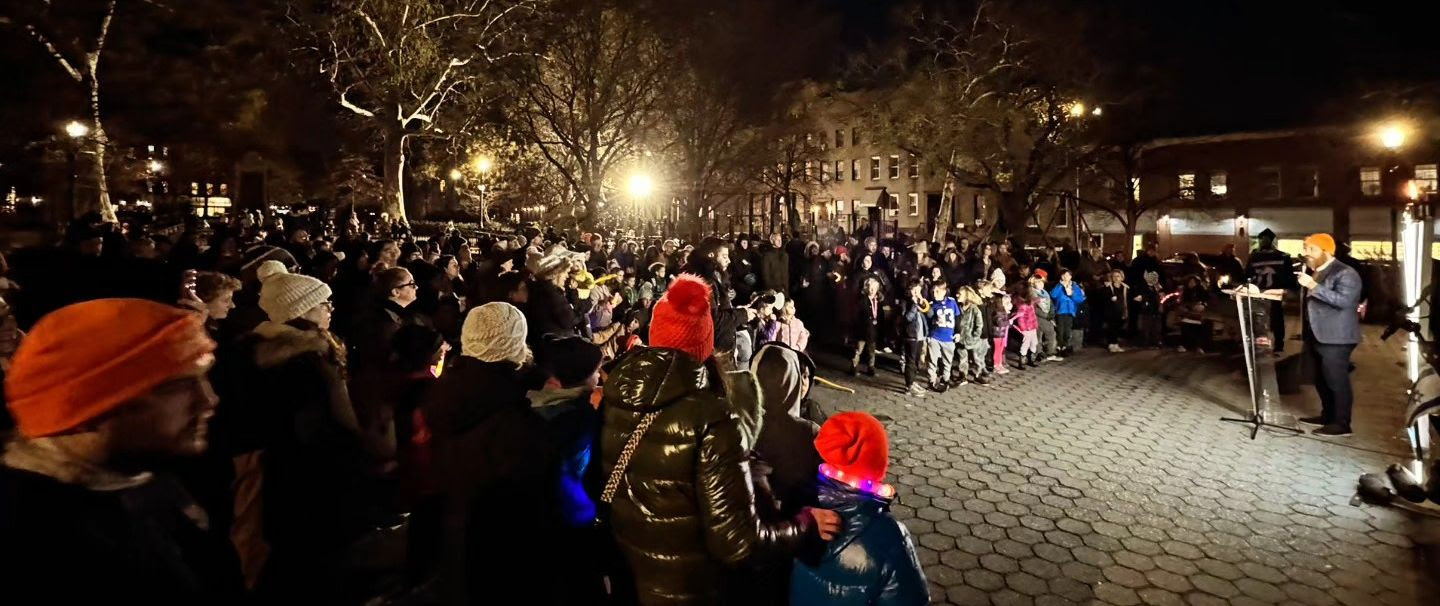
December 27, 2024 | This week is we read Parshat Mikeitz. Read more about it here.
Over the past few days, I received Chanukah regards and Menorah lighting pictures from across the world - from Aruba to Chile to France - and across the US.
It’s a calmer Chanukah in the city this year. Because it coincides with the holidays, many people are on vacation and the streets are quiet. But the timing doesn’t lessen the light that we spread. It actually spreads it further. Brooklyn menorah candles are brightening the world!
And, more often than not, wherever people are there’s a Chabad public menorah lighting to uplift their Chanukah experience.
Chanukah is all about spreading light to the world. Public Chanukah displays and the outward facing celebrations that spreadlight in streets, parks, malls, and community centers around the world, have become a staple of the Holiday season. We take for granted the confidence that we have to be openly and publicly Jewish in the streets. We take for granted the support that we have from our neighbors and political representatives.
But this wasn’t always the case. The modern-day resurgence of public Chanukah celebration only dates back 50 years and didn’t come without challenge.
In 1973, the Rebbe started the Chanukah-awareness campaign - urging every Jewish home to kindle a Chanukah menorah, for children to have and light their own menorahs, and for people to encourage their friends and neighbors to do so as well. His inspiration was as profound as it was simple: “There is a special advantage in the mitzvah of the Chanukah lights,” the Rebbe explained atthe farbrengen gathering held on Dec. 15, 1973 (20 Kislev,5734), “for when a Jew kindles a menorah, literal light emanates fromit and illuminates the street.”
His calling sparked a revolution and changed the way Chanukah was celebrated in America and eventually around the world.
The next year, in 1974, the first public Menorah appeared - a small wooden Menorah lit on Independence Mall in Philadelphia - which would set off a trend, and in the years that followed, giant Menorahs were built and lit across the country. Today there are more than 15,000 public Menorahs lit annually - including our’s in Carroll Park!
But not everyone agreed with the Rebbe’s approach. The public Menorahs faced heavy pushback from civil rights groups and a host of Jewish organizations. Their legal argument was on the grounds of separation of church and state - but the real motivation was the fear that being too openly Jewish would threaten the Jewish community.
The very thing that irked these Jewish movements - the fear of being too visibly Jewish - was what motivated the Rebbe’s campaign. For there to be a Jewish future, he argued, we have to show Jewish pride. For the next generation of Jews - many of them unaffiliated and disenchanted - to connect to their heritage, they would have to see it being celebrated joyfully in the streets.
Eventually the public Menorah debate was brought to court, culminating in a Supreme Court ruling in 1989 in favor of the public Menorah displays. Legalities aside, the Rebbe’s vision for Jewish visibility and pride has proven to be accurate.
Towards the end of his life, American Jewish Congress leader Arthur Hertzberg admitted he’d been on the wrong side of the battle. “We thought you should be a Jew at home and a citizen on the street,” he said. “The Rebbe thought that being a Jew on the street you would be a better Jew in your home; he was right and we were wrong.” Just this week on X, Abraham Foxman, who served as director of the ADL for almost 30 years, admitted that he had been wrong to oppose the public menorah all those years ago.
Every year I get calls and emails from people sharing how much it means to them to see the Menorah at Carroll Park. It has empowered so many Jews, young and old, and moved them to strengthen their Jewish engagement. And we’ll never know how many others have been inspired.
Today more than ever we can appreciate the need for public expression of our Jewish traditions and the impact it has on the community at large. With everything the Jewish community has experienced over the past 14 months, we know how easy it is for us to be marginalized and how quick hate can boil to the surface. We also know how important it is not to go into hiding, but to be loud and proud. The only way we will have a future is by leaning more into our Jewishness and standing as proud and visible Jews.
One of the inspirations for this messaging is Joseph, who we continue to read about in this week’s Parsha. Joseph was a lone Jew in a foreign, and often hostile, environment. He could have been forgiven for keeping his identity and faith a secret. But time and again, he openly and publicly attributed his success to G-d - to the point that the Egyptians around him recognized it.
First, as a slave, “Joseph’s master saw that God was with him, that God granted Joseph success in everything he did.” Then when he was wrongfully imprisoned, “The warden of the prison could not find fault in anything that was under Joseph’s charge, for God was with him, and God granted him success in whatever he did.”
Finally, he risked his chance to have his life restored and get out of prison by professing his deep faith. At the opening of this week’s Parsha, when Pharoah needed a dream-interpreter, Joseph was recommended. Pharoah took him out of his prison cell and told him that he heard he has the insight to explain dreams. Instead of taking this credit - which in all likelihood offered him a path to freedom - Joseph said: “It is not by my own power; but God will provide me with an answer.”
But instead of Joseph’s public affirmation of his counter-cultural faith in G-d harming him - it led him from one success to another. His master trusted him. The prison warden trusted him. And Pharaoh was impressed with him. He told his ministers: “Is there anyone comparable tothis guy, who has the spirit of God within him?” And then he appointed him to second-in-command in Egypt, saying: “Since God has made all this known to you, there is no one as discerning and wise as you.”
The more we respect ourselves as Jews, the more people respect us. The more open and prouder we are of our identity and faith, the better it is for the Jewish community.
The Chanukah lights were designed to radiate to the outside. Originally they were placed outside the door and today the ideal place for them is in the window. They are a symbol of the light and message that we have for the world. They teach us not to be shy about our Judaism, but to broadcast our message proudly and be a shining light of moral clarity and spiritual vision in a dark and confused world.
As we kindle the Menorah this afternoon (before the onset of Shabbat) let’s think about one more thing we can add to be more visibly Jewish and share our timeless message with those around us.
Shabbat Shalom and Happy Chanukah,
Rabbi Menashe Wolf
P.S. Join Dirah for the Community CarrollPark Menorah lighting on Wednesday, January 1. Details are below.
Be a Dreamer
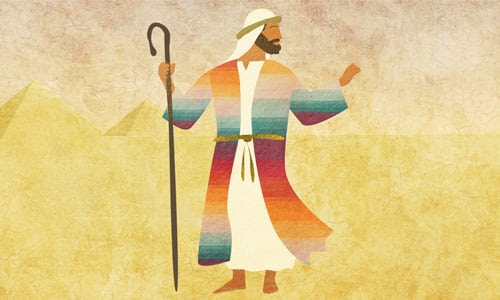
December 20, 2024 | This week is we read Parshat Vayeishev. Read more about it here.
If there’d be no one stopping you or nothing you couldn’t do - what would you do? Is there a dream you have in your heart of hearts?
We all have dreams and aspirations, but too often we don’t follow through on them. We’re worried what people will think. We’re uncertain about the future. We don’t have the confidence and faith to believe in ourselves and in G-d’s help.
In the parsha this week we read about Joseph and his dreams. Joseph’s life story, which shapes the narrative of the last third of Genesis, is marked by a series of dreams.
First he dreams of being a leader over his brothers, which leads them to hate him, eventually selling him into slavery.
Then, when seduced by his master’s wife, he almost succumbed until he saw a vision of his father which gave him the power to resist, leading to his imprisonment.
Next, while languishing in Egyptian prison, he interpreted the dreams of the two prisoners: the royal butler and baker, which gave him a reputation of a dream-interpreter.
Finally, when Pharoah has dreams that no one can decipher, Joseph is called upon to interpret them, leading him to be freed from prison and appointed second in command in Egypt.
Through all the ups and downs, there was one constant theme: dreams. Joseph’s brothers even nicknamed him “the dreamer.”
Joseph’s dreams got him into trouble. So why did he choose to share them with his brothers - didn’t he know it would cause them to hate him?
The commentaries offer various suggestions, but I think that this is what made Joseph unique and eventually successful. He knew that his dreams would land him in trouble. He knew the road ahead will be challenging. But he knew that he had a mission in this world and he didn’t let any challenge or obstacle stop him from realizing it.
Joseph believed so deeply in his dreams and never lost sight of their fulfilment.
Today is the 19th of Kislev and celebrates the release of the founder of Chabad, Rabbi Schneur Zalman, from czarist imprisonment. He was imprisoned on false charges and sat for 53 days in prison. He understood that this fate was a result of spiritual backlash to his efforts to spread the spiritual teachings of Chassidism. His magnum opus, Tanya, which he had published a couple of years earlier, has 53 chapters - one day in prison for each chapter.
Rabbi Schneur Zalman had a dream: to spread the spiritual wellsprings of Torah in a coherent way that could make it accessible to everyone. Whereas his Chassidic colleagues and masters spoke in cryptic mystical terms, he attempted to systemize the ideas and develop a language for them that made them approachable.
And he faced backlash - from his colleagues (spiritual brothers) and from other Jewish leaders who didn’t agree with his path. His dream got him into trouble and led to him being imprisoned - just like Joseph before him. But he didn’t back down and stay silent.
He knew that he had to fulfil his dream. He understood that these teachings will bring healing to the world and open a divine consciousness that will bring the world close to its spiritual fulfilment - and redemption.
When he was finally released from prison, he understood it to be a green light to continue his project and expand it. He stood by his dreams and was willing to suffer for them, because the world needed it. And we are still seeing the realization of his dream hundreds of years later.
His teachings shed light on the power and value of the soul, on the deep love and respect for every Jew, on the spiritual dimension of Jewish practice, on the path of self-growth, on the profound relationship with have with G-d and on so many other areas of life.
I don’t think it’s an overstatement to say that the teachings of Chassidut have been one of the most transformative Jewish innovations in the past few hundred years. They have shaped the language of Jewish discourse on faith and identity. They have seeped into nearly every other Jewish system of thought - across communities and affiliations.
We can learn from Joseph and from Rabbi Schneur Zalman to believe in our dreams. Believe in yourself and in your G-d-given talents and dreams. Trust in G-d that things will work out. Let’s all dream of what we can to make the world a brighter place. And don’t let anything stop you from fulfilling it!
Shabbat Shalom,
Rabbi Menashe Wolf
PS Join us this evening for a farbrengen - discussion interspersed with song and stories - exploring some of the foundational spiritual teachings of Chasidus. It will be at our home, 480 Smith St. #2 from 7pm (Kabalat Shabbat at 6:30).
Changing the World From Within
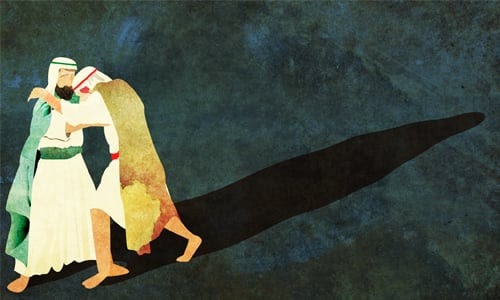
December 13, 2024 | This week is we read Parshat Vayishlach. Read more about it here.
We’re all looking to make an impact, to have a positive influnce and to be able to overcome hardships that life throws at us. But if we want to change the world, we first need to change ourselves. This is one of the messages from an enigmatic story in this week’s parsha.
Jacob is finally heading home after spending 22 years with his uncle Lavan and learns that Esav still bore a grudge against him - and was actually chasing him with an army of 400 men! Jacob was justifiably afraid of this confrontation. He feared the worst and prepared for war.
The night before their fated meeting, Jacob is all alone and confronted by an unidentified person. The two of them wrestle all night long, and at the break of dawn, the mystery person realizes that he can’t overpower Jacob, and is forced to bless him.
He tells Jacob that his name will be changed to Israel - meaning someone who overcomes all challenges and is a master over his surroundings. This is the birth of the name Israel and was a turning point in Jacob's life.
Later that day, Jacob and Esav meet. And, instead of attacking him, Esav is overwhelmed with love and compassion for his brother and embraces Jacob. It was a happy ending to a anxiety-inducing episode.
But what was the meaning of the wrestling match? Who was this mystery figure that Jacob struggled with? And why did the wrestling match end when dawn broke?
There’s a profound message here with a textual clue from last week’s reading.
Our rabbis explain that it was an angel, the spirit representing Esav. Before Jacob could face Esav in real life, he had to overcome the spirit of Esav.
Jacob was about to come face to face with his archnemesis. Esav was sworn to his destruction and had the means to annihalate him. This was to be a moment of truth, when he had to stand up to his opposition.
On the eve of that fateful encounter, G-d sent an angel - the spiritual embodiment of Esav. This was a necessary prelude to Jacob’s encounter with Esav in the flesh. Forces of challenge and evil only have as much power as we give them. Doubts give room for the negativity to creep in.
Before Jacob could confront his external adversary, he had to battle his internal one. Before he could take on the world outside of himself, he had to resolve his inner world. Before he could stand strong in the face of hate and antisemitism, he had to strengthen his own inner identity.
All night long, Jacob wrestled with his inner Esav. He battled with his own weaknesses, ego and selfish drives. He looked deep in the mirror and confronted his own shortcomings.
And then the sun rose.
In last week’s message I pointed out that when Jacob was forced to leave his family and homeland to find safety with his uncle Lavan, the sun set unexpectedly - symbolizing his entry into uncertainty and darkness that lay ahead of him.
Now, as Jacob returns back home, and after having done the inner work, the sun rose - symbolizing his moral clarity and confidence in his identity. After a long night of self-work, he managed to undo the darkness that had clouded over him for the past 22 years.
This is why, at this point, the angel gave up - Jacob had won. He emerges as Israel, as a pillar of strength and faith. And now, when he faced his external enemy, he melted in front of him. Once Jacob had done the inner work, the reality around him mirrored this. Once he had defeated his inner Esav, the external Esav didn’t pose a threat.
This is an incredible lesson for us. We all have external challenges, and the sure way to overcome them is to first work inwards. When something is up against us, it’s often a sign that something inside of us isn’t aligned. We can’t change the world around us until we’re ready to change ourselves.
This is also true of the collective Jewish people. As we face unprecedented antisemism and are confronted by senseless hate and violence, we want to push back. But to successfully confront the hate and overcome it, we first have to look inside. We have to wrestle with our doubts and with whatever is holding us back from fully expressing our Jewishness.
Of course we need to confront hate and stand up for our people. But the most successful way of acheiving that is by first working on ourselves. When we get rid of our inner Esav and fully embrace our Jacob identity - wearing our Judaism proudly - we have what it takes to take on the haters. And, like Esav before them, they’ll dissipate and be overwhelmed by our inner strength.
Shabbat Shalom,
Rabbi Menashe Wolf
Building Ladders
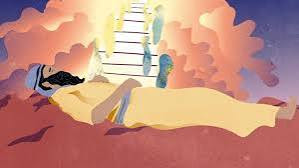
December 6, 2024 | This week is we read Parshat Vayetze. Read more about it here.
The scariest thing in the world is uncertainty. What does the future hold? Where is our society headed? How will the world’s events unravel?
We obviously have do our part to make the world a better place, but there’s so much that is out of our hands. Although we can’t always control what happens around us, but we can control how we respond. And there’s a powerful lesson in this week’s Torah reading that can teach us how to navigate the uncertain future. All we have to do is build a ladder.
The parsha opens this week with Jacob on the run from his brother, Esav, who has sworn to kill him. On the behest of his parents, he is headed to Charan to stay with his uncle Lavan.
While most of the Torah reading details Jacob’s experiences in Charan where he married and built a family, there’s a fascinating episode on the way there.
As Jacob was travelling, he chanced upon the place of the future Temple as night descended (the commentaries point to textual idiosyncrasies that suggest that nightfall came earlier than expected and G-d was pulling strings for Jacob to rest at this exact spot). Notice, it isn’t dark yet, but the sun is setting.
He lays down to rest and has a dream:
“He saw a ladder standing firmly on the ground and sloping upward, its top reaching heaven. Angels of God were ascending it and descending it. And behold, God was standing over him…”
G-d proceeds to promise Jacob the Land of Israel, innumerable descendants who will spread throughout the world, and Divine protection. Then Jacob wakes up. And his immediate reaction is to declare that this must be a holy place.
There are many ways to interpret Jacob’s dream. Incidentally this is the only reference to a ladder in the whole Torah.
Some suggest that it was a promise of Divine protection as he journeyed to the unknown: the angles were his protectors, and as he was leaving Israel to Charan, there was a changing of the guard of sorts. Others understand the dream as a vision into the future of Jewish history: different kingdoms (represented by the angels) will rise and fall, but G-d will always remain faithful to His people.
There’s another reading of the dream that sees it as visualization of his spiritual potential.
Jacob was travelling away from the spiritual center of gravity to the unknown world. He was moving away from his family and leaving Israel, and headed to his uncle Lavan who was unethical and morally depraved.
He didn’t know what lay ahead. He had no idea how his future would play out. The setting sun was symbolic of his anxiety of the impending darkness of his immediate future.
In this liminal moment, G-d appeared to him with a profound message of hope and resilience: a ladder stretching from the earth to the heavens. No matter where he would go or how stuck he would be in the earth, there was always a pathway to heaven. G-d was showing Jacob his life’s mission: to tackle the darkness that life brings and find purpose in even the greatest challenges.
G-d wasn’t promising that there wouldn’t be challenges. He doesn’t suggest that everything will be rosy. But He does promise that He’ll be with him no matter what. G-d was telling him not to be afraid of the dark and to know that he had the tools to climb out of whatever life will bring.
G-d was also giving him the calling of the Jewish people. While his grandfather, Abraham, was sent on a journey to Israel - a journey that sparked the Jewish story - here Jacob was going the opposite way. The ladder dream was his message that he wasn’t abandoning the spiritual path of Judaism, but paving a new one. The ultimate purpose of our lives is not to stay in a safe place of comfort but to build ladders that connect the uncomfortable realities of the world with the Divine.
This explains Jacob’s response to the dream:“G-d is in this place and I didn’t know.” Even in the place of darkness, in the setting of the metaphoric sun, G-d is present. There’s purpose and meaning in every situation and with the right perspective, and a sturdy ladder, we can feel that.
This is our mission - to be firmly rooted in this world - with all the challenges and pushback that it brings - and to create a ladder that channels our experiences with holiness. We don’t know the future, and right now it can seem precarious, but we have to have faith that G-d is with us and we have what it takes to weather all the storms. We can succeed in even the most challenging circumstances when we are ready to build the ladder that links us to our Divine purpose.
We are capable of bridging the divide between heaven and earth, and when we do so, we elevate our world to be filled with meaning (angels going up the ladder) and elicit Divine blessings into our lives (angels going down the ladder).
Shabbat Shalom,
Rabbi Menashe Wolf
Use Your Voice

November 29, 2024 | This week is we read special readings for Parshat Toldot. Read more about it here.
Before sitting down to dinner with my family, I spent Thanksgiving day yesterday with my extended family - thousands of my Chabad colleagues from around the world. This weekend is the International Conference of Chabad Shluchim (emissaries), and rabbis from every corner of the globe descend on Brooklyn for a long weeeked of workshops, meetings and inspirational conversations, capping off with a beautiful banquet on Sunday afternoon (which you can watch live here.)
This year’s conference is coming on the heels of a great loss in our Chabad “family”. It’s hard to believe that it was less than a week ago that we learned the tragic news that Zvi Kogan - the Chabad rabbi in UAE - was brutally murdered. It's still in middle of Shiva.
This week's Torah portion couldn't be more timely. It tells the famous episode of Jacob 'stealing' Isaac's blessings from his older brother Esav:
Isaac was getting old and wanted to bless his children before he couldn’t any more. He intended to give the primary blessings to his older son, Esav. But Isaac was blind and Jacob capitalized on that to clinch the blessings, disguising himself as his older brother. On the advice of his mother, Rebecca, Jacob even went so far as to cover his arms with animal skins to give off the impression of his hairy brother.
But Isaac was suspicious and thought he recognized Jacob's voice and manner of speech - he spoke politely and acknowledged G-d. He felt his arms to verify who it was and was convinced by the hairy skin that it was indeed Esav (and gave Jacob the blessing). Isaac said: "The voice is the voice of Jacob, and the hands are the hands of Esav."
Commentaries explain that this line is not just an expression of Isaac’s confusion, but a declaration of the brothers' respective paths in life.
Esav was a hunter and a seeker of power. The Midrash describes him as a murderer. He asserted influence with his hands, using strength to get his way. Jacob, by contrast, was a pious scholar, described as 'tam', which translates as simple, sincere or wholesome. He asserted influence with his mouth, educating and inspiring people with his teachings.
This is the deeper meaning of Isaac's words: the power of the hand belong to Esav, and the power of the voice to Jacob.
Historically, Jews have not had much access to power, but that hasn’t stopped us from having an outsized impact on the world. Our tradition is one of influence: effecting society through moral and spiritual teachings, the 'voice' of Jacob.
Torah was given to heal the world. Its profound and timeless lessons are the backbone of modern civil society. When we study, practice and spread the moral and spiritual values of Torah, their divine wisdom influences positive change in the world. Judaism teaches the inherent value of each human being, creates a kinder and more civilized society, and gives people meaning that leaves them content and not searching for the attention that violence gives.
I couldn’t help but feel this message as I attended the conference. Surrounded by thousands of Chabad rabbis, who have dedicated themselves tirelessly to this mission, is nothing short of inspiring.
But it isn’t only a message for rabbis. We are all the children of Jacob, and his voice belongs to all of us.
Especially right now. This is our most powerful response to terror and violence. We owe it to Rabbi Zvi Kogan to respond to his murder with more light. We owe it to the world to use and share our 'voice', and scream it from the rooftops.
Let’s increase our knowledge of Jewish wisdom and practice of Mitzvot, and spread it to others. Share a Torah idea with your colleagues at work. Offer a friend a chance to join you in prayer. Share a Mitzvah that you do publicly. Brighten your home with the lights of Shabbat candles. Invite someone to a class of program. Proudly display a Mezuzah on your door.
We pray that the voices of Jacob will overpower the hands of Esav and create a safe and secure society, until the ultimate realization of this with the coming of Moshiach, as described by Maimonides: "In that era, there will be neither famine nor war, neither envy nor strife... The one preoccupation of the entire world will be solely to know G‑d."
Shabbat Shalom,
Rabbi Menashe Wolf
Guaranteed Success?
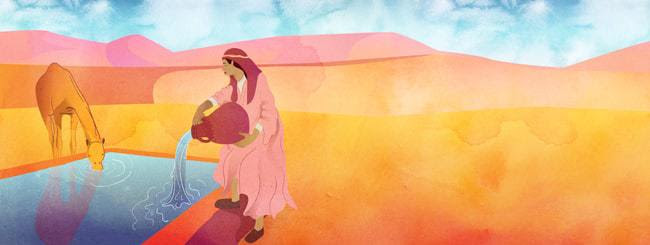
November 22, 2024 | This week is we read special readings for Parshat Chayei Sarah. Read more about it here.
"The road to success and the road to failure are almost exactly the same."
Success is a funny thing. We are always working towards it, but we can never be certain we'll achieve it. It requires a lot of effort, but all the effort in the world doesn't guarantee it. No matter how talented we are, no matter what resources we employ, and no matter how hard we work, we can't really control the results of our labor. In every project and endeavor, our efforts only create the right space, and we hope it gets filled with success.
But there is something we can do to ensure success. A close read of this week’s Torah portion provides the counterintuitive formula for success.
There are a couple of instances in Torah where people or efforts are described as successful. One of them is in this week’s Parsha - where we read the story of Abraham’s servant who goes to find a wife for Isaac:
Abraham sent his servant (Eliezer - although he isn’t named in the story, and is only referenced as “Abraham’s servant,” which will be relevant soon) to his hometown to find a suitable wife for Isaac. It’s a near impossible task: to pick out Mrs. Right in an unfamiliar town. But that didn’t deter Eliezer and he confidently undertook the mission. He prayed to G-d and devised a test: he’d ask a girl for a little water and if she generously gives him water and offers to feed his camels - she’s the one.
Lo and behold, moments later Rebecca came to the well to get water. He asked her for a sip and she readily gave him to drink and offered to quench the camels’ thirst too. G-d had answered his prayers! Before he even asked her name, he gifted her jewelry, knowing that she was the one for Isaac. When he invited himself over to her home to meet her family, Eliezer told them the whole story and related that Abraham had blessed him that: “‘God will send His angel with you and make your mission successful.”
What gave Eliezer the audacious confidence that he would find, and did find, the right girl - what if no girl matched his challenge? Or what if Isaac wouldn’t like her? And why isn’t Eliezer, Abraham’s trusted servant, named at all in the story? How did he know he’d be successful?
It was his faith in Abraham’s blessing and assurance that G-d’s angel would be with him that gave Eliezer the confidence. Which is why the first thing he did was pray. He let go of his own control of the situation and made space for G-d’s blessings to manifest. Sure he had to have a strategy and execute his plan, but he knew that G-d was paving the way for him and the success wasn’t a result of his own genius.
To make sure that his efforts were blessed he had to be committed 100% to the mission and not have any of his own agenda mixed in. For him this meant embodying his role as Abraham’s messenger and not relying solely on his own smarts or talents. Perhaps this is why the Torah omits his name - for the duration of the mission, he identified simply as Abraham’s messenger.
Armed with those tools, Eliezer knew he’d succeed. Faith doesn’t just mean to hope for the best. It is a confidence that G-d will provide.
Ultimately, success is a blessing. We don’t always know why some people are successful while others aren’t and why some projects succeed while others fall flat. This is where faith and prayer come in. They don't absolve us from making our best effort, but they create the space for G-d to bless our efforts with success.
Ironically, the less you are convinced that your own abilities are what make you succeed, the more space you create for success. When we’re sure that we have all the answers, we don’t invite G-d into the equation. But when we approach our endeavours with humility and faith, we have G-d’s partnership - which is pretty reliable for success.
When we do what’s right, G-d takes care of what’s left.
Shabbat Shalom,
Rabbi Menashe Wolf
The Non-Self-Help Principle
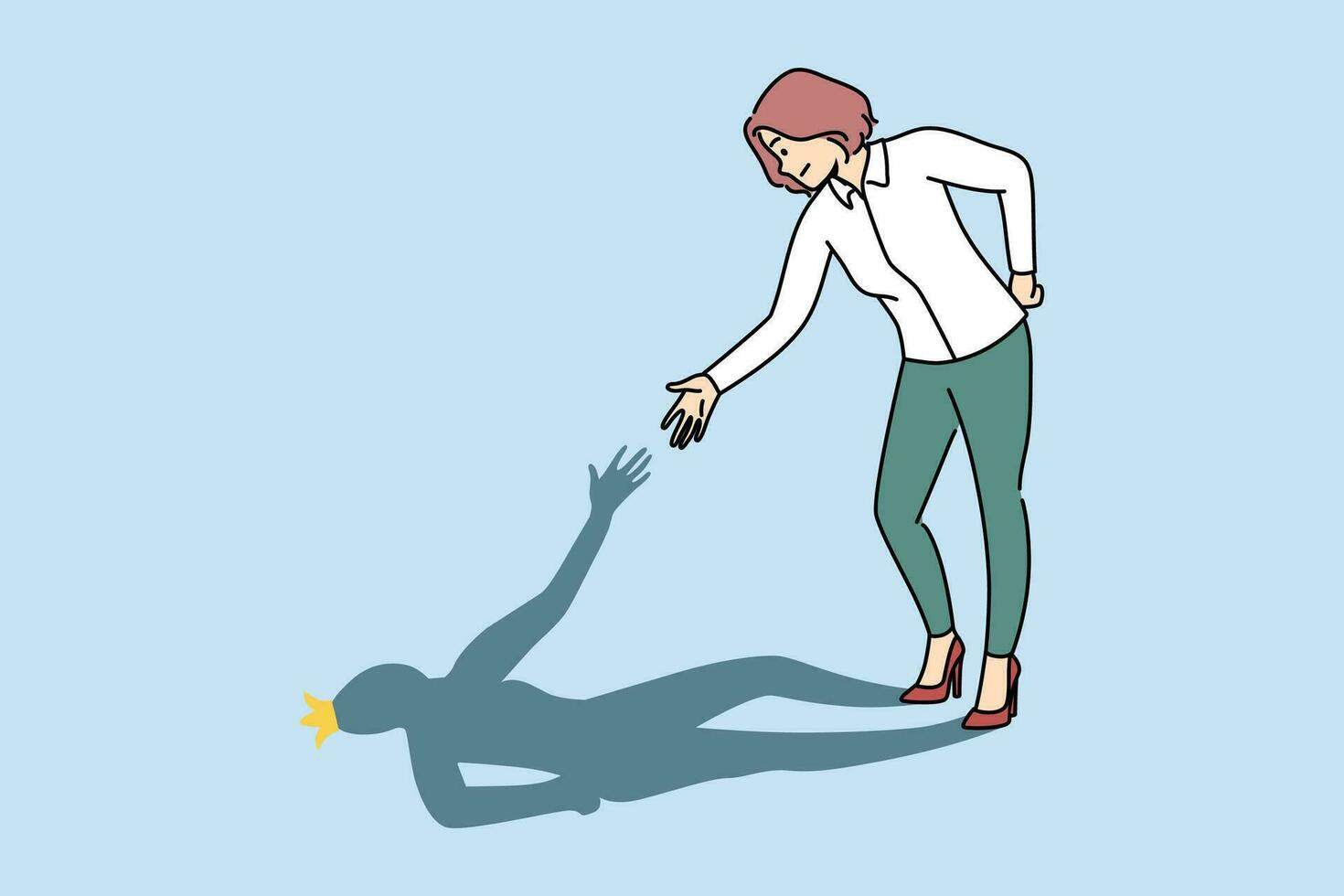
November 15, 2024 | This week is we read special readings for Parshat Vayeira. Read more about them here.
We’re all searching for happiness, growth and fulfilment - but what if we’re looking in the workng places?
It’s somewhat counterintuitive, but I think we are happiest when we don't focus on trying to be happy. We grow most when we aren't striving for self-growth. We live our best lives when we are focused on enriching other people's lives.
At our Coffee & Kaballah sessions on Shabbat morning, we have been studying Tanya - a spiritual guide to understanding ourselves and our role in the cosmos. It’s the foundational work of Chassidic philosophy and a revolutionary approach to Judaism and to life.
While some people refer to the genre of personal growth as self-help, the Tanya flips that on its head.
The usual approach to self-help topics - working through emotional problems, looking to become better people, striving for growth, searching for better relationships, trying to advance on the corporate ladder - are actually all rooted in a self-centered (albeit perfectly normal and natural) desire for personal fulfillment. Even our spiritual goals are often self-oriented and driven by ego.
Our discussions on Tanya have opened a different paradigm of living entirely. They have promoted an attempt to access our divine-consciousness that is mission-driven that challenges us to live for a higher and entirely selfless purpose. Ironically, the less we focus on ourselves, the better we feel about ourselves.
There's a beautiful story that illustrates this:
There was a fellow who wanted to have a spiritual experience of seeing Elijah the prophet. He went to his Rabbi for guidance and was instructed to spend Shabbat at a run-down shack at the end of town and bring a whole package of food with him. He followed the instructions and shows up at the door of a poor family, asking to stay for Shabbat. The family was ashamed to admit that they'd love to host him, but they literally had no food to serve. As soon as they saw the enormous amount of food the guest had brought along they welcomed him in.
The whole Shabbat the guest was waiting expectantly for the spirit of Elijah to be revealed to him, but alas, there was no sublime experience. Disappointed, he went back to his Rebbe and complained about the failed mission. The Rebbe told him that he had to do the same thing for the next Shabbos too. Having nothing to lose, he once again set out on Friday with a wagon of food to spend Shabbat with the impoverished family at the end of town.
When he pulled up to the hut, he overheard one of the children say something to their parents that made his spine tingle and his hair stand on end. "Dad," said the undernourished going boy, "do you think Elijah the prophet will come this Shabbat again with food so we'll have what to eat?"
The man immediately understood his rabbi's suggestion. He was looking for a profound spiritual experience, and he had learned that there was nothing deeper than the act of helping someone else. He himself could be someone's "Elijah". He was chasing a fleeting spiritual moment, a personal high, when in truth he had the ability to create something far greater through his own kindness.
This week's Torah portion opens when G-d visited Abraham during his recovery from his circumsision. Abraham interupted their conversation and walked out on G-d to welcome guests that came to his home. He interrupted the most profound personal spiritual experience - direct communication with the divine - to help strangers who were passing by his tent.
The sages learned from this episode a radical idea: “Welcoming guests is greater than experiencing the divine.” Abraham taught us that helping another person is more important, and perhaps more enriching, than a personal spiritual experience. Or, perhaps more precisely, helping someone else isn’t sacrificing your own spiritual and emotional needs, it is the greatest way of fulfilling them.
If you’re looking to grow and be a better person, don’t settle for self-help; try helping someone else. In the end, you'll find your best self when you focus on others.
Shabbat Shalom,
Rabbi Menashe Wolf
Living with Abraham
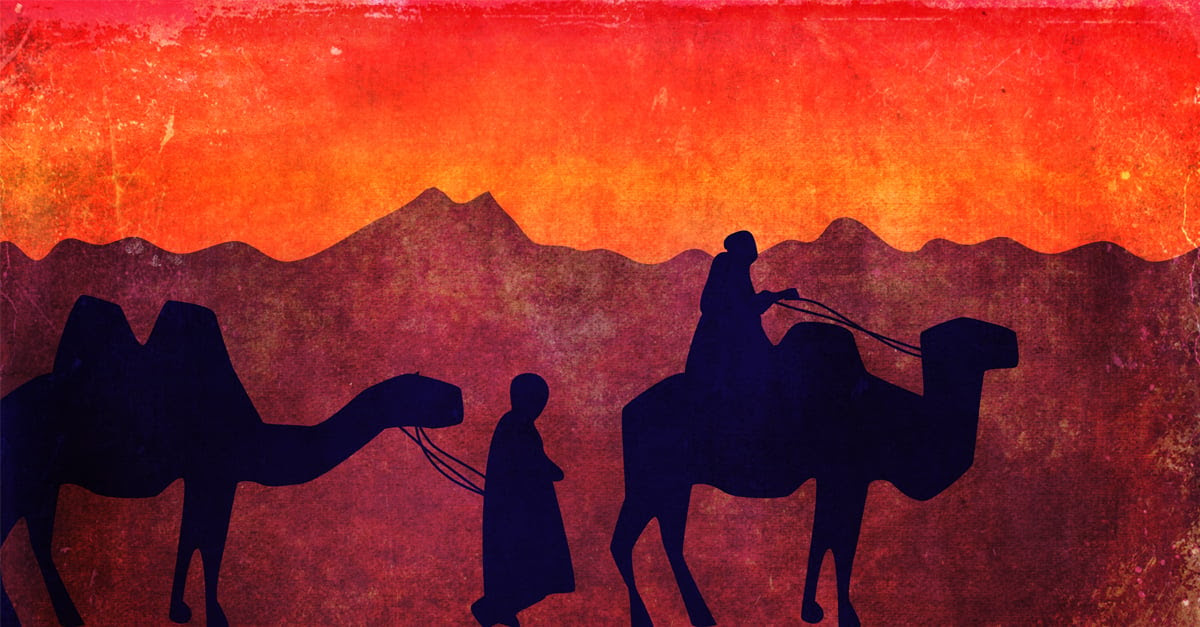
November 8, 2024 | This week is we read special readings for Parshat Lech-Lecha. Read more about them here.
At the opening of our first Living Parsha class this week (kicking off a weekly class on Tuesday evenings) I shared an aphorism from the founder of Chabad, Rabbi Schneur Zalman of Liadi (1745-1812), that “A Jew should live with the times” - which he later clarified to mean to live with the weekly Torah reading.
Having a weekly Torah portion isn’t just a convenient way of finishing the whole text throughout the year. Instead the content of the weekly portion should shape the character of our week. Its stories and narratives can guide us through our lives for the given week.
This is why I am a big fan of the new innitiative, launched by a broad group of organizations and philanthropists, that’s encouraging people to study the Parsha each week. The Simchat Torah Challenge has over 14,000 people already signed up and is connecting Jews across the country in Torah study. If you’re up for the challenge, I encourage you to join at simchattorahchallenge.org and join us on Tuesday nights for our Parsha discussion.
I want to share with you an idea that I shared at the class on Tuesday:
This week, we’re living with Abraham. His legacy and leadership is a guide to our work - both our inner work and our outward facing work - for this week.
Who was Abraham? And why was he selected by G-d to be the father of the Jewish people?
The Torah gives no indication. We’re first introduced to him as a 75-year-old, when G-d calls on him to head to (the future) Land of Israel and promises him the land and descendants: “God said to Abram, “Go from your land, from your birthplace, and from your father’s house, to the land that I will show you. I will make you into a great nation. I will bless you, I will make your name great, and you will become a source of blessing.”
What was he up to for the first seven-and-a-half decades of his life? What made G-d reach out to him? The Midrash fills in this gap and gives the following backstory:
“G-d’s calling to Abraham can be compared to a man who was travelling from place to place when he saw a palace lit up. He wondered, “Is it possible that the palace lacks an owner?” The owner of the palace looked out and said, “I am the owner of the palace.” So Abraham our father said, “Is it possible that the world lacks a Ruler?” The Holy One, blessed be He, looked out and said to him, “I am the Ruler, the Sovereign of the Universe.”
The simple reading of this Midrash implies that Abraham intuited faith in G-d through his scientific and philsophic exploration. Seeing a beautiful and perfect world convinced Abraham that there must be a creator and ruler to the universe.
But there’s another way to read the Midrash. The Hebrew word for “lit up” is ambiguous and can be read as “ engulfed in flames.” In this reading, it wasn’t the perfect design of the universe that compelled Abraham to reach out to G-d, but the fact that evil and corruption could exist within it. “Certainly,” Abraham assumed, “there must be an owner to this palace. Why isn’t he putting out the fire?”
In this reading, G-d’s first call to Abraham was not simply to say “I exist” but to flip the onus of responsibility onto Abraham. If you see a fire burning in the palace, it is your duty to extinguish it. If there’s evil in the world, it is your job to eradicate it. If there’s pain in the world, it is your role to heal it.
This was G-d's first words to Abraham: “Go from your land, from your birthplace, and from your father’s house, to the land that I will show you.” Leave your priors and space of comfort and go change the world!
We, the descendants of Abraham, are imbued with this same mission and calling, to heal the world by spreading a Divine message of truth and peace. It means leaving our comfort zone and engaging with a world that is sometimes hostile to our opinions and agendas.
We have to add light in a dark world. We have to go beyond the four walls of our lives to spread truth and peace. We have to embark on a journey to the Promised Land.
Shabbat Shalom,
Rabbi Menashe Wolf
A New World

November 1, 2024 | This week is we read special readings for Parshat Noach. Read more about them here.
This week' we’re going to read a story that is more timely than ever: The healing and restoration of a world filled of corruption and violence.
When humanity had reached its lowest point of moral disintegration, G-d brought a flood to destroy all life besides for Noah and his family who found a safe haven on the Ark that G-d had instructed Noah to build. He brought with him on the Ark the future of a new civilization: representatives of each animal and species to repopulate the world after the flood.
Torah is a living text whose meaning continues to reverberate with relevance. What lesson can we take from the Parsha to improve our world?
A better understanding of the flood story can teach us about healing our own chaos, both within our lives and the world around us. What was the purpose of the flood? Weren’t there easier ways for G-d to reset the world? Couldn’t He have found a way to inspire a mass change of heart?
The Midrash teaches that Noah was one of few people in history to experience a new world during his lifetime. He went into the Ark from one world and emerged at the end of the flood into an entirely new reality.
According to the Midrash, the flood wasn’t just about removing the bad actors within the world, it caused a fundamental shift in the world itself. It wasn’t the same world with a fresh start, but a new world entirely.
What had changed? Of course the world looked different: all living things were destroyed, there was literally no one else alive, no animals besides the ones in the Ark, and no vegetation. But is an empty world really a new world? Isn’t it just the same old world with less things in it? What does the Midrash mean that Noah stepped into a new world?
What had changed wasn’t the way the world looked, but how it functioned. The world of the original creation was the work of G-d and didn’t require any human input to create. Adam was born into a world of privilege: everything was given to him, and his descendants, on a silver platter.
The world was G-d’s story, and we – humanity – were just characters within it. Like hamsters running on a wheel inside a lab, we were subjects of G-d’s experiment, not partners.
This is the reason the world was able to be so corrupted - because there was no sense of personal responsibility. As recipients of Divine welfare, people didn’t feel responsible for civilization and its future.
But the flood changed that. The flood acted as a Mikvah of sorts, purifying the world and shifting the spiritual tectonic plates of reality. The forty days of rain are symbolic of the halachik measurements of a kosher mikvah: 40 seah. The world was put through a process of renewal and rebirth that changed its spiritual landscape.
When Noah stepped out of the Ark at the end of the flood, the world he entered may have looked the same as before, but the playingfield had shifted. Noah inherited a world that he would have to create and shape. While Adam entered a world filled with plants and trees, Noah had to plant them. While Adam was handed ready-made resources, Noah had to create them.
There was a new world order now. Humans would be tasked with partnering with G-d to shape the world and nurture it to be a better place.
Spiritually, this shift meant that human behavior would now alter the fabric of reality itself. Adam’s world was fixed and unchangeable. No amount of human effort could elevate it or invest it with more meaning. But Noah’s world was affected by human behavior, and he and his family – and all of us after them – were entrusted with the job of tikkun olam, fixing the world by expressing the Divine within it.
Perhaps the Midrash can be read a little deeper. It wasn’t just that Adam stepped into a new world, he stepped into a world that he had the capacity to constantly renew. Noah began the process of elevating the world and uncovering the divine purpose within it – a process that we are a part of today. And each time we do a Mitzvah, we recreate the world. We give birth to anew, better, reality
This is how the world was healed from its corruption and chaos. By empowering each person to be an integral partner in the creation of a better world, G-d gave us purpose and agency. Every time we add positivity to the world, we’re not just adding some light within the world, we’re reshaping the world with light.
The renewal isn’t visible to our naked eye, but that doesn’t mean that it isn’t taking shape. Every time we are kind to someone, each time we pray or celebrate Shabbat, whenever we study Torah – we are realigning the universe and imprinting it with a new energy.
We don’t know the exact effects of our actions, and how the new world we create takes shape. But we’re told by our prophets, that eventually our actions will add up, and they’ll bring world peace and an end to suffering and jealousy. Each Mitzvah we do changes the world a little, and together, they create a beautiful new world.
This is the Mashiach that we pray for – and work towards. May we merit to see this new world order take shape very soon!
Shabbat Shalom,
Rabbi Menashe Wolf
P.S. Do you like the messages you read here each week? Join me for a new weekly class every Tuesday evening where we’ll explore together meaningful and relevant messages from the Parsha that can elevate out lives (hopefully there'll be zoom option too).
Can We Celebrate? Filling Tears With Ink

October 25, 2024 | This week is we read special readings for Shmini Atzeret and Simchat Torah & Parshat Bereishit. Read more about them here.
I remember where I was standing exactly a year ago, on Shmini Atzeret, when I first heard the news coming out of Israel. It shocked us to the core. And as we kept learning more about the barbaric attack, the joy of Simchat Torah was pulled from under our feet. Could we dance while Jews were being murdered? Could we sing while our brothers and sisters were under fire?
We did sing and dance, albeit with heavy hearts. Jews have been through so much, but our tradition is what keeps us going. And we have a tradition of celebrating even in the most challenging times.
Now, a year later, we are faced with the same dilemma. How do we celebrate a day (on the Jewish calendar) that marks the murder of more than 1200 Jews and the taking of hundreds of hostages - many of whom are still in captivity? It is Simchat Torah, the day of joy and rejoicing, but it is also the first yarzeit of so many fresh kedoshim. What can carry us through this day and inspire us to be joyful in the face of such grief?
I’ve been thinking about this question for a long time. I know in my heart of hearts that we have to celebrate and keep the Simchat Torah rituals alive. While we mourned on October 7th— on Simchat Torah we will mark the pain in the same way our nation has for thousands of years. We’ll dance with the Torah that gave our people the strength to stand strong through millennia of trials. We won’t forget the pain, but we will celebrate the reason for our resilience. We will thank G-d for the gift of eternity.
It may seem insensitive to sing and dance on Simchat Torah this year. But to do any less is to give in to the terror. Celebrating Torah and our life brings honor to the victims and is what many of their families have expressed. Hamas attacked the Jewish people on Simchas Torah with the intention of destroying our joy and dancing. It wanted Jews to be paralyzed by fear and depression. So our response is to lift our morale as Jews, to lift the morale of our sisters and brothers in the Holy Land and in the entire world.
They aimed to destroy our Simchas Torah—our joy of life and of Judaism, our joy of Torah, and our connection to Eretz Yisroel, and to our history. We have to respond by dancing like never before!
A beautiful idea came to me this week as I was reading the final verses of the Torah that we’ll read on Simchat Torah. (Simchat Torah is a celebration of concluding the Torah; we read both the final parsha and start the new cycle of Torah reading from Genesis.)
Towards the end of the Torah, we read about Moses death and its aftermath, which raises an obvious question: Who wrote these last 8 verses? We know that Moses wrote the Torah (from G-d) - could he have possibly written about his own death?
The Talmud presents two opinions. Some say that for the entire Torah Moses was just transcribing the words that G-d dictated. These last 8 verses, which foretold his death and its aftermath, Moses faithfully transcribed in tears. Others suggest that the final 8 verses of the Torah were actually written after his death by Moses’ student, Joshua.
There’s a lot to say about this debate, but there’s a beautiful commentary by Rabbi Shmuel Eidels, a famed 17th century Talmudist commonly known by his acronym Maharsha, who explains that there isn’t really an argument and both opinions are true.
When the Talmud says that Moses transcribed the words through tears it doesn’t mean that he was crying while writing. It means that his tears actually formed the letters. After his death, Joshua then filled in the place of the tears with ink to complete the Torah.
I think this imagery is more than just a historical description. It is a guide to how we are to celebrate the Torah and imprint the Torah onto our lives.
There are Torahs written in tears - the Jewish story seared in our collective consciousness through pain and torture - and Torahs written in ink - the celebration of Jewish tradition and life that shapes our future.
Why was Moses crying? He wasn’t crying over his own death - he already knew that his end was near. He was crying because he foresaw the challenges the Jews would face after his passing. He shed tears for the Jewish suffering and loss.
Last Simchat Torah, the holy victims imprinted themselves into our tradition with tears.
Their loss shaped the letters of our Judaism that are the gaping hole left in our hearts, and the void left in their absence. This is the Torah that Moses left, sealed with the pain and sacrifice of the Jewish people.
But our job is to write the Torahs of ink - the Judaism of the future. To fill the letters left by the martyrs in their death with our Jewish life. To add light in the place of darkness. To push forward despite everything. To celebrate the future in the face of a tragic past.
It’s going to be hard, but this year’s Simchat Torah has to be even more joyous than ever. We have to celebrate for ourselves and for all those who were killed or are sitting in captivity and can’t celebrate.
The greatest way we can honor the victims is not to drown in their tears, but to fill them with our ink. To keep celebrating our life and our heritage when they cannot. We give their sacrifice meaning by being the voices for all those that can’t be heard any longer and the feet for those who can’t dance. The letters that they left is what creates the outline for our letters. And the letters that we write makes their’s complete.
Even if you don’t usually celebrate Simchat Torah - join us this year to dance with the Torah and parade our Jewish pride through the streets of Carroll Gardens. There’ll be a deli dinner, goodie bags for kids, dancing with the Torah and a parade through the streets with a police escort.
May our joy pierce the heavens and bring blessings for the return of the hostages, the success of the IDF, the safety of all of Israel and for the ultimate redemption when there’ll be a lasting peace.
Chag Sameach,
Rabbi Menashe Wolf
A Hug From G-d
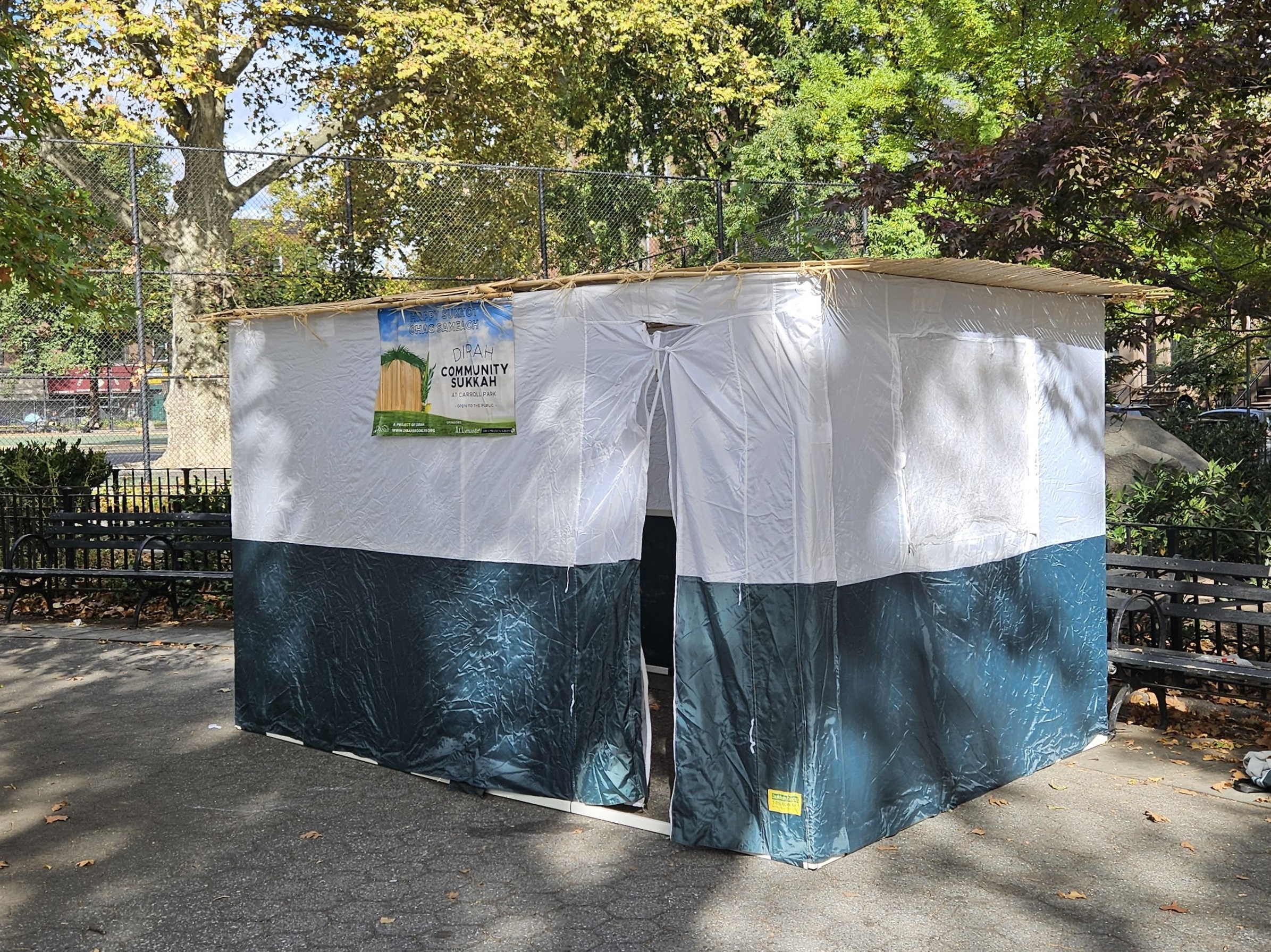
October 18, 2024 | This week is we read special readings for Sukkot. Read more about them here.
Before the closing service of Ne’ilah, I shared that the yardstick of a meaningful Yom Kippur is the day after. The goal isn’t to spend one day a year immersed in spirituality, through fasting and praying, but to gain perspective that will shape the other 364 days of the year.
In the ancient Temple service of Yom Kippur, the High Priest would return home right after his service, accompanied by all the Jews, and would throw a party. The Rebbe once shared that this highlights the ultimate goal of Yom Kippur: not the spiritual peak of the High Priest entering the Holy of Holies, but translating that back into his home. To bring the Divine into every area of life and to live more Jewishly within the mundane daily routine.
And it was beautiful to see the response to this call - so many of you committed to channel the Yom Kippur inspiration by taking on a new Mitzvah for the new year.
This might be why Sukkot is right after Yom Kippur. It’s strange timing for the Holiday. Sukkot commemorates the huts or divine clouds that protected the Jews when they left Egypt. So why isn’t it right after Passover - when the Jews starting needing the protection? Why do we celebrate it half a year later?
The Sukkah is a unique Mitzvah - it engages the whole person. This is true both literally and figuratively. Every limb of the person participates in the Mitzvah of dwelling inside the Sukkah (as opposed to most other Mitzvahs where only one limb is active). And every area of a person’s activity is also enjoined. We are supposed to use a Sukkah as we would our home: eat and drink there, and also read, play games, lounge, sleep and every other respectful activity you’d do in your home.
And when you do those activities in the Sukkah, you are activating sacredness. You fulfil a Mitzvah by simply eating and sleeping. Every day activities become part of Divine service.
Sukkot is the High Holidays translated into real life. Where Yom Kippur finds sacredness in the synagogue, Sukkot finds it at home. While Yom Kippur introduces spirituality through transcending the material, Sukkot transforms our material lives into something spiritual. Sukkot teaches us that every part of our lives can be elevated and purposeful.
There’s a beautiful spiritual teaching about the structure of the Sukkah. A Sukkah has to have a minimum of 2 full walls and the begining of a third wall. This requirement is by no means by chance. The famed Kabbalist, the Arizal, suggests that the shape mirrors an arm giving a hug: the upper arm, the forearm, and the hand.
The Sukkah is G-d’s loving embrace. After all of the work of the High Holidays, G-d extends His “arm” to hug the Jewish people.
And the message of the Sukkah hug is simple yet poignant: your whole self is embraced by G-d. Every part of your existence is part and parcel of your purpose. Every facet of our personality and routine can be a part of the Divine embrace.
Chag Sameach,
Rabbi Menashe Wolf
Shana Tova!
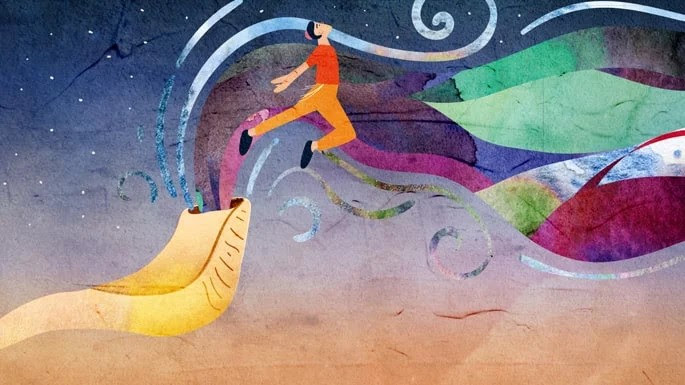
October 2, 2024 | This week is we read special readings for Rosh Hashanah and on Shabbat Parshat Haazinu. Read more about them here.
A version of this message appeared in the Dirah High Holiday Handbook. It has been edited for the Dispatch.
Shana Tova friends!
This past year has been a challenging one. Since the horrific massacre on October 7, our world has been turned upside down. From the war fronts in Israel to the streets of New York and around the world, Jews have faced unprecedented hate and have been called upon to defend our faith and right to exist.
Yet, this year also brought us together is unprecedented ways. Jews around the world banded together in support of Israel and each other. Within the darkness there was profound light.
And today, on the cusp of a new year, we have a brand new wave of hope and potential. Rosh Hashanah begins this evening, and its two days of celebration launch us on an emotionally charged spiritual journey that lasts an entire month and reverberates for the entire year.
The Jewish mystics explain that a new year isn’t simply a convenient construct to measure time, but a new cycle of energy. Each year creation is renewed with a lease of life for the coming year. We hope and pray that the year 5785 bring with it a whirlwind of goodness and be filled with meaningful and honey-sweet experiences.
It’s not by chance that the literal meaning of Rosh Hashanah is “Head of the Year.” In the human body, the head isn’t only the top or beginning of the body, but is the command center for the whole person, controlling our movement, feelings and all other experiences.
As the head of the year, Rosh Hashanah is the nervous center of the year, bringing a new energy into our lives and the world that manifests throughout the year. The 48 hours of Rosh Hashanah are potent and we have the ability to manifest blessings for ourselves and the world for the whole year.
Best wishes for a year of peace and a year of physical and spiritual nourishment and satisfaction. May our brothers and sisters in Israel have safety, security and success and may you and your family be inscribed for a good and sweet new year!
Shana Tova!
Rabbi Menashe Wolf
Moses’ Final Act To Ensure Jewish Continuity

September 24, 2024 | This week is Parshat Nitzavim-Vayelech. Read more about it here.
It would have been a difficult moment for Moses.
For the past 40 years, he had led the Jewish people, guiding them from their very beginnings until they had matured and were ready to enter Israel. And now, on the eve of his passing, he had to face the fact that he wouldn’t lead them there. He was preparing for succession, aware that his beloved people would enter the land without him.
Beyond the personal devastation of being barred from realizing his dream of making it to Israel, I imagine he would have been worried about the future of the people.
Moses had been the Jews' guide and shepherd since their inception. He had tended to their every need, been a stable source of Divine wisdom and guidance, and stood up for them in the face of Divine anger. Now they were entering into a new phase of life with a new set of challenges, and he wouldn't be there to support them.
Where would they go from here? Would they be able to meet the challenges ahead of them? Would Yehoshua manage to lead with strength? He must have wished he could be there to hold their hands as they navigated this challenge.
On the last day of his life, G-d instructs Moses to call Joshua for a final succession meeting where G-d would outline the Jews’ future.
G-d addresses Moses doubts about the Jews’ future, but not in the way you'd think. He opens with a frightening prediction:
"Behold, you are [about to] lie with your forefathers, and this nation will rise up and stray after the deities of the nations of the land, into which they are coming. And they will forsake Me and violate My covenant which I made with them. And My fury will rage against them on that day, and I will abandon them and hide My face from them, and they will be consumed, and many evils and troubles will befall them."
It seems G-d is confirming Moses’ doubts about the Jewish future. It seems bleak. But the continuation of G-d’s monologue tells us something else. It paints a picture of hope:
"And now, write for yourselves this song, and teach it to the Children of Israel. Place it into their mouths, in order that this song will be for Me as a witness for the children of Israel... And it will be, when they will encounter many evils and troubles, this song will bear witness for them, for it will not be forgotten from the mouth of their offspring."
G-d was sharing the harsh reality of Jewish history alongside the secret to Jewish continuity.
Yes, the Jews will inevitably struggle. Getting on their own footing will be difficult. Chances are they will falter. And they may suffer. But that is the price you need to pay for them to grow up. If you don't allow them to fail, they'll never succeed.
But, most importantly, they have what it takes to overcome their challenges. G-d tells Moses to write the Torah - the moral and spiritual guide for the Jewish people - and give it over to the nation. Share with them the tools that they need and, eventually, it will stand by them. The strong foundation in Jewish faith, traditions, and values will ensure that they can overcome their challenges.
This has been our lot over the course of history. We have suffered and faced oppression and persecution, but are still here to tell the story. The unshakable commitment to Jewish faith and ideals has kept our fragile people going.
And this is the final act of Moses’ leadership and how he spent the final day of his life: writing the Torah and sharing it with the Jewish people.
This is a profound message for our times. We are about to enter a new year, faced with uncertainty and the unknown. So many things that we are used to take for granted about ourselves, our community, and our society, have been shattered.
We can search everywhere for a guiding hand, for someone to tell us that they can fix the situation. But ultimately, we have what it takes to get through this.
Our greatest strength is the Torah. We need an army. We need to advocate for our rights. We need to stand up against antisemitism and hate. But above all, we need a strong internal identity. The miraculous success and story of the Jewish people depends on it. As Jews, we have the faith and traditions that are a wellspring of strength and inspiration. They chart a moral path, set our religious goals, and speak the language of our souls.
This was G-d’s promise to Moses, just hours before his death. The Torah will be an eternal witness, a guiding voice for the Jewish nation that will center them and ensure their continuity. Moses won't be with them, but his Torah will.
Shabbat Shalom,
Rabbi Menashe Wolf
Are You Alive?
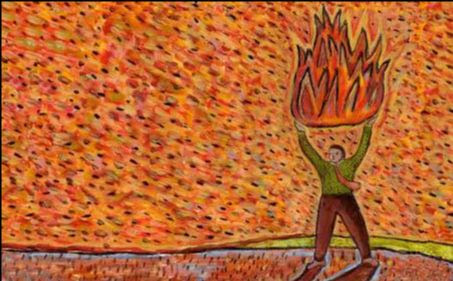
September 20, 2024 | This week is Parshat Ki Tavo. Read more about it here.
Are you alive? Well, if you’re reading this we can safely assume that you are. But do you feel alive?
We can go through the motions of life and not feel the vibrancy and enthusiasm in it. Our bodies are alive, but it all feels hollow and empty.
We can feel this in certain relationships. We feel it sometimes with our work. And we can also feel this way sometimes with our Judaism.
We do the right things, but don’t feel connected with it. We go through the motions but don’t feel the fire and drive.
The body is there, but not the soul.
This dichotomy is a foundational idea of Chassidic thought and is especially relevant this week.
Tomorrow, the 18th of Elul, is the birthdays of two of perhaps the greatest Jewish revolutionaries of modern history - a pair of rabbis that you may not have heard of: Rabbi Israel Baal Shem Tov (1698-1760, founder of Chasidism) and Rabbi Schneur Zalman of Liadi (1745-1812, the founder of Chabad). These two mystical giants reframed Judaism in such a profound way that their contributions have seeped into Jewish thinking and language across the spectrum of the Jewish world.
How do you know when a revolution is successful? When its ideas are so mainstream that they aren’t considered revolutionary anymore.
The greatest revolution of Chabad is not the thousands of Chabad centers around the world or the outreach model that seeks to unite all Jews without judgement. It is something far deeper and much older than that. It is the ideology that inspires the Chabad centers - the chassidic philosophy. The only reason you may not be familiar with it is because its influence has seeped into all other streams of Jewish thought.
Some of the central ideas and beliefs that are shared across the spectrum of Jewish communities and affiliations today are rooted in their teachings: The primacy of Ahavat Yisrael, loving each Jew. The notion of Judaism as a relationship with G-d. The belief that everything happens for a reason and is part of the Divine plan. The power of prayer. The spiritual framing of Judaism.
There’s one central idea that animates almost all of these teachings: the existence of a soul. Everything in the world has an inner dimension and purpose that animates it and gives it meaning - and the soul of each thing and experience is its real identity. This is perfectly illustrated by a story:
Rabbi Schneur Zalman, the founder of Chabad, was once playing with his grandson and asked him: “where is Zeide?” The young boy pointed to his venerable grandfather’s head. The Rebbe said, “This is the head, not Zeide.” The child then pointed to his grandfather’s heart and said, “This is Zeide.” He responded, “This is the heart, but not Zeide.” The grandson continued to point to the other parts of his grandfather’s body but the Rebbe kept insisting that those were specific limbs of Zeide, but not Zeide.
Seeming to give up, the child climbed down from his grandfather’s lap and began walking around on his own. When he approached the door, he pretended that his fingers had gotten caught in the door and began to yell, “Zeide, Zeide!” The Rebbe quickly turned to the young boy with concern and said: “What is it my grandson; what happened?”
The child stood up and said: “This is Zeide!!”
The notion of a soul changes the way we look at and experience everything.
It changes the way we look at people: When we look at people as a soul, we value them and look at them differently. You love and appreciate everyone, irrespective of their external “body”. You don’t judge them by their political leanings, by their race or by the way they present themselves today. You see them as a beautiful soul that wants to live for something higher and connect to their purpose.
It changes the way we can frame our lives. Instead of focusing on what we do, on how people look at us, on how much wealth we can amass etc. - all defining features of our life’s “body”- we can focus on finding meaning and purpose in what we do.
And it changes the way we look at Judaism. Judaism has a body and soul. The practical rituals and mitzvahs are the body, and the relationship with G-d that underlies the practice is the soul. Instead of seeing Judaism as a set of practices and rituals, focusing entirely on the do’s and don'ts, we focus on the spiritual meaning and our practice is animated by a meaningful relationship with G-d.
As we mark the birthdays of these two great Jewish revolutionaries, let’s all take a moment to focus on what makes us alive. Let’s focus on identifying the “soul” of everything we do, the “soul” of all those around us and the “soul” of our Jewish identity and practice.
Investing in our souls and in the soul of our lives is the best investment we can make as we prepare for a new year.
To celebrate the birthdays, I will be giving a short class on Shabbat morning at 9am on one of these Chasidic teachings about the soul and how it shapes our perception of others. Please join me at our home, 480 Smith St. #2 for some coffee and study.
Shabbat Shalom,
Rabbi Menashe
Terror’s Real Target

September 13, 2024 | This week is Parshat Ki Teitzei. Read more about it here.
As I looked up this week at the twin beams of light stretching to the sky, I reflected on what happened 23 years ago on 9/11 and what is happening today in Israel.
My mind went to the end of this week’s Parsha that focuses on the war against evil and has an important lesson on the threat of terror.
“Zachor et asher asa lecha amalek - remember what Amalek did to you.” There is an eternal mitzvah to remember the evil and barbaric attack that Amalek sprung on the Jews in an attempt to wipe them out as they left Egypt.
We have faced many threats over our history and there's no shortage of enemies that have attempted our destruction. Why is Amalek singles out to be cemented in our collective memory? True, they were the first to attack the newly formed nation. But is there something else that sets their attack apart?
Amalek was unique. They weren't fighting for territory (the Jews were still wandering the desert), nor ideology or revenge (there had been no interaction between the two nations this far). They were solely driven by hate and an irrational animosity towards the chosen people.
Truthfully, Amalek’s greatest threat to the Jewish people wasn’t the physical attack. According to tradition they only attacked the stragglers and couldn’t penetrate the main Jewish camp.
A close look at the verse describing Amalek’s offensive sheds light on their real motive of terror. “Asher karcha baderech - how he [Amalek] chanced upon you on the way.” The word for “chanced” (karcha) is related to the word “cold” (kar) - which the commentaries see as a clue to Amalek’s real intention: to cool off the Jewish people's deterrence and their enthusiasm and faith.
Amalek wanted to sow terror in the Jews’ hearts and to break their image of Divine protection. They aimed to cause disunity, disillusion and doubt. In fact, the Chassidic masters point out that the numerical value of the word Amalek equals the same as safek, which means doubt.
Amalek didn’t only care to kill the Jews’ body, but aimed to break their spirit. They wanted to pit the Jews against themselves, against each other and against G-d.
This is the prototype for terror throughout history, including what we’re facing today. It doesn't (only) want to kill. It aims to fracture our nation, crush our spirits and break our hope.
And we’re seeing this play out today. The impossible choices that Israel has to face in responding to Hamas’ terror are dividing the nation. The misguided moral response from so many people have sowed doubt into people’s minds - convincing them that the violent terror is somewhat justified. And the current struggle against terror has caused many Jews to hide their Judaism and question our future.
These aren’t accidental aftershocks of the terror, but its central strategy. As we fight and support the war against evil, we have to ensure that it brings us together and doesn't divide us, that we maintain our moral compass, and remain proud and strong Jews. Otherwise, even if we are victorious on the battlefield, the terrorists win.
Perhaps this is why Torah instructs is to remember Amalek (it's actually a mitzvah to read this passage each year): Not only to remind us that evil exists and it is our job to fight it, but also to remind us how to fight it. Not to allow our enemies to terrorize us into disunity, distrust and doubt and instead be united, courageous and proud.
Shabbat Shalom,
Rabbi Menashe
The Light that Gave This Hostage Strength
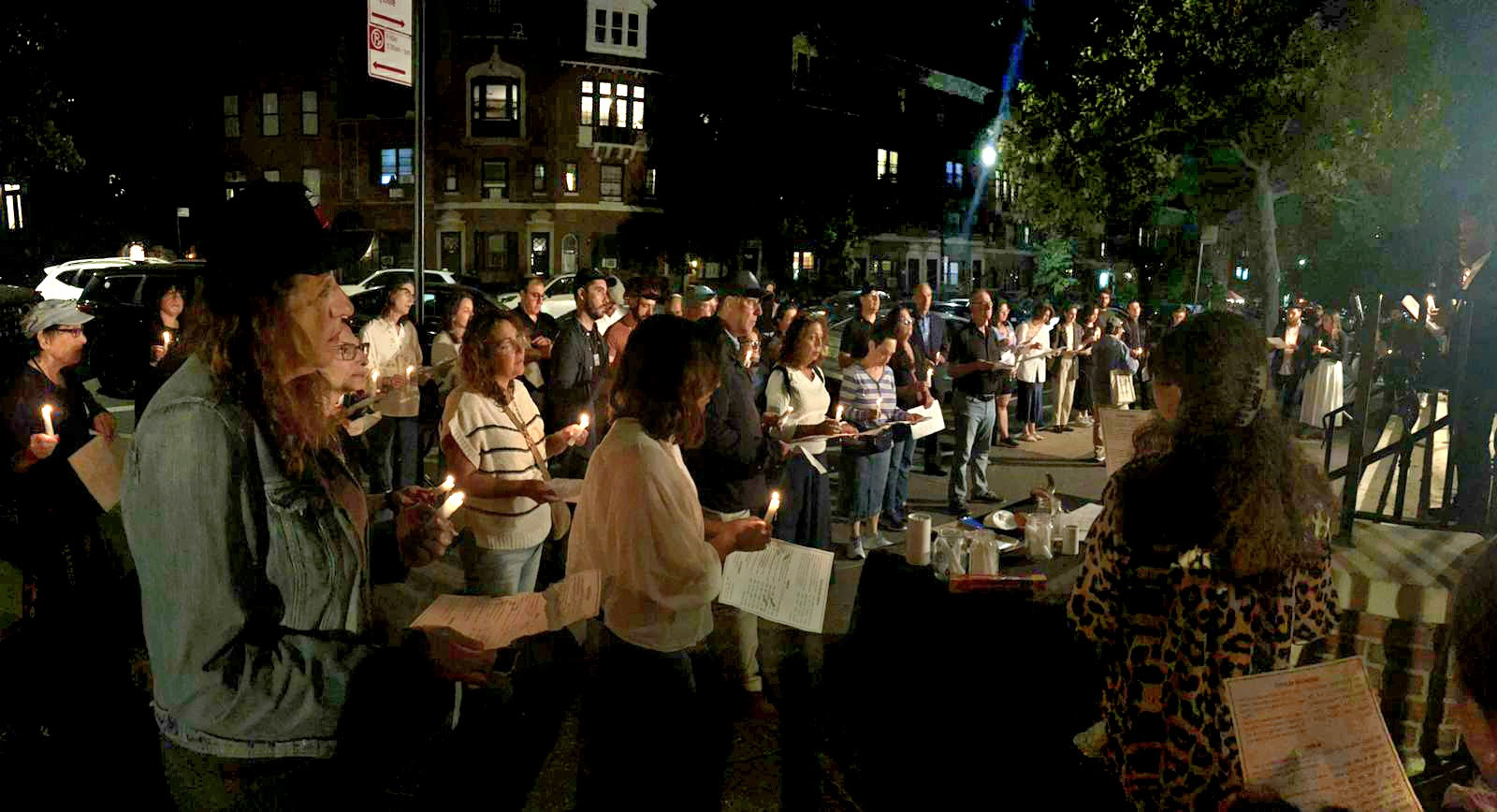
September 6, 2024 | This week is Parshat Shoftim. Read more about it here.
What gave Sapir Cohen the strength to survive 55 days of Hamas captivity?
On Wednesday evening we gathered for a vigil to pray, sing and memorialize the six hostages that were executed. Jews from across Brooklyn huddled together, each with a candle in their hand. The small flickering flames were outshined by the light emanating from the hearts of everyone gathered.
It was a powerful event. Strangely, although we were there to mourn, I walked away uplifted. There was so much pain, but also deliverance. We sang the memorial prayer of Kel Maleh but we also sang prayers of faith and hope. Uniting with so many neighbors in our shared care for our fellow Jews was cathartic and inspiring.
In my remarks at the vigil, I shared that the power of Jewish resilience is the courage to choose to have faith despite the overwhelming grief. This faith unites us together as Jews and gives us the strength to push forward. It is a self-fulfilling prophecy: our faith in a better tomorrow actually creates it.
It’s no coincidence that this week also began the Jewish month of Elul. It is the month that leads up to Rosh Hashanah and in our tradition is a preparation for the High Holidays. It is a time of reflection and introspection and we blow the shofar every day. It is also a time of profound spiritual accessibility. The mystics teach that in Elul, the “King is in the field;” in this month G-d is more accessible than ever.
This is a time when we can strengthen our faith and resolve. There’s a custom to recite chapter 27 of Psalms every day of month and through the High Holiday season. It is a beautiful Psalm and a profound meditation on faith and confidence in G-d’s protection. Many Jews say it twice a day during this moth, and I encourage you to read it. Here are some excerpts (read the full Psalm here):
The Lord is my light and my salvation; whom shall I fear? The Lord is the stronghold of my life; from whom shall I be frightened?
When evildoers draw near to me to devour my flesh, my adversaries and my enemies rise against me-they stumbled and fell.
If a camp encamps against me, my heart shall not fear; if a war should rise up against me, in this I trust.
Hope for the Lord, be strong and He will give your heart courage, and hope for the Lord.
Right now the need for this prayer is more pertinent than ever, and I recently heard an incredible story that made it all the more significant.
Sapir Cohen was in Hamas captivity for 55 days. She was taken hostage with her boyfriend, Sasha Trupanov (who is still in captivity) and suffered almost two months of Hamas torture.
After she was freed, she shared something incredible that gave her the strength to stay alive in the tunnels of Gaza. (You can watch her tell the story here.)
Months before October 7, Sapir had a premonition that something bad was going to happen to her. She felt that she may have some illness, but the doctors couldn’t find anything.
It was eating away at her and she didn’t know what to do about her gnawing anxiety. In September of 2023 - during the month of Elul - a post came up on her Instagram feed about the custom to recite Psalm 27 for 30 days as a powerful prayer against any bad things. Despite not being the praying type, she decided to say the passage every day for 30 days. As she read it, it dawned on her that the Psalm spoke about G-d saving King David from war and not illness. She didn’t know how that related to her life, but she pushed on with the commitment anyway.
The 30th day of her commitment was October 7. That morning, she understood the Psalms relevance. And during the entire time of her captivity, she said the Psalm every day. It was the only prayer she knew. It gave her strength and faith and helped her withstand the physical and emotional abuse she endured. It saved her life.
Sapir’s strength and faith gives me faith and hope. And has injected added significance to my daily prayer of Psalm 27. We can choose faith, and our prayers are powerful tools to boost our own faith and to add positivity to the world.
At the vigil I closed by sharing that as Jews we mourn the loss of a single life as the loss of a world. But just as we value the power of a single person in death, we have to see the power of a single life. Every one of us is a world and our prayers and mitzvot make a different.
Let’s commit to taking an extra few moments a day to pray for the hostages, for the brave soldiers of the IDF, for all of Israel and for Jews around the world. Let’s pray for peace, security and safety. Let’s recite Psalm 27.
Shabbat Shalom,
Rabbi Menashe
Jerusalem is Not a Destination
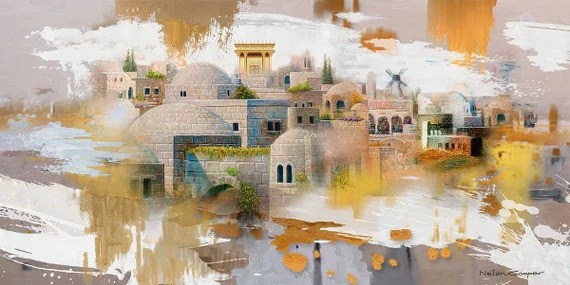
August 30, 2024 | This week is Parshat Re’eh. Read more about it here.
I’ve often heard people say (and have said it myself on occasion) that if you don’t know where you’re going you can’t get there. To achieve success, according to conventional wisdom, you have to have a clear goal and objective which defines your path to get there.
And most of us like to follow this wisdom, because it puts us in control of our lives. We know exactly where we’re headed and have clear steps to get there.
But looking at success as a destination with the narrow focus on achieving future goals can rob us of truly experiencing the present. We’re always evolving as individuals and the world changes rapidly. If we get stuck on trying to reach a destination we can miss new opportunities and possibilities. We have to (also) see success as a mindset, as a way of approaching the present moment.
Throughout Deuteronomy there’s constant reference to the future Temple that would be built once the Jews settle in Israel. The phrase “the place that G-d will choose to dwell” or a variation of it appears 21 times - but for some strange reason, Torah chooses to keep the exact location vague and mysterious. We now know it as a reference to Jerusalem, but holiest site in our tradition, the eternal capital of the Jewish people, is notably missing from the Five Books of Moses.
Many scholars and commentaries paid attention to this and offered a range of reasons. Maimonides suggests a practical reason: If the significance and sanctity of Jerusalem would have been made known, the other nations would have done all they could to seize it and maintain power over it, not allowing the Jews to settle there. Alternatively, the Jewish tribes would have fought over that piece of land, each wanting to claim it as their own. Others suggest that it would have discounted the places of worship other than Jerusalem.
But, like everything in Torah, there’s another, more profound, layer of interpretation.
The Temple was meant to be a microcosm of the entire Jewish project. Judaism is an effort to make G-d present in our lives and in the world and we are meant to be the ambassadors of light unto the nations. Every Mitzvah channels the Divine into the world and connects us with the transcendent G-d.
The goal of the Temple was to have a physical address for the spiritual experience. It was a space where the Divine reality would manifest in our world. A place where man connected with G-d, where heaven and earth met.
For the spiritual experience to be authentic it had to be initiated by the Jewish people. If G-d would impose His presence on us, it may be inspiring but it wouldn’t be lasting. We wouldn’t own it and it wouldn’t connect with who we are.
The Midrash reads this idea into the text of the Parsha. In one instance of “the place that G-d will choose” in this week’s Parsha, the verse continues: “you should seek His dwelling and come there.” In this reading, the second half of the verse as a commentary on the first half. The reason why G-d didn’t tell the Jews where His eventual home would be is because He wanted them to seek it on their own. The place existed, chosen by G-d. And eventually, a prophet would have to confirm it. But the Jews were empowered to search for the perfect spot on their own. G-d wanted them to seek Him.
When they would initiate the relationship with G-d and have to seek out the Divine experience, then, when it was reached, it would be genuine and integrated into the human experience. The Temple wasn’t just a place but a process. Jerusalem wasn’t just a destination but a journey.
And it took the Jews a while. They didn’t build a Temple in Jerusalem as soon as they settled in Israel. In fact, Jerusalem was one of the last areas of Israel to come under Jewish control and was only conquered 400 years after the Jews settled Israel! During that time, there was no permanent Temple. Seeking G-d is a process and the Jews hadn’t found what they were looking for.
There’s a profound lesson here for our Jewish journeys and lives in general. Success isn’t only about where we reach, but how we get there. The journey is the destination. Life isn’t about a checklist of accomplishments, but living fully in each moment and searching for authentic engagement with ourselves, our families and the world.
Shabbat Shalom,
Rabbi Menashe
School’s Out. Education’s In.
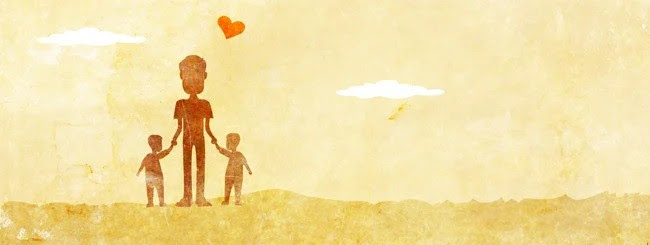
August 23, 2024 | This week is Parshat Eikev. Read more about it here.
We're deep into August and the summer is quickly slipping away. In just a couple of weeks kids will be back in school and we'll slide back into our regular routines.
But even though school is out, children's learning hasn't stopped. The time that we have now with our families, when the kids are out of school, is actually the most important part of their education.
In this week's portion, we read of the responsibility that parents have to teach their children and provide them with an education - a revolutionary Jewish mitzvah that has shaped the modern value of education. But more than just a directive to educate, the way the mitzvah is recorded also teaches us how to educate.
The Mitzvah of education is actually written twice in Torah:
In last week's Parsha we read the famous passage of Shema that we say daily in our prayers. Within that passage we are instructed: "You shall teach them to your children."
This week's Parsha has a passage that is remarkably similar (and was actually adapted to be the "second paragraph of Shema") which repeats again the imperative to educate: "You shall teach them to your children."
Despite the similarity between the two passages, there are a few notable differences between them.
The first passage is written in singular and the second in the plural; the second passage introduces rewards for following the Divine directives and the consequences of ignoring them, while the first makes no mention of it; and the first passage includes the "all-in" directive to love G-d with "all your might" - explained by the rabbis as meaning with all of your possessions.
But perhaps the most stark difference between the two passages is the order in which they present the Mitzvah to educate our children: In the first passage, the mitzvah of education is followed by the directive to wear Tefillin, while in the second passage, the practice of Tefilin comes first and only then the directive to educate.
One way to understand the difference between these passages is that the first speaks to the aspirational ideal and second to the practically lived experience.
The first Shema passage talks to a model individual living in a perfect world. The second passage is addressed to the masses and speaks to the real-life experience of the average person. Which explains many of the nuanced differences, particularly the change in the order of education and Tefillin.
In an ideal world, growth is linear and the knowledge that we learn guides the way we live. A child's growth begins with formal education - being taught information and ideas - which impacts and shapes their behavior. That's why the first passage of Shema begins with the academic instruction (to teach our children) and then to concrete practice ("wearing Tefillin is equivalent to all mitzvot”—Talmud Kiddushin 35a).
But in reality, life isn't so neat. We don't live in a vacuum and our thinking is formed by our surroundings. More often than not, our experiences inform our perspectives and not the other way around. The way we behave shapes the way we understand and learn. Our education doesn't begin with what we learn, but with what we see, do and experience. So the second paragraph of Shema is pragmatic and promotes the practice before the study.
A child's home environment informs their educational success. Their foundation is formed by what they observe at home, the choices they see their parents make, and the behaviors they are guided in. The classroom learning is filtered through the lens of those experiences.
The most important educational tool is for parents to live a life in line with what they want their children to grow into and to promote those behaviors to their children. First walk the walk and then talk the talk.
This is true of all education, but especially Jewish education. No amount of classes or Hebrew school sessions can impart the sense of Jewish belonging and connection that are given over by the Jewish practices that are observed at home.
If you want your child to value Judaism and feel connected to our heritage, raise them in an environment of Jewish values and traditions. If you want your child to live with Jewish values and ideals, practice them at home. If you want them to know about Judaism, share it with them.
An impressionable child that sees their parents steeped in Jewish values and practice will want to follow that tradition, be eager to learn about it, and appreciate its lessons.
Schools are important and it is crucial to invest in quality Jewish education - whether in a Jewish day school or Hebrew school - but we have to remember that the key to our children's learning is in our hands. We teach them by the environment we create in our homes and by the examples we set.
Shabbat Shalom,
Rabbi Menashe
Shabbat & Slavery
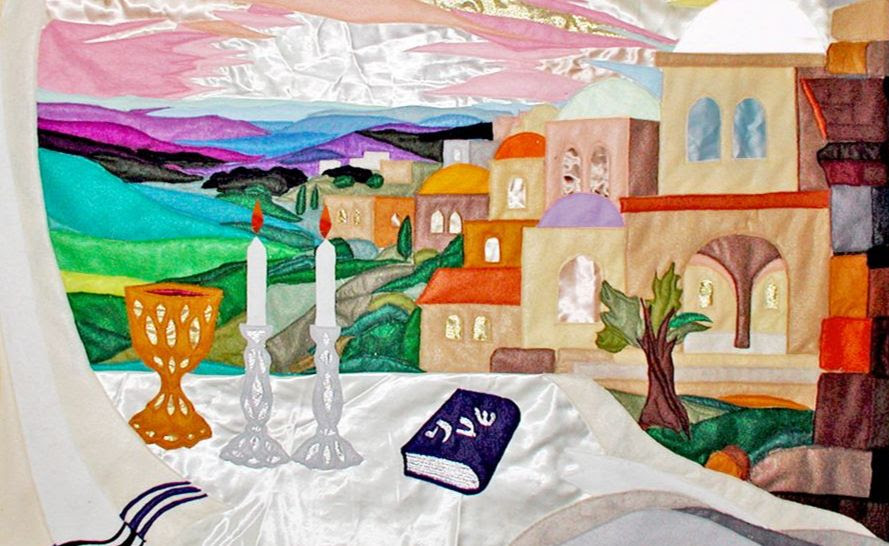
August 16, 2024 | This week is Parshat Va'etchanan. Read more about it here.
Tell me if this sounds right: The reason we rest on the seventh day of the week and observe Shabbat is... because the Jews went out of Egypt.
Don't see the connection? It's not what you learned in Hebrew School?
Well, it's the reason given in the 10 Commandments as they are recorded in Deuteronomy:
"And you shall remember that you were a slave in the land of Egypt, and that the Lord your G-d took you out from there with a strong hand and with an outstretched arm; therefore, the Lord, your G-d, commanded you to observe the Sabbath day."
If this version of the Shabbat commandment sounds unfamiliar to you, there's good reason for that.
The 10 Commandments are recorded twice in Torah. The first time in Exodus, as part of the main narrative, and again in this week's Parshah when Moses repeats them to the Jews at the end of his life as they prepare to enter Israel.
There are slight variations in the text of the Commandments, some minor and others more significant. One of the big changes is the reason for observing Shabbat.
In the first version we're told (the classic reason) to observe Shabbat because "in six days the L‑rd made heaven and earth, the sea and all that is in them, and rested on the seventh day." But the fourth commandment is revised in the retelling and Shabbat observance is connected to the Exodus from Egypt.
If you pay close attention to the Kidush on Friday night, you'll notice that we weave in both reasons:
Blessed are You, Lord our G‑d, king of the world, who made us holy with His commandments and favored us, and gave us His holy Shabbat, in love and favor, to be our heritage, as a reminder of the Creation. It is the first of the holy festivals, commemorating the exodus from Egypt.
It's pretty straightforward how resting on the seventh day commemorates G-d resting on the seventh day. But how is leaving Egypt a reason to rest on Shabbat?
Shabbat is an important ingredient to a successful and purposeful life. When life gets overwhelming, it's inevitable that things begin to control you instead of the other way around. You become chained to your job, dependent on your vices, stressed by your responsibilities and glued to your phone. You become a slave to the things that are meant to service you.
When the Jews left the slavery of Egypt, G-d knew that freedom would soon enough drag them into this form of slavery, so he instructed them to rest on Shabbat. One day a week they had to break from creative work and allow themselves to focus on what is important to them, realigning themselves with their purpose. A whole seventh of the year (and if you include the Holidays - one fifth of the year!) would be dedicated to thinking about G-d, the purpose of creation, and their role in the world.
Observing Shabbat provides the inner framework for a liberated life. Being able to take a break from work, social media, and other pursuits, and invest in your personal and spiritual growth, your family and relationships, and your connection to G-d and your purpose, helps you remain in control. Sanctifying this day of rest--through lighting the Shabbat candles, Kiddush at Shabbat dinner, and prayer services--cements the spiritual and more meaningful pursuits as your guiding light and your soul as your truest self.
So when Shabbat comes around this evening try turning off the TV, shutting down your phone and computer, and letting go of everything that controls you. In the absence of all the external things vying for your attention, take the time to reconnect with your self, your loved ones and with your Divine purpose. Welcome the warmth and sanctity of Shabbat into your home and life by lighting the Shabbat candles (before sundown), making Kidush and celebrating Shabbat with your family.
Shabbat Shalom,
Rabbi Menashe
Hope Within Tragedy: This Year's Reversed Tisha B'av Message
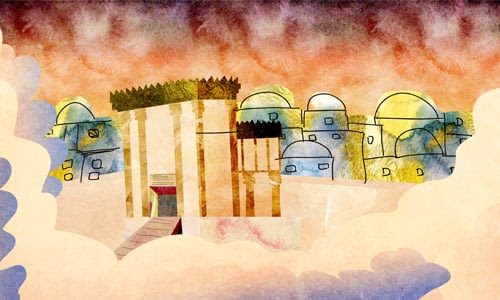
August 9, 2024 | This week is Parshat Devarim. Read more about it here.
Destruction in Israel. Jewish suffering. Alienation of our Homeland. Massacre of Jews. Loss. Mourning.
These terms are unfortunately all too familiar to us over the past 10 months. And they've been no strangers to the Jewish people throughout our history. Most notably related to this week's commemoration of Tisha B'av.
But perhaps more importantly are another set of words that are almost always paired with the above list in our tradition.
Hope. Faith. Return to Zion. Jewish unity. Resilience and continuity. Finding light in the darkness.
As much as we've suffered, we don't become victims to the pain and instead push forward towards a better future.
This week we observe Tisha B'av and mourn the destruction of the Temples and the tragedies throughout our history. It's the one day of the year that we allow ourselves to focus on the pain and mourn the tragedies we've experienced.
I've been thinking this week whether we need Tisha B'av this year. We've been focused on the themes of Tisha B'av for the last ten months and have been immersed in mourning and grief. Do we really need a reminder about Jewish suffering and loss? To borrow a phrase from the Talmud: what good is a candle during daylight?
The truth is that there's an undercurrent to the observance of Tisha B'av that is more relevant and profound now than ever.
The Book of Lamentations is a tragic and graphic prophecy of Jeremiah about the destruction of Jerusalem and is the central text of the Tisha B'av service. It's opening word, from which it borrows its name is Eichah - How: “How has the city that was once so populous remained lonely.”
It is a tortured lament over our suffering and pain: How is this possible? How could this happen?
There's another Hebrew word that shares the same letters as Eichah but pronounced differently, found in the beginning of Genesis. G-d confronts Adam and Eve in the Garden of Eden with Ayeka - Where are you? As some commentaries explain the question: What are you doing with your life?
Herein lies a profound lesson of Jewish resilience and faith. We have to change the “How?” into “What?” When confronted with tragedy, instead of just lamenting how this could happen we have to ask where we are and what we can do about it. We channel our pain into action.
Doing so unravels the suffering and reveals within it light and hope. When we use the pain as a catalyst for hope we discover light within the darkness. The darkest moments are containers to the most profound light. When we harness them we unleash the unlimited potential within them. We find redemption in the very object of our mourning.
Tisha B'av holds the key to Jewish hope and renewal. For thousands of years Jews have refused to succumb to the darkness around us and have instead protested it with light. The day of mourning is referred to in Scriptures as a Festival. As the Talmud explains it: eventually this day of tragedy will be transformed into a day of celebration.
Or as another Talmudic passage teaches: On the day the Temple was destroyed, the Messiah - the redeemer of the Jewish people - was born. Even in the depths of darkness and despair we continue to find light and have hope. Even when mourning the destruction of the two Temples, we envision the building of the third.
Just as Jeremiah's prophecy of destruction was fulfilled in the 9th of Av, all of the wonderful Messianic prophecies in our tradition will be fulfilled and we'll experience a world of peace and harmony where there'll be no more hate or jealousy, hunger or poverty, death or suffering.
We don't need Tisha B'av this year to remind us of the suffering. We need it to remind us of it's limits and end.
Tisha B'av this year is a message of hope to all of us that despite the pain and suffering there will be light. We will persevere. Very soon our grief will be transformed to joy and our mourning to celebration. And we make this happen through our actions. Through our kindness, mitzvahs and prayers we will undo the darkness and fill the world with light.
Shabbat Shalom,
Rabbi Menashe
Sticks of a Tree: It’s Our War
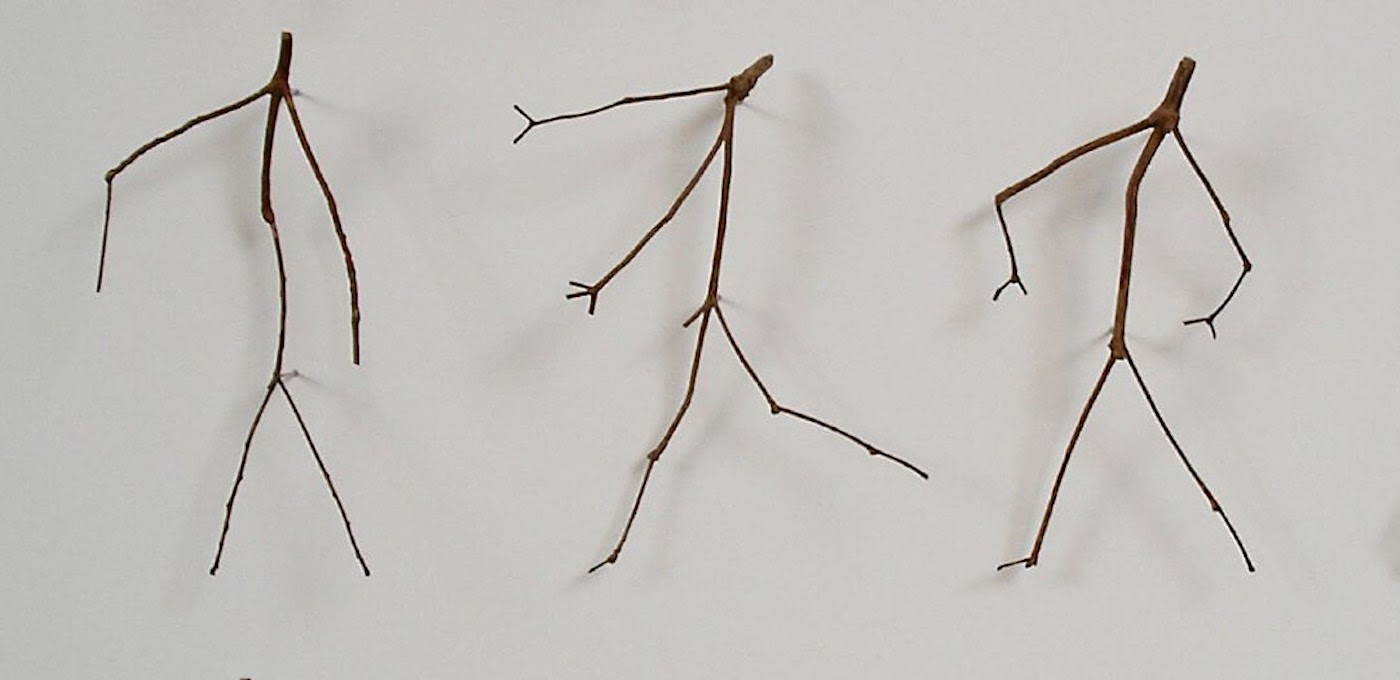
August 2, 2024 | This week is Parshat Matot-Massei. Read more about it here.
Picture a tree, with branches of different lengths and strength extending in all directions. Each branch is unique and has a story of its own. But they are all rooted in the same trunk, part of one living organism.
The Jewish nation is diverse and somewhat splintered. We’re spread all over the world, belong to different cultures, subscribe to different political parties, and look vastly different. But we’re one people. We are deeply rooted in a shared heritage and faith, offshoots of one central Jewish body.
Our diversity isn’t accidental, it’s by design. From the very birth of the Jewish nation, we were divided into 12 tribes, each with a different character and perspective. There are two Hebrew terms for tribe used in the Torah: Shevet and Mateh. Interestingly, both of those words also mean a wooden stick or branch. Each tribe, and more broadly, every Jew, is a stick. We have a life of our own with our unique hopes, dreams and aspirations. But at the same time, we are part of the one tree and rooted in one life-source. We feel each other's own and share in each other's joy.
Hebrew is a nuanced language and the words shevet and mateh have slightly different connotations: Shevet is a branch or stick that still has moisture, mateh is a stick or staff. These two terms highlight different degrees of our relationship with the trunk and roots.
There are times when we feel deeply rooted in our Jewishness and profoundly linked to each other and G-d. We are connected to the tree with its life and purpose coursing through our veins.
And there are times when this relationship is less manifest. We feel distant from the broader Jewish community, perhaps indifferent to our connection with G-d. We are unrooted from the tree and hardened by life’s winds.
No matter which of the sticks you identify with, you are an indispensable part of the tree. Even a lifeless stick can be traced back to a rooted tree. And the tree needs it to be whole. We are all deeply linked to each other and rooted in our spiritual bond with G-d.
As I write this, our brothers and sisters in Israel are bracing for a potentially destructive attack by our enemies. For over 300 days they have been living under the clouds of war and have had to endure pain, suffering and loss. But it’s not Israel’s war. It is a war on the Jewish people. We are at war
In this week’s Parsha the Jews are on the border of Israel. After 40 years of wandering, they had conquered land on the East bank of the Jordan and were poised to enter the Promised Land. Two of the tribes approached Moses and asked permission to settle there, instead of being allotted land in Israel, since the lush pastures were suited for their livestock.
Moses was shocked by this request and accused them of abandoning their brothers: “Will your brothers go to war while you sit here?” How could they remain apart from, and indifferent to, the struggles the rest of the Jews would face conquering Israel? Or, as some commentaries understand Moses’ words as a statement of fact: Don’t be deluded into thinking that your brothers’ war won’t reach you. Inevitably, a war against some Jews will be a fight against all Jews.
The tribes ensured Moses that they would enter Israel to fight alongside their brethren and only then go back to this area.
Moses’ words are an eternal call to all of us. How can we live calmly while are brothers are at war? We can’t remain indifferent when our brothers face an imminent threat of rockets, missiles and drones landing in their backyard. The war against evil and terror is our war too.
Practically, what can we do right now to help our brothers and sisters in Israel? Although we are far away, we don’t have to feel helpless. Our interlinked fate is a two way street. Just as their darkness hovers over our consciousness, our light can illuminate theirs. Despite the darkness of the past 300 days, we have seen plenty of miracles - and we hope and pray to see plenty more of those now.
Here are some things we can actively to do help, even though we are far away:
Give Charity: Besides its practical benefit, the mitzvah of tzedakah has a positive effect on the universe and can shift realities. As the prophet Isaiah taught (Isaiah 1:27): “Zion shall be redeemed through justice and her captives through tzedakah.”
Pray: Our prayers are effective and help. Take a few minutes and recite Psalms, pray for the IDF and the citizens of Israel, and for peace in the world.
Shabbat candles: Welcoming Shabbat with lighting the Shabbat candles before sundown brings light to your home and illuminates the world.
Tefilin: The Talmud shares a tradition that Tefilin has a unique power to instill fear in our enemies and bring protection to the Jewish people. If you can, put them on today (and every weekday) for a short prayer. If you don’t have a pair, reach out to me and I’d be happy to help.
Chessed: Be kind and do something to help someone. Reach out to a friend. Show support to someone struggling. The Talmud suggests that the Jerusalem was destroyed because of baseless hatred and infighting. We can undo that with radical acts of kindness.
We hope and pray for a Shabbat of peace and miracles.
Shabbat Shalom,
Rabbi Menashe
Moses' Succession Mistake
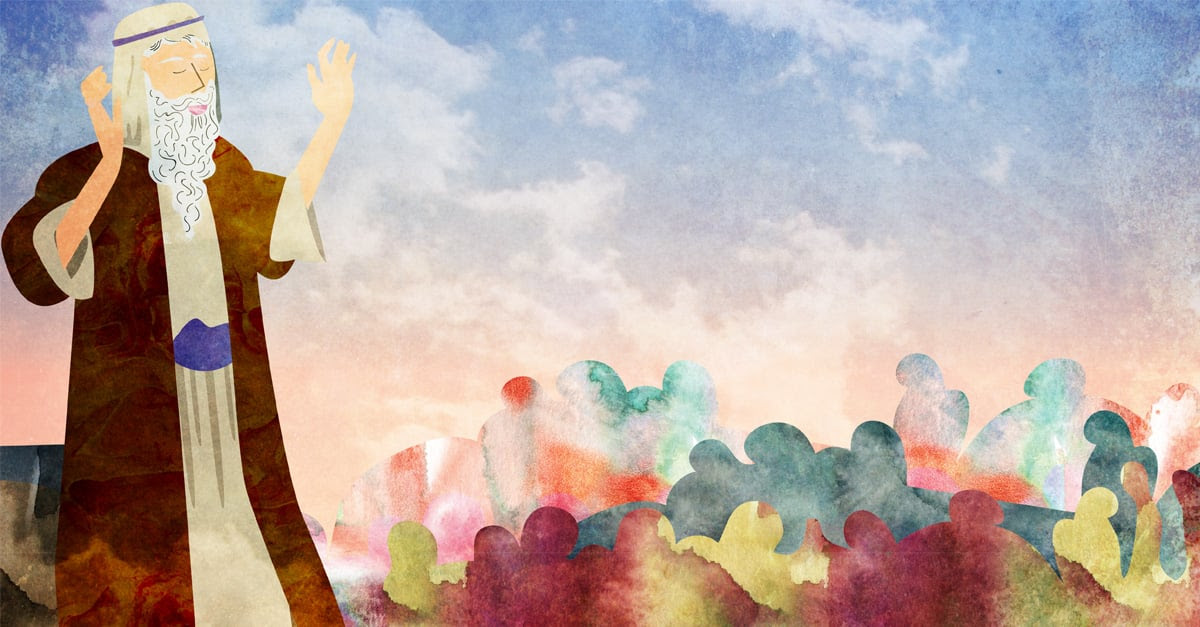
July 26, 2024 | This week is Parshat Pinchas. Read more about it here.
There's a fascinating insight into leadership in this week's Parshah that feels more timely than ever.
G-d informed Moses that the end of his life was nearing and invited him to climb a mountain where he could see Israel. If he wouldn't be able to enter the Promised Land, at least he could catch a glimpse of its majesty.Moses reacted to the news of his imminent death as a true leader should. Instead of worrying about his personal needs and closing his affairs, he immediately thought of his people, and did something brazen that he'd never done before.
One of the most common phrases in the Torah is “And G-d spoke to Moses, saying.” G-d instructed Moses hundreds of times. But this is the only time we find the verse inversed: “And Moses spoke to G-d, saying.” For the first time in his 40 years of leadership and communication with G-d, Moses turns the tables and gives G-d instructions.
Moses was concerned about the future of the Jewish people and wanted to ensure a worthy successor: “Let the Lord, the God of spirits of all flesh, appoint a man over the congregation… so that the congregation of the Lord will not be like sheep without a shepherd."
He knew that the Jews would be entering a new era, leaving the isolated echo chamber of the desert to settle the Land of Israel. They wouldn't have the manna and would be busy working the land to make a living. They wouldn't have explicit directives from G-d for their every move and would have to navigate life on their own. They wouldn't have a leader who had seen G-d face to face and had heard the Torah first-hand from G-d atop Sinai and would need new channels of inspiration and connection.
Moses implored G-d: the people need a leader that could shepherd them through this inflection point.
G-d reassured Moses and ensured him that he had a worthy successor lined up: Joshua, Moses' closest understudy. And to ensure that the Jewish people respect him, Moses should appoint Joshua during his lifetime, avoiding any contest or crisis.
But G-d's response to Moses’ command wasn't done. Immediately following this, G-d instructs Moses about the daily sacrifices that were to be offered in the Temple.
The placement of this Mitzvah is curious and the Midrash reads it as a response to Moses' desperation for a leader: “Before you command Me regarding My children, command My children regarding Me.”
In a 1969 talk, the Rebbe gave a profound explanation to this Midrash that is more relevant today than ever.
Moses thought that the future of the Jewish people depended on their leader. The leader would chart the course of their destiny and set the tone for the community. Without a strong visionary leader, the Jews wouldn't be able to maintain their faith and would lose their way.
But G-d responded with a directive to the people themselves. They should offer a consistent sacrifice every morning and evening. This twice-daily practice would be a constant reminder that G-d was with them. On good days and bad ones, during times of joy and times of tragedy, whether things looked bright or bleak, the relationship with G-d would remain a constant.
Yes, G-d was telling Moses, the Jews needed a good leader. But the fate of the nation didn't depend on it. They, the people, held the keys to their destiny, not a leader above them. To ensure a bright future for the Jewish nation, it was imperative for each Jew to be their best. For every individual citizen to make good choices and be rooted with a moral and spiritual compass. For each person to recognize that G-d was with them and was in charge of the world.
Participating in the daily sacrifices would ensure that the Jews would stay committed to their relationship with G-d and be guided by His vision. They would have a daily reflection on their place in the world and their responsibility to their Creator within it.
There's a lot of talk today about leadership and how the future of our country depends on who the next leader is. It's obviously important to have a leader that reflects our values, and I’m not going to get into politics here. But there's one thing we should all know, no matter what side of the aisle you’re on. The future of our society depends on each of us. If we continue to be good, upstanding people, our country will continue to be a strong bastion of goodness and morality.
The message G-d was telling us that we place too much faith in a leader and not enough in ourselves. No matter who the leader is, we can each be leaders in our own right and make a difference.
To chart our future as Jews and as citizens of this country and the world, let's commit to “daily offerings” to keep ourselves and each other on a good and sacred path. Spend a few minutes each day in prayer. Give a few coins each day to charity. Invest in the Mitzvah rituals that keeps you rooted in the moral and spiritual vision of the Torah. If we all do our part, we'll remain a strong Jewish community and shape our society and the world to be a better place.
Shabbat Shalom,
Rabbi Menashe
Israel Alone: Blessing or Curse
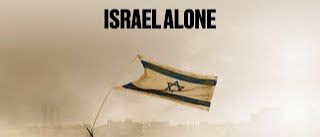
July 19, 2024 | This week is Parshat Balak. Read more about it here.
In March, the Economist ran a front page story about Israel's increasing isolation with the headline: Israel Alone. It was intended as a sad description about the state of affairs for the Jewish state.
But is being alone really a bad thing? This week's parsha seems to suggest otherwise.
There's a fine, but significant, line between being lonely and being alone.
If you've experienced loneliness, you know just how tough it is; it is sad, depressing and can even be a health risk.
So to make sure we don’t get lonely, we avoid being alone. We act, dress and think in ways that we think people will like and accept us. We're afraid at times to stand up for our values if they conflict with popular opinion; we don't want to risk being different and alone.
But alone doesn't have to equal lonely.
In the Torah portion this week, Bila'am - the gentile prophet who was hired to curse the Jews and ended up blessing them instead - foretells a destiny of aloneness for the Jewish nation, as a blessing: "It is a nation that will dwell alone, and will not be reckoned among the nations."
Since our inception, the Jewish people have been alone. Especially following the destruction of the Temple and the dispersion of the Jews from Jerusalem, we have been a wandering flock, always a minority, never quite assimilating into the mainstream society. Our destiny is to be alone.
It's tempting to see Bilam's blessing as a curse. Won't being alone make us lonely?
In 1994, when Israel made a historic peace treaty with Jordan, Prime Minister Yitzchak Rabin paraphrased this verse and proudly announced that "no longer will Israel dwell alone." This has been the attitude of many Jews in response to our painful history: "If only we can fit in and be just like everyone else they won't hate us so much," the argument goes. "If we can only please the world and be accepted by our neighbors, we can escape our fate."This, for some, is the entire purpose of modern Israel - to be a nation like everyone else. To fit in and gain acceptance.
But this understanding of Bilam's words is not supported by the text. Aloneness was meant as a blessing. We Jews are meant to be alone and unique.
You see, alone doesn't equal lonely. It's quite the opposite actually.
Being alone means being true to yourself. It means recognizing your uniqueness and individuality. To be alone is to be sure of yourself and knowing what you stand for. Ironically, the boundaries that you set up to retain your own identity don't divide you from others. If anything, they allow you to connect with them better.
When you know who you are and have confidence in yourself, people respect you. They know where you stand and how they stand in relation to you. When you try to please everyone and bend over backwards to appease them, you discredit your own cause and become an easy target for oppression and isolation.
Bila'am's blessing was that we hold strong to our ideals and continue to be unique. As Jews, we have a rich and meaningful heritage and identifying with it sets us alone and apart. He foresaw the strength of the Jews coming from our confidence in our own values and rights, not from seeking acceptance from everyone else.
Ironically, it was this point that the Rebbe made to a much younger Rabin in a conversation they had in 1972. Rabin was then Israel's ambassador to the USA and visited the Rebbe as a representative of President Shazar. The Rebbe asked him if he felt lonely as Israel's representative while so many other countries didn't acknowledge or accept their right to exist.
The Rebbe then preceded to explain to the Ambassador the true meaning of Jewish aloneness: Although there are negative forces that have forced us to be alone, ultimately it has been the positive commitment to Torah and to our unique identity and values that have ensured Jewish continuity. Knowing that we are different, alone, has kept us strong.
But that doesn't have to make us lonely. In fact, being proud of our chosenness, and aware of our heritage, history and role in the world, provides us with direction and confidence that helps us find our place and connect with everyone else. People come to appreciate it and welcome it.
This is true with Israel too. Every time it bends over backwards to appease other countries, it weakens its cause. Every concession is a statement of lack of confidence in its right to be. If we are 100 percent committed to our needs and presented our proud rights to the land, people would give us more respect. If we are proudly alone, we won't be lonely.
This Tuesday we fast and begin a three-week period of mourning for the destruction of Jerusalem. We mourn that the physical Temple and city were lost, and we are more alone than ever. But Jerusalem continues to live on in each of our hearts. When we are strong in our commitment to being Jews and continue to pray for our holy city of Jerusalem, we are alone together.
And this inner feeling of strength will bring us to a time where we won't be lonely anymore and will merit to see the rebuilding of the Temple in Jerusalem.
Shabbat Shalom,
Rabbi Menashe
Justice vs. Compassion
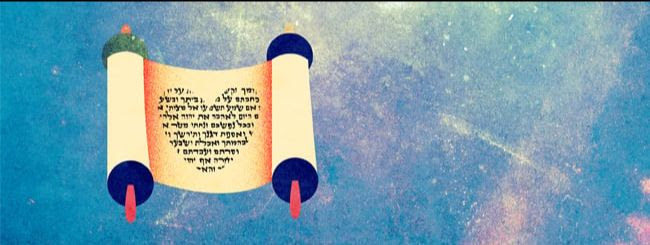
July 12, 2024 | This week is Parshat Chukat. Read more about it here.
Two brothers. Two great leaders. Two very different personalities.
Moshe was the lawmaker, Aaron was the peacemaker. Moses held the law above all else, while Aaron's guiding principles were love and compassion.
With the force of his Divine authority, Moses imposed the word of G-d on the people. In his position as High Priest, Aaron lovingly nurtured the people express their intuitive spirituality to connect to G-d.
Moshe led with rigid truth; Aaron was prepared to lie for the sake of people's welfare and happiness.
The two leaders could have clashed and battled for the popular vote. But although they had radically different leadership styles, Moses and Aaron partnered to lead the Jewish nation through its formative years.
Both are necessary for a balanced and healthy society. The foundation of society, especially a religious one, is law and order. Rules provide a healthy structure to live by and the demands of the truth push us to live an elevated life. But rules are stiff and don’t give room for the individual expression. The Midrash tells that a world created only with Justice wouldn't last; G-d had to combine Justice with Mercy for the universe to be sustainable. Aaron's kindness was necessary to balance Moshe's truth.
Moses was the primary leader. The first thing we needed was the structure that Moses provided, which served as a framework for the compassion that Aaron served.
But as the Jewish nation matured, Aaron's voice took an equally central place. In Ethics of our Fathers we're taught: "Be from the students of Aaron." Once the law was cemented in place, the emphasis should be on nurturing empathy and guiding each person towards their own spiritual realization.
Even in their times, already, Aaron was the more popular leader. We read in this week's portion of Aaron's death, and how "all of Israel" mourned him. Compare that with Moshe, who we're told was mourned after his death only by "the sons of Israel."
We always need the law and structure of Moses, but now, more than ever, we need Aaron's nurturing voice of love and peace.
We learn from Moses to stand up for the truth and from Aaron to show compassion to every human being, no matter their politics or race.
We learn from Moses to uphold justice and law and from Aaron to do everything we can to respect and help all people: neighbors and friends, random people on the street, and people we have never met.
We learn from Moses to be dedicated to observing Torah to the letter of the law and from Aaron to love ourselves and discover our own inner spiritual calling.
We learn from Moses to find every opportunity to do bring G-d into our life and from Aaron to see the spark of G-d in every encounter, every person and every thing.
King David summed it up in Psalms (85:11): "Kindness and truth have met; righteousness and peace have kissed."
Shabbat Shalom,
Rabbi Menashe
A Moses in Our Times
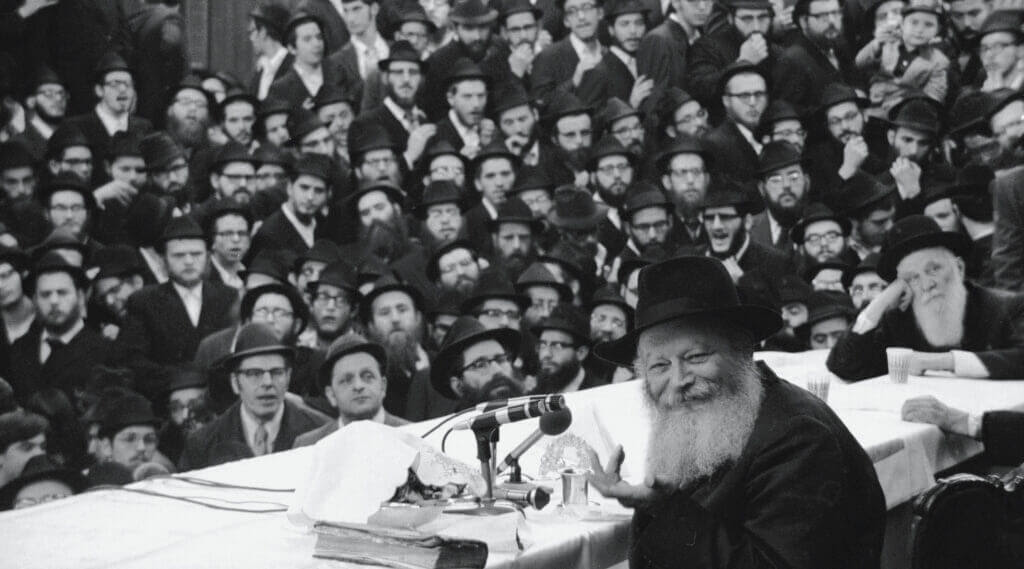
July 5, 2024 | This week is Parshat Korach. Read more about it here.
I was studying with a teen in the community this week and he asked me whether we all have equal access to G-d. Are some people holier than others? Does Judaism believe in a spiritual hierarchy?Although he didn’t know it, this was a very timely question. Next week is the Yahrzeit of the Rebbe, marking 30 years since his passing. And although time keeps pushing us further from when the Rebbe lived and breathed amongst us, he remains a spiritual guide and mentor to myself and hundreds of thousands of others around the world.
I often get asked why Chabad doesn't appoint a new leader, or how the movement manages to continue without a leader, or how can I consider someone who is no longer alive to be my personal Rebbe and mentor. While I have come to expect the questions and get where they are coming from, they belie a true understanding of what a Rebbe is.
To understand the role of the Rebbe and whether it suggests a spiritual hierarchy, we have to look at the first Rebbe: Moses.In this week's Torah portion, Korach led an uprising against Moses, rebelling against his leadership. His complaint was: "The entire nation is holy, and G-d is within them, why do you need to assert yourself over the community." The whole nation had experienced the revelation at Sinai and was holy already; they had no need for a spiritual guide. Moses was unnecessary, he claimed.The rebellion was quickly quashed, and G-d responded harshly by punishing Korach and his men. But what was with Korach's claim? He did have a good point. Every Jew is holy. Each of us have direct access to G-d. Who needs Moses?Korach misunderstood the role of a leader as just a practical one. Moses is described as a “faithful shepherd,” which can be read alternatively as a “shepherd of faith.” His job was to open people's hearts and minds to something bigger than themselves. To guide each individual to recognize their unique divine purpose for being here. To make the infinitude of G-d a living reality.Of course, Jewish leaders guide their flock on a practical level and play a large role in structuring the community. They teach Torah and set policies. But a Rebbe - a true leader - is above all a portal to a higher living. His role is to inspire faith. To be a connection point to the transcendence of G-d. All of their other responsibilities are offshoots and accoutrements to this central role.
Korach was right that every Jew is holy. But he didn’t appreciate that they needed Moses to fully realize that. We all have equal access to G-d, but Moses opens our minds and hearts to our own spiritual potential.The nation may have been holy, but they were human. Every person, from the greatest spiritual giant to the simplest layperson, has room to dig deeper in themselves and climb higher in their relationship with G-d. There was always going to be a need for a Moses figure to lift them beyond their own paradigm and unleash their full potential.The Rebbe is such a leader. His larger than life personality and impact are reflections of his spiritual role to elevate the Jewish nation. His encounters with Jews from all walks of life left them with a deeper understanding of themselves and an inspired awareness of G-d.
Yes, the Rebbe counseled people and gave advise. Yes, the Rebbe taught a tremendous amount of Torah and opined on contemporary issues. Yes, the Rebbe was an address for people to turn to for blessings. Yet none of these capture his essential leadership. All of these 'jobs' were avenues to bring his vision and message to the world.This was the Rebbe's Messianic vision. He dreamed of - and tirelessly worked towards achieving - a redeemed world where every aspect of existence has achieved its divine raison d'etre. This is done through Mitzvos, through spreading a Divine awareness, and through each of us fulfilling our individual purposes.
The Rebbe's role was metaphysical and therefore continues beyond his passing. He was - and is - a portal, opening us up to our deepest potentials. As the Talmud teaches about a tzadik, a true Jewish leader: “Even in their death, they are called alive.” Or as the Zohar spells it out even more clearly: "When the tzadik departs he is to be found in all worlds more than in his life-time."The Rebbe's vision and teachings continue to inspire. There's no one that has touched more Jews in modern history. You'd be hard pressed to find a Jew alive today whose life hasn't been touched by the Rebbe, whether personally or through his emissaries. He continues to be a window into a more beautiful reality. Astonishingly, since the Rebbe’s passing his influence has grown exponentially.
To learn more about the Rebbe’s teachings and influence, I recommend checking out a new website in honor of the Rebbe’s yahrziet and reading a great book by Rabbi Joseph Telushkin titled “Rebbe.”
In his passing, He continues to be a Rebbe. And we continue to be his followers. To work on fulfilling his empowering mission to unleash the potential of each person and each moment to bring the world to its perfection, heralding the revelation of Moshiach.
This Monday night and Tuesday, the 3rd of Tammuz, is the Rebbe's 30th Yahrzeit. On this day, we honor the Rebbe's life and legacy and celebrate his impact and the countless lives he touched. In honor of this special day, consider adding a Mitzvah and doing something extra to bring the world closer to this goal.
We will be honoring the Rebbe at a special event on Tuesday night, July 9th, and I invite all of you to attend (see details below).
Shabbat Shalom!
Rabbi Menashe
P.S. I will be visiting the Rebbe’s resting place, the Ohel, on his Yahrziet to pray. If you’d like to join a trip to the Ohel or add your name to the prayers, please let me know.
Not If, But How
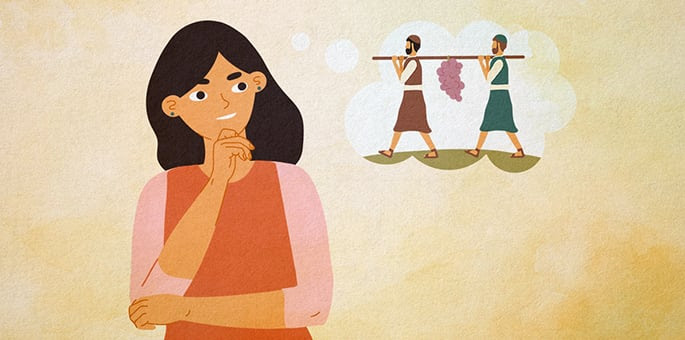
June 28, 2024 | This week is Parshat Shlach. Read more about it here.
We all have moments when we are stuck. We doubt ourselves and don’t know how to move forward. There are situations when doing what we need to seems too daunting. It turns out that there’s an easy formula for getting through those moments. But we miss it because we’re asking ourselves the wrong question.
This week’s Parsha tells the story of the spies. The Jews had left Egypt, received the Torah at Sinai, and were all set to continue their journey to Israel. But they got cold feet. The newly minted nation doubted itself. Can we really do this? Do we have what it takes to conquer the land and settle it?
They wanted to send spies to scout the land and provide a detailed report. Somewhat reluctantly, G-d okayed the plan and Moses selected 12 respected leaders for the mission. They returned with a pessimistic report: “The people who inhabit the land are mighty, and the cities are extremely huge and fortified, and there we saw even the offspring of the giants… We are unable to go up against the people, for they are stronger than we.”
This sparked a national crisis of faith. The Jews wept about their lack of a future and there were calls to return to Egypt. "If only we had died in the land of Egypt, or if only we had died in this desert. Why does the Lord bring us to this land to fall by the sword; our wives and children will be as spoils. Is it not better for us to return to Egypt?"
The result of this episode was tragic. The spies themselves were punished severely by G-d for their grave mistake and the entire nation was condemned to wander the desert for 40 years until the generation died and the next generation of Jews would enter Israel.
The mistake of the spies looms large in Jewish lore. It set our history back 40 years and is referenced in the Yom Kippur liturgy. In fact, Moses had to beg G-d to give the Jews another chance, and without his intervention this would have spelled the end of the Jewish story. The leaders clearly messed up.
But what was their mistake? Weren’t they just fulfilling their mission? Moses tasked them to bring back a report and that’s exactly what they did. So their findings didn’t match the narrative - but why the outrage?
The leaders may have been well intentioned but they made a fundamental mistake in the approach to their mission. The mistake was their mindset. They approached their mission with a if mindset instead of a how mindset.
Moses didn’t ask them to figure out if they could conquer the land, but how to conquer it. There was no question that they could - and would - be successful in entering Israel. After all, G-d had directed them to enter Israel. The only question was how to get it done most effectively.
But when the spies went to scout the land, they approached their mission with an if mindset, doubting their capability and asking whether it was possible. This was their mistake. As soon as you ask that question, you’ve already lost. When you ask if it’s possible there’s always room for doubt. Had they had a how mindset they would have found ways to succeed.
This is highlighted in the continuation of the Parsha. Right after the episode of the spies, G-d told the people a series of detailed laws about libations and offerings that they would bring once they entered the land of Israel. It’s a strange placement for these laws. Most of the laws of the sacrifices were spelled out in the book of Leviticus - why are these taught here, in the immediate aftermath of the story of the spies? Especially since they were now irrelevant for the next 40 years!
Perhaps this was G-d’s way of correcting the mindset of the nation. G-d opens his communication saying: “When you arrive in the Land of your dwelling place…” Not if, but when. Even now, once their entry into Israel was to be delayed a generation, it wasn’t a question that they would enter the Promised Land. G-d wanted the people to know that although they may spend the next 40 years in the desert, the laws pertaining to life in Israel were inevitably going to be relevant.
The story of the spies is the story of all of our lives.
We are all placed in this world with a purpose: our own journey towards the Promised Land. G-d invites us to partner with Him in making this world a better place and a holy space. We each have a unique part in this mission. And we all have our challenges and setbacks. Being a good person and strong Jew isn’t always easy and can sometimes seem daunting and frightening.
If we approach a challenge questioning whether we have what it takes to succeed, it can paralyze us and we panic. We can falter and fail when we doubt ourselves.
But an if mindset rejects G-d’s faith in us. He wouldn’t put us into the circumstances if we couldn’t do it. As one Chassidic master put it: “Just as it’s a Mitzvah to believe in G-d, so too it’s a Mitzvah to believe in yourself.” G-d believes in you so having faith in G-d means also having faith in yourself.
Respecting this faith shifts your mindset. The secret to success is having a how mindset: instead of determining if we can succeed, we should only be figuring out how.
You begin to approach every challenge with an entirely different attitude and set of questions. You’re definitely up for the challenge, it’s only a question of how you will succeed. As they say: believe you can and you’re already halfway there.
This is true on an individual level as it is on a global level. Torah and the prophets promise a return to a peaceful Israel and a redeemed world, where there will be peace and harmony and an end to poverty and suffering everywhere. This messianic vision can sometimes seem unrealistic and daunting. But we have to have faith that it is close and attainable. We shouldn’t be asking if we can really solve the world’s biggest problems, but how we can. It’s not a question if it is going to unfold, but when.
Let’s keep praying, spreading light, doing Mitzvahs, and doing what we can to make this happen and bring Moshiach!
Shabbat Shalom!
Rabbi Menashe
Nurturing the Spark
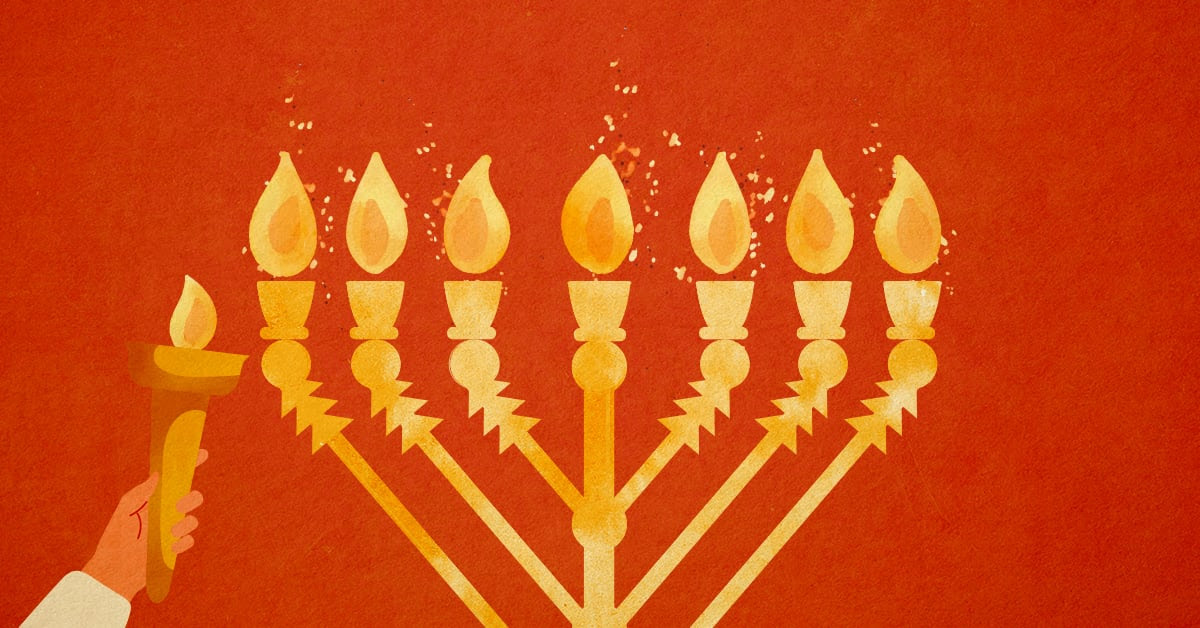
June 21, 2024 | This week is Parshat Behaalotecha. Read more about it here.
Do you ever find yourself doing things because of other people's expectations?
Are you a follower, going along with certain behaviors and decisions because people have told you to?
To a degree, we are all products of our surroundings. We start off life following our parents, then turn to our peers, bosses, and the broader culture.
This is not a bad thing. It's important to have parents and mentors with wisdom and experience to guide us and help us navigate life.
But it's equally important to make sure we don't only live by what we are told. It's a terrible mistake to follow everyone's advice without appreciating, and judging, the wisdom within it. If you live life by following others you cease to be yourself. All of your decisions and aspirations - even if they are positive - belong to other people.
The Torah portion this week opens with the Menorah lighting in the Temple and employs an unusual phrase in reference to the kindling of the lights: instead of using a term for lighting or kindling the flames, Torah says "Beha'alotecha" - literally when you "raise up" the lights. The rabbis noticed this textual irregularity and understood it to mean that the Kohen is required to light the wick until the flame rises, and is sustainable, on its own.
Beyond the practical guide to lighting the Menorah, the Sages were alluding to a poignant life lesson.
There's a story told of a Jew who complained to his Rebbe - spiritual guide and mentor - about his struggles with prayer: "I wake up early, meditate for a couple of hours and do all of the mystical preparations for prayer, but my prayer is still a struggle every day. Meanwhile my friend, who has a different Rebbe - spiritual guide - barely prepares himself, and his prayers are always passionate and inspired."
The Rebbe's response was powerful and profound: "Yes, your friend prays beautifully, but it's not him. It's his Rebbe praying through him. Your prayer might not be as smooth or profound, but it's your own." The friend was animated by the inspiration from his Rebbe and his excitement wasn't an authentic expression of himself.
Our inner flames are lit by our mentors, teachers and parents, but the lessons and inspiration have to become our own. We can't rely on their flame constantly being there to support ours. Our growth shouldn't just be a product of their wisdom. We should develop our own flame from the sparks of their teachings.
The same is true the other way around. We have a responsibility to educate our children, students, and friends, and to guide them with the flaming passion for Judaism and an engaged Jewish life. But our message should not be imposing and overbearing. Instead, we should show a living example, provide a healthy support and framework, and nurture them to discover and appreciate the values and lessons that we hold dear.
When we give them the initial light and the space to take ownership over their moral, religious and general life learning, then their flames will rise on their own.
Shabbat Shalom!
Rabbi Menashe
Finishing the Exodus - 50 Weeks Later
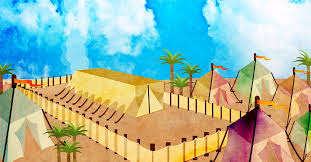
June 14, 2024 | This week is Parshat Naso. Read more about it here.
What an incredible week at Dirah!
It started with a magical evening of celebration on Monday. It is hard to put into words the energy in the room as we gathered to celebrate the community.
Then we went right into Shavuot - starting with a fascinating discussion into the wee hours of the morning at the late-night Desserts & Discussion and then a beautiful Torah reading of the Ten Commandments with an ice cream party and dinner.
It is not accidental that our celebration of community was on Erev Shavuot and in the week of Parshat Naso.
Shavuot celebrates what happened 50 days after the Jews left Egypt - they received the Torah at the foot of Sinai. Parshat Naso discusses what happened 50 weeks after the Jews left Egypt - they inaugurated the Mishkan, the portable Temple and home for G-d within the Jewish community.
At our Shavuot Celebration I spoke about Shavuot being the culmination of Passover. Whereas Passover celebrates the birth of the Jewish people, Shavuot celebrates the birth of the Jewish religion. And these two are mutually dependant. Without the Torah, the Jewish people wouldn't have continuity - nations rise and fall. Without the Jewish people, the Torah wouldn't have viability.
But getting the Torah wasn't the end of the story. The construction of the Mishkan in this week's Parsha is when the Exodus really reaches is zenith. Creating a home for G-d was the realization of the mandate handed to them at Sinai.
The ultimate purpose of the Jewish people and the Torah is to sense G-d's immanence and make this world into a home for G-d. If you take G-d out of the equation, Jewish peoplehood loses its significance and Jewish values lose their value.
The revelation that accompanied the giving of the Torah was temporary. G-d appeared on the mountain, said His piece, and left. Only with the Temple did G-d become a fixture in the Jewish camp.
Passover is about the people. Shavuot is about the idea (Torah). The Temple is about the implementation - when those two fuse to fulfill the purpose of creation.
There's no better way to describe the Dirah community that we celebrated this week.
Dirah means a home - we are creating a home for every Jew, a home for Jewish life and learning, and ultimately, through these efforts, a home for G-d in our community and the world.
Thank you to everyone who has been a part of building our Dirah home over the past 3 years. Thank you to everyone that joined us on Monday evening and made the Evening of Celebration so magical, reaffirming our commitment to building Jewish life here in Brooklyn. Thank you to all of our donors and supporters for all you do keep the Jewish nation alive and sustain our home for Jews, Jewish life and G-d!
Shabbat Shalom,
Rabbi Menashe
There is an “I” in community
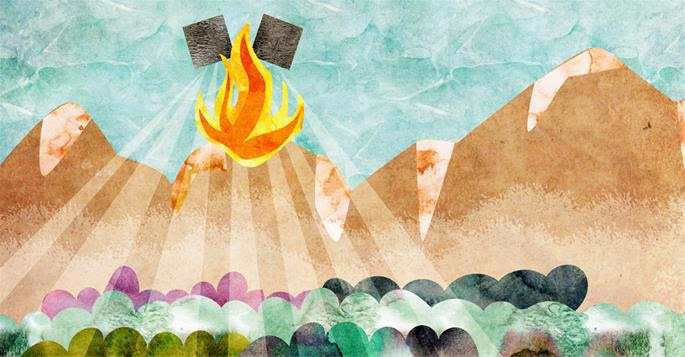
June 7, 2024 | This week is Parshat Bamidbar. Read more about it here.
This coming week is a week of community.
On Monday, we are celebrating three years of our Dirah community. On Tuesday through Thursday we are celebrating 3336 years of the global Jewish community. And on Shabbat, we're opening the week with a Torah reading of the census, which united the community under one collective number.
There's a tension in community. On one had, it is a collective. On the other hand, it's a group of individuals. If we only look at the big picture of community, it can seem that the details don't matter. Whether there are 100 or 101 people in the room shouldn't make a big difference. But when we focus on the individuals who make up the community, every person matters.
The way that the Jews are counted in this week's Parsha smooths out a middle ground between these two perspectives. This week we begin the Book of Numbers, which appropriately opens with a detailed census of the Jewish nation.
There's a paradox to counting, similar to that of community. Counting something indicates its importance - why else would you care to count it. But it also reduces the collection to a number - erasing the value of each individual item.
A census can be degrading, reducing human beings to numbers. But it can also be empowering, highlighting their worth and showcasing each person as being an equal part of the community. Like the popular use of the term 'you count', meaning you matter.
There are two terms used in the opening of the Parsha for counting that are both peculiar, and indicate a unique approach to the census.
When G-d first asked Moshe to count the Jews, He used an uncommon term: “se'u es rosh" - literally "raise up their heads." The next verse uses the word “tifkedu” which is from the root word pekod, meaning to remember or pay attention to.
The specific terms highlight that the count was meant to elevate the individual citizens, not reduce them to statistics. The goal of the census wasn’t only to work out a grand total number, but to make sure each person was noticed.
This census came only 6 months after an earlier census, and there actually wasn’t any recorded population change. G-d didn’t need to run the numbers again. That wasn’t the point. He ordered the census to show each Jew that they mattered. He was illustrating to the Jews that a community is not formed by erasing the individuals. Quite the opposite, it is a sum total of all the individuals. The collective needs each individual to show up to be whole.
They say that there’s no “I” in team, but there is an “I” in community. And a “u”. When each individual is accounted for, they are all elevated collectively in a count, with the combined power of each other.
When we celebrate the community on Monday evening, it isn't only the collective that we're celebrating, but it is each individual of the community. If you can be there to celebrate with us - your presence makes a difference because you add to the community.This all began at the foot of Sinai, when the large group of Abraham's descendants coalesced into one nation. The Midrash actually teaches that had even one Jew been missing, the entire experience at Sinai would have been called off. A collective was created, but only because every individual showed up.
Every Shavuot we recreate the Sinai experience with a Torah reading of the Ten Commandments. And we need all the Jews to be there. Each one of us counts and only with the collective power of all of us is our community whole.
We are gathering for this special Shavuot celebration on Wednesday, June 12 at 5pm at Hannah Senesh. There'll be an ice cream party for the kids with the Torah reading and a dairy dinner.
In our current moment we need each other's presence and company. The Jewish people need a strong community. And there's no more appropriate time to come together than the holiday when it all began: Shavuot.
Shabbat Shalom,
Rabbi Menashe
A Path to Peace
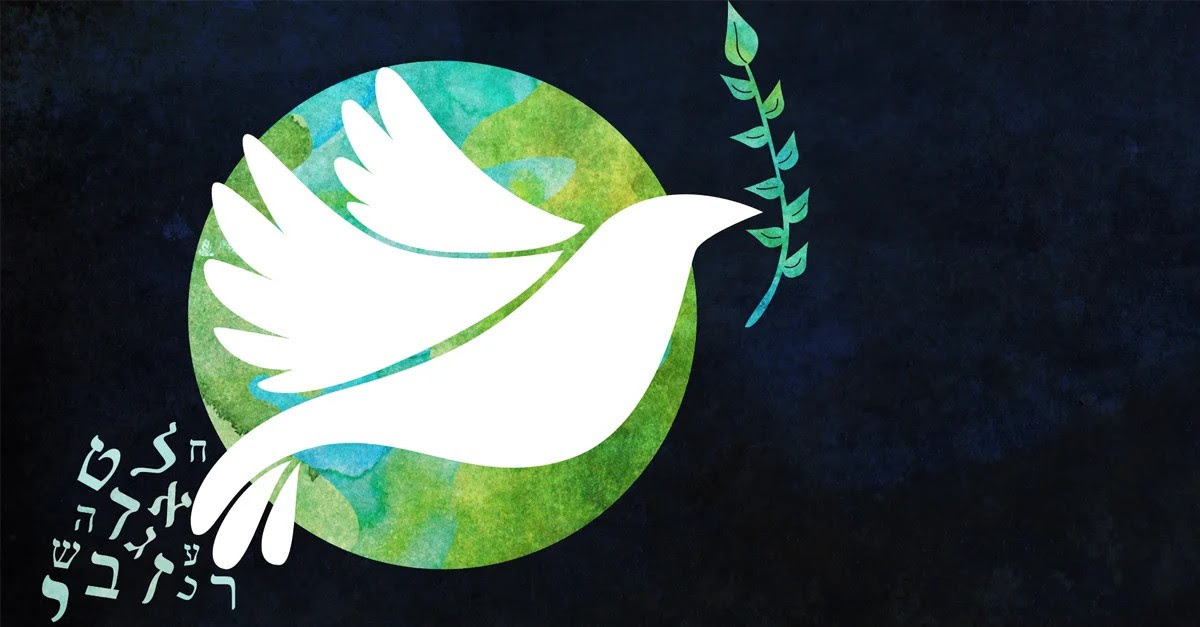
May 31, 2024 | This week is Parshat Bechukotai. Read more about it here.
The Jewish hearts and minds have been with Israel for thousands of years, but perhaps never more so than the past eight months. All eyes are on Gaza - pleading for our hostages, praying for our soldiers, and supporting our brothers and sisters caught in the war.
Many of us have been doing everything we can to help: we’ve marched and demonstrated, donated money and supplies, posted support on social media and perhaps even engaged in keyboard wars with delusional haters. These efforts have helped.
On top of all of the impactful efforts I listed above, I have been advocating since the beginning of the war (and really prior to it too) for people to do extra Mitzvot for the safety and success of the people of Israel. If you’ve read my posts, you’ve heard it a hundred times: Put on tefilin for Israel. Light Shabbat candles for Israel. Give tzedaka for Israel. And the list goes on. Being strong Jews makes Jews strong.
The truth is that this line of activism can seem a little farfetched to people. How does wearing tefilin in NY affect the war? Can my Shabbat candles shoot down missiles?
I am a firm believer that they can and do.
The Rebbe advocated strongly for this. In fact, the Chabad tefilin campaign began in response to the 6 Day War, when the Rebbe rallied for Jews around the world, and especially in Israel, to put on tefilin for Israel, citing the Talmudic tradition that it instills fear in our enemies.
When reading the Parsha this week, I was reminded that this is not a radical innovation of Chabad, nor some spiritual new age doctrine. It’s part of the ancient fabric of Jewish thought and belief.
It sounds a little foreign to our modern ears, but Torah correlates our success in all areas of life - from financial to health and happiness to safety and security - to our commitment to our covenant with G-d. According to Maimonides, this is one of the 13 core articles of Jewish faith.
I don’t usually put in long quotes, but forgive me here because the opening of this week’s Parsha is eye-opening:
“If you follow My statutes and observe My commandments and perform them, I will give your rains in their time, the Land will yield its produce, and the tree of the field will give forth its fruit. Your threshing will last until the vintage, and the vintage will last until the sowing; you will eat your food to satiety, and you will live in security in your land. And I will grant peace in the Land, and you will lie down with no one to frighten [you]; I will remove wild beasts from the Land, and no army will pass through your land; You will pursue your enemies, and they will fall by the sword before you.”
When we’re totally honest, we can appreciate that so much of success is beyond our control. This is as true of financial success as it is of Israel’s security apparatus. We have to do our part, but that can only achieve so much. The ultimate success is never guaranteed - and we believe that it is ultimately the result of Divine blessing.
The same text that we look to to guide us in our values of caring for the poor and vulnerable, of valuing life and celebrating our heritage, informs us that our commitment to the mitzvos and values of Torah opens the flow of blessings that bring peace and security.
[I am not, G-d forbid, suggesting that not living up to the covenant is what caused any harm or suffering (we don’t know why things happen, and unfortunately there are evil people who do terrible things) only that living up to it can provide metaphysical protection from it.]
We are in a unique time right now. Israel is facing existential threats on seven fronts. Antisemitism is reaching peak levels here and around the world. We have to take the practical steps to be safe and protect ourselves, but we also need G-d’s blessings. Strengthening our Jewish communities means strengthening the Jewish commitment of our communities.
Judaism isn’t all or nothing and any part that you do is amazing. But we can all find one Mitzvah to add. We can do something extra in our Jewish commitment. And that small effort goes a long way to help Israel and the Jewish people.
I am optimistic about a brighter future and wholeheartedly believe that things will get better. We have to do our part, and pray that G-d does His.
Shabbat Shalom,
Rabbi Menashe
P.S. I’m really looking forward to hosting a talk this Thursday with AJ Edelman, who is an embodiment of this value: staying committed to Jewish practice and values and being a strong voice for Judaism and Israel. I hope you can join us.
We Are Family
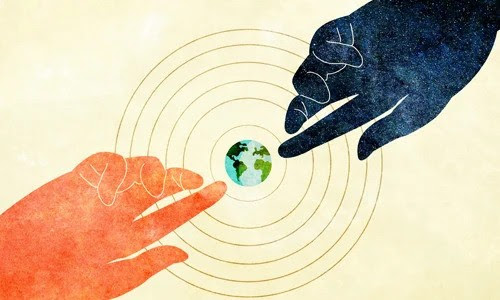
May 24, 2024 | This week is Parshat Behar. Read more about it here.
It hit me this week. Twice.
The strength of Jewish community. The power of Jewish unity.
It hit me when I needed to arrange a Minyan for a shiva house in our community. On very short notice, we had more than needed for the Minyan show up. People who didn’t know the deceased or the family. People who had other responsibilities that they put aside to do a Mitzvah for a stranger.
And it hit me again when in one day I met with two Jews with radically different politics. Neither of them would imagine that the other would be in my orbit. One even shared with me their disbelief that I would associate with the other. Outside their Jewish identities, they wouldn’t keep the same company. But their connection to their people transcends their political views.
Many people question the nature of the Jewish people. Are we a nation? A religion? A race?
Without getting into the scholarly and technical definitions, I think the most appropriate definition for our people is a family.
And this has been on display more than ever since October. Jews from across the world have united with our brothers and sisters in Israel. Communities have come together like never before. We all felt the pain of every Jew that was murdered. We feel the anguish of the hostages. Every new casualty is like a knife to our hearts. We literally feel like a family.
And the more antisemites shower us with hate, the stronger this family bond becomes. In describing the Jews’ slavery in Egypt, Torah tells us (Exodus 1:12): “The more they would afflict them, so did they multiply and so did they gain strength.” Hamas, and their antisemitic sympathizers, didn’t take into account that their actions are actually bringing the Jewish people together in unprecedented ways. A nation can be torn apart by terror and suffering. But a family bonds together in difficult times.
This family bond is highlighted in the Parsha this week.
We read in this week's portion of the prohibition against lending money with interest. Loans with interest are standard practice. My money would be making money for me and instead it's bringing you revenue, so it only makes sense that you should pay me back a little extra. Yet Torah expects us to offer interest free loans and warns strongly against charging a fellow Jew interest.
The only way to make sense of this is to realize that the Jewish nation is one extended family. We are all brothers and sisters. If your brother was going through a rough patch and asked you to help him out, would you charge him interest? If your sister couldn't pay her rent and you stepped in to help her, would you expect her to pay you back with interest? I hope not. Families are meant to be there for each other. And the Jewish family is no different.
This Sunday is Lag Ba’Omer, which, among other things, marks the end of a pandemic that killed 24,000 students of Rabbi Akiva. The Talmud comments that this tragedy was a result of their lack of respect for each other and lack of communal cohesion. The end of this horrific episode was a turning point in rebuilding the fabric of the community, in line with their teacher’s adage: “Love your neighbor as yourself - this is the greatest principle of the Torah.”
Lag Ba’Omer has become a day to celebrate Jewish unity. Let’s use this Sunday to strengthen our family ties and celebrate the communal framework that makes the Jewish people unique and ensures our continuity.
Shabbat Shalom,
Rabbi Menashe
Are There Too Many Holidays?
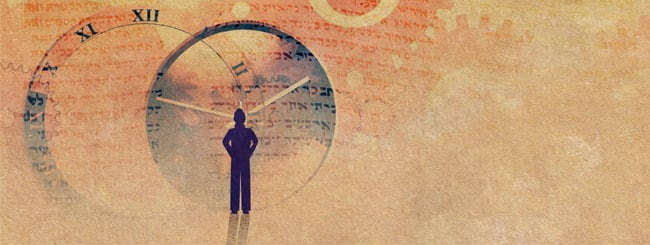
May 17, 2024 | This week is Parshat Emor. Read more about it here.
While not all of them are famous, there are quite a lot of Jewish holidays. It seems that almost every other week we are celebrating something.
In this week's Parsha we read about all of the big ones - Pesach, Shavuot, Sukkot, Rosh Hashanah and Yom Kippur - and on top of those we have a whole host of minor Holidays, like the upcoming Pesach Sheni (this Wednesday, May 22), and Holidays that developed later, like Lag Ba'omer (next Sunday, May 26). And of course there's the weekly Shabbat.
In fact, one of the antisemitic libels of the ancient world was that Jews are lazy - we're always taking off work for a holiday. If you do the math, one in every five days is a Jewish day off. That's 20% of our lives!
Do we need so many holidays? Aren't they a little too disruptive to our normal lives and schedules? Doesn't all the celebrating get a little repetitive?
The Festivals are called "Moadim," literally "appointed times". This is from the parsha this week where they are referred to as "Moadei Hashem - G-d's appointed times." The Hebrew word moed also means meeting or encounter, and, as the Zohar notes, is the same term used to describe the Temple: The original Temple (Mishkan) that the Jews built in the dessert is referred to as the "Ohel Moed - the tent of meeting."
As Jews, we have a calling, a unique mission in this world. We are ambassadors of the Divine and the guardians of a moral and spiritual order. We are a small people with a large role in history. But because we are only a tiny minority in the world, it is easy to lose sight of our deep moral and spiritual compass and purpose. We can fall into the trap of fitting in with the world around us instead of shaping it.
The Temple functioned as an anchor for the Jewish society. "Make a Temple for Me and I will dwell within them," G-d said. The Temple wasn't just a singular home for G-d, it ensured that G-d was center in the hearts and minds of the people. When the Jews left Egypt and travelled through the desert, their encampment surrounded the Miskhan which stood at the center of the camp. The design symbolized that G-d was the epicenter of their lives. A Jews' life revolves on the axis of their spiritual calling.
The Festivals are in time what the Temple was in space. Just as the Temple provided a sacred space to encounter G-d and rooted the Jews in their spiritual consciousness, the Festivals are sacred times where we can connect with our Creator and align ourselves with the purpose He invested in us.
It is so easy to get dragged down by life and assimilated into the society around us. The Festivals draw us out of our mundane lives of living each day just to get to the next, and remind us that there's something bigger that we live for. They are a fresh breath of clarity before we dive back into the ocean of our sometimes-confused world.
The role of the Festivals is not just to celebrate historic events, but to disrupt what we'd like to call normal, and get us on track to a new normal. The Holidays challenge us to live deeper, to be anchored with a higher purpose. They call on us to be holy.
That's why we need so many of them. We're pretty easily distracted from our moral and spiritual calling. Without the constant opportunities to spend time investing in our purpose, we wouldn't stay focused. Without the consistent encounters with G-d and our inner spiritual calling, we'd be sucked in by materialism.
Every Shabbat is an opportunity to encounter our G-dly purpose. Every Holidays is an opportunity to rise above the chaos of the world and be enveloped by the spiritual clarity of Jewish tradition and wisdom.
We know ourselves and the world that we are a part of. I think it is safe to say that the Jewish Holidays are absolutely needed and there definitely aren't too many of them. Actually, with the state of the world today, I wonder whether we could use a few more.
Shabbat Shalom,
Rabbi Menashe
Human & Holy
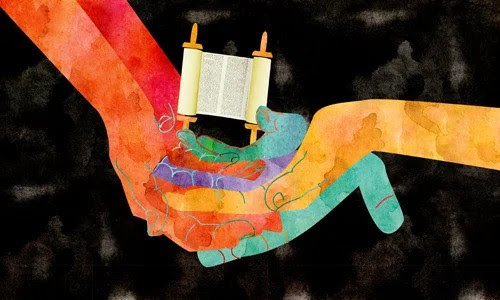
May 10, 2024 | This week is Parshat Kedoshim. Read more about it here.
“You should be holy.”
When you hear about a “holy person” what comes to your mind? Most people think of a saintly person who is out of touch with reality. But this foreboding command is the opening directive of the Parshah this week - and is addressed to all of us. Part of our Jewish value set is to be holy.
What does being holy even mean? We recognize the Jewish values of loving our neighbor, observing Shabbat, acting philanthropically, being honest in business, respecting our elders, standing up for the poor and vulnerable, strong family units - but what is this holiness thing all about? The Judaism that we are familiar with seems to be about being a very grounded, good person. Is the average Jew actually expected to be holy?
Well, a closer look at the details of the Parshah can help us understand this. Although the title of the Parsha is “Kedoshim - Holy” and the opening statement is a call to be holy, what follows is a list of Mitzvahs that are very grounded and practical. In fact, all of the Jewish values that I mentioned in the last paragraph are sourced in this Parshah!
So maybe we just don’t have a good understanding of what holiness is and how to be holy. Nachmanides, the 13th century scholar and mystic, explains that Torah’s instruction of holiness means to have restraint. Respecting spiritual boundaries and not giving in to temptation is an act of holiness. There’s something holy about being a mentch.
But I think there’s more to it.
Here’s a teaching on one of the Mitzvahs in the Parshah that can illuminate this. When a person plants a fruit tree, they aren’t allowed to eat the fruits for the first three years. Then, in the fourth year, they have to bring the fruits to Jerusalem to enjoy. Only in the 5th year can they start eating them regularly at home.
There’s something about the way the Torah teaches this Mitzvah that’s interesting. After spelling out the Mitzvah, Torah says that this is “Lehosif lachem tevuoso” - “in order to increase its produce for you.” In other words, by following the Mitzvah, we will be blessed with more success.
If you pay close attention, the Torah doesn’t add this promise of reward when it tells us not to eat the first 3 years of fruit. It doesn’t offer this encouragement when it tells us to bring the 4th years’ fruit to Jerusalem. It says it when it allows the 5th year’s fruit to be eaten at home. Why is the 5th year’s fruit blessed more than the others? That’s the easiest part of the Mitzvah!
The Rebbe once explained that this holds the key to understanding Judaism’s take on holiness.
The first 4 years, the fruits are off limits and have a Mitzvah associated with them - they are something that we’re doing specifically for Hashem and showcase the classic idea of transcendent holiness. The 5th year’s fruit are regular - we’re just eating the fruits to enjoy them, an example of something that is integrated into our every-day life.
The Mitzvah is showing us that true holiness is not about transcendence or stepping out of the routine. Holiness is how we go about the regular things we do, investing purpose and meaning into the mundane. The holiest arena of Jewish life is not the synagogue, it is the home and workplace. G-d doesn’t want us to find Him outside of the world but to bring Him into it.
We are called upon to be holy: not to disengage from the world, but to engage with it in a way that reflects our purpose. We follow this directive when we bring G-d into every part of our lives.
Our work and money become holy when we are honest and give a percentage of our earnings to the poor. Our family life and relationships become holy when we are faithful to our partners and respectful to our parents. Our resources become holy when we use them to help others. Eating dinner becomes holy when we eat kosher and make a blessing. Walking down the street become holy when we proudly reflect our Judaism and G-d.
Shabbat Shalom,
Rabbi Menashe
A Religion of Life
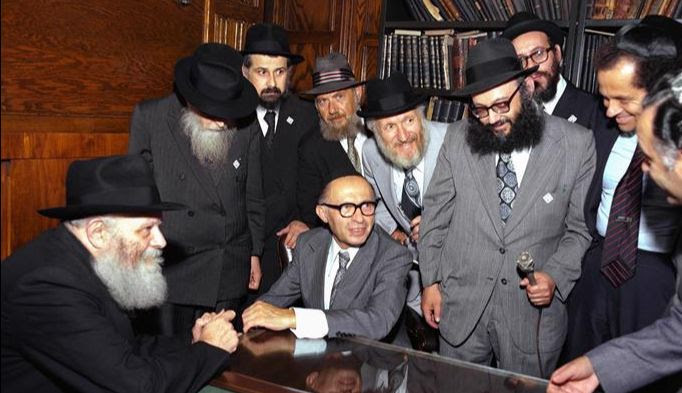
May 3, 2024 | This week is Parshat Acharei. Read more about it here.
It is deeply ironic that we, of all people, are being charged with the ludicrous libel of genocide. One of the things that sets Judaism apart from other religions is its uncompromising respect for life. There are many things we believe in and value, but the highest Jewish value is life itself. We are not perfect, and it isn’t antisemitic to criticize us or some of Israel’s actions, but to pretend that Israel is aiming to kill innocents or label Jews as pro-genocide is absolutely antisemitic and ignorant.
The Talmud (Sanhedrin 37a) asserts that “saving one life is akin to saving an entire world.” It was actually the Jews who taught this value to the world. Many of today’s human rights and values, which we take for granted in the West, can be directly traced to the Torah.
Judaism values human life so much, even more than its own observance! When Judaism conflicts with a person’s life, survival takes precedence and we break almost every rule to save them (the 3 exceptions are blasphemy, illicit sexual relations and murder).
We actually learn this in this week’s Parshah: “And you shall observe My laws and statues that a person should fulfill, and you shall live with them, I am Hashem.” The words "and you shall live with them" seem superfluous, leading the Talmud (Sanhedrin 74a) to understand them to be excluding instances when observance would endanger your life: "and you shall live with them - and not die with them.”
As important as Shabbat is to Judaism, we break it even for the possibility of saving a life. We eat on Yom Kippur if there’s a realistic chance that fasting would endanger a person’s life. And, in the Rebbe’s view, this value is also directly related to our approach to Israel’s security.
The Rebbe had a unique and nuanced approach to Israel. He was a strong supporter of Israel and maintained close relationships with its leaders and generals. Many of them would seek his advice and blessing and he was very informed and vocal on its security. While obviously motivated by the religious and historical connection to our homeland, the Rebbe would more often than not invoke the pragmatic value of human life as the foundation for Israel’s security.
In talks and letters, he would quote the law of breaking Shabbat to save a life, where the Shulchan Aruch (Code of Jewish Law) states (Laws of Shabbat Ch. 319):
“If non-Jews come to attack a town for financial gain, the Shabbos may not be desecrated because of them. If, however, they come to kill, and even if they come with no expressed intent, but there is concern that perhaps they come to kill, one should confront them while armed and desecrate the Shabbos because of them. This applies even if they are merely threatening to come.”
Sounds simple enough: if there’s a threat to Jewish lives, we do everything we can to thwart it, even if it requires desecrating Shabbat. The continuation of this law takes it one step further:
“In a town that is near the border, even if they only seek to come for matters concerning hay and straw, the Shabbos may be desecrated because of them, lest they capture the town, and from there, the [entire] land will be easier for them to conquer.”
Even when there is no express intent of violence, Shabbat is suspended to protect a border town, since it can lead to a security breach and infiltration, which may then cost lives. We sacrifice one of the most important Mitzvot to secure our borders and ensure the safety of our citizens. This law was taught almost 2000 years ago (Talmud, Eruvin 45a) when the Jewish community was based in Babylonia, and is unrelated to religious or political concerns. It is actually our deep concern for human life that motivates our need for security and for eliminating enemies that are sworn to our destruction.
We have to remain strong in our faith and values and continue to uphold our Jewish pride, even when there’s so much noise trying to drown it out.
The principle of “to live by them” is not only a directive to push aside observance in the face of danger, it is also a guiding principle in how to live our Judaism.
Vechai Bahem can be translated as “and you should invest life in them,” teaching that our Judaism should be full of life and enthusiasm. It can also mean “and you should be invigorated with life through them;” which means that your Judaism should be what excites and motivates you.
When they go low, we go chai. Let’s use this moment to rededicate ourselves to our Jewish values and to add in our practice of Mitzvot and Torah study - and to . If you would like help or direction in adding to your Jewish engagement or learning, please reach out to me and I’d be happy to help.
Shabbat Shalom,
Rabbi Menashe
The Seder Continues
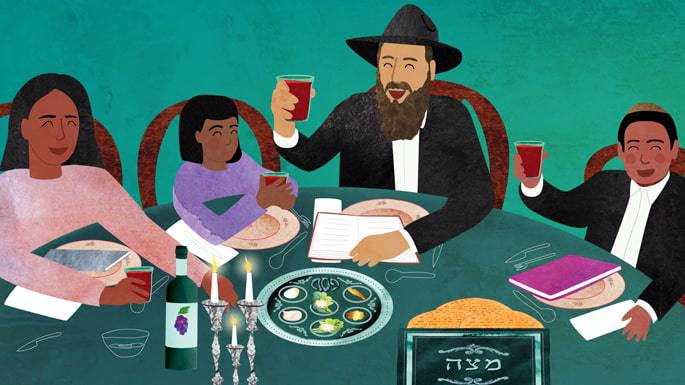
March 26, 2024 | This week is Intermediate Days of Passover. Read more about it here.
Many have the practice to conclude the Seder with the poem: chasal Seder pesach - the Passover Seder has concluded. Curiously, this phrase doesn’t appear in the Chabad Haggadahs, and it isn’t a typo.
It is because the Seder doesn’t end. While the Seder may only be a once (well, twice actually) a year event, we want to live with its message a whole year. So the Seder starts on Passover eve and continues throughout the whole year.
One of the central messages of the Seder is that the Exodus was not just a historic event, but an ever-repeating story. We read in the Haggadah: “Not only one arose and tried to destroy us, rather in every generation they try to destroy us, and G-d saves us from their hands.” The Egyptians were the first to try dehumanizing the Jewish people but unfortunately far from the last.
Throughout my life, I’ve read this passage and acknowledged the many times that our people have faced persecution and annihalation. I have thought of my grandparents who survived the Holocaust. I have envisioned my grandparents who suffered under communist Russia. But I never felt its immediate resonance in the present moment.
That is, until this year. Unfortunately, we are living through these haunting words and as we sat around the Seder table this week, their relevance was all too acute. Not only in Israel and the terrorists that are sworn to its destruction, but as Passover approached the attempt to erase Jews and Judaism has gotten louder in our own backyard, on college campuses across the US and especially right here in New York.
I know we’ll get through this. We’ve been here before and shouldn’t be scared or intimidated. Instead, we should seize this moment to double down and strengthen our Jewish resolve.
This is the moment to reflect inward on why being Jewish is important. Our enemies want less overt Jewish presence, and we have to make sure to be more openly Jewish. Our enemies try to paint our faith with a warped brush, and we should be outspoken about our beliefs.
This is the moment to talk to your children (as the Seder directs us to) about why being Jewish is important. Many kids and teens are questioning right now: why are they targeting us? Is being Jewish worth the consequences? Maybe those sworn to our annihalation have a point? These questions are opportunities to awaken our Jewish pride and identities. We have to be there for them, to guide, answer, direct and teach them.
It’s somewhat ironic that many people sing the paragrpaph of the Haggadah “in every generation they try to destroy us” in an almost joyous melody. Only Jews can sing a song like that. But I think that that is the point of that passage. It is not to paint a dark picture of Jewish life, but to fill us with hope and conviction. The emphasis is on the end of the paragraph: “and G-d saves us from their hands.”
Friends, the Seder doesn’t end. To be a Jew is to live the Seder every day of your life. It is to rejoice that we are still here, despite everything. It is to celebrate being a Jew, even though it isn’t always easy. It is to continuosly remind yourself that there’s always an Pharoah out there intending to erase us, but G-d is on our side.
Bayamim Hahem Bizman Hazeh - just as G-d miraculously redeemed our ancestors on Passover from oppresion and slavery, may we witness miracles today with the return of the hostages, the downfall of our enemies and a surge in Jewish pride and safety everywhere.
Shabbat Shalom and Chag Samech,
Rabbi Menashe
Festival of the Future
Tonight through Thursday celebrates the “Second Days” of Passover. Read more about it here.
The second half of Passover is exactly 7 months since the horrific day when the world turned upside down and 1200 of our brothers and sisters were murdered - and it is exactly the Holiday for this moment.
Passover is a commemoration of the past, an experience in the present and also a hope for the future.
The 8 days of Passover are broken into a few sections. The first two days and the last two days are full Holidays, and the middle 4 days are chol hamoed - where it is still Passover but we are allowed to do work.
While Passover as a whole is a commemoration of the Exodus, the two Holiday sections celebrate different stages of the redemption.
Historically, the first days commemorate leaving Egypt and the second set of days celebrate the splitting of the sea. In the Chassidic tradition there's an added layer of meaning to this split: The first days of Passover commemorate the Exodus from Egypt and the last days the anticipated arrival of Moshiach.
The first days give Jews permission to be free, the last days invite us to implement that freedom. The first days remove the blockage for the birth of the Jewish nation, the last days are a call to split the sea and march forward proudly. The first days provide the theoretical framework for Jewish faith the second days challenge us to make it real.
The Haftorah that we’ll read on the final day of Passover is Isaiah’s prophecy about the Messianic era. The prophet describes the arrival of the Messiah and the world peace that he will usher in: “And a wolf shall live with a lamb, and a leopard shall lie with a kid.. and He shall gather the lost of Israel...the four corners of the earth.” It is us that make this vision a reality. You can read the full Haftorah here.
Moments later, we’ll recite Yizkor - the very first memorial prayer since October 7.
Over the next couple of days, let's not only remember the dead, but honor their memory by creating a better future. Let’s try to envision what a redeemed world would look like. Let's try to see each other and the world around us through the lens of the Messianic consciousness - of love and acceptance, of purpose and meaning, and spiritual fulfillment - and set an intention to manifest that vision into our lives.
If you can, use this Holiday to start a new Jewish practice that will manifest the Jewish vision onto the world. Hopefully that mitzvah will split the sea and allow the Jewish people to walk through safely.
There's a beautiful custom to finish Passover with the Meal of Moshiach - a 'Seder' of sorts, to pray and dream for the Messianic era. We celebrate an era where we'll live in a perfect society - without hate, poverty, jealousy and all other ills. We anticipate a world where we can access a higher consciousness - where we’ll sense the purpose and divinity within every person, thing and experience. We dream of a time where everyone will live in peace and harmony. You can read more about the history and customs of the Moshiach Meal here.
We'll be joining Chabad of Park Slope for a 'Meal of Moshiach' dinner on Thursday evening to close Pesach on a note of positivity and liberation, with song, stories and spiritual insights. See below for details.
Chag Sameach,
Rabbi Menashe Wolf
An Egyptian BBQ
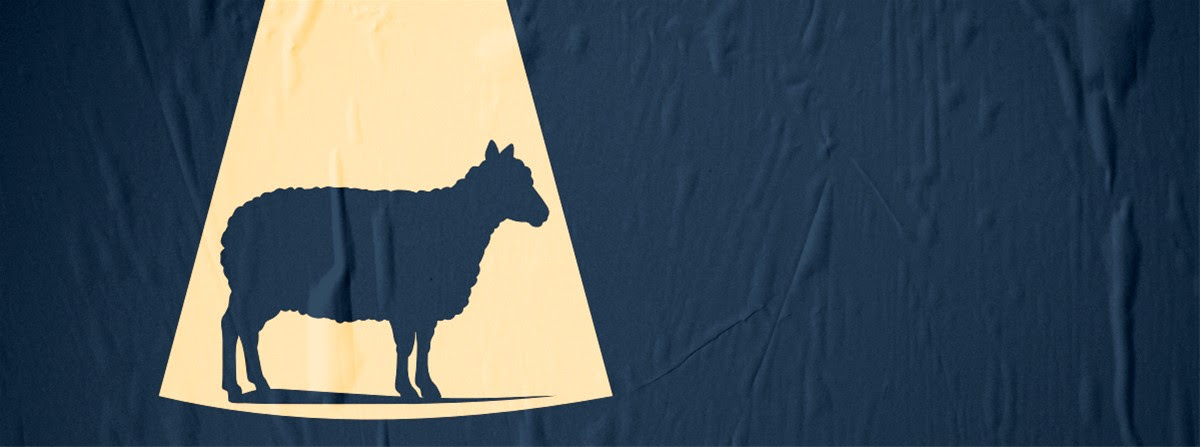
April 19, 2024 | This week is Parshat Metzora. Read more about it here.
How do you like your Brisket at the Seder? Rare? Medium?
I know this doesn’t sound like the most important question to be asking ahead of Passover, and you might by wondering why this rabbi cares, but apparently Torah is very particular about the Passover meat preferences.
Torah doesn’t really offer culinary advice or suggestions. Yes, we are commanded to keep Kosher, and not to eat Chametz on Passover, but we are free to prepare our food however we like. The one exception is the Passover lamb.
On the original Passover, when the Jews were preparing to leave Egypt, G-d told them to prepare a lamb to be slaughtered and eaten on the night that they would leave. And there were very specific instructions on how it had to be prepared: “And on this night, they shall eat the meat roasted over the fire. You shall not eat it rare or boiled in water, only roasted over the fire its head with its legs and with its innards.”
The Jews had to roast the lamb whole, and this became the law going forward for future Passovers, that the Paschal lamb had to be eaten rotisserie roasted.
Why roasted? Who cares how we like our meat? Why does it make it a difference how it is prepared?
The medieval Spanish commentator, Rabbi Avraham Ibn Ezra, offers a powerful insight, which cuts to the core of the freedom that we are celebrating on Passover and provides a keen message for today.
The lamb was an Egyptian deity. When G-d told the Jews to take it and prepare it for slaughter, it was the ultimate slap in the face to their captors. You can imagine that the Jews, not yet free, would have been afraid of rocking the boat and resistant to making a scene of out cooking this meat. “Let’s eat it raw,” they might have meekly suggested, “so no one will notice us eating it.” Or they may have wanted to cook it indoors with a cover on the pot, so the smell wouldn’t float through the Egyptian streets.
But this was G-d’s message to them in the final hours before their liberation: don’t be afraid of what others think of you. Don’t shy away from your calling because of what others might say. Don’t allow the Egyptian public opinion to define you.
A slave is someone who’s identity is defined by others. A slave is someone who has to ask permission from others to exist. The Jews were going to go free from Egypt, but the physical freedom and geographic Exodus wasn’t enough. They had to free themselves from the slave mentality. Taking the Jews out of Egypt was one thing, but G-d wanted to take the Egypt out of the Jews.
So they had to roast the lamb. Picture millions of Jews having barbecues at the exact same time. The smell of roasting lamb would have wafted through every corner of Egypt. This sent a powerful message to the Jews: You are now going free, and have to be strong in your values, proud of your heritage, and secure in your identity.
Today is the Rebbe’s birthday. The Rebbe epitomized this brand of Judaism. He empowered a generation to arise from the ashes of the Holocaust and live proudly as Jews. When others took a defensive approach to Jewish identity and community, the Rebbe went on the offensive, encouraging Jews to be visible and public.
This is a message for our moment. The Haggadah reads as a text for 2024. On Passover we celebrate our freedom to be ourselves. Our Jewish identity isn’t dependent on the acceptance of others. We don’t need the approval of the world to know that we have a right to exist. We don’t need permission to be ourselves. We should walk the streets proudly as Jews with strong values.
Our ancestors first act of freedom was to not to bow to Egyptian pressure and not to allow the Egyptian opinion to have any bearing on their own Jewish identities. We perpetuate this freedom by being loud and proud Jews and not allowing our haters to define or silence us.
Shabbat Shalom and Chag Samech,
Rabbi Menashe
Impactful Isolation
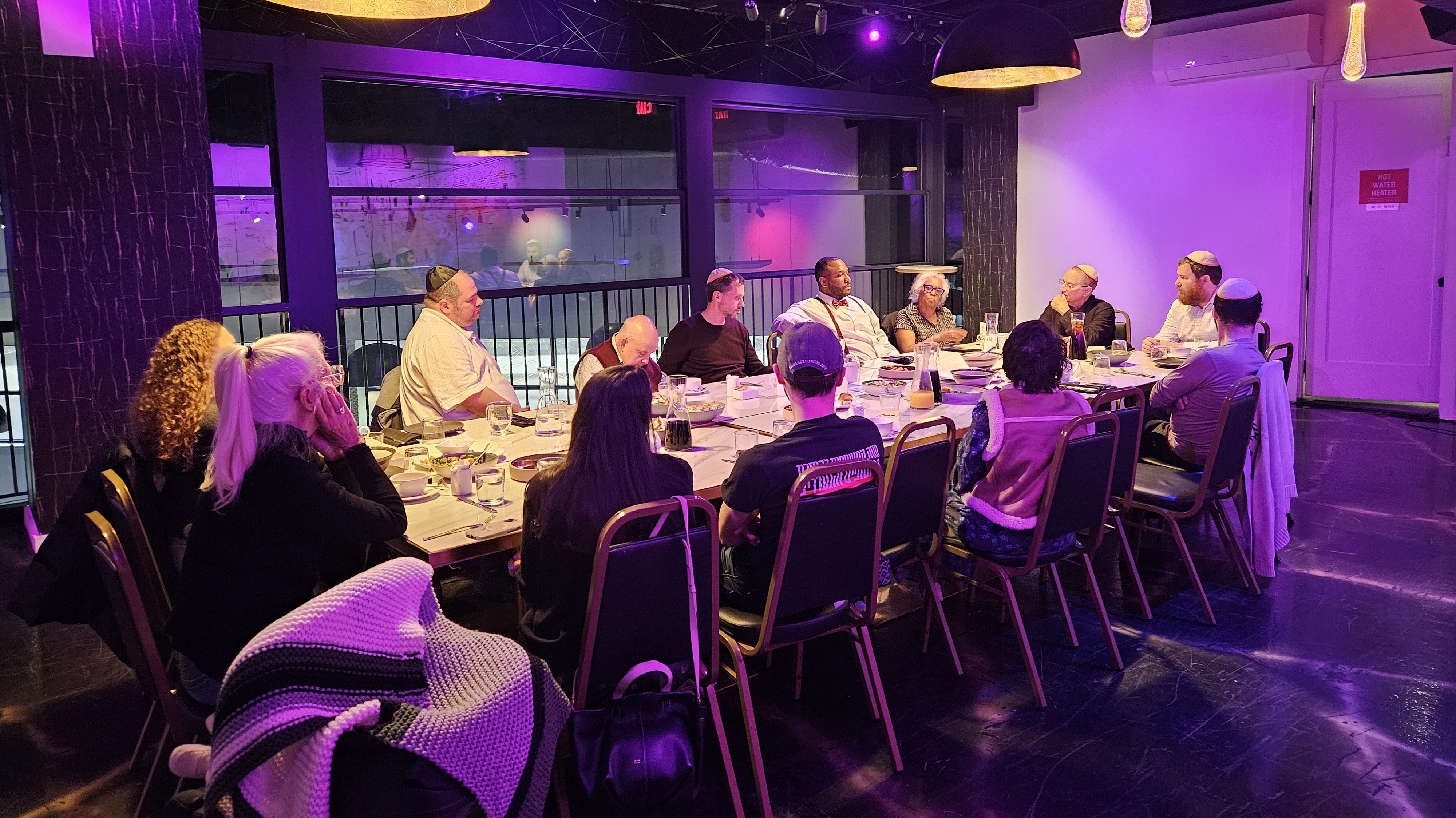
April 12, 2024 | This week is Parshat Tazria. Read more about it here.
On Sunday we had an insightful discussion on the ethics of incarceration with David Rothenberg. David founded the Fortune Society over 50 years ago to help prisoners and people after prison. At 90 years old , he is still sharp, witty and very active.
David shared about his work and about the plight of prisoners and the relative ineffectiveness of the prison system. We also spoke about some of the Jewish values that set the foundation for ethics and motivate much of the activism and advocacy in this space:
- Tzelem Elokim: every person is created in the Divine image and should be treated with dignity.- Every moment of each person's life has purpose and we each have a mission to carry out in this world.- Teshuvah: The belief that everyone can turn their lives around and change.
With these foundations, it's no surprise that in Torah there's no real concept of prison as a punishment. The only reference to prison is as a holding cell for someone awaiting trial. But in and of itself, prison is a dehumanizing experience and doesn't have a good track record for rehabilitation.As I was reflecting on our conversation this week, it hit me that in this week’s Parsha we do find something analogous to not just incarceration, but solitary confinement.When someone contracted the metaphysical skin disease of Tzara'at they were deemed impure and placed outside of the camp. In contrast to other impurities, the afflicted person couldn't even be with other impure people, and had to spend the time alone. In effect, this was solitary confinement.So how does this fit with the Jewish values of human dignity?
The Talmud shares that Tzara’at was not a regular skin disease, but a Divine punishment for anti-social behavior, most notably slander and gossip, which explain why the consequence was to be alone for a little while, until it cleared.
You can understand this simply as tit-for-tat: the offender caused people to feel isolated, so they must be isolated too. Or as a deterrence: slander is so harmful and a harsh punishment would make people think twice about slandering. But these forms of punishment don’t fit well in the Jewish set of values.
The truth is that this time of separation was viewed as corrective, not punitive. The isolation provided the person time for introspection to examine and correct his or her errant behavior. The aim here was entirely rehabilitative, and for the sake of the offender, not of society.
This was a holistic approach to rehabilitation: if someone is going around spreading rumors or slandering, there’s obviously something deep going on inside of them that they need to work through. There’s an insecurity that they are struggling with. When we are around others, we judge ourselves relative to them and this can lead to negative self-judgement. The only way to address this is by being alone, away from others.
The isolation was an opportunity to take a step back from outward-facing life and social engagement and go inwards to confront the inner demons that are plaguing them.
The obvious lesson for us is how careful we need to be about the way we speak to, and about, other people and the danger of hurting others with speech. But, if we're going to be honest, we all fall short on this sometimes. We share gossip. We say hurtful things to people. We post nasty comments on social media.
We don’t have Tzara’at anymore - but its prescribed process can be a lesson for us. If you notice yourself saying something mean, step back a minute and reflect inwards on where it is coming from. More often than not, it is coming from an unhealthy place, and is a call for inner work.
Shabbat Shalom,
Rabbi Menashe
Eight: The Success Cycle
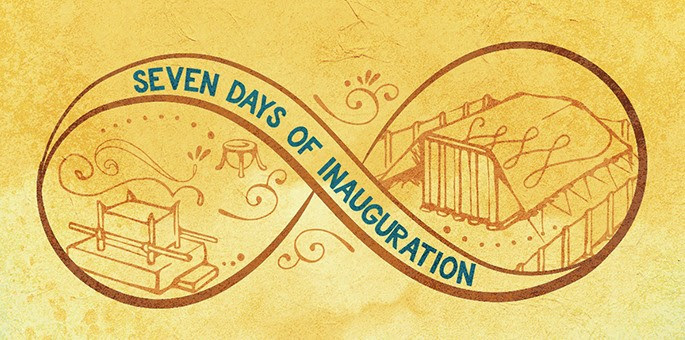
April 5, 2024 | This week is Parshat Shemini. Read more about it here.
They say that insanity is doing the same thing over and over again and expecting different results. We all know this, but too often fall prey to its diagnosis.
We are always hoping for different outcomes is so many areas of our lives, but more often than not we fall into the same responses and routines. This happens at home with our kids - we keep acting the same way towards them, but hope that this time they'll listen. It happens at work - we approach problems with the same set of data and skills and hope for a breakthrough. It is true in our relationships and our personal goals. We keep hoping for better, but showing up with the same energy.
In this week's Parsha we read about the inaugration of the first Jewish Temple - the mishkan that the Jews built in the desert. After 7 days of 'practice', the installation rites were performed on the 8th day (which is where our Parsha gets its name from - Shemini meaning eighth) and the Temple was inaugurated.
Over the seven day soft launch, the Divine presence didn't rest - to the point that the Jews worried that all of their efforts had been in vain. Without a response from G-d, they questioned, was the project a failure?
Sensing their disapointment, on the eighth day Moses prayed: "May it be God’s will that the Shechinah rest in the work of your hands.” Indeed, the Divine presence then came and rested in the Temple.
In Jewish thought, and especially in Kabbalah, numbers are symbolic and meaningful. The number 7 represents the regular cycle of nature - think 7 days of the week, 7 notes on a music scale, 7 colors of a rainbow. Eight, one more than 7, is symbolic of something that trancsends the natural order.
The human soul also operates with a range of seven emotions or character types. The way we usually go through life is reacting to the world around us with these seven emotions. But each of us also have an 8th element of soul - a depth of character that is not reactive or dependent on what is going on around us. It is not a specific trait at all, but our inner self and essential identity.
This is why the first seven days of the inaugration weren't enough, and the eight day is when it all began. The Jews were attempting to achieve something radical - for G-d to be present in the community. They were trying to house the transcendent and infinite Divine in a finite home and material world. They were creating a historic new reality on the ground in their lives and the world. This couldn't be done using normal means. Just giving it their best wasn't enough.
The seven days, representative of a natural effort, couldn't change things. The eighth day, representative of a transcendent effort from the depths of their souls, was what could create success and bring the Divine into their work.
The Mishkan's inauguration teaches us that when we have to build new beginnings, we have to go a little deeper and access a self that we don't normally use. When we go beyond our regular effort and responses and dig deep to find a more wholesome and fresh wellspring of energy, that's where we can find new results.
Shabbat Shalom,
Rabbi Menashe
Holy Waste

March 29, 2024 | This week is Parshat Tzav. Read more about it here.
What would you think if you saw the President taking out the White House garbage? Or if you heard that the CEO of a Fortune 500 company cleaned the bathrooms in their office? You'd probably be quite surprised and think it was strange. Inappropriate even.
But look into the Parsha this week, and that’s exactly what we read. We are told that a Kohen, a venerated priest, had to be the one to clean the ashes off the altar when the sacrifices had finished burning. The respected representatives of the Jews in the Temple service of offering the sacrifices had to clean up its mess.
In fact, historically the garbage collection was a sought after part of the holy service and the priests would fight for the right to do it. The Talmud records that the competition was so fierce that a priest once pulled a knife and stabbed his colleague to make sure he didn't beat him to the top of the Altar to perform the sacred duty of cleaning the ashes (they later changed it to a more peaceful lottery system).
Why were the holy priests given such a menial and degrading task in the Temple? And why were they so eager to do it?The Temple service was where the Kohanim connected to, and experienced, G-d. Their relationship with G-d was so strong that any chance they had to interact with Him, even if it was cleaning His "leftovers", was an opportunity that they didn't want to miss. It may not have been the most respectable of tasks, but it was a Divine encounter.
Circling back to the President or CEO - you can't imagine them taking out the trash, but you wouldn't think twice if you heard that they changed their children's diapers and you wouldn't bat an eyelid if you saw them on their hands and knees picking up their children's toys.
When you are passionate about something, no part of it is too small or too degrading to be deserving your attention. When you love someone, even the most menial or degrading task is a privilege.
There are so many parts of our lives that seem tedious, menial and trivial. In our relationships with our spouses, children and friends. In our workplace. In our interactions with out neighbors. Small things that seem beneath our dignity or not worthy of our attention. But if we really care about these things, the tiniest of details and the most unattractive parts of those responsibilities are worthwhile.
And this lends sacred meaning too to the small things. Today we don't serve in the Temple, and we don't clean the ashes of the Altar, but Judaism should be a labor of love. No part of our life is too small to be significant and holy. Some Mitzvahs can seem trivial or beneath our intellectual dignity - but they are sacred opportunities to connect with G-d.
Anything that we do can be done for the sake of bettering the world or connecting with our purpose. From the moment we wake up in the morning until our heads hit the pillow in the evening, our days are filled with opportunities to invest meaning and holiness into our lives. If you view life as a relationship with G-d, even unflattering tasks like taking out the trash can be purposeful and holy!
Shabbat Shalom,
Rabbi Menashe
Remember & Resist
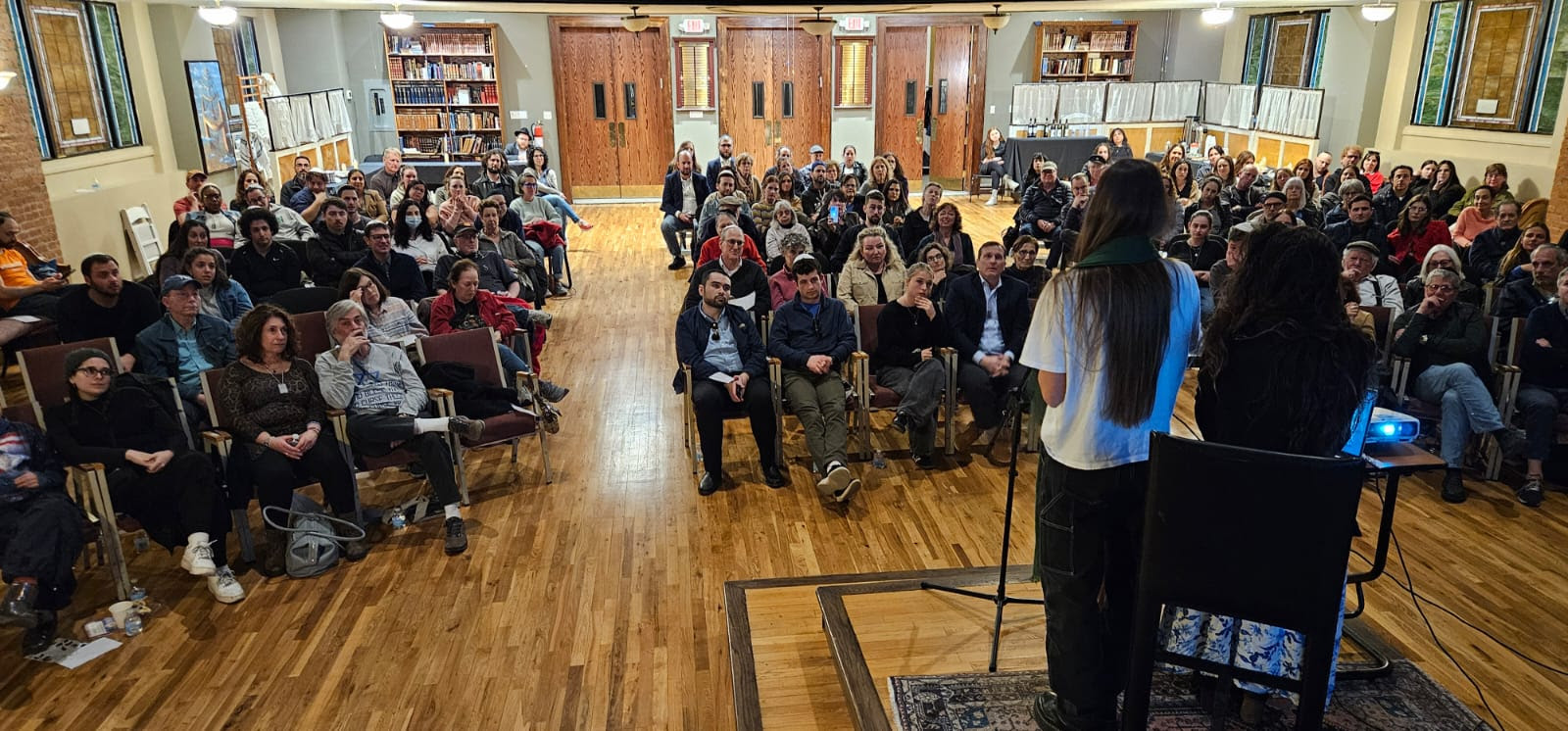
March 22, 2024 | This week is Parshat Vayikra. Read more about it here.
This past Sunday, we were honored to host Danielle Dvir, a 23-year-old survivor of the Oct. 7 massacre at the Nova Festival, to share her story.
We heard the first hand account of the missiles flying overhead, being confronted by terrorists, running through fields with automatic gunfire filling the air, hiding in a tree and in a creek, and of running to the point of exhaustion. We heard of the barbaric violence of Hamas and of the heroic acts of her father to save her.
The room was filled, but you could hear a pin drop throughout the hour-long presentation and there was barely a dry eye in the room. Danielle’s strength on that harrowing day and her courage to share her traumatic story publicly were moving.
In my introductory remarks I borrowed from the special Torah reading that we read this Shabbat: “Zachor et asher asa lecha amalek - remember what Amalek did to you.” There is an eternal mitzvah to remember the evil and barbaric attack that Amalek sprung on the Jews in an attempt to wipe them out as they left Egypt. This Shabbat’s reading is the only one that is Biblically mandated to hear - it is perhaps the most important message of the Torah. Indeed, we must memorialize the atrocities committed against our people, especially when so many try to deny them or trivialize them.
But the command to remember is not to know the past, it is to actively live with it in the present. More important than to know what was is for that to inform what is.
In Hebrew, there’s no word for history (modern Hebrew’s historiah is a borrowed word). The closest is zachor, which translates as memory. There’s a big difference between history and memory: History is the study of things that happened long ago; memory is how they impact us now. History is about the past while memory is about the present.
This explains a curious tension in the commandment vis-a-vis Amalek. In the same reading that we are commanded to remember them, we are commanded to erase their memory. These duties seem paradoxical, but the two actually go hand in hand. We must remember the history - not for history’s sake, but for what it tells us about our present moment. By remaining aware of the history we ensure it doesn't happen again, essentially erasing the perpetuation of its evil. Ironically, only by remembering it can we erase it.
But it is even more than that. In 1965, the Rebbe wrote a long letter to Elie Wiesel, encouraging the 37-year-old Holocaust survivor to get married and build a family. One of the ideas he outlined in the letter is that remembering the atrocities of the Holocaust is only the first half of the equation. To truly combat Hitler- and ensure Never Again - is to use that memory as a springboard rebuild a Jewish identity and life.
October 7 is fresh in our minds, and the story we heard on Sunday was another reminder of Hamas’ - the contemporary iteration of Amalek - grotesque cruelty. But we can’t suffice with knowing the story. It has to empower us to act differently.
This Saturday night and Sunday is Purim, when we celebrate the downfall of Haman and the overturning of his evil plan to kill the Jews. The Jews’ response to Haman’s genocidal plan was to double down on their Jewish commitment. Mordechai gathered them in prayer and study. They fasted and prayed. Instead of hiding their Jewishness out of fear, they leaned into it and resisted Haman’s threats.
We read the story every year to keep it fresh in our minds. The Talmud says that if you read the Megillah out of order (lemafre'a), you haven't fulfilled the requirement. The Baal Shem Tov taught an alternate reading of this passage: if you read the Megillah - the Purim story - as history (lemafre'a), you haven't fulfilled the requirement. Purim, he argued, is about our lives, not Mordechai's and Esther's.
We must remember the evil of Amalek, of Haman, and of Hamas. And we must take measures to combat it. Every life taken should be an impetus for us to touch more lives. Every soul lost is a calling to inspire another soul. Every person targeted for being Jewish is an awakening for us to live more Jewishly. There’s no greater act of resistance right now than living more Jewishly.
Shabbat Shalom and Happy Purim,
Rabbi Menashe
Taking G-d On The Road

March 15, 2024 | This week is Parshat Pekudei. Read more about it here.
What's the point of it all?
So often we find ourselves working through a challenge in order to get to a better place. We work hard and endure so much because we know we are working towards something. But what is that elusive destination?
This week we read the parshah of Pekudei and conclude the Book of Exodus. The second book of Torah tells the story of the formation of the Jewish people. It begins with the slavery in Egypt, then tells of the Exodus, the giving of the Torah at Sinai and the eventual building of the Temple for G-d, when, as we're told in this week’s portion, G-d's presence rested with the Jews. This arc encapsulates the entire Jewish story.
The storyline seems to indicate that the purpose of all of the struggles in Egypt was to eventually receive the Torah and build a sacred home for G-d within the Jewish community. It reads like a perfect fairytale: The Jews were in trouble, G-d saved them and they lived together happily ever after.
But there's a surprising twist. The Torah chooses to throw in one last detail before it closes out the Book of Exodus. It tells us that when the cloud - a symbol of G-d's presence - ascended from the Temple it was a sign that it was time to travel to the next spot in the desert, where G-d's presence would return to the community.
This detail is a part of the story, but belongs in the later Books of the Torah where the travels in the desert are recorded. It doesn't fit into this stage of the story and actually ruins the perfect ending. Instead of ending on a high note with G-d's presence resting in the camp, it tells of it leaving.
There's a profound message here that goes to the heart of the Jewish story. Torah is communicating to us the ultimate goal of the Jewish mission. It is not to have G-d rest within us, but to spread that influence around us.
Our mission is not (just) to have a beautiful Jewish community with a vibrant Judaism, it is to be a light to the world. The point of going through the slavery and Exodus from Egypt was not for the Jewish nation' to be sacred - it was for the Jewish nation to make the world sacred. The Temple was a microcosm of the ultimate Jewish aim - to make the entire world a home for the Divine.
Yes, having G-d's presence be with the Jews was beautiful and holy. It signified His closeness with the Jewish people and was an important milestone in the development of the new Jewish nation. But it wasn't the end of the story. Now that they were able to sense the Divine presence with them, they had to take it on the road.
This is true today too. We have to have strong Jewish communities. And we should be able to sense G-d's wisdom and presence within us, which we get from Torah, prayer and Mitzvahs. But then we have to travel through the desert - through a world barren of spirituality and devoid of a moral compass - and bring the light there. Our role is to heal the world. We have to influence the world to be a place that G-d can be at home.
On a personal level, the ultimate goal of our lives is not to be comfortable or to reach a milestone of personal growth and development. Our goal should be to help others and share what we have with them. We have to have personal goals and become “Temples” for the divine. But then we have to spread that light around us.
Shabbat Shalom,
Rabbi Menashe
Ideal vs. Reality
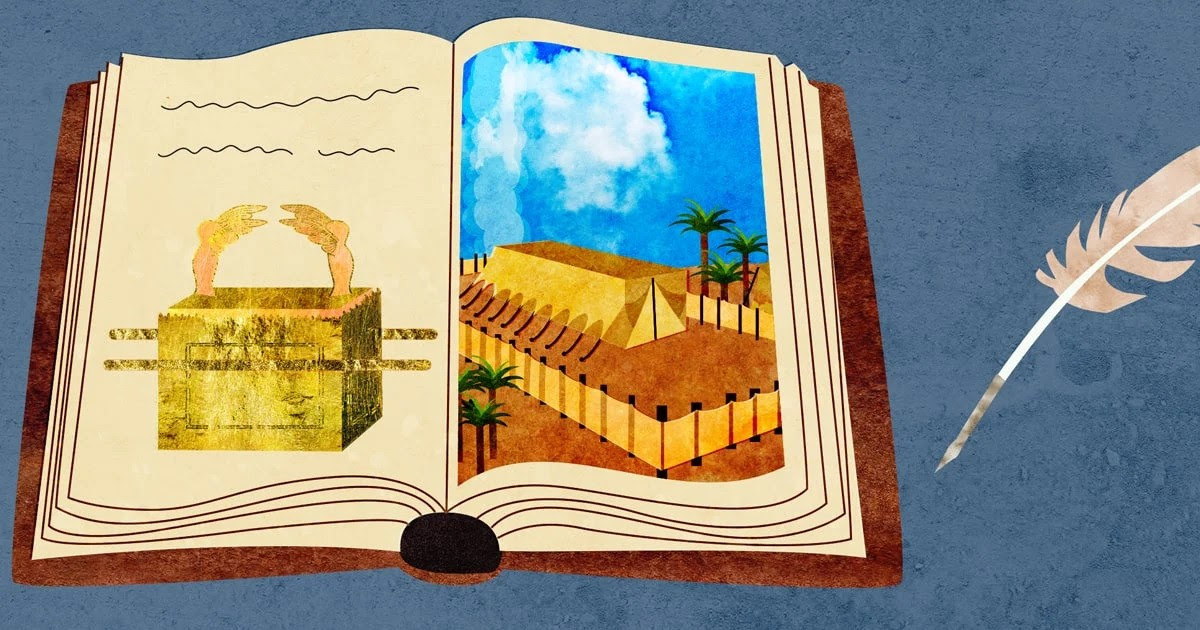
March 8, 2024 | This week is Parshat Vayakhel. Read more about it here.
You’ve probably seen some of the “Instagram vs. Reality” reels and memes that contrast the way pictures and videos are presented to be on social media with the way they look like in real life.
These are usually trying to show that the reality is never as good or perfect as the way it is depicted. But I think that the exact opposite is true. I’d choose the imperfect experience over the perfect one. The reality is far more interesting then it’s doctored counterpart.
Rabbi Yosef Yitzchak Schneerson, the previous Chabad rebbe, once shared an illustration for the value of human efforts, despite our shortcomings: “What is more valuable,” he asked, “a painting of a beautiful landscape or a photo of the same scene?” The photo is surely more accurate and captures every last detail while a painting is an imperfect representation of the image.
Despite that, the painting is much more valuable - precisely because of its “imperfections”. The painting has character and feeling. It takes tremendous skill and artistry and the artist is able to invest emotion into the painting, using the brushstrokes as a way to tell a story. The perfect representation of a picture is shallow and lifeless. It’s aim for perfection stifles the real experience of life and the profound human element. It’s cold and rigid.
The ideal life is much more like a painting than a picture. I’d much rather a real experience, with all of its flaws and warts, than a picture-perfect video. It’s more authentic. More human. More rich.
This week’s parsha reviews all of the details of the construction of the Mishkan. Torah has already dedicated a couple of parshahs to the detailed description of the portable TempleThis week’s parshah seems overly repetitive, especially given the fact that Torah is usually very concise.
But there’s a profound message embedded here. Until now, we read the description of the Temple that G-d told over to Moses. Now we read about the Jews’ efforts to gather the materials and actually build it. And this bears repeating, because these are actually two different Temples!
The Mishkan that G-d described to Moses symbolizes the ideal. It’s the Temple how it is seen through the eyes of the Divine. It represents an ideal life of constructing a perfect home for G-d in our world.
But the actual Temple that we build can never live up to this ideal. We are human. And we’re not perfect. But we do out best. The home for G-d that we construct is like a painting. It is invested with our sweat and tears, it expresses our struggles and successes. It is profoundly rich with human effort and achievement.
The message for us is simple. We don’t have to be perfect (we actually can’t be), but we can make the best effort at any given moment. You’re not a perfect Jew? Don’t worry, be the best you can be today. You’re not a perfect parent or spouse? That’s ok, just be the best you can be right now.
The Temple with your best efforts is as valuable - actually, more valuable - then the ideal Temple that you G-d envisioned. The Judaism that you observe with your best efforts is more valuable than the one you can read about in Torah. The best parent/spouse/friend you are is more valuable to those around you than the perfect one described in the books.
Shabbat Shalom,
Rabbi Menashe
Holding Onto The Broken Pieces
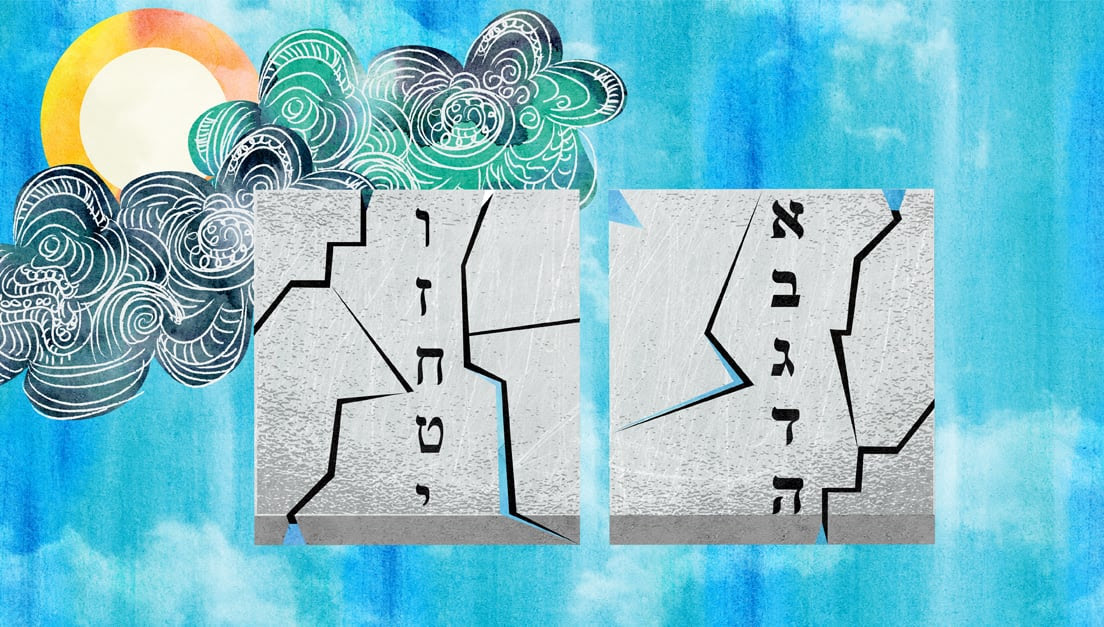
March 1, 2024 | This week is Parshat Ki Tisa. Read more about it here.
It’s not the snake bite that kills, it’s the venom that it injects into the body.
This is a metaphor that the Baal Shem Tov, founder of the Chassidic movement, shared about failure.
We all make mistakes. It’s human. Even huge mistakes that may continue to have repercussions on your life and the lives of those around you. But mistakes, even horrible ones, don’t kill us. They are like the snake bite. It is the guilt and shame that we feel as a result of the mistake that spreads like poison inside us and cripples us. It’s not the mess-up that knocks you down, it’s the way you respond to it.
This week we read about the most colossal mistake in our history. Just weeks after experiencing the revelation at Sinai and being on the receiving end of G-d’s miracles, the Jews created a golden calf and worshipped it with fanfare. Such religious infidelity could have spelled the end of their relationship with G-d.
But that isn’t how the story unfolded. When Moses saw what happened, he threw the Tablets that he had gotten from G-d on Sinai and smashed them to pieces. When the people realized the gravity of their mistake they begged for forgiveness and eventually G-d granted it.
This is an embarrassing episode in our history. The failure could have crippled us. You’d be forgiven for thinking that we should be traumatized from it and try to erase it from our collective consciousness. Or at least try move past it. But instead of being ashamed of the broken Tablets, the Jews carried them wherever they went and afforded them the greatest prestige.
Those broken shards were a symbol of the brokenness of the Jewish people. The fragments of stone told the story of the lowest moment in Jewish history. Yet they weren’t discarded of destroyed. Instead, G-d instructed for them to be carefully collected and preserved in the Ark, the most sacred object in Jewish tradition.
G-d was teaching the Jewish people an incredible lesson. The broken Tablets were sacred. The failure didn’t need to be a source of shame. Instead of hiding from their mistake or allowing it to cripple them, G-d was telling them to acknowledge it and lean into the growth that came of it.
The Golden Calf was a wakeup moment for the new nation and a stepping stone to greater spiritual development. It was a profound bite, but it didn’t poison them. By embracing the brokenness, the Jewish people could be assured that the covenant underscored in the Tablets would remain whole.
Indeed, the Midrash recounts that G-d praised Moses for smashing the Tablets, giving material manifestation to the broken shards of the Jews' soul and allowing them to carry it wherever they went.
Instead of allowing a mistake to eat us up and drown us in self-misery, let’s hold it with us and allow it to be a stepping stone to future growth. Acknowledging weakness doesn’t make you weak. If anything it makes you stronger.
Shabbat Shalom,
Rabbi Menashe
Mini-Purim, Maxi-Joy

February 23, 2024 | This week is Parshat Tetzaveh. Read more about it here.
What brings you joy?
You probably have a list of things that you know will make you happy: A family vacation. Buying something new. Hearing good news. Landing a dream job. Seeing your kids succeed. Reading a good book. Spending time with friends. The list can go on and on.
But think about the implication of the above paragraph. Our happiness is a result of something happening. Which means that our default mood, without an external stimulant, isn’t happy!
Now, of course, I don’t think that we’re all walking around sad until things cheer us up, but we have to reframe the way we think about happiness and develop a posture and awareness that fills us with joy just by virtue of being who we are and living.
And today is the perfect day to work on this.
Today is Mini-Purim. Yes, it’s actually a thing. This year is a Jewish leap year, and we add an extra month to bring the lunar and solar calendars in sync in time for Passover to be celebrated in the Spring. So we have two months of Adar: Adar I and Adar II.
The question is, which of the Adars is the primary one and which is the added leap month? If you have a birthday or yahrzeit in Adar, do you celebrate it the first month or second? Like many things in Jewish tradition, it’s a debate. I’m not going to get into the back and forth here, and if its relevant for you, feel free to reach out to me or you can play it safe and do both.
Now, back to Purim. Which month should it be celebrated in? The Talmud links the salvation of the Jews in Persia to the first rescue of the Jewish people in Egypt and says we should celebrate Purim as close as we can to Passover - so it is on the calendar for 14 Adar II (March 23-24 this year). But we don’t want the first Adar to miss out entirely so we mark a micro-celebration, called Purim-Katan, on the 14th of Adar I too. Which is today!
Purim-Katan, literally the small Purim, doesn’t mean that the celebration has to be any less. It means that we have the Purim spirit and joy, just without any of the formal customs of Purim - no dressing up, handing our Mishloach Manot food gifts, or parties.
In a way, this is a more profound opportunity for joy. It’s a celebration without any real motivator or external accompaniments. There’s no festive party, no community gathering with music and dancing, no drinks, and no retelling of the Purim story. Today we’re attempting to be happy without a real reason. We’re trying to feel joy without a stimulant.
It may be a mini-Purim, but it is a maxi-joy.
Purim itself has an unbridled energy of joy, but when it’s over, the joy subsides. The happiness we are working for today is organic and sustaining. If we can be happy today, we can be happy every other day of the year. If we can sense the inner joy of life, every day becomes a celebration.
King Solomon aptly summed this up in Proverbs (15:15): “A person with a cheerful heart always has a feast.”
Happy Purim Katan and Shabbat Shalom,
Rabbi Menashe
You’re Not a Fraction-Jew
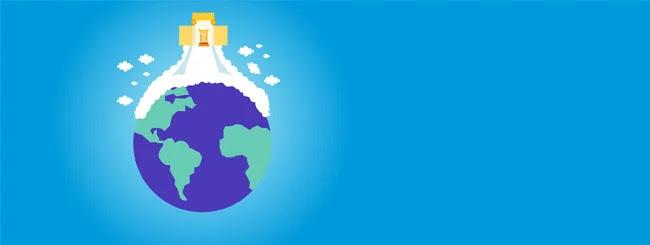
February 16, 2024 | This week is Parshat Terumah. Read more about it here.
How Jewish are you?
In our own minds, we sometimes identify as fraction-Jews. We dedicate select parts of our lives to our Judaism - for some it may be a few days a year, for others its once a week, and for the more committed its a couple of hours every day - but the rest of the time we are just ourselves.
We have the "Jewish" moments and the "regular" parts of our life. We're Jewish while we pray, but just regular people when we eat. We're Jewish while making Kidush on Friday night, but regular people when we walk in the street. We’re Jewish in the syngogue, but regular people at work.
But we can learn something from our haters. Antisemites don't distinguish between a Jew in a synagogue and a Jew on the street, between religious Jews and secular, between our Jewish moments and regular.
And there's something to this. In truth, there's no half-Jews or part-time-Jews. Being Jewish is a full-time identity.
In this week's portion, we start reading about the construction of the Mishkan, the portable Temple that the Jews build in the desert. Although it speaks about a structure that has been out of service for thousands of years, it contains a very poignant message about being a "full-Jew."
In painstaking detail, we learn the precise measurements and materials that G-d wanted to be used in the construction of the Mishkan. Fascinatingly, every segment of creation (mineral, plant, and animal) was incorporated in the structure.
The amount of attention this building gets in the Torah text is astounding. In the usually concise text, hundreds of verses are dedicated to the construction - compare this to the narrative of Creation which only gets 34 verses of airtime. This is because of the centrality of the Temple to the Jewish mission. The home described in this week's reading took the form of a physical structure in a specific place, but it is symbolic of the broader Temple that we are tasked to build: making space for G-d in every area of our lives.
Building a home for G-d is the foundational theme of the entire Judaism. The Temple was a microcosm of our entire lives. Every Mitzvah is a sacred channel for the divine and makes our world "habitable" for G-d, building Him a conceptual home in our world. G-d's role was to create the world; our role is to make a home for Him in that creation.
But it isn’t only Mitzvot and sacred acts that create G-d’s home. The verse says (Exodus 25:8): "And they shall make Me a sanctuary and I will dwell in them." G-d promised that he will not only dwell in the singular structure of the Mishkan/Temple, but in them (plural) - in the individual Jews and in their actions, possessions, and experiences.
This may be why the Mishkan had to include materials from every part of nature - to symbolize that everything that exists and every part of our lives - even the most lifeless and mundane parts - has a sacred purpose and is part of the structure of Divine home that we are building. There's a divine potential in every object, every encounter, and every idea. Our lives aren’t meant to be divided into part-Jewish, part-regular; we’re not meant to be fraction-Jews.
When we dedicate our lives for sacred purposes, those objects and experiences form a home for G-d. Every moment of our day can, and should, be lived Jewishly. We create a home for G-d in our workplace as much as in the synagogue. We create a home for G-d when we eat and exercise as much as we do when we pray. To paraphrase Maimonides (Mishneh Torah, Laws of Character, 5:1): “A Jew should be recognizable when they eat, sleep, and in how they walk, dress and manage their finances etc.”
We’re not fraction-Jews. Our Jewish identity, values, and heritage can spill over to every segment of our life.
We don't have a Temple of brick and mortar right now, but we can make a wholesome home for G-d in our lives by embracing our full Jewish identities and living Jewishly in whatever we do and wherever we are.
Shabbat Shalom,
Rabbi Menashe
Disrupting the Faith

February 9, 2024 | This week is Parshat Mishpatim. Read more about it here.
Being Jewish is something that so many of us have taken for granted. We were born into it, on varying levels grew up with it, and overall have had a pleasant experience within it.
But there are times when our "autopilot Judaism" is confronted, in ways both positive and negative. We all go through these moments at different stages in our lives. But there are times in history when we confront this collectively. The last few months since October 7 have been an example of this.
Things happen in the world that awaken a deeper connection to Judaism than we knew we had. We feel deeply connected to people we've never met but share an ancestry with. We feel deeply rooted in a place where we don't live. We sense there's more to our Jewish identity than bagels and lox and the High Holidays.
Things happen around us that make us question why we should identify as Jews. With antisemitism becoming more brazen and acceptable, just being openly Jewish is an act of resistance. Which forces us to ask ourselves why it is important to us. When it comes at a price to our social standing and safety, we have to have a good reason why we want to belong to our heritage. And we're forced to reckon with our aloneness as Jews. Why are we different? Why are we not treated equally?
This disruption hopefully leads to a deeper engagement with Judaism. It strengthens our identities and develops our relationship with our heritage, our faith, and our people. This national maturation process is built into the original narrative of the birth of the Jewish nation.
Last week we read about the revalation at Sinai and the 10 Commandments. The beginning of this week's parshah disrupts the story with a whole list of civil obligations and rational MItzvahs: pay your workers, respect the stranger, and many others. Then, the end of this week's reading takes us back to the beginning of the Sinai narrative and tells about the Jews' willingness to accept the Torah and their preparations for the revelation.
This non-sequential storytelling is interesting and seems to be trying to communicate something about the foundation and development of our Jewish identity.
Perhaps the three stages of the narrative are stages in our growth and maturation as Jews.
First, we're told of the overwhelming revelation of G-d at Sinai. This evoked a faith that took no effort. It was natural for them to believe in G-d and identify as Jews. The faith wasn't something they worked on or developed. It wasn't their own. This is like the Judaism we grow up with. We're following in the ways of our parents and inheriting their religion. It is beautiful and rich, but isn't something we own.
The Torah then disrupts the narrative with rational law, alluding to the rupture many people have when confronted with rational questioning. When we begin to mature out of the innocence of our youth, we start questioning the faith or practice of our upbringing. Why is this important? How is it relevant in our modern world? Does it make sense to us?
This also happens when events force us to confront our identities and priorities.
These are valid questions and they need to be asked. Because if we don't do the inner work in our relationship with Judaism and with G-d, we never truly identify with them. When we attempt to translate Judaism into terms that speak to us, we make it our own. Making sense of it makes it meaningful to us.
But this conversation - both internal and communal - is not an end of its own. It is a step in the process. If we stop here and only keep the parts of Judaism that are meaningful to us and that we can make sense of, we lose the whole thing. It's not Judaism that we're following anymore, it is a collection of practices and beliefs that resonate with us. We essentially create G-d in our image.
Ultimately Judaism is rooted deeper in our identities than we can ever rationalize. Just like you don't identify with your family because it makes sense, our relationship with Judaism is beyond our best understanding. There's always going to be more to it than what we can make sense of. We feel that deep in our bones.
Here is where the third part of the narrative comes in: We are taken back to the Jews' complete submission in response to G-d's offer of the Torah. They said: "naaseh venishmah, we will do and we will listen;" committing to follow even before they heard what.
At the end of the rational inquiry, at the end of our crisis of identity, we return to a more wholesome faith. Not the immature and undeveloped faith of our upbringing, but a deep awareness of our super-rational relationship with our people and with the Divine.
When we do the hard work of clarifying why being Jewish means so much to us and what it means in our lives - we create the space for a Jewish identity that is deeply personal and fulfilling. The effort of grappling with faith opens us to sense the deep wonder within it. Instead of limiting our connection to Judaism to our appreciation for it, we uncover the Jewish soul that is coded into our DNA.
As we navigate the times we're in, let's lean into the questions we're facing but not get stuck in them. I am confident that we'll come out of this as a stronger, more passionate, more committed, and more united people.
Shabbat Shalom,
Rabbi Menashe
AI and Sinai
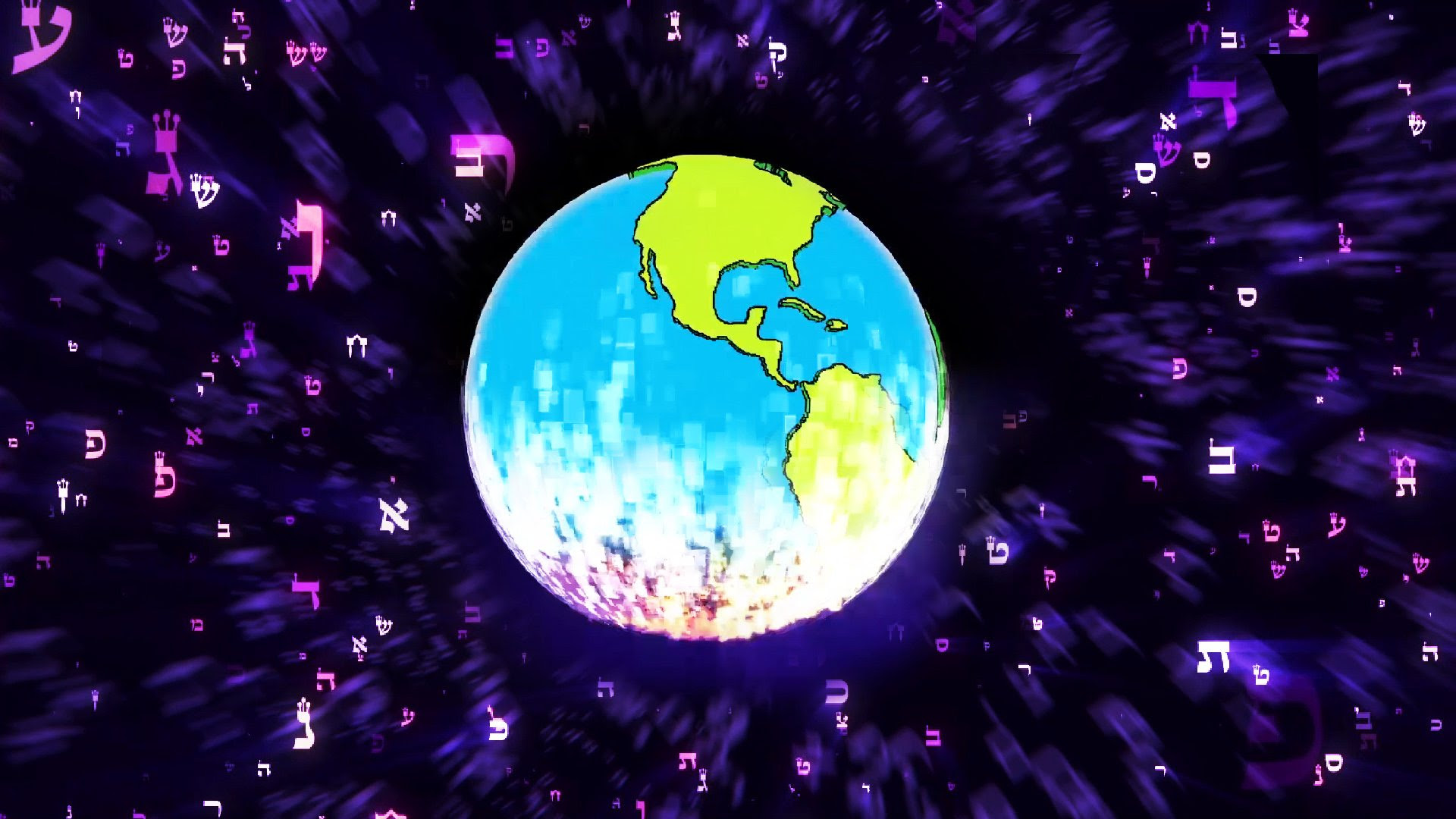
February 2, 2024 | This week is Parshat Yisro. Read more about it here.
Words play a big role in our tradition. It's no accident that the two most important moments in history were sparked by the spoken word: Creation and revelation. G-d spoke the world into being with ten statements and spoke Judaism into being with the ten commandments.
What is the significance of speech? G-d doesn't have a mouth, and obviously doesn't talk in the way we do - so Divine speech is a metaphor. But a metaphor for what?
There are two elements to speech: the spoken words and the content they convey. Words are tools that we use to communicate, not the communication itself. In Chassidic literature, words are seen as empty containers. They are meaningless on their own and filled with content only when arranged in a certain order - a sentence. Like pixels of color, they are meaningless structures until formed into a deliberate design.
Last Sunday, we hosted Ernie Davis, a computer science professor at NYU, for a fascinating talk on Artificial Intelligence. Ernie has been working on AI for over 40 years - before it was cool - and is one of the leading experts in the field. His clear explanation about the way AI operates really struck me.
Machine learning, he explained, is a misnomer. AI doesn't really learn anything - at least in the way we usually conceptualize learning. When you ask ChatGPT a question and it strings together a response - it isn't actually understanding your question and it isn't coming up with a coherent response. It is using all of the data it has to put together the most likely response to your input.
What that means in reality is that it is actually working one word at a time - predicting the most likely word to follow the word before it in the given context. It isn't using the words to communicate an idea, it is using probability to select words in the hope that it will build a coherent idea.
This idea helped me understand the significance of the two sets of Divine speech.
The words of Creation can be seen like the work of AI. We can divorce the "words" from their "content" and experience the billions of things which G-d created as random words that may or may not align with any purpose or meaning. G-d envisioned the possibility of, and potential for, meaning in the world and creation was by deliberate design. But we don't always appreciate that and the world we see can seem random.
The speech of revelation is the antidote to this. It is an invitation to invest meaning and purpose into the words of creation. G-d didn't just use words to create objects, he used them to communicate a meaning and purpose that the objects can achieve. The Torah is a guide to aligning reality with its purpose and utilizing the created world to form sentences that communicate a moral and spiritual truth.
When introducing the 10 Commandments, the verse curiously says: "And G-d spoke all these words, to say." There are many commentaries that explain the extra "to say" at the end of the verse. The Maggid of Mezritch points out that of the many Hebrew words for speech, the term used here, “leimor/to say” is the same root-word used in the creative speech of Genesis. Torah is linking the two speeches to highlight that the Mitzvot are intended to contextualize the script of creation and uncover its meaningful content.
G-d gave us the Torah and charged us with a mission to shape the world in its image. To introduce moral and spiritual clarity to society and invest meaning and purpose into reality. To bring a spiritual awareness and Divine consciousness to our life.
At any given moment, we can choose to see the world through the lens of creation or revelation. To see the world as a lifeless and random collection of objects and events or to make them into meaningful opportunities to find purpose and connect with G-d.
Our calling as Jews is to choose the latter.
Shabbat Shalom,
Rabbi Menashe
Inspired to Sing

January 26, 2024 | This week is Parshat Beshalach. Read more about it here.
In this week’s Parsha we read about the splitting of the sea and the inspired song that the Jewish people sang in response. After the people witnessed the miracle of the sea splitting and they were able to walk through it on dry land while their Egyptians oppressors drowned, they sang praises to G-d. The overwhelming Divine salvation inspired them to sing.
I’ve always wondered about this. For a full year, the Jews had been witnessing miracles. After hundreds of years of Egyptian oppression, G-d had brought plagues on the Egyptians. Against all odds, justice was being served. And after ten plagues that brought the Egyptians to their knees and decimated their infrastructure, Pharoah let them go.
This had been a dream for generations. For so long unimaginable, the Jews were now freed from the most tyrannical slave-masters. But, for some reason, we don’t read that the Jews' rejoiced. There’s no mention of celebration or thanksgiving. They didn’t sing.
Only a week later, after they crossed the sea: “Then Moses and the Jews sang praise to G-d.” What happened now that inspired the song? And why didn’t they feel the need to thank G-d earlier?
Some commentaries say simply that the Jews waited until they were completely free. But I don’t think this is satisfactory. After all the Jews didn’t know that the Egyptians would have a change of heart and chase them. As far as they would have known, they were completely free as soon as they walked out of Egypt.
I think we need to understand the nature of their song. It wasn’t a simple victory song. It was an inspired song that the Jews spontaneously all sang together. It swelled from the depths of their hearts and souls. It was a deep expression of their faith and exposure to the Divine miracle.
There was something very different about the splitting of the sea than the rest of the miracles that the Jews experienced. Until this point, the miracles had been inflicted on the Egyptians. Yes, the plagues were for the sake of the Jews’ release, but they targeted the Egyptians. The splitting of the sea was a positive miracle that was directed at the Jews to save them.
Of course the Jews were thankful in the aftermath of the plagues. They were overjoyed to leave Egypt. But they hadn’t experienced G-d’s hand directly. They had benefited from the impact of G-d’s miracles but hadn’t been direct recipients to it. They weren’t yet ready to sing.
Only when they witnessed G-d’s kindness which was positively directed at helping them could they break out in song. When G-d’s full glory was opened to them, their hearts were overwhelmed with joy and brimmed over with song: “Az Yashir Moshe U’Vnei Yisrael - then Moses and the Jews felt moved to sing.”
Because of the Torah reading, this Shabbat is known universally as Shabbat Shira, the Shabbat of song. Let’s pray that this truly be a Shabbat filled with song when we’ll see G-d’s open miracles that will inspire our souls to break out in song.
Shabbat Shalom,
Rabbi Menashe
Can You Envision a Better World?

January 19, 2024 | This week is Parshat Bo. Read more about it here.
The first commandment that G-d gave the Jews, even before they leave Egypt, was to observe the Jewish calendar. Instead of calculating time by the solar calendar, with the movement of the sun and the seasons, they were instructed to calculate the months around the lunar cycle. The cycle of the moon's waxing and waning would determine the months.
When G-d introduces this calendar to Moses in the Parsha this week, He says "This new moon will determine the calendar." The term zeh / this, usually connotes a demonstration or pointing to an actual model. The Rabbis noted this and commented that Moses was perplexed by the laws of the new moon, and G-d had to actually show him the moon in its birth - "pointed with his finger" - to demonstrate its contours.
What bothered Moshe about the moon? What was so hard to understand that G-d needed to personally clarify? And why was this the first Mitzvah?
One explanation reads this as a metaphor. Moses had no problem envisioning the physical stages of the moon's cycle. After all, he would have seen it every month. It was something deeper, something altogether more profound, that puzzled him.
The Jews are compared to the moon, and the waxing and waning of the moon represents the ups and downs of our colorful history.
While the sun's light is consistent, the moon is fractured. The sun represents the ideal, perfect light of G-d. The moon reflects the imperfect reality that we live in.
Just as the moon gets smaller in the sky until it is gone from sight, we go through difficult times, even bordering on the brink of extinction. And just as the moon always reappears the following day and begins to grow, we ultimately always bounce back in regrowth.
This is what troubled Moses. He could not understand how an incomplete moon could ever be rectified. He couldn't fathom how an unbalanced world could ever be healed.
So G-d had to show him. Some commentaries explain that G-d literally gave Moses a close up glimpse of the moon. Rambam, however, writes that Moses was shown a prophetic vision, a dream of the moon.
Perhaps this means that G-d opened Moses' imagination, broadened his horizons, and permitted him a vision of the full moon, of the perfected world, of the Messianic era. G-d deepened Moshe's senses to be able to appreciate the possibility of a world devoid of strife and hunger, free of competition and hatred; to sense a world of realized potential.
G-d allowed him to dream, and Moshe intuited a vision so beautiful and so magnificent. Instead of answering Moses’ question, He helped him look at the world with a fresh lens. The darkness didn’t change, but Moses’ perspective did and his difficulty envisioning a better world dissipated. His question was no longer "how" or "if" but "when."
G-d taught Moses then that we have the ability to bring healing to the universe and the good that we do does change the world. This is the first Mitzvah because this is the underlying vision of Judaism.
This Shabbat is the 10th of Shvat. It marks the yahrzeit of the previous Chabad Rebbe, Rabbi Yosef Yitzchak Schneerson and the anniversary of the Lubavitcher Rebbe's acceptance of leadership of the Chabad movement.One of the hallmarks of the Rebbe's thought and leadership was his radical positivity. In many ways he revolutionized modern Jewry and there's no doubt that he was one of the greatest Jewish leaders in modern times. There's one thing that stands out in his teachings, his advice and his vision: He believed with sincere faith in the true positive potential within everything.
Where others saw brokenness he saw the potential for growth. The Rebbe saw the good in every person and the good in everything in the world. He saw the Divine spark and purpose in every event. The Rebbe was the Moses of our times. He taught us to look beneath the surface and open ourselves up to the possibility of a brighter future. And he charged his followers with the mission to unleash that potential to heal the world.
This idea underlies so much of the Rebbe's teachings and ideas. When you study his works and read his letters, you get a sense of this utopian possibility. The moon may seem slim, but it is very soon going to grow and be whole.
The Rebbe challenged the world to believe in the prophetic visions of the Messianic era and make them a reality: "nation shall not lift the sword against nation, neither shall they learn war anymore (Isaiah 2:4)" and "I shall break from the earth the bow, the sword and warfare, and I shall make them lie down securely (Hoshea 2:20).”
We can brighten the world. Every thing we do can be charged with this mission. Every act can be a deliberate effort to make the world a better place. And we will make the moon whole.
The Rebbe’s wisdom and teachings inspire me and I hope that we can all be inspired by his vision to do all we can to make our world a better and more G-dly place and to heal the fractured world.
May we be blessed on this special day to see the actualization of this dream with the coming of Mashiach when we will witness a world where "there will be neither famine or war, envy or competition for good will flow in abundance and all the delights will be freely available as dust (Maimonides, Mishneh Torah, Laws of Kings 12:5).”
Shabbat Shalom,
Rabbi Menashe
Don’t Stop Screaming
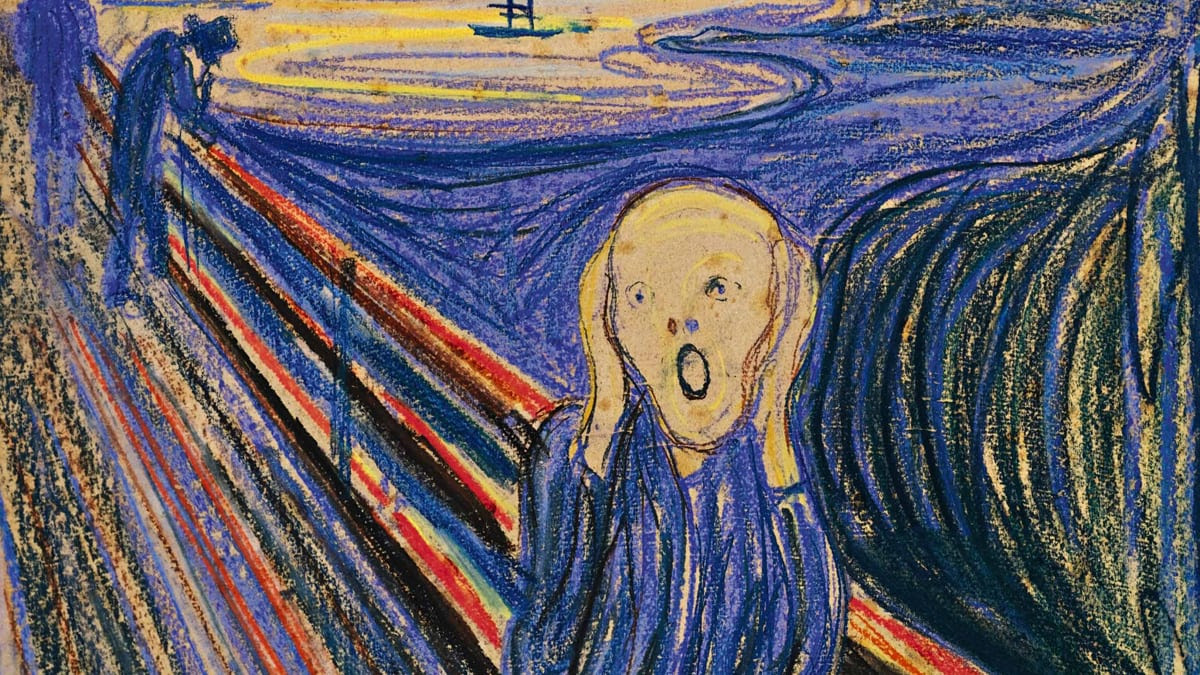
January 12, 2024 | This week is Parshat Va’eirah. Read more about it here.
This morning I took part in a rally in Manhattan for the hostages. Standing there with thousands of fellow Jews gave me hope. Together we voiced our outrage and support. Together we chanted and sang. And together we prayed.
We're almost 100 days into the war with Hamas, and many of us are feeling fatigue. I've heard from people that the urgency that they felt 3 months ago seems to be dwindling. The outrage they experienced after Simchat Torah has withered. The passion they had for supporting Israel has taken a backburner to other parts of their lives.
But the situation in Israel is as urgent and important as ever. The IDF soldiers are risking their lives every day to protect the Jewish people. There are hundreds of families that are still reeling from the murder of their loved ones, hundreds of thousands are displaced. Rockets are still being fired at cities in Israel.
And, most importantly, over 100 of our brothers and sisters are still being held hostage! We can't imagine the pain that they are enduring and its as urgent as ever that we bring them home.
So why aren't we as vocal and active for Israel as we were 3 months ago? I think part of it is the natural progression of time that causes us to lose steam. But part of it may also be that we feel that if our efforts until now haven't born fruit, why would they suddenly achieve anything now? If all the rallying, advocating, social media posting, and praying still hasn't secured the release of the remaining hostages - what is going to change?
This mirrors the Jews state of being in Egypt that we read in the Parsha. We're told that they couldn't hear Moses's voice of hope because they were "short of breath" - they were so tired from the unrelenting slavery that they couldn't imagine freedom.
However, despite their low spirits, the Jews in Egypt didn't give up hope entirely.
They had been slaves in Egypt for hundreds of years. Generations of Jews were subject to back-breaking labor without any rights of citizenship. Although they lived with a promise of G-d's salvation, you could forgive them for eventually giving up on it. If G-d hadn't answered their prayers for all those years - what is going to change?
Yet, the Torah tells that G-d was moved to redeem the Jews because He heard their cries. In His original dialogue with Moses to appoint him for the mission G-d mentions twice that He is moved to act because He has heard the Jews' cries. And at the begining of this week's parsha, when Moses complains about the suffering after his first attempt to free them was unsuccessful, G-d repeats: "I have heard the moans of the Jewish people... and I have remembered my covenant. I will take them out of Egypt."
It was the cries of the Jews that moved G-d to free them. They never gave up and refused to make peace with their suffering. Despite all they had been through, despite being too tired to even listen to Moses, they still called and cried to G-d. And G-d heard their pain and responded.
There's a deep pain in all of our hearts. Our people are at war. Our people are nearing 100 days in captivity. Our people are being libeled in the international court and in the court of social media and public opinion. We can't stay silent. We can't grow complacent.
Let's cry out to G-d. Let’s add a prayer for the hostages and for Israel. Let's storm the heavens for the release of the captives. Let's storm the heavens for the safety of the soldiers. Let's storm the heavens for the end of antisemitism. Let's storm the heavens for peace in Israel and around the world. Let's do an extra Mitzvah for Israel.
Rabbi Chaim ibn Atar, an 18th century Moroccan sage, comments that if you look closely at the text, it doesn't actually say that G-d heard the Jews' prayers - it says He heard their screams, cries and moans. It wasn't only prayer that moved G-d to act. The raw painful cry itself was already enough to elicit Divine mercy. Just voicing our pain and care is enough to make a difference.
All Jews are connected - and we feel the pain of our brothers and sisters in Israel. Allow the primal scream that is welled up inside of you to come out. Enough! We need the hostages back home! We need peace! We need the realization of the Messianic visions of peace, harmony, and a perfected world!
May our cries be heard on high and bring about the salvation of our people - and the ultimate redemption with Mashiach.
Shabbat Shalom,
Rabbi Menashe
Don’t Judge a Burning Bush by its Thorns
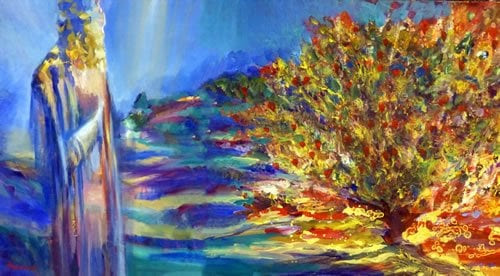
January 5, 2024 | This week is Parshat Shemot. Read more about it here.
Moses' initial encounter with G-d occurred amid the flames of the burning bush. While journeying through the desert, he came across an unusual sight: a thornbush ablaze yet unconsumed. As he approached, G-d called out to him, and Moses sensed the Divine within the flames.
The significance of this encounter raises questions: Why did G-d not reveal Himself to Moses as He did to previous prophets?
Today is the Yahrzeit of Rabbi Schneur Zalman of Liadi, the founder of the Chabad movement. He was a revolutionary spiritual thinker and many traditionalists in the Jewish world opposed his radical Chassidic ideas. In 1783 he held a public debate with the his detractors in Minsk to defend the movement.
One of the complaints against him targeted the respect that Chassidism afforded simple Jews. There was a deep class divide in those times between the learned Jews and the illiterate peasants. Chasidism highlighted the spirit of Judaism and emphasized a sincere relationship with G-d as the ultimate Jewish experience. It bridged the gap and championed the sincerity and earnest faith of the simple folks. The sophisticated rabbinic class felt that this was an affront to the honor of Torah and a disrespect to Judaism.
Rabbi Schneur Zalman addressed these concerns by explaining the enigmatic burning bush imagery from this week's Parshah.
The burning bush spectacle, he asserted, conveyed a profound message about Jewish identity and leadership. It signaled a transition from individual encounters with G-d to the formation of a collective nation.
In Genesis, the heroes are a group of individuals - great people who found G-d and communicated with the Divine. Now, in Exodus, we begin to see the forming of a collective. Until now we experience the children of Israel as a family, now they are growing into a nation - and Moses was tasked with shaping this collective and redeeming them. Abraham may have been the first Jew, but Moses became the first Jewish leader.
As he embarked on this mission, G-d was teaching Moses that being a community captain requires seeing beyond external appearances and recognizing the inner fire within each person.
Some people are developed trees. They are learned and active Jews that bear wonderful fruit. Others may seem like a thornbush - they don’t contribute, have nothing to show for themselves and are actually a painful drain on the resources. Their outward image is dry and thorny. But they too have a soul within them. There’s something valuable that animates them. For all we know, their inner light may even be stronger than that of someone who seems like a “fruit-tree”.
To be a leader is to discover the fire within every individual, sensing the passion that drives them and valuing their inherent worth. Moses had to help the Jews see themselves, and each other, in this light to create a cohesive collective.
Judaism is not only about what we do, but how we do it. Someone can do every Mitzvah and know a lot of Torah, but their fire has gone out. They lack passion and sincere faith. Another person may not know a lot but they are filled with excitement and enthusiasm for their Jewish engagement.
Jewish practice is important, but the sincere passion we invest in it is what G-d most appreciates. Prayer is important but the meaning we find in the words is how we connect with G-d. Torah study is important but sensing the sacred divinity within the texts is how we build a relationship with G-d.
Of course fruits are great - and we should grow in out practice, prayer, and study - but even when you only have thorns, your inner fire can house the divine.
This shifts our relationship with Judaism on a personal level - it's not just about a set of rules but a guide to building a relationship with G-d - and also communally.
When we judge each other by the fruit that do or don’t grow on our branches, we find differences that tear us apart. When we value each other for the contributions we make, we separate people into groups and classes. But when we sense the soul within each of us, we feel our shared sense of fate and destiny. When we judge each other by the unconsumable fire that burns within, we value and include everyone.
This is what G-d was telling Moses: Every Jew has a fiery passion that drives and animates them. Your job as a leader is to uncover that and develop an appreciation for the fire that burns even within the thornbush.
And this is the message that we can learn from this: No matter what you know or where you are holding in your spiritual journey, do what you can with passion and purpose. And appreciate each person for the soul that animates them.
Shabbat Shalom,
Rabbi Menashe
Don’t Predict the Future, Make It

December 29, 2023 | This week is Parshat Vayechi. Read more about it here.
We overestimate our ability to predict the future and underestimate our ability to shape it.
This is a line that I have been thinking about, especially as we approach the end of the year and head into a new one.
We desperately want to know what tomorrow will bring, and will read all sorts of predictions - from the weather forecasts to the political pundits and war analysts - to try to peer into the elusive future. There’s a wonderful message in the parsha this week that provides perspective on this.
It is a moving scene. In the final moments of his life, Jacob gathered his children around his bedside. At first he promises a prediction of their future: “Come around and I will share with you what will happen in the end of days.” But before he shares any secrets, Jacob continues with another, revised, announcement of the gathering: “Gather and listen, sons of Jacob, and listen to Israel, your father,” and proceeds to uniquely bless each of his children - without any reference to the future “end of days”.
The Talmud notices this absence in the narrative and explains that although Jacob wanted to tell his children about the bright utopian future of the end of days, G-d didn’t allow him to. As he opened his mouth to share it with them, his mind blanked.
As much as Jacob thought that it was a good idea, G-d understood that it wasn’t in his children’s best interest to be granted insight about the future. The world wasn’t ready for his prophecy.
There are many ways to understand this little episode. One idea, shared by the Rebbe at a gathering at the end of 1980, provides a profound insight into our lives.
Jacob wanted the best for his children. He knew, prophetically, that they had the ability to heal the world and perfect it. He saw in them the potential to end all the ills of society and effect the messianic “end of days”. Had they lived up to their fullest potential, the Exodus from Egypt could have been a final redemption. The end of slavery could have resulted in the end of all inequality, all war and violence, all hunger and jealousy.
Jacob desperately wanted to let his children know what is at stake and encourage them to follow the script. If he could only tell them the future, they’d get it right make the world a better place.
But that’s not how the world operates. G-d vetoed Jacob’s idea because it wouldn’t work. To tell them of the future would sabotage it.
You see, G-d could have made a perfect world to begin with. But He chose not to. He made an imperfect world and created us to change that. He wanted imperfect human beings to struggle through our inhibitions and overcome our negative drives to perfect the world.
If we are pressured into doing good by a prophesy, the good choices aren’t our own - they almost wouldn’t be choices at all - and they wouldn’t be able to dramatically heal the universe. The only way to effect true change is by allowing the messy reality of individuals navigating this confusing world to run its course, and hope that we make good choices on our own.
When we decide to do something good, when we could very well have chosen differently, that’s when we create change. Otherwise, we are robots following directives, not humans making choices.
Jacob’s children had the potential to heal the world, but only if they didn’t know about it. Knowing the script of their success would have derailed it.
So instead of telling them what the future holds in store for them, Jacob blessed his children with the tools to shape that future. Instead of predicting what will happen, he set them up to make it happen.
As we look forward to the new calendar year, lets focus less on predicting what 2024 will bring and more on what we can do to make it a better year than 2023. We can’t control most things in the world. But we can control the choices we make in our lives. Let’s do whatever is in our power to heal the world.
Use this opportunity to commit to something good that can help the world. Make a resolution that will add light and help the world come closer to the way G-d envisioned it to be. We can’t be guaranteed that these mitzvot will fix the world - but that’s precisely what makes them so powerful. We can’t know the global effect of the good we commit to - but that’s exactly what makes it so valuable. We can’t see the future, but the choices we make today will inevitably shape it.
Shabbat Shalom,
Rabbi Menashe
Finding Faith in Fortunate Moments
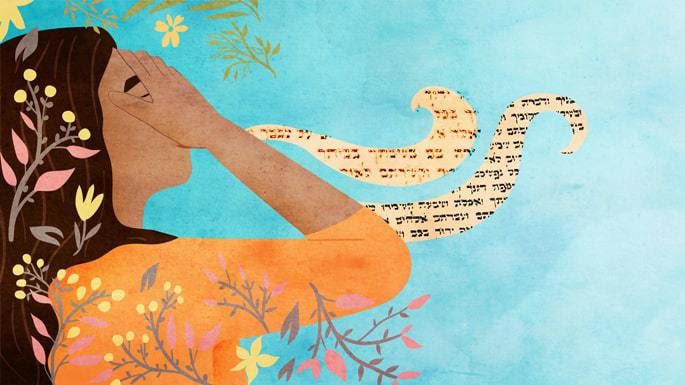
December 22, 2023 | This week is Parshat Vayigash. Read more about it here.
You have probably seen the viral videos of soldiers in Israel returning home to their families after having spent weeks in the dangerous was zone in Gaza. The clips are so beautiful and moving - watching parents embrace their children and children embrace their parents - and have become a genre of their own. The emotions of joy and relief are palpable.
In this week’s parsha we have one of these moments.
We read one of the most emotionally charged episodes of the Torah. After 22 years, Jacob is finally reunited with his beloved son Joseph. For over two decades Jacob had thought that Joseph had died. For over two decades Jacob had grieved for his lost son. And now, after learning that Joseph was indeed still alive, he travelled to Egypt to see him.
We can only imagine the profound emotion the Jacob was feeling.
But, when father and son finally reunite, we’re only told that Joseph “ fell on his father’s neck, and he wept on his neck for a long time.” Torah is silent on Jacob’s response. The expected reaction is missing. Did he not embrace his son? Did he not cry?
The Midrash comments that Jacob had a delayed response to meeting his long-lost son, because the first thing he did when he saw Joseph was recite the Shema. Imagine that. It was a moment that Jacob could only dream of for 22 years, and his response was to declare his faith in G-d!
This is such a powerful message. We often resort to prayer when we are in a difficult situation. When we experience something challenging, we turn to G-d in desperation. But Jacob teaches us to turn to G-d out of joy too. The same way we call out to G-d to help us in our moments of crisis, we should reach out to Him in our moments of joy. Just as we beg Him to help us through our dark moments, we should thank Him for the bright ones.
Over the past two months, we have been primarily reaching to G-d from the darkness. We have been focused on praying to G-d in the face of tragedy and crisis. And those prayers are still needed - may we see miracles!
But as we approach the end of the year and take stock of 2023 - we also have so much to be thankful for and celebrate. And it's important to find G-d in those moments too. To be thankful and acknowledge the blessings the He has given.
This week, we came together to support our community and successfully reached our goal that will help us continue to share light into the new year.
The outpouring of support was overwhelming and over 230 people donated. Each donation - no matter how small or large - tells the story of Dirah’s impact. Each contribution is a validation, someone saying that they believe in our community’s mission and cause.
This is a wonderful accomplishment for our community and as we experience this gratitude and joy, I’m inspired by the message from the Parsha. I invite all of us to declare together: Shema Yisrael, Hashem Elokeinu, Hashem Echad. Thank you Hashem for all of the blessings that we experience. Thank you Hashem for blessing our community. Thank you Hashem for making our efforts successful.
I'm looking forward to many more opportunities to celebrate together and to sharing with you the impact that your generosity will have in 2024.
Shabbat Shalom,
Rabbi Menashe
The Ninth Night of Chanukah
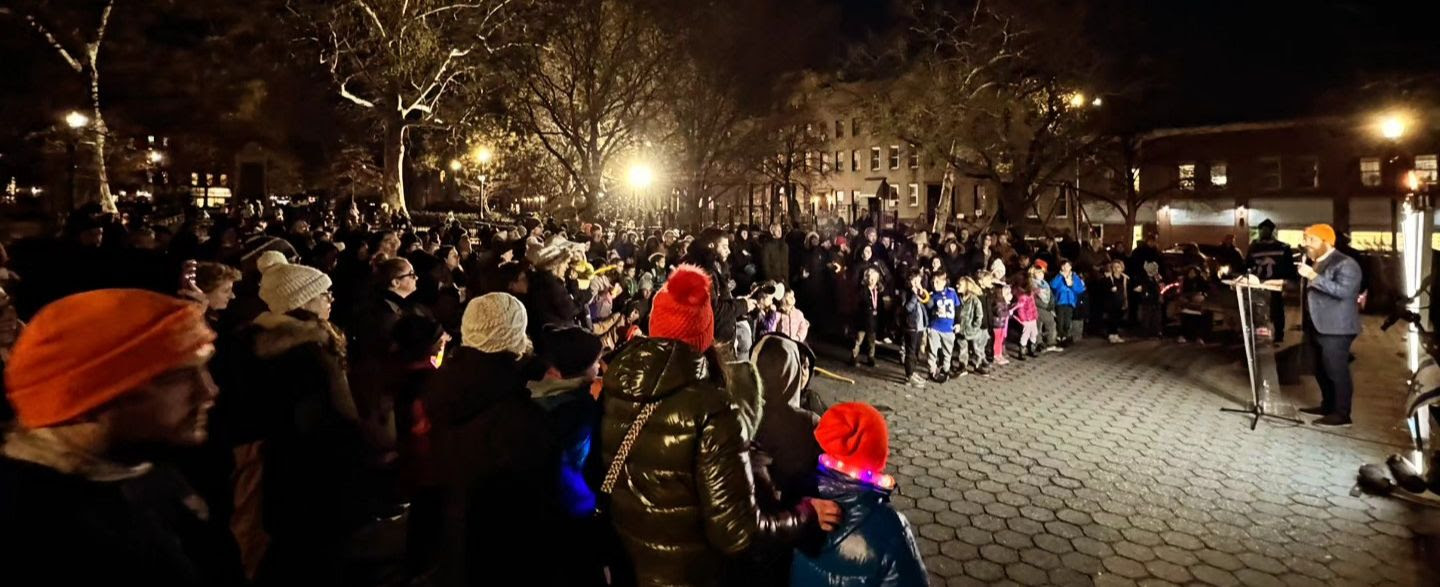
December 15, 2023 | This week is Parshat Miketz. Read more about it here.
Over Chanukah we have steadily been increasing light until we reach the eighth night. But now what? Where do we go from here? What is our mission for tonight, when our menorahs are safely stored away for next year? Does our growth come to a halt? Do we suddenly stop shining light?
I think that there's a powerful message in the parsha this week that talks to this.
Joseph was a dreamer. His life was guided by a series of dreams. First he dreams of ruling over his family - which caused his brothers to hate him and eventually sell him as a slave. Then, when his master's wife attempts to seduce him he has a vision of his father and refuses her advances - which landed him in prison. While in prison, he interprets the dreams of fellow inmates, which led finally (in this week's reading) to being called to decipher Pharoah's strange dreams - which landed him the second-most senior position of power in Egypt.
There’s an interesting pattern to these stories. There's a big difference between the dreaming that got Joseph into trouble and the dreams that helped him out of the mess. When Joseph dreamed without any plan of implementation, his dreams landed him into trouble. When he focused on deciphering the meaning of dreams and their practical application - that's when the dreams paid off for him.
We see this especially with Pharoah's dream. Joseph didn't just interpret the dream. He followed up with a concrete plan for dealing with it. The dreams told of seven years of plenty followed by seven years of drought. Joseph proposed an economic plan to save during the good years to have reserves for the famine.
Life had taught Joseph that as important as dreams are, on their own they weren't worth anything. Dreams and inspiration had to be harnessed with concrete action.
Perhaps we can apply this back to Chanukah. The candles of the Menorah symbolize our dreams and aspirations. The flames inspire us to stand tall and brighten the world with our Jewish spirit. They encourage us to shine our light to the world. The menorah radiates the possibility of a better and brighter world.
But dreams alone don't make the world better. The lights of the candles eventually burn out and stop illuminating our homes and streets. Unless we hold onto them and carry on their work. Our job is to take those lights with us and implement their vision. As special as the flames of the menorah are, the real light is the one we shine from within us.
Tonight - and every other night of the year - we are the menorah. After eight beautiful days of light, joy and inspiration, it is time for us to actualize the dreams of the candles and make our world a brighter place.Let's commit to shining more light and being active ambassadors of the Menorah light. Add an extra Mitzvah. Stand up strongly for your Jewish values. Be kinder to people. Add a prayer. Study and share the sweet wisdom of Torah. Put on Tefillin. Celebrate Shabbat in your home. Place a Mezuzah on your door. Shine your inner light and spread goodness to the world!
This is the final message of the Menorah. The lights are the fullest that they can be. They have given us all that they can. Now we have to implement their message.
This coming week, we are launching an end-of-year campaign to raise $120,000 for Dirah to keep spreading light for our community. Your donations will fuel kids programs and adult education, Shabbat dinners and Holiday events, care packages and lifecycle celebrations. They will sparks Jewish stories, create memories and form community. As we come to the end of Chanukah, I ask you to please share the light and partner with us. We’ll be sending out the details after Shabbat - please respond generously.
Shabbat Shalom,
Rabbi Menashe
The Whisper of the Flames
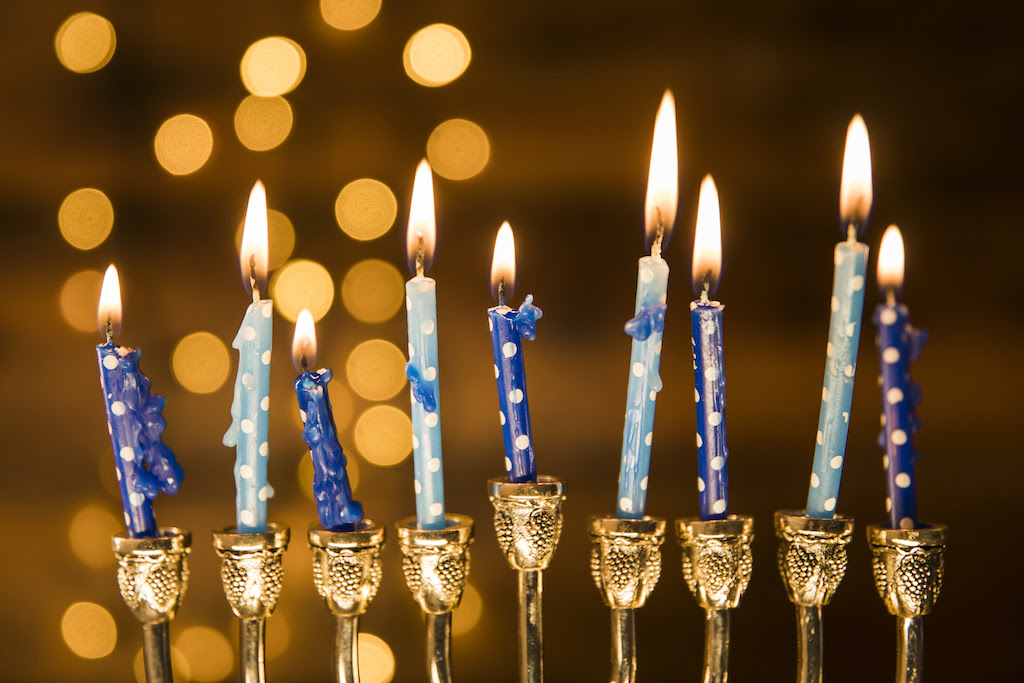
December 8, 2023 | This week is Parshat Vayeshev & Chanukah. Read more about it here.
You sit around the candles surrounded by family, enjoying the warmth of the Menorah lights. Maybe you sing a Chanukah song or two, or share gifts, or play dreidel. You watch the flames flicker mesmerizingly.
The scene is magical and meaningful.
Shhhh... Do you hear that? It's the candles. They're whispering.
Does your Menorah talk to you? The ancient flames have a lot to say. They carry thousands of years of history. They radiate the hopes and dreams of millions of Jews who have kindled them before you. If you pay attention, you can hear them whispering a story that never ceases to be relevant.
They tell a story of the Maccabees and their struggle for religious freedom; of a nation fighting to keep the light of their religion aflame against the tide of Hellenization; of the hopes of our ancestors to reclaim their Temple and light the Menorah with the tiny flask of pure oil; of a divine miracle that kept the flames burning for 8 days.
In the blessing we make on the menorah lighting we say: she’asa nisim la’avoteinu bayamim hahein bizman hazeh - G-d made miracles for our ancestors back then, and will again today.
The Chanukah story happened once, but it has been relived thousands of times. The candles always say the same story, but their message is different in each generation, each year and in every home. What the candles say never changes, but what they mean does.
Some people hear the candles whispering to stay strong in the face of hate and antisemitism. Some might hear encouragement to study Torah and find spiritual depth in an age of secularization. Others hear the candles telling them to that Israel will eternally be victorious. In some homes they hear messages of G-d's providence. Other homes hear a calling to respect religious diversity. Some families hear an encouragement to stand firm in their faith despite seemingly insurmountable challenges. And some hear a plea to add more light in the world through the Mitzvot.
When you light the Menorah this afternoon (before Shabbat begins at 4:10), and each subsequent evening of Chanukah, listen to the message of the flickering flames. What do your lights tell you?
Shabbat Shalom and Happy Chanukah,
Rabbi Menashe
Responding to the Menorah vandalism
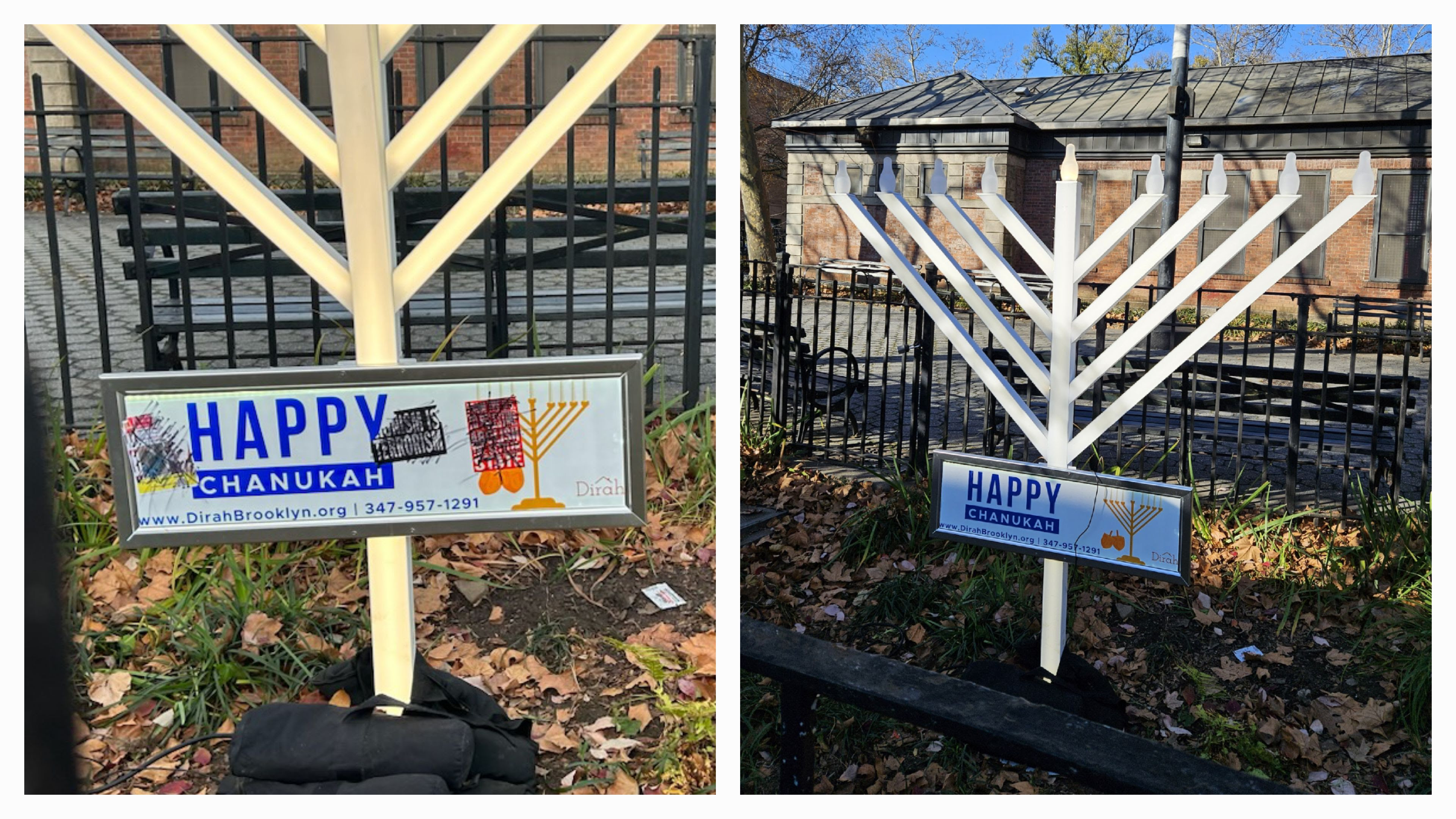
December 1, 2023 | This week is Parshat Vayishlach. Read more about it here.
This morning, the Carroll Park menorah was defaced with hateful stickers. Many people reached out to me to let me know and thankfully the NYPD was quick to respond and is taking the hate crime seriously. The Menorah has been cleaned and will continue to brighten the neighborhood with its light. Thank you to everyone who reported this and helped fix it.
This act of hate won't make us back down - it is a call to increase our light and be more visible as Jews. As Israel is on all of our minds, we can learn how to respond to this moment from the origin of the very name Israel, that we read about in this week's parsha.
We read in the Torah portion this week about Esav chasing down Jacob with an army of 400 men. Jacob is heading home after spending 22 years with his uncle Laban when he learns of Esav's approach. Esav still bore a grudge against his younger brother for stealing his blessings and had verbalized his intent to kill him. Jacob was justifiably afraid. He feared the worst and prepared for war.
The night before their meeting, Jacob is alone and confronted by an unidentified person and the two of them wrestle all night long. Our rabbis explain that mystery person was an angel, the spirit representing Esav.
As the morning nears, the mystery figure tells Jacob that his name will be changed to Israel. This is the birth of Israel and was a turning point in Jacob's life. The name change represented a shift in his character.
Up until this moment, Jacob had dedicated himself to doing the right thing and avoided confrontation with the forces that rose against him. The verse calls him: "a simple person who dwelled in the tent (academy)." All he wanted was to be left alone and able to live his life in peace.
When Esav came home after Jacob "stole" the blessings, Jacob slipped out of his father's tent. When Esav wanted to kill him following that episode, he ran away from home. His name, Jacob, means trickery - and implies a cunning ability to worm his way out of situations. To a degree, he managed to outsmart his adversary and remain a step ahead.
But something changed in that fateful nocturnal encounter. One commentary explains the enigmatic episode that Jacob was tempted to change course and, once again, avoid confronting Esav. The anonymous individual was sent by G-d to stop Jacob's escape and force him to stand up to his hateful brother, allowing G-d's promise of protection to be realized.
This is the meaning of the name Israel: it is a portmanteau for the terms "sar" and "e-l" which respectively mean "struggling with" and "G-d" or "forces of power." As the unnamed person explains to Jacob: "you have struggled with God and with men, and you have prevailed."
Whatever the intent, we know that in the morning Jacob faced Esav and, at least for that moment, Esav was overcome with love and embraced his brother instead of attacking him. Jacob's courage to stand firm in the face of evil paid off.The Torah narrative implores us to confront evil. When faced with hate, we have to stand strong and tall, to show up in the face of terror, to send a message that we will not cower in fear. And when we do struggle against the dark forces of evil, we are promised G-d's support in overcoming them. In fact, the term "sar" also means minister or master.
When we stand up for being Jewish and confront the opposing forces, we are assured that we'll overcome them.
This Thursday night is the first night of Chanukah. Now, more than ever, we have to share out light and amplify our voices. This year, I think we need to increase our Menorah light, and here is how we can do that:
1. Every one of us should make sure to light it on all 8 nights of Chanukah.
2. Encourage a Jewish neighbor or friend to light a Menorah even if they regularly wouldn't. Dirah is offering free menorah kits to everyone who wants.
3. Put your Menorah in your window. If it isn't feasible to light the candles near the window, put an electric Menorah in the window (in addition to the candles) to spread the light to the street.
4. Join the community for a public display of Jewish pride and unity at the Carroll Park menorah lighting on Tuesday, Dec 12 at 5:30pm (details below).
Instead of cowering to the hate, lets show up stronger. The way to combat darkness is by shining light. The way to dissolve falsehoods is by sharing truths. When we stand firm and resolute in our values of love and light, we diminish the power of evil and hate.
When people attempt to erase our Jewish presence, let’s live more Jewishly. Let’s do more Mitzvahs and become stronger Jews. Like the original Israel, our ancestor Jacob, we will be successful in overcoming our adversaries when we stick to our identity and values instead of backing down.
Shabbat Shalom,
Rabbi Menashe
A Complicated Thanksgiving

November 24, 2023 | This week is Parshat Vayetze. Read more about it here.
We've been feeling so many conflicting emotions since October 7, and there's a lot of mixed feelings this Thanksgiving weekend. We are witnessing 50 hostages coming home - which is such a huge relief and celebration but also such a painful reminder of how many precious lives still remain captive and how many families are still without their loved ones.
There's a powerful idea in the Parsha this week that can help us work through this and feel thankful despite the complicated time we're in.
When Leah gave birth to her fourth son, she named him Yehudah (Judah), saying: "This time, I thank (“odeh”) G-d." The Midrash comments that this was the first instance in all of history of someone thanking G-d.
This observation is hard to make sense of. Surely people had thanked G-d earlier. Noah thanked G-d after being saved from the flood. Abraham thanked G-d after being promised the land of Israel as an inheritance. Surely Leah herself would have thanked G-d for her first three children. What made this thanksgiving unique that it be classified as the first of its kind?
We need to understand the context. Jacob loved Rachel and originally wanted to marry her. He worked for Laban for 7 years to get her hand in marriage, but Laban fooled him and gave him Leah, his older daughter, instead. Jacob was rightfully hurt, but commited to another 7 years of work for the permission to marry Rachel. He ends up being married to both.
Although Leah was Jacob's first wife, she felt her inferiority. Jacob's primary love for Rachel was undeniable and palpable.
We sense her feelings when she names her children. The first was Reuven: "G-d has seen ("ra'ah") my suffering." The second, Shimon was named for "G-d has heard ("shama") that I am hated." She named her third Levi, because "Now my husband will stay ("yilaveh") with me." She clearly felt inferior and was desperate for her husband's acceptance and love.
Even later, after Judah was born, we hear her sorrow. When Rachel, who was childless, asks Leah for the mandrakes (a symbol of fertility) that Reuven had brought home for her, she responds: "Is it not enough that you have taken my husband, you also to take my son's flowers?"
Against this backdrop we can appreciate the novelty of Leah's thanksgiving. We generally offer thanks when we have gotten what we wanted. We are thankful when our yearnings are fulfilled. Everyone who had offered thanks to G-d had done so when they received a complete package of goodness.
But Leah's deepest desire was still unfulfilled. She remained the secondary wife. And she still managed to be thankful. Her situation hadn't changed since the birth of her first 3 children, but her attitude had. When Judah was born, Leah put aside the feelings of what she was missing and focused on what she had. Her life was far from perfect, but in that moment she had something profoundly joyous to be thankful for.
We can feel thankful for the good we have while acknowledging the terrible reality that remains. It isn't east to carry both emotions, but Leah teaches us that it is possible. And truthfully, this thanksgiving - in the face of so much difficulty - is the most profound expression of gratitude.
This thanksgiving is the hallmark of the Jewish people: the name “Jew” - or “yehudi” in Hebrew - is borrowed from Judah’s name.Thanking G-d for the hostages that are being returned isn't being insensitive to those that haven't yet. Being grateful for what we have isn't giving up on what we don't yet have.None of us have perfect lives. But we all have so much to be grateful for. Let's not wait until everything is right to thank G-d.
In Jewish tradition, every day starts with a thanksgiving prayer: "Modeh ani lefanecha - Thank you G-d for restoring my soul for another day." No matter what is happening in our lives, no matter how much blessing is yet to be realized, we find something to thank G-d for.
We're not thankful for having everything, but grateful for everything we have.
Shabbat Shalom,
Rabbi Menashe
The Jewish Voice I Heard in Washington
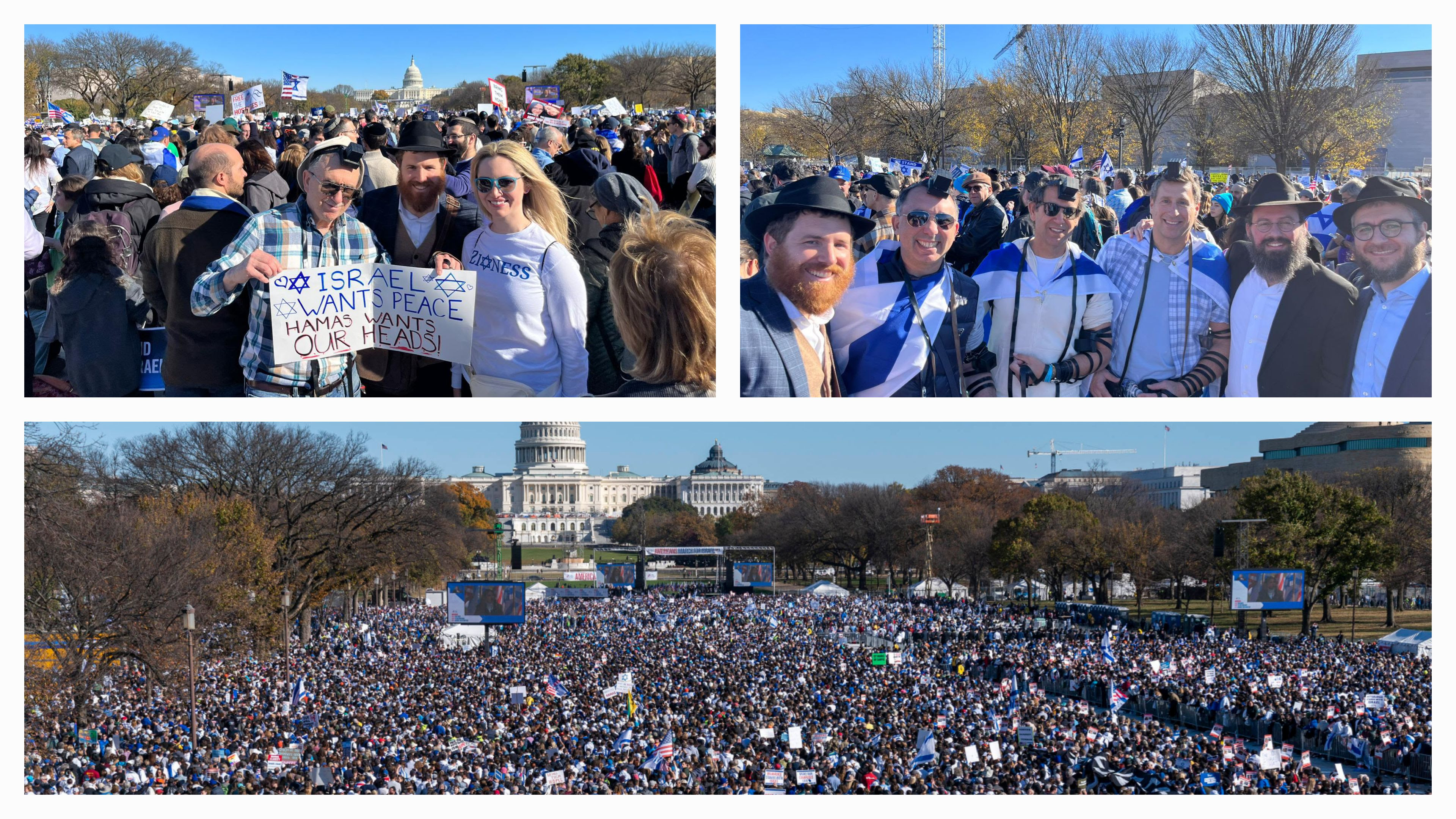
November 20th, 2023 | This week is Parshat Toldot. Read more about it here.
On Tuesday, I travelled to DC to join hundreds of thousands of Jews from around the country to collectively voice our support for Israel and demand/pray for the release of the hostages.
As I stood shoulder to shoulder with a seemingly endless amount of my fellow Jews in our nation's capital, the enormity of this moment hit me.
It has become clear over the last few weeks that there is a dual war being waged right now. It's not just Israel that is under attack, it is Jews everywhere. It isn't only our land that is at stake, it is our very identity as Jews. They are not only waging war on our bodies, but our spirit.
Hamas, and their all-too-many antisemitic sympathizers, are attempting to erase not only Jewish lives, but our history, our morality and our pride.
Our response to this moment is critical for the present and future of the Jewish people.
The IDF is doing what it has to do on the ground to fight the physical war - and we should do (and are doing) all we can to support them. But the simultaneous war on the Jewish soul involves each of us. We are the foot soldiers on the front lines of this battle.
Do you know what moved me at the rally? It wasn't the size of the crowd packed into the National Mall or the message of the speakers. It was the brotherhood. It was the open Jewish pride. We all felt comfortable being outwardly Jewish and pro-Israel. We felt supported by each other proud of our open display of Judaism.
This week's Parsha portion tells the famous episode of Jacob 'stealing' Isaac's blessings from his older brother Esav. Isaac was blind and unaware of Esav’s moral failings and wanted to bless him. Rebecca knew that Jacob deserved them. She had received a prophecy which said as much and she saw that his character was morally superior to Esav’s. So she helped Jacob cover his arms with animal skins to give off the impression of his hairy brother. Isaac thought he recognized Jacob's voice, but when he felt the hairy arms he was convinced that it was Esav, the firstborn. He gave him the blessing, but voiced his suspicion: "The voice is the voice of Jacob, and the hands are the hands of Esav."
If Rebecca knew that Jacob deserved the blessings - why didn’t she talk about it with her husband? Why didn’t she share the prophecy and reason with Isaac instead of going behind his back to fool him? One answer is that she had a mother’s intuition that this ploy was needed for the future of the Jewish people. She wanted Jacob to receive the blessings while dressed in the external appearance of Esav.
Much of the time many of us see ourselves as regular people who happen to be Jewish. We are humans, citizens of the the world - and we are also Jews. Rebecca knew that in the future Jews wouldn’t always look different externally. We wear the clothing of Esav.
Rebecca wanted to demonstrate that even when we are integrated into society around us, we can still be strongly Jewish. Even when we are dressed with the external appearance of Esav, “the voice is the voice of Jacob” - we can be loud and proud Jews.
On Tuesday, I felt that. The Jewish identity was palpable. People who would never regularly do so wore Kippahs and identifiable Jewish accessories. Thousands of people, who wouldn't ordinarily do so, publicly put on Tefilin. Together we raised our Jewish voice, the voice of Jacob.Whether you were at the rally in Washington or not, the battle is still raging around us, and we have to continue to rise up. Now, more than ever, we need to raise our Jewish voices and fortify the Jewish spirit.
Do something openly Jewish this week that you wouldn't have regularly done. Light Shabbat candles before sunset today. Put on Tefilin and pray the Shema. Wear a kippa in the street. Put up a Mezuzah on your door (or have yours checked). Show up for the Jews. Show up for yourself.The spirit and soul of Judaism is under attack and we are rising to the occasion. Am Yisrael Chai! The Jewish people are very much alive!
Shabbat Shalom,
Rabbi Menashe
Keeping the Flame Alive
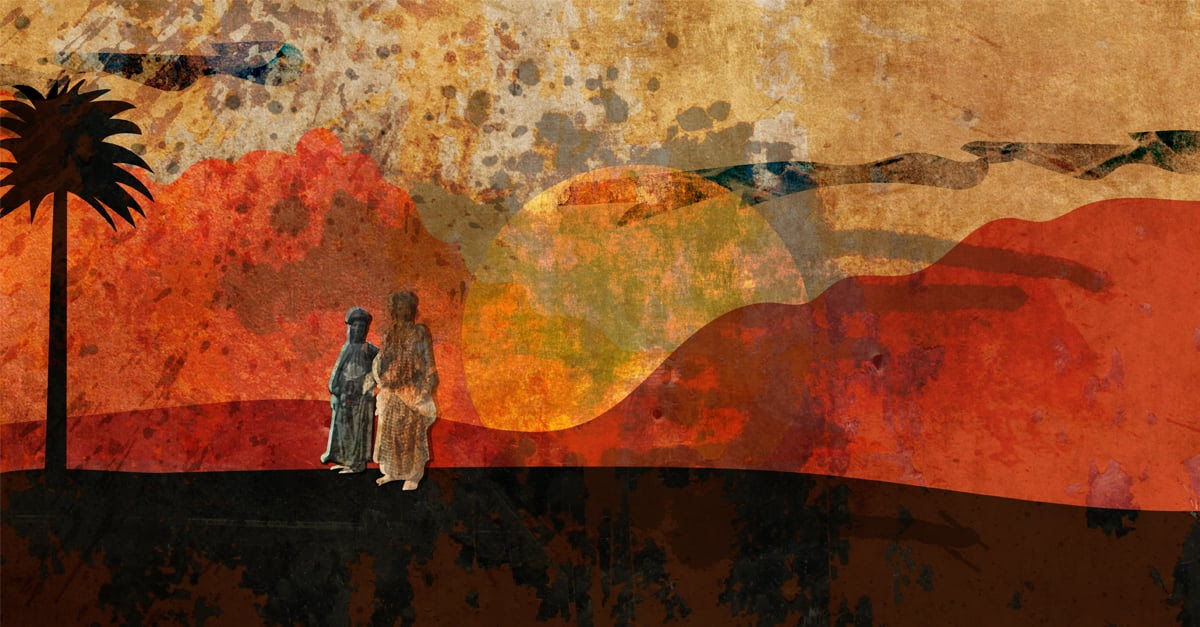
November 11, 2023 | This week is Parshat Chayei Sarah. Read more about it here.
In the face of the darkness of the past month, there has been an incredible awakening of the Jewish spirit. As our hearts are bursting with pain, they have been brimming with love. Jews from all backgrounds and affiliations have united in support of Israel. We are realizing that although we are a very small (and sometimes marginalized) nation, we are a very big and loving family!
People have showed up like never before. In our Dirah community, more people than ever have joined our services, programs and classes. I have heard from so many people in our community who want to be more involved and grow in their Judaism. People are putting up Mezuzahs and putting on Tefilin. Last night 150 women joined the community Challah bake!
But this inspiration won't necessarily last forever. It has now been 34 days since October 7. How can we maintain this community awakening and perpetuate it into the future?
In certain respects, this week's Parsha is the pivotal moment of the Jewish story. It tells the story of the transition from the first generation of Jewish living to the second. Abraham and Sarah's legacy is continued by Isaac and Rebecca after their passing.
Abraham was an innovator. He introduced Monotheism to the world and spread its revolutionary ethics with his spiritual charisma. He channeled the creative energy of Chessed - and lit a spark of Divine consciousness and moral compass. But sparks are easily extinguished. Inspiration comes and goes, and the initial spark of an idea is powerful and revolutionary - but often short-lived.
Compared to his father, Isaac was a quiet figure. We don't learn much about his life from the Torah narrative. Even the story of his brave sacrifice - when he was willing to be offered to G-d at the Binding of Isaac at age 37 - is attributed to Abraham and he is seen as a passive accomplice.
Although he didn't make a lot of noise, Isaac sustained Abraham's vision and perpetuated it into the future. While Abraham was a symbol of inspiration, Isaac was a paradigm of commitment. Abraham was creative and Isaac was disciplined. If Abraham was a spark, Isaac was the wood that sustained its fire.
We see this character represented in their respective prayers. Our sages attribute the three daily prayers to the forefathers invention. A close look at the Torah text shows that Abraham prayed in the morning (inventing Shacharit) Isaac in the afternoon (Mincha) and Jacob prayed in the evening (Arvit). The three prayers aren't just at different times of the day - they represent different modes of spiritual service.
The dawn of a new day, when the sun shines its light over the world, is inspiring. It's fresh and new. This was Abraham's Judaism - a prayer that is inspired and creative. But as the day drones on, we lose that inspiration and get caught up with life. We're tied up with business, rushing to get things done and the fresh inspiration of the morning fades. Herein lies the brilliance of Isaac. To pray in the middle of the day. To sustain the inspiration of the morning. To create a commitment that maintains our faith in face of the fading light.
The Talmud teaches that Mincha is the most profound prayer of the day and Elijah the Prophet was answered only from his Mincha prayer. It is the secret sauce of Jewish continuity and perseverance.
The massacre on Simchat Torah and the subsequent spread of the cancerous hate and unprecedented antisemitism inspired and awakened the Jewish spirit. It caused an Abraham-like moment. It lit a spark. But now we need the disciplined energy of Isaac to maintain it.For inspiration to last it needs to be channeled into commitment. Commitment isn't flashy or exciting, but it is what keeps the flame alive.
We have all been moved over the past month, but I suggest that we translate that into a serious commitment to make sure it doesn't dissipate. And I challenge you to choose something that you channel your inspiration into.
If you were inspired to pray, pledge to do that once a week or every day. If you were inspired to put on Tefilin, commit to doing it regularly (let me know if you need a pair). If you were inspired to light Shabbat candles, make it part of your Friday evening routine. If you were inspired to reach out to a fellow Jew, do it more often. If you were inspired to give charity, make it a habit. It you were inspired to join a service or class, commit to coming (semi-)regularly. If you were inspired to live more Jewishly, put up a Mezuzah or (if you have already,) encourage someone else to.
Let's all channel our inner Isaac and keep the flame of Abraham shining bright.
Shabbat Shalom,
Rabbi Menashe
Abraham: The First Humanitarian
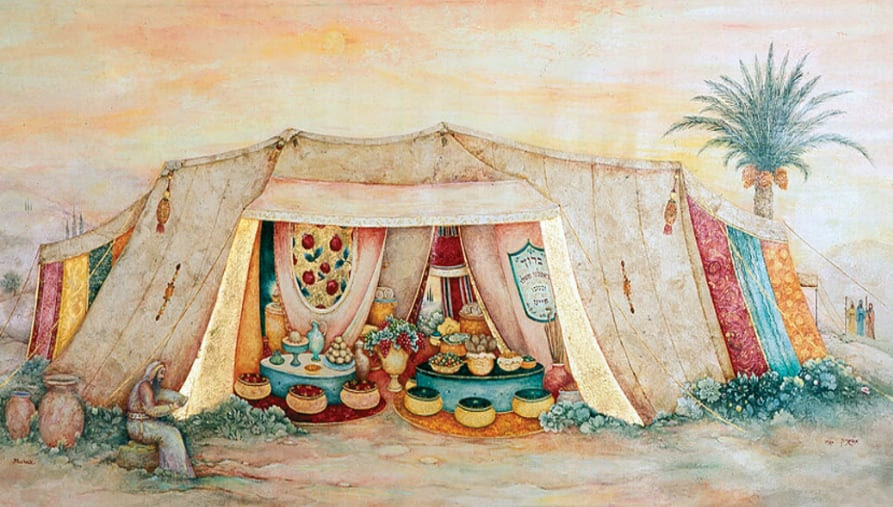
November 3, 2023 | This week is Parshat Vayeira. Read more about it here.
I'm feeling far better this morning that I have been for a few weeks.
It has been another difficult week, and with the start of the ground operation news of more and IDF casualties have been trickling in - tearing our hearts again and again. It has been mentally and emotionally taxing.
But last night I sat in a full room of Jews, who came together to stand up for Jewish pride and for Israel. I walked out of the event feeling strengthened and inspired. Doron Kornbluth, our guest from Israel, shared an empowering message of Jewish identity and purpose and sparked some really great discussion on our role in this current moment. I think we all felt recharged with a mission to build community, strengthen Jewish life and remind ourselves why our nation is worth fighting for.
One of the insightful things that Doron shared last night was to see the hate we are feeling as a badge of honor.
The fact that we are hated by the most evil people in the world is a sign that we are doing something right. We are their antithesis and a thorn in their side. We stand for morality and righteousness and are a living protest to their violent and evil agenda. The fact that evil regimes have always hated us just shows us how good - and important - our presence is to the world.
While people around us are shouting at us with hate, instead of hiding, we should be reminded of who we are and double down on our efforts to live the hallmark Jewish values that make our struggle worthwhile.
One of the hallmark Jewish traits is feeling the pain and plight of others. We literally introduced human dignity to the world and invented the infinite value of every human life. For anyone to claim that Jews don't care about the suffering of other people - or worse yet, that we deliberately want to hurt them - is beyond belief. It's downright hurtful and dangerous. We can't control what people say or post, but we have to work extra hard to live our principles and share our truth.
Our founding father, Abraham, was the first humanitarian.
The Parsha this week opens with Abraham interrupting a meeting with G-d to take care of travelers who showed up on his doorstep. This leads the Talmud to codify as a Jewish value that hosting human guests is greater than hosting G-d.
Later in the Parsha we read G-d's internal monologue justifying why Abraham was chosen to be the father of G-d's people: "For I have known him because he commands his children and his household after him, that they should keep the way of the Lord to perform righteousness and justice." He wasn't selected for his wisdom or faith or charisma. Instead, our tradition teaches that the defining character of the Jew is to uphold the standards of justice and righteousness.
The Talmud goes so far as to say that a person who doesn't display compassion - brings into doubt his Jewish identity and lineage. Caring for others is in our DNA.
And later in the Parsha, when Abraham challenges G-d to save the evil people of Sodom - the Midrash notes that he was the first person in history to stand up for the rights of others.
This is our story. This is our heritage and destiny. This is who we are and no amount of public opinion can erase that. And we should be proud of it.However, it is in this story of Sodom that Abraham also learns the limits of humanitarianism and compassion.
G-d knew that destroying Sodom was the right thing, and that ultimately He'd win the argument with Abraham. He could have just gone ahead with His plan without informing Abraham. But He chose to let him in on it - and invited Abraham to challenge Him - perhaps to teach him the limits of compassion. Sometimes, G-d was showing Abraham, to be compassionate to the cruel is being cruel to the compassionate.
For whatever reason, the people of Sodom were evil beyond repair. There wasn't a redeeming shred of humanity (symbolized by a core group of righteous people) left. They were beyond rehabilitation and to spare their lives would have perpetuated a cycle of violence and corruption. There was no choice but to destroy the evil.Abraham was forced to acknowledge that, and he learned an important lesson.
But it didn't lessen his drive to help people. He didn't allow the necessary eradication of evil to dampen his belief in humanity or desensitize him to the needs of others. He continued to stand up for other people. After the story of Sodom, we read how Abraham created a hotel for people travelling through the wilderness. So the story Parsha comes a full circle. Despite having to come to terms with the depraved evil people are capable of, he once again opened his home to guests and prioritized the needs of others.
The lesson for us is that sometimes, even against our best wishes, we have to have the moral clarity to eradicate evil. But that doesn’t have to be a contradiction to us being good people. We can’t become desensitized and have to do all we can to do good in the world.
May G-d grant our brothers and sisters peace and victory to the IDF. And while they are fighting for us an important - and unfortunately necessary - war against evil, we have to continue to fight on the front lines of the spiritual war: to be bastions of light and goodness in the world. We should raise our heads high, have faith and proudly continue to do mitzvahs, to spread kindness and to shine our light to the world.
Shabbat Shalom,
Rabbi Menashe
Are We Dust or Stars?
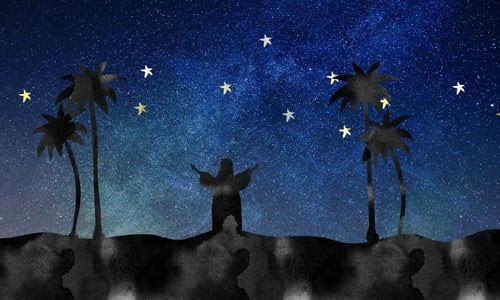
October 27, 2023 | This week is Parshat Lech Lecha. Read more about it here.
It is fascinating to note that the begining of the Jewish story - which we read in the Parsha this week - is the journey to Israel. The first time G-d spoke to Abraham, He instructs him to leave his home and birthplace to travel to “the land that I will show you” - which ends up being Israel.
The Jewish homeland is deeply intertwined with the Jewish story. On 3 separate occasions in this week’s Torah reading, Abraham is promised that land of Israel. “I will give this land to your descendants (Genesis 12:7),” “I will give you this entire land that you see, and to your descendants for eternity (Genesis 13:15),”On that day, G-d made a covenant with Abraham, saying: I have given this land to your offspring, from the Egyptian river to the Euphrates.”
On two of those occasions, G-d also promises Abraham to have children -with countless descendants. Clearly, Torah is intimating that there is no Jewish people without a Jewish homeland. And there is no homeland without the Jewish people. The fate of the Jews and the fate of Israel are linked.
There’s something interesting about G-d’s promise to Abraham about having many descendants. The first time He uses a metaphor of dust - just like dust can’t be counted, so too the Jewish people won’t be able to be counted. The second time G-d employs a metaphor of stars - like the stars can’t be counted the Jews won’t be either.
Both of these blessings seem to be saying the same thing - Abraham’s descendants will be too many to count. Why does G-d change his metaphor?
Perhaps G-d was telling Abraham an important lesson.
The Jewish people will always be around. Through thick and thin, despite persecution and oppression, we will stand the test of time. Indeed, we have defied history. We have refused to be “counted” - to be subject to the natural order of populations. G-d’s guarantee is that we’ll be eternal - but it is up to us whether we will be like the dust of the earth or stars in the sky.
Dust is everywhere, but no one pays it any attention. We step on it indiscriminately. Individual specks of dust are worthless.
Stars on the other hand are always appreciated. They light up the dark nights. Each one is a huge world of its own. They provide guidance and direction to travelers.
At times in our history, the world has stepped all over us. We’ve faced antisemitism and Jewish lives weren’t valued. We survived, but with difficulty and challenge.
Other times, our light has shone bright. We have given the world so many of its values. We have been a light unto the nations. We have recognized the contribution and value of every single person.
Sometimes it seems that we have no choice and the star/dust fate is forced on us. But when G-d promised Abraham that we will be like the stars, he “took him outside” - which the commentaries say means that he helped Abraham step outside of fate itself. G-d was telling Abraham that whatever happens, the Jewish people can always rise above the natural order and be like the stars. By acting as stars, we can escape our fate.
Over the last few weeks, we have felt like dust. Our lives seem not to matter to the world. Our pain is rendered insignificant. Our very right to exist has been trampled on. But we won’t give in.
Our job is to stand tall. To rise up like stars in the night sky and continue to shine our light. To remain strong as Jews. To band together to stand up for truth and values. To light up the world with Mitzvahs.
I pray that our shining light shifts our fate - and we will once again be stars that stand in the sky, untouchable. May we see the safe return of the hostages and victory over our enemies. May we live in peace and be respected by our neighbors.
Shabbat Shalom,
Rabbi Menashe
P.S. Please shine your light and do an extra Mitzvah for Israel. Also, join us on Thursday for an important talk with Doron Kornbluth on being proud Jews and pro-Israel during times like there.
Navigating the Chaos
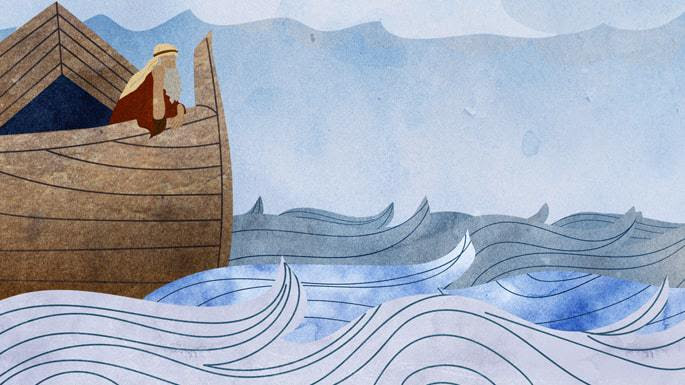
October 20, 2023 | This week is Parshat Noah. Read more about it here.
A world filled with chaos. Violence, cruelty and plunder are considered acceptable - and celebrated. Truth doesn’t matter. Moral values have lost all value.
I could be talking about our world right now. But I’m describing the world before the great flood - when G-d decided that humanity had strayed so far off course that He regretted creating it. G-d had had enough. And He was going to do a hard reset and start again from scratch.
Only one person was unaffected by the chaotic world around him: Noah. G-d instructed him to build an Ark that would save him and his family as the flood wiped out the rest of civilization.
In this current climate of chaos and war, we can learn from Noah to navigate the chaos of the moment and float above the raging waters of violence, hate, indifference and terror:
1) The entire world ridiculed Noah for his moral stance and faith in a just society. When he started building the ark and telling people that G-d was going to take care of those that stood on the wrong site of history - his neighbors laughed at him. But he retained his resolve and didn’t back down.
We, the Jewish people, must stand strong in our values and convictions. We know that Israel has the right - no, obligation - to defend itself. As hard as it is, we can’t let ourselves be bullied by heartless terrorists or by misguided pundits. Let’s stand strong in our values and the truth will prevail.
2) Noah didn’t descend into despair. When the world was spiraling downwards, he took action. He publicly built a giant Ark - a form of protest against the world’s moral failings. He tried to reason with people to change.
We can’t allow ourselves to be sucked in by the news cycle or to retreat into ourselves. In the face of a crisis - where our brothers and sisters are being attacked and over 200 hostages are waiting to come home - we have to take action. Donate to the efforts in Israel. Be vocal in support of Israel. Do a Mitzvah for Israel.
3) Noah committed himself to a crazy mission, spending years building an ark, rounding up animals and eventually boarding the boat - because he had faith in G-d. His resolute faith led him to keeps his eyes on the goal and follow through with what had to be done. His reward: he was saved and emerged from the Ark to witness a bright new world.
We have so many questions right now, but we have to have faith. Faith that the hostages will return safely. Faith that we will eradicate the evil of Hamas. Faith that G-d will protect the IDF and our brothers and sisters in Israel. Faith that we will emerge from this difficult period with renewed clarity and a brighter, safer world.
May we be blessed to see the eradication of evil and terror and emerge very soon from this chaos into a world of peace.
Shabbat Shalom,
Rabbi Menashe
Dancing with Closed Scrolls
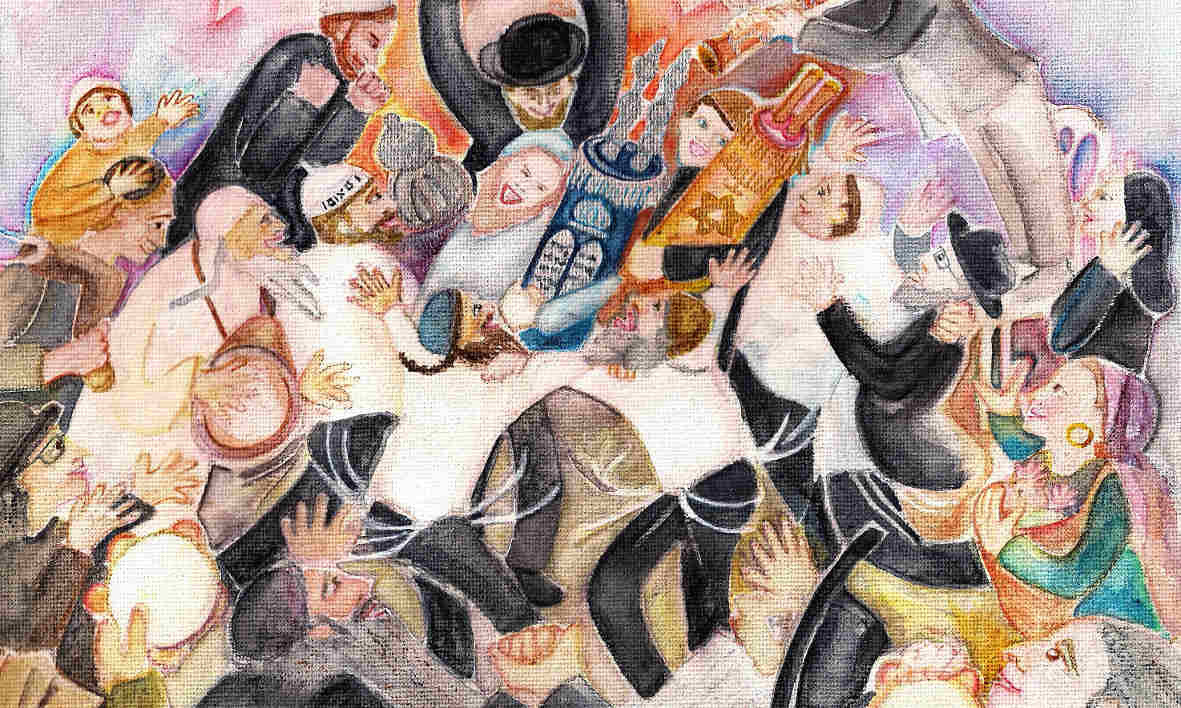
October 6, 2023 | This week is Shemini Atzeret and Simchat Torah and we read special readings. Read more about them here.
One of the other common ways of judging people is by what they do. We classify people based on their professions and hobbies. But this way of relating to and defining others ignores the depth of who people really are.
Tomorrow and Sunday are the most joyous celebrations on the Jewish calendar: Simchat Torah - the holiday that celebrates the ending of the cycle of reading the Torah. We celebrate by singing and dancing with the Torahs.
There's a deep message about the way we observe Simchat Torah that can teach us about ourselves too.
Curiously, we don't celebrate Torah by reading it, exploring its depth or discussing its ideas. Instead we keep the cover on and dance with the closed scroll. It's like a birthday party without the birthday boy. We are excited about this great book of Divine wisdom, but the words of wisdom aren't present at the celebration.
The reason for this is because the value of Torah is far more then just the sum of its ideas that we appreciate. It is Divine. It is supernal. It is infinite. So we hold the closed Torahs and celebrate the infinite Divine work that we have been gifted. We celebrate what Torah is in its fullest sense. That's why we are so happy - we experience the joy of transcendence, of reaching higher than ourselves.
If only we can replicate this in the way we interact with people. At the depth of every human being is a soul - an infinite potential that reflects G-d. We are much more than a sum of what we do. We're called human beings, not human doings. People around us deserve the dignity and respect to be valued for who they actually are and not just what they do.
The way to be able to see others that way is by first judging yourself that way. Realize that you are created in G-d's image with infinite potential and worth. You are not what you do. You are not defined by your current mood, job, or schedule. You are much greater and deeper than all of that.
When you see yourself that way, you’ll start seeing others that way too.
Shabbat Shalom and Chag Sameach,
Rabbi Menashe
How The First Humans Responded to Darkness
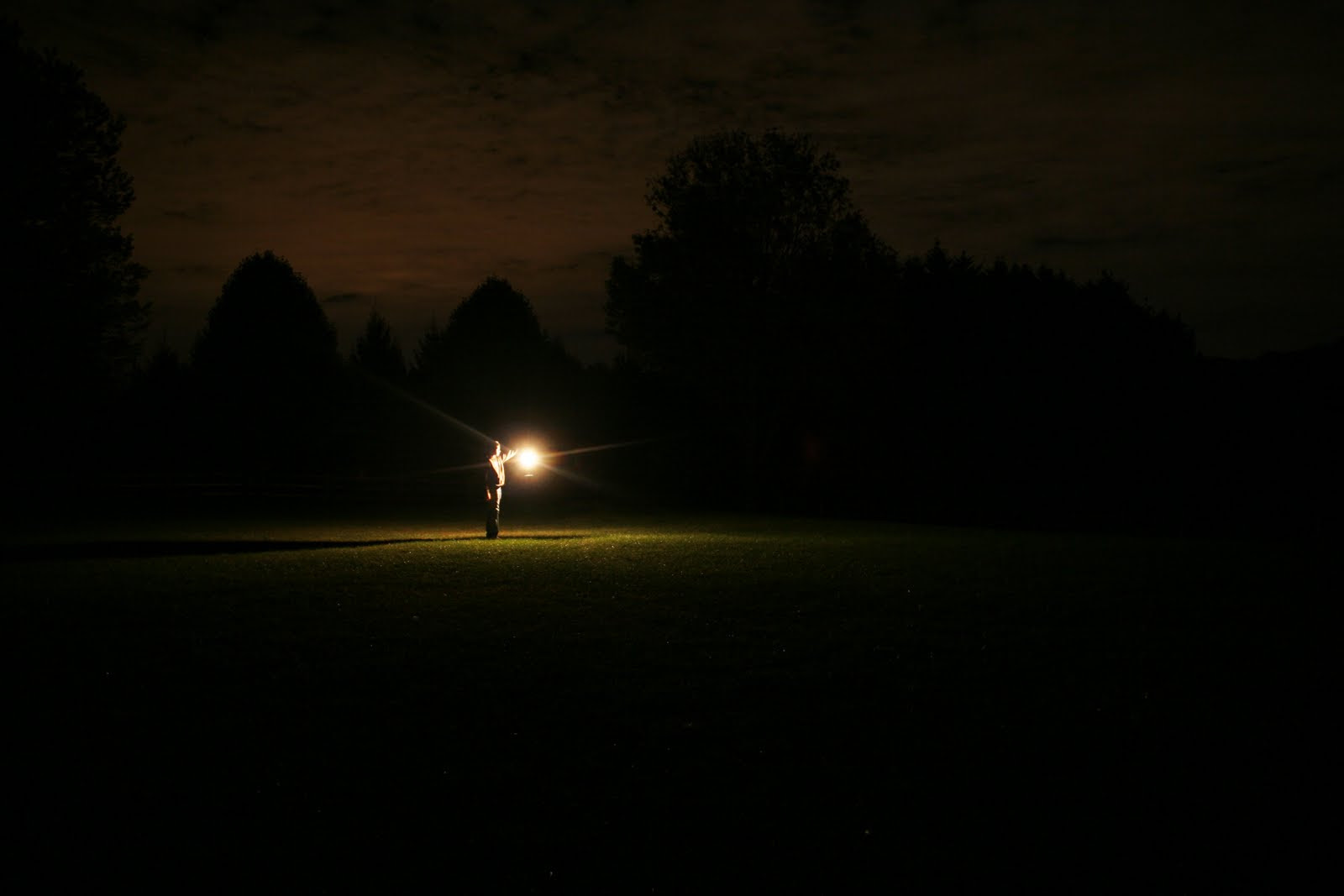
October 13, 2023 | This week is Parshat Bereishit. Read more about it here.
This past week has been so difficult and painful. We are all reeling from the senseless and brutal murder of 1300 beautiful souls and from the danger our brothers and sisters continue to face. We are in shock. We are mourning. And we are crying. But we mustn't allow this darkness to stifle us or overwhelm us.
There’s another set of tears that I’ve been crying - from the overwhelming response across the Jewish world to this moment. It has been a ray of light in this darkness. From every part of the community people have been mobilizing to help. From donating funds and goods to paying for flights for soldiers and cooking meals. The stories that keep being shared have uplifted me (and I’m sure many others) in these really hard days.
This week we begin the Torah anew from Genesis. We read of the 6 days of creation and how Adam and Eve are created on the sixth day. The Midrash comments that on Friday night, there was no sundown, and the first night that the first humans experienced was on Motzei Shabbat - Saturday night.
Now imagine Adam and Eve experiencing nightfall for the first time. They had no history to rely on and no precedent to comfort them. The world suddenly darkened with no way of knowing if the light of the sun will return. Fear and dread must have filled their hearts. For all they knew, there was no way back from this darkness and the world was coming to an end.
But they didn't resign themselves to a dark world without the excitement of color or the clarity of sight. They didn't give up hope. The Midrash tells how they took action: "When the sun sank at the termination of the Sabbath, darkness began to set in. Adam was terrified [thinking] “surely the darkness shall envelop me” (Psalms 89:11)… What did the Lord do for him? He made him find two flints, which he struck against each other. Light came forth and he said a blessing over it." This is the source of having a candle for Havdalah.
Adam experienced darkness but didn't become a victim to it. He didn't allow himself to be sucked into the hopelessness. Instead, he took action to bring light into the world and shift reality. He mobilized to be an agent of light that brightened his surroundings and gave himself and Eve the courage to last until the sun rose the next morning.
We are living through one of the darkest chapters of our recent history. It is such a difficult moment for all of us. And we are responding with light. We are called upon to be agents of light. Israel needs us to mobilize as reservists - if not to fight on the geographic front lines, to be on the front lines of adding light to the world that will have a positive impact on the realities on the ground.
If we get sucked into the darkness, we allow the terrorists a victory. Instead we have to keep increasing the good that we do. We have to increase our kindness and generosity. We have to increase our Jewish practice and pride. We have to show that we are not afraid, we are not going to buckle to the darkness. No. We will shine light. We will break through the darkness. And we will overcome it. Our light will shine brightly to the world.
Please - do an extra Mitzvah for Israel today (and every day). Help in any way that you can. Light Shabbat candles (at 6:01 in Brooklyn). Pray. Give charity. Put on Tefillin. Be kind. Strike those stones together to create a spark of light that will brighten even the most terrifying darkness.
Shabbat Shalom,
Rabbi Menashe
Drunk on Water
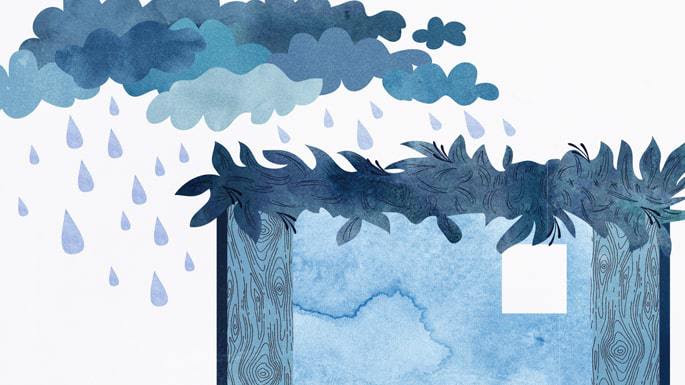
September 29, 2023 | This week is Sukkot and we read a special reading for Sukkot. Read more about it here.
Rain and Sukkot don’t seem like a good match. When we’re sitting in our outdoor Sukkah, exposed to the elements, the last thing we want is for it to rain. Let alone a torrential downpour.
But, interestingly enough, Sukkot is closely tied to water and rain.
The Talmud says that on Sukkot the world is judged for rain. We think of Rosh Hashanah and Yom Kippur as the days of judgement, but Sukkot is also a day of judgement - for rainfall of the year. In the ancient agricultural societies, rain played a huge role in people’s livelihoods and in the general food supply chain. We don’t appreciate this as much as they used to, but rain still has a great impact on so many things in our life and world.
One of the rituals of Sukkot in the Temple was the water pouring on the Altar. Throughout the year, wine was poured on the Altar as a libation. On Sukkot, water was also poured.
The pouring of the water was a massive celebration. It was accompanied by music and dancing - the Temple version of a rave. The celebration was so immense that the Talmud says that whoever wasn’t there has never seen real joy.
What was so exciting about the pouring of the water? Why the big fuss?
One idea is in what water represents. In contrast to wine, which has a sophisticated taste and body and has an intoxicating effect on a person - water is simple. It doesn’t have a taste. It is clear. It is a no frills, basic resource for survival.
That’s exactly why it was celebrated on Sukkot.
We usually find joy in external stimuli. We seek out exciting experiences. We buy nice things and sophisticated gadgets. We look for “wine” experiences - we look for something to intoxicate us. But those joys are only short-lived and shallow. As they say: money can’t buy happiness. It can give you a few moments of excitement and joy - but true joy comes from within.
Sukkot teaches another kind of joy. On Sukkot we step out of the comfort of our homes, leaving behind our elaborate furniture and treasured belongings, and embrace the fragile structure of the Sukkah. To be happy, Sukkot teaches, we have to focus less on what we have and more on who we are. Happiness is the experience of living a life that expresses who you are, and of being true to yourself.
And that is represented in the clear, tasteless, simple water. It doesn’t have any particular allure - but it is synonymous with life itself. On Sukkot they poured water to demonstrate that the ultimate joy is found in uncovering our unique selves. In experiencing the simple joy of our souls.
I hope the rain stops in time for us to sit in the Sukkah this evening, but either way, the rain can be a reminder of what Sukkot is trying to teach us: the greatest joy is found in the simplest of things. This Sukkot, let’s get intoxicated on water!
Shabbat Shalom and Chag Sameach,
Rabbi Menashe
The High Holiday Extension that Cost Isaiah His Life
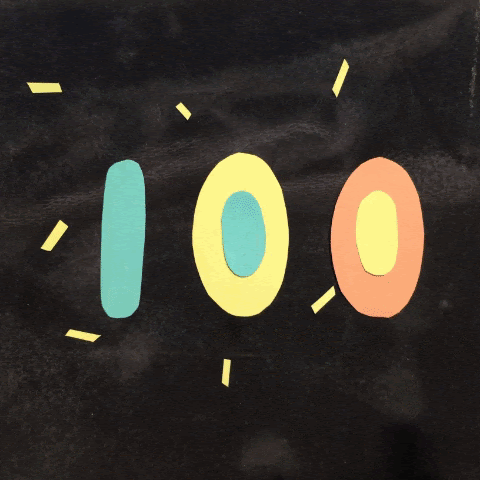
September 22, 2023 | This week is Shabbat Shuvah and we read the Parshah of Ha’azinu. Read more about it here.
Did you know that there are 10 days of High Holidays, not just 3? The prophet Isaiah taught this radical idea and ended up getting killed for it.
The ruler of Israel at the time, King Menashe, was Isaiah’s grandson. He produced a list of Isaiah's prophesies that he understood to contradict the Torah taught by Moses and accused his grandfather of being a false prophet.
These were misunderstandings of Menashe, but Isaiah knew that the evil King would not accept his justifications, and instead of trying to respond to the charges, he attempted, unsuccessfully, to escape. Menashe subsequently had him assassinated.
One of those contradictions was what Isaiah had said (Isaiah 55:6): "Seek G-d when He can be found," which Menashe thought to be in conflict with (Deuteronomy 4:7): "For which is a great nation that has a G-d Who is close to it, as is Hashem, our G-d whenever we call Him." While Moses taught that G-d is always available to hear our prayers, Isaiah implied that there are distinct times when G-d is able to be sought out.
Isaiah's words were never meant to conflict with the Torah, and the Rabbis of the Talmud (Yevamos 49b) later provided the justifications for him. They explained that the verse in Deuteronomy was said in reference to a community that prays to G-d. Although we can always pray to G-d, communal prayers are always answered. Isaiah added that there are certain times when even an individual has G-d's complete attention, so to speak, and his or her prayers are particularly successful. When is this auspicious time? The Talmud says: "These are the ten days between Rosh Hashanah and Yom Kippur."
Isaiah gifted us, ultimately at the cost of his life, with the awareness of the Divine closeness during this special time, which gave these days their name, the 10 Days of Teshuvah. The 7 days between Rosh Hashanah and Yom Kippur are not just a week break between the two special days, but a bridge across them.
We are currently in this 10 day period when there's a unique energy of G-d that is present in our lives, allowing us to feel Him and connect with Him deeply. The whole year we have to court G-d and rise above our mortal nature to connect with the infinitude of the divine. In the High Holiday season, G-d's infinite presence is among us. It's like G-d reaching out for a hug - all we need to do is reciprocate and allow ourselves to be swept up in His embrace.
So take a few moments over the next few days until Yom Kippur and speak to G-d. Reach out to Him, and you may notice that the channel of communication is already open. He is close. And we have a unique chance for an intimate relationship with Him. In the words of Isaiah, let's "Seek G-d when He can be found."
Shabbat Shalom!
Rabbi Menashe Wolf
Annual Stocktaking
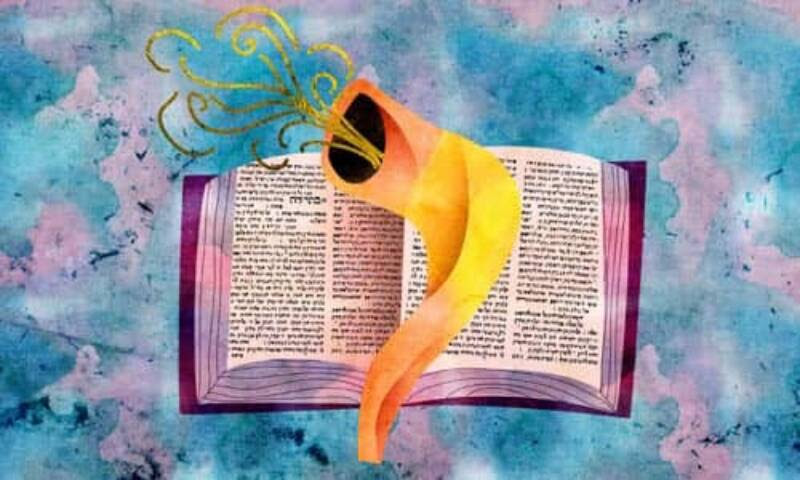
September 15, 2023 | This week we read special readings for Rosh Hashanah. Read more about them here.
Most of our lives are spent taking care of menial tasks, tasks that not only don't demand of us to express our truest selves, they distract us from it. We get so caught up with taking care of our basic needs - eating, drinking and sleeping, making a living, keeping up with family and friends - that we neglect to think about why we want those things in the first place.
That is why it's important once in a while to do a personal stocktaking. To step back from everything we are busy with and to evaluate our direction; to rediscover who we are and what makes us tick; to realign our everyday living with the core values that we hold dear.
Rosh Hashanah provides us with an annual opportunity for this. On the birthday of mankind, we are afforded a chance at rebirth, a moment to look deeply into our lives and reconnect with ourselves.
The tool we use for this exercise is the Shofar.
The uncomplicated note of the Shofar is meant to embody a voice from the innermost depths of our being. Its sounds are simple yet complex; strong yet soft; profound yet accessible. It expresses a yearning that is more profound than intellectual argument, deeper than emotion, and more powerful than any structured expression. Its simple sound reflects the simplicity of our essence.
The Shofar is the GPS of the soul, charting the course of the coming year based on the coordinates of our deepest desires. It has the power to set us on the road to a year of integrity and fulfillment. It is both a call from the depths of the soul and a call to the depths of the soul. It inspires and challenges.
This year, the first day of Rosh Hashanah is Shabbat and we don’t blow the Shofar. One reason is that with the spirit of Shabbat, we can dig within and find that clarity on our own. We can’t always rely on external stimulants and inspirations - we have to find the inner sound of the Shofar on our own.
But the shofar is still the shofar. And we have a chance to hear its piercing sounds of the Shofar on the second day of Rosh Hashanah, on Sunday. I can't encourage you enough to listen to its call. Wherever in the world you are going to be, find a Shofar blowing near you and be a part of it.
If you are in Brooklyn, please join me at Dirah’s services at Hannah Senesh (342 Smith St.) and/or at Shofar and Tashlich Meditation at the Canal for a meaningful Shofar experience.
I want to take this opportunity to thank all those that have partnered with us in bringing the High Holidays to the community by contributing to the Caring Wall. May the merit of your tzedaka channel blessings into your life!
Shabbat Shalom and Shana Tova,
Rabbi Menashe
Fresh Beginnings

September 8, 2023 | This week we read the parshahs of Nitzavim & Vayelech. Read more about them here.
There was such excitement in my children's eyes as they got dressed and packed up for their first day of school. Walking through the neighborhood yesterday, it was impossible not to be caught up in the excitement of the first day of school, seeing jolly kids posing with signs on their stoops ready to tackle a new school year.
It's a freshness that we adults miss out on. At a certain stage in life, we stop counting semesters and years. Life becomes one long continuum. Each day leads into the next, every year is the same as the last one.
Judaism counters this with an emphasis on counting time. Hours have to be counted for the daily rituals and prayers; days of the week have to be counted for Shabbat; months are counted for the sake of Holidays; and years are counted a cycle of tithes and taxes, the Shemitah (Sabbatical) year, and a host of other things (the Talmud actually lists 4 New Years, each for another purpose!)
Chassidic teachings take this one step further. Not only do we have cycles of time, but just like school, where the new year excitement is tied up with the unknown potential of a new grade, teacher and curriculum - each cycle of time introduces a fresh energy in its renewal.
Every hour of the day is a new Divine energy combination. Every day of the week reflects another emotion of G-d's radiance (hence 7 days of creation - each day was another element of the creative energy). Each month has a zodiac that symbolizes its unique character. And each year, on Rosh Hashanah, G-d invests a brand new creative energy into the world to sustain it for another year.
We are a week away from Rosh Hashanah. The new year is going to bring with it fresh opportunity for growth and change. Let's approach Rosh Hashanah with the school-kid excitement of a new beginning and not allow the new year to be tied down with the weight of the old one.
Henry Ford is quoted as having said: “If I’d have asked people what they wanted, they would have said faster horses.” Open yourself up to new possibilities. Add a Mitzvah in 5784 that you haven’t done before. Try something new and go a little out of your comfort zone. Let the fresh energy of 5784 manifest in your life.
We’re excited to launch a couple of brand new programs at Dirah in the new year:
Ethics Breakfasts -A monthly Sunday morning breakfast and conversation on different areas of ethics. We’ll be hosting guest speakers in conversation with a rabbi, comparing contemporary approaches with timeless Jewish perspectives. We have some great speakers lined up - stay tuned for details.
ROOTS: Fellowship For Jewish Parents - A fellowship for parents looking to discuss and explore what it means to raise a Jewish family and foster a strong Jewish identity in today's modern world. There’ll be monthly get-togethers and periodic social and holiday programming with conversations about Jewish parenting, identity, and values. The first event will be a Nov. 2 conversation with renowned author and speaker, Doron Kornbluth on “How to Raise Happy Children Who Love Being Jewish.”
Let’s utilize the final week of the year to carve out a space in our lives for the new energy of 5784.
Shabbat Shalom,
Rabbi Menashe
Found in Translation

September 1, 2023 | This week we read the parshah of Ki Tavo. Read more about it here.
There are many ways to define our role as Jews in the world. Today I want to suggest a new one: we are translators.
I have an affinity towards the act of translation. The first mention of a translator in Torah is my original namesake - the Biblical Menashe, son of Joseph. When Joseph accuses his brothers of being spies, he communicated to them through a translator - his son Menashe - to give the impression that he didn't understand their Hebrew.
In this week's Parshah we have a curious case of translation - that highlights its centrality to the Jewish mission. Moses instructs the Jews that upon entering Israel they should take two large stones and inscribe the Torah "as it is well explained." The Talmud explains this to mean that they should translate the inscription into seventy languages.
Now, the Jews were a close-knit community with a shared background and heritage. What purpose was there in translating the Torah if they all spoke Hebrew (this is besides the question of how did they even know seventy languages to be able to translate it)? Who was this translation aimed at?Some commentaries see it as a security for future generations: when the Jews would end up being dispersed around the world, they'd have this translated text to reference back to. But I think there's more to it.Translation is more than just switching the language of a text. It is about rewriting and applying the text into a different context. It is the art of integrating an idea into a foreign space.
Translation is something we do all the time, even with our native language. We automatically filter everything that we hear and learn through our set of experiences and biases and apply it uniquely to our set of circumstances. In short, we translate it into our own internal language. As the writer, Ken Liu, put it: “Every act of communication is a miracle of translation.”
If Torah were to remain locked into its original dialect, it wouldn't have the capacity to have bearing on lives and cultures that are represented by other languages. Its sacredness would be lost in translation. Moses sanctioning the translation of Torah was making a statement that Torah can be translated into frames of reference outside its original one while retaining its authentic Divinity.
The act of translation confirmed that Torah was not a static set of laws given only to ancient Hebrews, but a dynamic way of life that is relevant in every generation and can be translated into the language, culture and ever-changing trends of society.
To translate Torah is to uncover its relevance for our world and its resonance in our lives. It is to be able to express the authentic wisdom and values of Torah in our own unique voice. It is to apply the Torah to our modern world without losing any of its authenticity and Divinity.
As they entered Israel, the Jews were transitioning into a new phase of the Jewish story. They were leaving the privileged cocoon of the sheltered desert life and stepping into the real world, where they'd encounter things other than the pristine spiritual reality they had become accustomed to. They were about to face real-world challenges - working the land, establishing governance etc. - and interact with foreign nations. Moses was empowering them to translate the spiritual wisdom of Torah into the new contexts of the world they were entering and apply it to new environments that they would encounter.
Thanks to Moses' instructions, we can each translate Torah and apply its Divine insight to our circumstances to make our lives, and this world, more G-dly and sacred.
Shabbat Shalom,
Rabbi Menashe
Showing up for Success

August 25, 2023 | This week we read the parshah of Ki Teitzei. Read more about it here.
Woody Allen famously said that 80 percent of success is showing up.
If you want to succeed in your relationships, it's not enough to read books or attend seminars, you have to be present and put in the effort. If you want to have success in learning something new, you have to attend a course or read a book.
You can spend all day strategizing and drawing plans on a whiteboard, but you'll never succeed if you don't go out there and do something.
This week's Torah portion adds something fascinating to this idea. Showing up isn't only an important prerequisite for success, it actually causes it.In introducing a passage about the laws of captives of war, the verse reads: "When you go out to war against your enemies." The literal translation is actually "on top of your enemies," giving room for a beautiful Chassidic teaching that explains the verse as follows: "When you go out to war, you will be on top of your enemies." The mere effort of going out to war itself already gives you an advantage over your enemies. Showing up isn’t only 80 percent of success - it inspires Divine blessings for the other 20 percent too.
Most of us don't fight in literal wars, but we all have a war raging inside us. We have an inner struggle between our altruistic desire to do the right thing to make the world a better place and our more self-serving needs and drives. The secret to success in this moral and spiritual battlefield is 'going out to war', taking a proactive role in doing the right thing.This teaching empowers us that all we really need to succeed in being good people, is sincerely trying.
When you have a struggle with a particular mitzvah or charitable act, start doing something towards it, and often you'll find that the challenge or hurdle will fall away. The Midrash phrases this ideas as G-d saying: “Make an opening for Me the size of the tip of a needle, and I will stretch it to the opening of a wide doorway.” Our efforts in entering the battle for doing what's right will be rewarded with coming out on top.
In the lead up to Rosh Hashanah this is a powerful reminder that we have what it takes to become better people and Jews. We can all do more Mitzvahs, be kinder people and continue to grow in our relationship with G-d. All we need to do is try.
May we be inscribed for a good and sweet year.
Shabbat Shalom,
Rabbi Menashe
40 Days of Reflection

August 18, 2023 | This week we read the parshah of Shoftim. Read more about it here.
There’s a lot of debate about the nature of policing and what is the most just and effective way to keep our streets safe. For whatever reason, we can't expect people to do what is right simply because they should. Policing is inevitably needed.
This week's Torah portion opens seemingly with this sentiment. As the Jews prepare to enter the land of Israel, Moshe instructs them to "set up Judges and Enforcers in of all your gates." Law and order is such a central element to the Torah vision for society; Moses is reiterating here one of the 7 basic universal laws that were given to Adam at the early stages of history.
But a closer look at the text adds another layer of meaning. Moses' command is written in the singular, as if imploring each one of us individually to appoint judges and enforcers. Picking up on this textual anomaly, the Chassidic masters present a more personal take on this law enforcement edict.
In their view, we are being guided to employ internal moral defenses. "All of your gates" is a reference to our senses that are the gateways connecting us to the world. The verse is encouraging each of us to "set up Judges and Enforcers" - to create boundaries, take responsibility for our actions, and have the self-control to police our own behavior. The standards we set for ourselves and the integrity we employ to uphold those standards are the judges and police that keep us in check.
We read this Torah portion as we enter the month of Elul, the month preceding the High Holidays. Today is Rosh Chodesh - the first of Elul - and we blew Shofar for the first time of the season. Historically, the 40 days from beginning of the month until Yom Kippur was the time that Moshe spent on Sinai attaining forgiveness for the Jewish people and receiving the second Tablets. Every year, this span of time is marked by the daily Shofar blowing - a reminder to utilize this time for introspection and reflection as we work on improving ourselves in anticipation of the New Year.
A window of opportunity opens today to reflect on our own spiritual values and moral boundaries and recommit ourselves to living with them. We can harness this moment to better ourselves as people and as Jews, and enter the New Year as the best version of ourselves. By each of us doing our best to improve ourselves, and promote this vision to people around us, we can create real positive change - and we’ll eventually realize the utopian society of the Messianic vision, where everyone will be self-motivated to act kindly and morally, and the world will be filled with peace and harmony.
Shabbat Shalom and Chodesh Tov,
Rabbi Menashe Wolf
Salty Meat and Souls

August 11, 2023 | This week we read the parshah of Re’eh. Read more about it here.
If you have sensitive tastebuds, you'll notice that Kosher meat tastes a little salty.
One of the laws of Kosher is that we are not allowed to eat blood. As part of the Koshering process, meat is "salted" - that is, the meat is placed in thick salt for about an hour to draw out the blood. Interestingly, large-grained salt was originally used specifically for Koshering meat, which is how it got its name, "Kosher Salt."
There's a curios obsession in Torah with the prohibition of consuming blood. We are cautioned against it as many as seven times - compare that to pork (mentioned twice) and mixing milk and meat (three times). And in this week's Parshah we read an added layer of encouragement: "Be strong and do not eat blood," the only time such an expression is found in Torah.
Why is this specific Kosher law given so much attention?
Some rabbis suggest that the ancient Jews were obsessed with eating blood - whether for health reasons, superstitions or religious practices - and Torah needed to come out strongly against it to stop the practice. Others argue that blood was never very appetizing, but consuming it would lead to the development of cruel and insensitive tendencies.
Perhaps there's something deeper here.
Although Judaism allows meat consumption, it respects the dignity of animals. Ultimately, humans are the top of the spiritual food chain. We have advanced consciousness and moral choice and can elevate our lives to a Divine agenda - something plants and animals cannot. As such, we have permission to utilize these resources, respectfully, in the name of greater good. When a person uses energy taken from the meat that they ate to help someone or do a Mitzvah, that animal has served a purpose higher than itself.
But outside of that paradigm, we are sensitive to the animals feelings and are enjoined to treat them with respect: We can't needlessly harm them; you have to treat your animals well and feed them before yourself; and even when we are allowed to kill them, they need to be slaughtered in a precise way that minimizes pain.
Perhaps this is the underlying reason why we can't eat blood. When explaining the prohibition against blood, Torah says: "for the blood is the soul; and you shall not eat the soul with the flesh." Blood is the lifeforce of an animal. It pumps oxygen to the various parts of the body. It is the seat of the soul. It is the carrier of life itself. The blood represents the animal's self - its character and soul.
The commentator Nachmanides suggests that: "The possessor of a soul may not consume another soul, since all souls belong to God." Animals have souls that are immortal and live on in some form after death. The body of the animal can be consumed and give us energy to do good, but its soul belongs to it and isn't within our capacity to subsume.
I think that one reason why Torah emphasizes the prohibition of blood to highlight that everything in this world has a Divine energy. Our role is to recognize the soul within everything, respect its Divine purpose and utilize it in healthy and Kosher ways to make the world a better place.
Shabbat Shalom,
Rabbi Menashe Wolf
Wholeness of the Broken Tablets
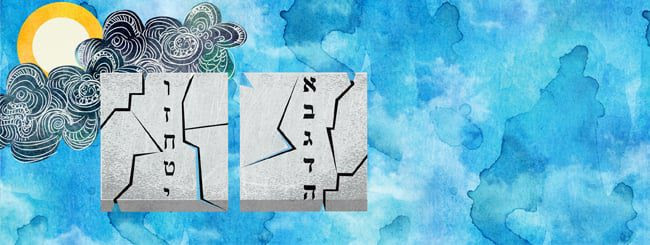
August 4, 2023 | This week we read the parshah of Eikev. Read more about it here.
Do you cover up your shortcomings or try forgetting your embarrassing mistakes? If you're like most people, you'd rather hide your struggles than admit weakness.
Modern psychology has been challenging this approach with studies showing both the health and social benefits of embracing our shortcomings and owning our failings. Vulnerability is in.
Well before it became popular, Judaism promoted this brand of honest self-awareness. Rabbi Yosef Yitzchak Shneorson, the previous Chabad Rebbe, would say: "The true way [of life] is to know one's character - truly recognizing both one's own deficiencies and one's good qualities."
The birth of this idea is in this week’s Parsha.
When Moses came down from Sinai with the Tablets and saw the Jews sinning with the Golden Calf, he threw the Divinely inscribed sapphire to the ground, smashing it to bits. He then retreated back up the mountain for another 40 days to receive a second set.
The story of what happened to the broken shards of those first Tablets is a lesson how to learn from failure.
When the Jews built the Ark as the centerpiece of the Temple, Moses was instructed to store the sacred Tablets in it. According to the tradition in the Talmud, the broken shards of the first Tablets were placed in the Ark too. Why should the broken Tablets be enshrined for eternity in the holiest of places? Why would we want to preserve such a painful memory and showcase our most profound national failure?The placement of the broken Tablets was designed to demonstrate that growth comes from failure as much as it does from success. Setbacks are opportunities to climb higher.
According to the Talmud, the second set of Tablets were greater than the first - because the Jewish people had repented from their failure. But without the breaking of the first Tablets, the would never had experienced that growth.
G-d wanted the mistake of the Golden Calf - which was memorialized in the broken Tablets - to be on the forefront of the Jewish consciousness. Being mindful of where they went wrong would teach them how to do things right. As King David wrote in Psalms: "For I know my transgressions, and my sin is always before me."
This is the central premise of Teshuva, restorative repentance, that we highlight on Yom Kippur - we have to confront our mistakes and deficiencies to grow from them. The greatest mistake in Jewish history, worshipping the Golden Calf, catapulted the Jews' growth and led them to a deeper relationship with G-d.
Accept your shortcomings and learn from them. Admit your mistakes and grow from them. Confront your weaknesses and become stronger through them.
Shabbat Shalom!
Rabbi Menashe Wolf
Don’t Judge a Home By Its Cover
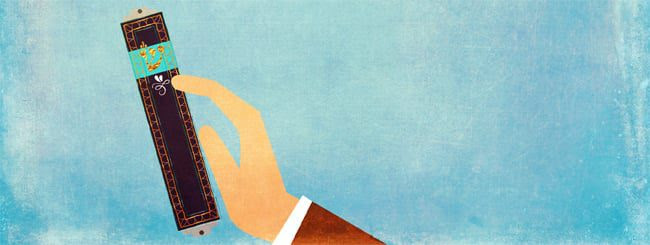
July 28, 2023 | This week we read the parshah of Va’etchanan. Read more about them here.
You've heard it (and probably said it) a million times: Don't judge a book by its cover.
But as profound as it sounds, when you're sifting through titles at the bookstore chances are that you are swayed by their designs. After all, covers are designed to do just that,
and often enough external appearances do reflect what is within. At the very least, the cover of a book reflects what the author or publisher wants you to think about the book.
This week's Torah reading features the Shema - the foremost Jewish reading. It is not so much a prayer, but a declaration of faith. "Hear, O Israel: The Lord is our God; the Lord is one." It continues with how this faith develops in an ideal sense, moving from the inside out. First comes the internal emotional response to faith: "You shall love the Lord your G-d." That leads to expressing it on the outside: teaching it to our children, wearing it on our arm and head (Tefillin), and finally, the most external expression of faith, writing it onto our doorposts.
Of all these expressions of faith, the final one seems the least sensible. What value is there in hanging your declaration of faith on the wall? Does hanging a scroll on your door have any bearing to your character? Why is Mezuzah meaningful?
The stories we tell of ourselves - the way we promote ourselves to the world around us - reflect what we believe and find important. What we choose to advertise on the door of our home is a profound indication of what we hold dear.
Although placing a Mezuzah on your door doesn’t necessarily project or effect your inner faith and convictions, it affirms a choice you make to reflect Judaism as an important area of your life. It doesn't demand much of you, but it shows where your heart lies. It is the cover that you choose to adorn your home.
The design of the casing isn't so important - it is only a protective cover for the scroll within. The precise words of Shema, expertly written by a qualified scribe on parchment, reflect the beautiful and wholesome space for G-d in your soul.
For those of you that have a Mezuzah on your door, what does it mean to you? What story does it tell about you, your faith and your heritage? It's worth getting the scroll checked to make sure that the letters are intact and that the words on the scroll are an accurate reflection of your beautiful and pure inner heart.
For those of you that don't yet have a Mezuzah on your door, maybe now is the time. With everything going on in the world, we need to be stronger Jews and stand tall to share our message of faith and values with the world. Torah has gifted us with the perfect design to promote our heritage, we may as well use it.
To buy a Mezuzah or have yours checked, email me at menashe@dirahbrooklyn.org.
Shabbat Shalom,
Rabbi Menashe
Divine Homelessness
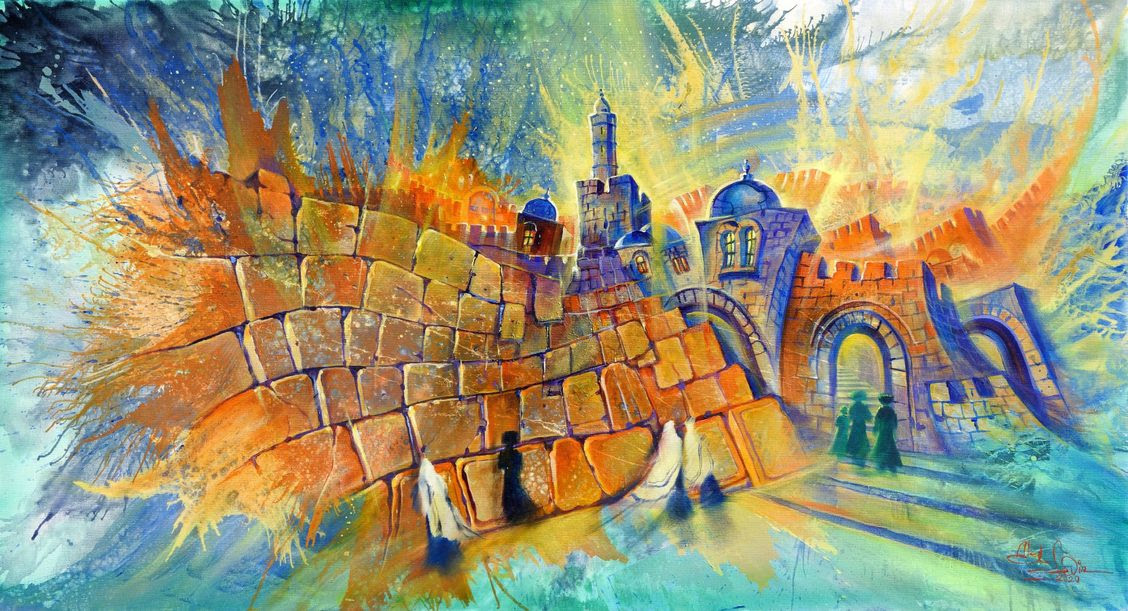
July 21, 2023 | This week we read the parshah of Devarim. Read more about them here.
Having a home is something that most of us, thankfully, take for granted.
Home is more than a roof over your head or a place to store your belongings. It is where you feel comfortable and settled. It's the only place in the world where you are on your own turf. It's where you can be you without any judgement. Without that personal space, we don't function properly. As the Talmud puts it: "A person without a home is not fully a person."
I’ve been thinking about the importance and comfort of having a home this week.
We're now in the 9 days that Jews mourn the destruction of Jerusalem, culminating with Tisha B'Av, the anniversary of the destruction of the Temple, that we will commemorate on Wednesday night and Thursday. Why do we make such a big deal over the loss of the Bet Hamikdash? Why are we still crying, thousands of years later, over shattered stones? And why does the dream of it's rebuilding occupy so much of our tradition and liturgy?
When G-d instructed the Jews to build the original Temple, the Mishkan in the desert, he said (Exodus 25:8): "And they shall make Me a sanctuary and I will live in their midst." The Temple was a home for G-d. It was the one place on earth where the Divine was manifest; where heaven met earth; where G-d's presence was natural and at home.
We don't cry over the loss of the physical structure of the Temple, we mourn G-d's homelessness and the distance that was created between our world and the Divine. When we pray for the rebuilding of the Bet Hamikdash, we are praying for a spiritual awakening and Divine consciousness, for a space - both physical and conceptual - that is accommodating for G-d. We pray for G-d to have a home.
We may not have the resources today to build the physical Temple or be in a position to do so, but we can work on creating G-d's home. Every prayer that we utter, and each Mitzvah that we do, creates a spiritual channel in the world, acting as a conceptual brick in G-d's home on this earth.
May we merit to witness, and be part of, the rebuilding of G-d's home.
Shabbat Shalom,
Rabbi Menashe Wolf
Unexpected Journeys
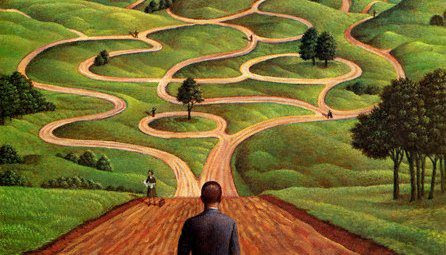
July 14, 2023 | This week we read the parshahs of Matot-Massei. Read more about them here.
Our family just got back from a wonderful trip visiting my parents and family in Australia. It was a whirlwind trip - we celebrated two Bar Mitzvahs, spent so much time with family, caught up with old friends, and toured Melbourne - and it wasn't without some hiccups. Flying with four kids across the world was never going to be easy, but our experience en route to Australia a couple of weeks ago was exceptionally crazy.
When our Sunday night flight out of New York was cancelled, we were rebooked for the next night. But after checking in to the Monday night flight and waiting for hours in the airport, we were finally told that our flight was cancelled. We would have to try a third time. Only this time, the airline told us that they had no availability until the following week - and we were travelling for a Bar Mitzvah that Shabbat.
You can only imagine our mood as we called an Uber at midnight to get us home from Newark, after spending 6 hours at the airport. We had no luggage (it was checked in - and we only ended up getting it back a week and a half later!), our kids were exhausted and incredibly disappointed, and we had no idea whether we'd be able to make it to the Bar Mitzvah or go to Australia at all. (We ended up flying out on Tuesday night with a different airline.)
But despite everything, there was a certain calm that we experienced. Our travel plans were beyond our control at that point and we acknowledged that apparently G-d had other things in store for us. We thought we needed to get onto a flight that night, but G-d had other plans. As I shared this with our Uber driver (as one does), he added: "If this is what happened, it isn't only something you have to accept, but it is the best thing for you." In other words, G-d wasn't doing this to us, he was doing it for us. He didn't help our situation, but the midnight spiritual lesson from the Uber driver did help my mood.
Throughout our lifetimes, we are always trying to make our way to an envisioned destination. We hope that our path will be straight and smooth, but all too often we encounter bumpy roads, twists and turns, and setbacks.
At times we take big leaps forward, achieving great things, growing, and fulfilling dreams. There are times when we stall, finding ourselves stuck in an unhealthy place of no progress, waiting for something to happen. And sometimes we move backward, making costly mistakes that set us back. There are moments when we are lost and confused, when it seems that we've lost sight of the trail or are too tired to travel further.
But these difficult experiences are also a part of our journeys. They are not actually setbacks, but integral parts of our growth and travels towards our destinations.
This week we conclude the fourth book of the Torah with a recap of the travels of the Jews through the desert. The overview of their 42 stations that they camped in over the 40 years begins with (Bamidbar 33:1-2): "These are the journeys of the children of Israel who left the land of Egypt in their legions, under the charge of Moses and Aaron." Even though most of the time in the desert the Jews spent camped and stationary - at some places for years on end - Torah describes their entire time in the desert as their “journeys”, because even their stops were parts of the journey.
The verse continues (33:2): "Moses recorded their starting points for their journeys according to the word of the Lord, and these were their journeys with their starting points." The journeys and places of rest are interwoven. Stopping points are also starting points. The pauses were valuable moments of the journey and contributed towards reaching their destination. Every moment of the 40 years was part of the journey moving from the restrictive place of Egypt to the redemptive Promised Land.
In life, every setback is an opportunity for reflection and new perspective. We think we know our intended destination, and challenges seem to be stopping us from getting there. But that place we are trying to reach may be a limiting goal. There's somewhere far greater in store for us. G-d is guiding each of us towards our Promised Land, and every setback is G-d rerouting us towards our most fulfilling path.
The author Douglas Adams wrote: “I may not have gone where I intended to go, but I think I have ended up where I needed to be.” In describing the Jews' journeys in the desert, Torah is teaching us that every failure is a stepping stone to success. Every pause is preparation for a new movement. The challenging times are not us stepping off the trail, but blazing a new one.
Shabbat Shalom,
Rabbi Menashe
Be A Hero In The Moment

July 7, 2023 | This week we read the parshah of Pinchas. Read more about it here.
Have you ever held back from doing something good out of fear of what others would think and say? Or because you weren't sure if you were the right person for the task? Or because you didn’t think it would make a difference?
If you answered yes to any of those, read on.
Pinchas, the namesake of this week’s reading, doesn't make the list of the biggest heroes in Jewish history. He didn't command an army, win a war, or perform any major miracle. He wasn't even a leader. But he performed one of the most heroic acts recorded in the Bible.
In an attempt to infiltrate the Jewish camp, the Midianites sent their women to seduce the Jews. Among their successes, a Midianite princess managed to seduce a Jewish tribal leader in a public display.
Seeing Zimri (the Jewish leader) and Cosbi (the Midianite princess) together in public shocked the Jewish onlookers, including Moses, who froze, not knowing how to react.
Pinchas was there at the scene. He vividly recalled learning from Moses exactly how to respond in this scenario: Although a death penalty is never meted out without a proper hearing, such a public display of rebellion was so severe that it had to be stopped at all costs, even if it meant killing the perpetrator. But Pinchas looked around and saw his teachers silent.
Put yourself in his shoes for a moment and think what would be running through your mind. You'd probably doubt yourself, worry what people would think of you, and wonder whether acting rashly was worth the risk.
Despite what may have been circling in his head, Pinchas took the bold initiative and courageously speared the licentious couple. He was acknowledged, and rewarded, by G-d for being “zealous for his G-d” and “avenging Me among them.”
Pinchas knew what had to be done, but it took tremendous conviction and courage to act in the face of such strong self-doubt and skepticism. Heroism is acting in the face of fear - and sometimes the biggest fear is in our heads. For Pinchas to rise above the nagging doubts and social pressures, real and imagined, and act on what he felt to be a moral wrong is nothing short of heroic. In that moment of courage, Pinchas taught us something so valuable: You don't have to be a hero to act heroically.
So next time you're not sure if you should speak up, do a small Mitzvah, or give a small gift to a poor person, think of Pinchas. Don't worry whether you are a hero, deserve to be a hero or should be a hero. Just do what has to get done. And that's heroic.
Shabbat Shalom,
Rabbi Menashe
Don’t Worry About the Future

June 30, 2023 | This week we read the parshah of Chukat & Balak. Read more about them here.
We have a strange preoccupation with knowing the future. Throughout history, humans have tried in every possible way to predict what will be. From star-gazers to modern scientific models, we try to weave together a narrative of what life will be like in the unchartered passage of time that lies ahead of us.
But alas, as much as human beings have tried to see the future, it has eluded us. And there's good reason for that. We can't view the future, because it is up to us to shape it. We don't predict the future, we create it.
This explains an interesting phenomenon in Judaism.
We believe in a Messianic future, an end goal of sorts for all of our accomplishments over history. We look forward to a perfected world with no hate or jealousy, no poverty or war. We eagerly await a time where there will be widespread awareness of the Creator, and everyone's lives will be dedicated to moral and spiritual goodness. This belief is so important to Judaism that Maimonides lists it as one of the 13 principles of Jewish faith and it is mentioned in our prayers more than any other request.
Yet, we have barely any overt reference in the Torah to the Mashiach at all (although it is alluded to in a number of places - including in the prophecy of Balaam from this week’s Parsha). And, as Maimonides is quick to point out, we cannot know exactly what the redeemed world of the Messianic future will look like (Mishneh Torah, Melachim U'Milchamot 12:2): "All these and similar matters cannot be definitely known by man until they occur for these matters are undefined in the prophets' words... neither the order of the occurrence of these events or their precise detail are among the fundamental principles of the faith."
Why is such an important belief so obscure?
One possible reason is simple yet profound. The Messianic era is not something that is waiting to be handed to us; it is the result of our efforts. We can't know what will be because we haven't made it yet. We are not recipients of the future, we are its creators.
So instead of trying to guess what you'll be like in 30 years, create healthy habits to make sure you age well. Instead of worrying about what will happen tomorrow, change today to shape it. Instead of dreaming of a divinely redeemed world, bring G-d into your life to create it. Instead of just believing in, and praying for, the arrival of Moshiach, do acts of kindness and Mitzvos to bring him.
Don't worry about the future, create it.
Shabbat Shalom,
Rabbi Menashe
Don’t Get Swallowed In The Earth
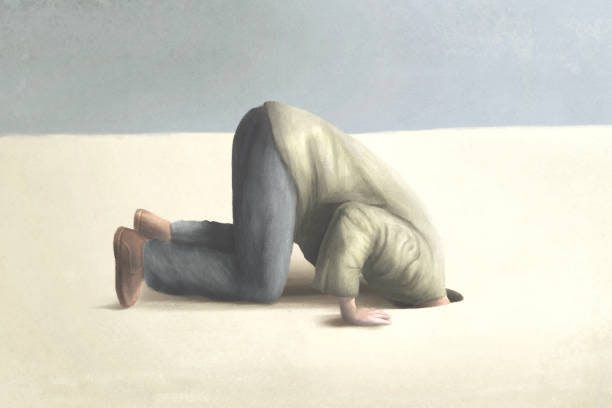
June 23, 2023 | This week we read the parshah of Korach. Read more about it here.
Do you have a spiritual coach or mentor? Is there someone you look up to for guidance? Who inspires you?
Yesterday was the Yahrzeit of the Rebbe, and hundreds of thousands of people around the world marked the day by learning his teachings, discussing his life and leadership, and visiting the Ohel, his resting place in Queens. We had a beautiful dinner last night with Rabbi Motti Flikshtein.
A few people reached out to me yesterday, respectfully trying to understand why the Rebbe was so special to me and why we were making such a big deal out of the day. I think a reading of the story of Korach in this week's Parsha shows why having a Rebbe, a spiritual mentor, is so important.
While the Jews were traveling in the desert, Korach mounted a rebellion against Moses and Aharon. He challenged their divine appointment and attempted a coup to depose them.
Not sure how to respond, Moses prayed to G-d to intervene to prove to the people that he was indeed chosen. He proposed that G-d create a supernatural scenario to take the lives of the rebels. "But if the Lord creates a creation, and the earth opens its mouth and swallows them and all that is theirs, and they descend alive into the grave, you will know that these men have provoked the Lord." Indeed, no sooner had he said that "the earth beneath them split open" and they were all swallowed into the earth.
Why did Moses want such a strange end to their lives? What is the significance of the earth swallowing Korach and his followers?
Korach's argument against Moses was rooted in radical equality. He felt that there was no need for Moses. "All of us are holy," he contested, "and we all heard G-d speak at Sinai. We don't need a spiritual master over us." Korach believed that there was no need for a spiritual hierarchy in the community. Let everyone be who they are. We don't need to be inspired. People shouldn't feel pressured to strive to live higher. Instead, they should embrace the life they have. We're all holy.
What Korach failed to realize is that although every human being is holy - we're all created in the divine image and have direct access to G-d - all too often life ties us down and we are consumed by the daily grind. As human beings with material needs, we struggle to maintain our emotional and spiritual balance. We get caught up with bills, work meetings, family responsibilities, social pressures, and everything else, and we can barely catch our breath, let alone thrive. We're all equal in our potential, but we need leaders to help us actualize it.
Being swallowed by the earth was G-d's way of showing the fallacy of Korach's approach. A society without the spiritual leadership of Moses will be consumed by materialism. Without a spiritual influencer, we get swallowed up by mundane needs and desires. We need a guiding light to help us stay focused and live for something higher.
Moses wasn't just a teacher or community organizer and activist. His job was to open people's hearts and minds to something bigger than themselves. To guide each individual to recognize their unique divine purpose. To make the infinitude of G-d a living reality for every person. The essential role or a Tzadik is to be a portal to a higher living. To inspire faith. To be a connection point to the transcendence of G-d. To anchor us in something higher.
Korach's fate teaches us that being connected to a tzaddik, a master, someone that stands above the chaos of our confusing world, is the lifeline that makes it possible to live a life of meaning and purpose - to walk on top of the earth and not be swallowed beneath it. We need a spiritual guide that can help us stay afloat and not drown in the stresses of life. We need a Moses - someone who lives on a higher plane and isn't shackled by the material struggles - that can help us rise above them.
In modern times, the Rebbe was one of those Moses's. Personally, the Rebbe is the spiritual force that inspires me. His teachings help me - and millions of others that have been touched by them - stay afloat and anchored in a life of meaning.
Shabbat Shalom,
Rabbi Menashe Wolf
The Grasshopper Syndrome
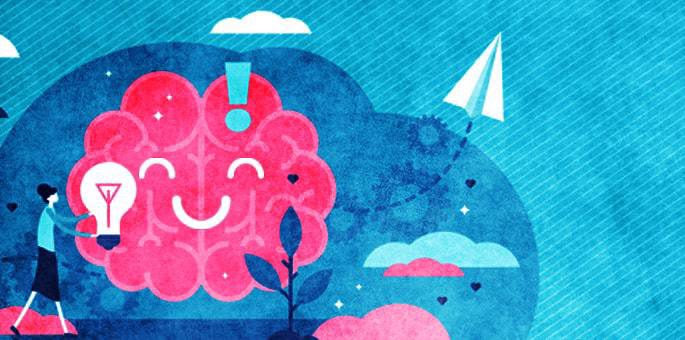
June 16, 2023 | This week we read the parshah of Shelach. Read more about it here.
Henry Ford famously said: "Whether you think you can or you think you can't - you're right." More than our actual life circumstances, how we perceive and react to them is what gauges how happy/successful/fulfilled we are.
There are people with everything they want and more, and are still unhappy. And there are people who lack basic necessities and struggle with various issues - and they walk around as happy as can be.
The portion this week is an early source of this critical idea. On the cusp of entering Israel, the Jews sent spies on a mission to scout the land and report back whether the people were "strong or weak", whether the land was "good or bad", and the soil "fat or lean."
After admitting the positive qualities of the land, the appointed spies reported back to the nation that: "However, the people who inhabit the land are mighty, and the cities are extremely huge and fortified, and there we saw even the offspring of the giant... We are unable to go up against the people, for they are stronger than we." Their lack of faith in G-d’s promise to bring them into the Holy Land convinced the Jews against going to Israel, a mistake that caused the entire nation to wander the desert for 40 years as a consequence.
A simple reading of the text seems to suggest that they carried out their mission perfectly. They did exactly what was asked of them, and provided an honest report. What did they do wrong?
They may have thought they were reporting honestly, but they had a preconceived bias that slanted their perception. This bias led them to notice the negative aspects of Israel and downplay the positive. They let this slip when they said: "There we saw the giants, the sons of Anak, descended from the giants. In our eyes, we seemed like grasshoppers, and so we were in their eyes."
Commentaries explain that their two statements are linked. Because they saw themselves as weak (like grasshoppers), they were actually seen by others that way. Because they felt an inferiority, they were regarded as inferior. In other words, they were not blamed for their actual report, but for the lack of faith in themselves and in G-d that caused them to see it that way.
We can choose to see our lives as miserable and we'll find plenty of 'proofs' to back that up, or we can choose to notice all the blessings we have and appreciate how wonderful our lives are. Let's choose positivity.
Shabbat Shalom!
Rabbi Menashe
P.S. If you are looking for a great book on this topic that can empower you to live more positively, I recommend Positivity Bias. It explores the Rebbe’s extreme positivity that expressed itself in his personal and public life, and serves as an empowering resource in investing that positive energy in our lives.
Remembering Miriam & Cancel Culture

June 9, 2023 | This week we read the parshah of Baha’alotecha. Read more about it here.
There are only a handful of Biblical episodes that Torah explicitly asks us to remember. There are the obvious big ones: the Exodus from Egypt, the revelation at Sinai, the sin of the Golden Calf, and a few others. The exact list is disputed - there are anywhere between 4 and 10 items - and according to some authorities we are supposed to mention them daily.
One of the surprising inclusions is an episode from this week's Parshah: Miriam and Aharon - Moses’ siblings - talk negatively about him behind his back. Despite Miriam's position as a community leader and a prophetess, she is held accountable for her divisive speech and punished with Tzara’at, a paranormal skin affliction reserved for those who talk negatively about others.
In Deuteronomy we are reminded of this incident and told (24:9): “Remember what the L‑rd, your G‑d, did to Miriam on the way, when you went out of Egypt.” Jews across the generations are to remember what happened to Miriam in response to her gossip. Why is this minor incident singled out to be mentioned daily by Jews throughout history? In what way is it more significant than any other anecdote in Torah?
Some see this as a powerful lesson on how careful we need to be when talking about others - even the prophetess Miriam isn't let off the hook for it. Others read it as a message that no one is above the law and even leaders are held accountable for their mistakes.
I think there's one more layer to this story.During Miriam’s bout of Tzara'at the Jews stopped traveling out of respect for her. Despite the fact that she was outed publicly (by G-d!) and held responsible for her insensitive words, she retained her honor. She was temporarily disgraced but still respected.Miriam had given so much to the Jewish people. It was she who watched over baby Moshe as he floated on the Nile. She gave the Jewish women their voice to praise G-d after the sea split. The water that they drank in the desert miraculously poured from a rock in her merit. She was a righteous leader and visionary prophetess. Her mistake would not be overlooked because of her revered status, but it also wouldn't erase her entire reputation.
Maybe this balance is the lesson that Torah wants us to constantly be reminded of: It is so easy to judge someone based on their worst moment and destroy them for an honest mistake in judgment. It is equally tempting to disregard the mistakes of those that we love and revere. The story of Miriam teaches us the ideal balance: People - especially leaders - have to be held accountable for their insensitive behavior and words, even if their intentions are pure. But we shouldn't always be so quick to cancel people or strip them of all of their dignity because of one mistake. In many cases, someone who messes up can still be respected and, after a period of healing, regain their trust and authority.Shabbat Shalom,
Rabbi Menashe
Increase Your Blessings
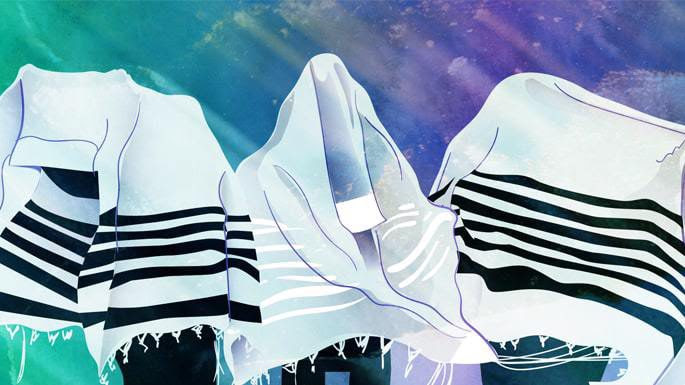
June 2, 2023 | This week we read the parshah of Naso. Read more about it here.
If you've attended prayer services on the Festivals, you've probably witnessed Birchat Kohanim - the priestly blessing.
It is a magical experience: the community cover themselves under a Tallis as the Kohanim stand at the front, hands held high in a special formation (which was Leonard Nimoy's inspiration for his character’s (Spock) Vulcan greeting in Star Trek), to bless the congregation using the Biblical text. The blessing is often accompanied by a stirring song that highlights the sacredness of the moment.
The text used today is the exact formula taught by G-d to the original Kohanim, intimating that the priests are but messengers of G-d. During those powerful moments in the synagogue, the Kohen serves as the conduit for G-d's majestic and infinite blessings. Just like they were selected to be the representatives of the Jewish people in the service of G-d, the Kohanim were chosen to be G-d's representative in the blessing of the people.
It's such a beautiful practice that it's a shame we don't do it more often. Which is interesting, because if you look at the Mitzvah as recorded in Torah, it is the Priests’ job to bless the Jews every day. Yet, outside of Israel, the Jewish community has cast aside this special practice and reserved it for a few days a year, the Festivals (besides for select communities that still do it every day). Why would the Rabbis uproot such a poignant and moving ritual, and rob the Priests of their privilege and duty?
One reason given for this societal development is profound and carries an important message for us.
Blessings are not just a string of words. They are channels of a Divine energy that can have an impact on reality. To bless and be blessed is to open your heart and make space to connect with divine source of blessings to effect this metaphysical change.
That deep and transcendent experience, said the Rabbis, can only be achieved through joy. When you are stressed, busy, or unhappy, you get stuck inside yourself and in the realities of the moment which doesn't allow the blessings to flow. Only when you're happy, is your mind and heart open to the transformative blessing energy.
When Jews became assimilated into wider society, people were too caught up with life to consistently have a free and happy mindset. The pressures of work and family, finances and deadlines, responsibilities and relationships, didn't allow the for the state of mind to experience the open-hearted joy necessary for blessings.
The Priestly blessings couldn't function anymore on a daily basis and became reserved for unique times of joy. The Festivals, days when we escape from the workweek and celebrate life, were the perfect time for them. The spirit of joy and happiness was fertile ground for the blessings to take root.
We can all use blessings in our life - for health, finances, relationships, and many other things. We pray daily that G-d gifts us with these blessings. We can ask for all the blessings in the world, but it's up to us to create the proper environment for the blessings to manifest.
We have to make space in our life to accept these blessings. And we do that by being full of joy. Open your heart and doors will open for you.
Shabbat Shalom,
Rabbi Menashe
It’s YOUR day!
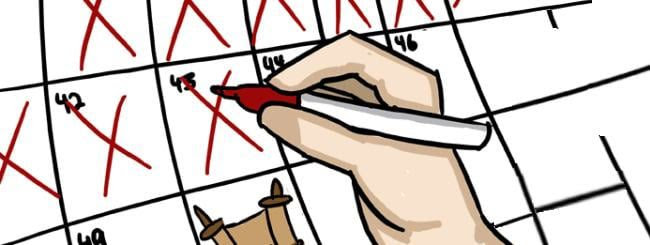
May 26, 2023 | This week we read a special reading for Shavuot. Read more about it here.
Here’s a little challenge. Go through the calendar and mark off special days of celebration that you can’t afford to miss. How many are there?
There’s your birthday. If you’re married, your anniversary and your spouse’s birthday. Maybe a yahrziet of a loved one. Children’s birthdays.
Are there others?
Our lives are filled with momentous occasions, but not all of them get marked in ink on the calendar. It’s really only the life-altering moments. The moments that shaped who we are. The dates that gave us our identities.
I have one more date - that fits the bill - for you to add. And it begins tonight. Shavuot The 6th-7th of Sivan on the Jewish calendar. May 26-27 this year.
Notice, I am not suggesting Rosh Hashanah and Yom Kippur. I’m not telling you to mark down Passover or Sukkot. Because Shavuot is different. It isn’t just a Jewish holiday. It is your day. The date that gave birth to your identity and formed you. Like another birthday.
When our ancestors camped at the foot of Sinai, they experienced something that changed the course of history. They became the Jewish nation and received unparalleled Divine wisdom and values that would shape society for the entire world. Their lives were invested with meaning and purpose. The Jewish story, that you are an indispensable part of, was born.
But it isn’t only the global impact of Shavuot that is noteworthy.
If you take a close look at the 10 Commandments, you’ll notice that they are written in the singular: I am the L-rd, your (singular) G-d. The Midrash notes that every Jew present felt as if G-d was talking directly to them. Only to them. It was a moment of personal transformation. A moment of rebirth. A moment that shaped their personal identity.
This isn’t just a story of 3000 years ago. The Midrash also teaches that all the souls of future generations of Jews were present at Sinai. We also heard G-d address us. Personally. Judaism is a deep part of our identity and invests each of our lives with inner satisfaction and profound purpose.
If you identify as Jewish, Shavuot is your day. If you take pride in the Jewish values that shaped society - like social responsibility, respect for human life, equality, and purpose - Shavuot is your day. If Judaism is important to you, Shavuot is your day.
So, if you haven’t yet, mark tomorrow and Shabbat in your calendar. And celebrate it. Celebrate it with hearing the Torah reading that reenacts the 10 Commandments. Celebrate with cheesecake, ice cream and blintzes. And of course, you’re invited to celebrate it with us at Dirah, where we’ll have all of that and more.
Chag Sameach,
Rabbi Menashe
A Gift of 38 Million Dollars
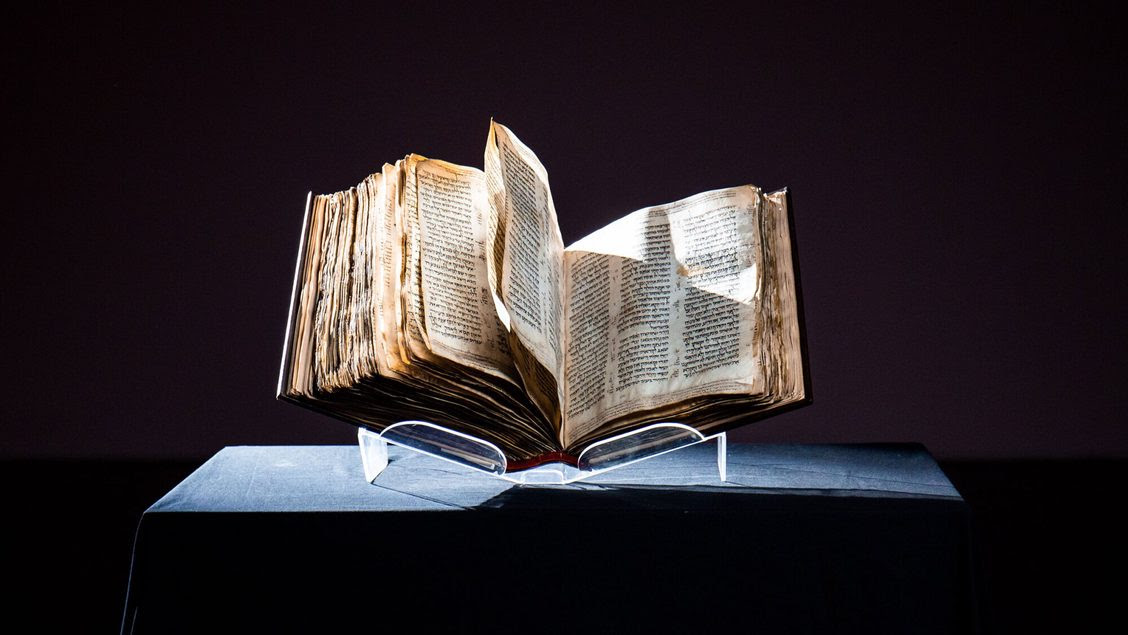
May 19, 2023 | This week we read the Parshah of Bamidbar. Read more about it here.
Someone bought you a $38 million gift this week!
The most valuable book ever sold at auction was snatched up this week at Sotheby’s for a record breaking sum of over $38M. And guess what that book was? A copy of the Torah!
The Codex Sassoon - a leatherbound manuscript handwritten on 792 pages of sheepskin - has been dated to the 9th or 10th century and is the oldest existing near-complete copy of the Torah.
It was bought by Alfred Moses, the former US Ambassador to Romania, on behalf of the Museum of the Jewish People in Tel Aviv. What inspired him to fork out such a huge sum of money for the book?
“The Hebrew Bible is the most influential book in history and constitutes the bedrock of Western civilization. I rejoice in knowing it belongs to the Jewish people,” Moses said in a statement. “It was my mission, realizing the historic significance of Codex Sassoon, to see that it resides in a place with global access to all people.”
This work - a book of Torah - belongs to the Jewish people. It belongs to you. And Alfred Moses wanted you to have it.
Over 3000 years ago, a different Moses had the same idea when he ascended Mt Sinai. The Midrash explains why the Torah was given in the wilderness - in middle of the Sinai desert - instead of in Israel or another civilized place. '“Just as the desert has no owner, so too no individual or group can claim sole ownership over the Torah. It is the possession of every Jew.”
The Torah is our shared heritage and each of us have unique claim to it. It is no more the rabbi’s than it is the layperson’s. It doesn’t belong to the scholar any more than the illiterate. The Torah is referred to as a collective inheritance. Just like someone’s estate goes to their children no matter how old, smart or worthy they are, the Torah is our birthright and is ours whether or not we have worked for it.
But it isn’t enough to have it as an inheritance - we should show up and claim ownership. Another Midrash notes that every Jew had to be present at Sinai for G-d to give the Torah. If even one person - man, woman or child - would have been missing, G-d would not have shared with us His guidebook for life.
As much as Torah belongs to all of us collectively, it also belongs to each of us individually. As valuable as the 1100 year old Codex is to the Jewish people, your copy of the Torah that you have at home or the one on your screen is just as important. You don’t have to spend $38M but you have to invest time and effort.
Next week we celebrate Shavuot, the anniversary of the giving of the Torah at Sinai. Of all the Jewish holidays, Shavuot is one that we should all feel a reason to celebrate. It commemorates a moment that formed the Jewish people and shaped history. But more importantly, it commemorates a moment that is personal to each one of us. It is when you and I received a priceless gift from G-d.
We’ll be celebrating Shavuot next Friday afternoon, May 26, with a reading of the 10 Commandments (with an ice cream bar and dairy dinner), reenacting the historic moment at Sinai. And just like the first time around, we hope every Jew can be there to accept their gift. I hope you can be there to accept your gift. If you are going to be in town next Friday, please join us for this special celebration.
Shabbat Shalom,
Rabbi Menashe
Because I Said So

May 12, 2023 |This week we read the Parshahs of Behar & Bechukotai. Read more about them here.
My kids don't like when I tell them to do something "because I said so." They are willing to listen (most of the time) but want to know why. I don't blame them; I don't like being told what to do either.
Making sense of life and wanting to understand everything is a natural human instinct. And it's virtuous. But it also highlights a shortcoming. We like knowing the reason for things because we want to be in control. We're afraid of letting go and putting faith in others. We are nervous to make ourselves vulnerable and open to the unknown.
But there's value in blindly following someone you love or respect. Relationships are not built on rational understanding but on commitment and trust. When you step away from yourself, you make room for someone else.
When my children do what I've asked them to because they understand why, they remain in control. They are doing something they understand; I have just helped them reach that understanding. But if they are doing it just because I said so, then they're making space in their lives for me. They're experiencing the deep loving relationship that we share.
So reverting to "because I said so" is not just lazy parenting (although it often can be), it can be a way of communicating a profound level of your relationship. It's creating a space for a connection that transcends intelligence, in hope that your child reciprocates and accepts.
Judaism is full of rules. Torah's laws and values govern almost every area of life. We appreciate the depth and brilliance of some of the Mitzvahs and accept them wholeheartedly. But then there are some that seem to stifle us. They seem irrational, outdated or plain senseless.
The different types of Mitzvahs have different names and the irrational ones are called Chukim. Interestingly, the word chukim is related to the Hebrew word for engraved - chakuk. This is not by chance. Performing a Mitzvah that transcends rationality shows that our relationship with G-d is etched deep in our hearts. Going beyond our own reason for G-d's sake is the deepest expression of our relationship with Him.
If you view your Judaism only as a collection of moral laws and rituals, than the super-rational laws will be challenging. But if your Judaism is a relationship with G-d - which it should be - than the super-rational laws are the most precious and profound.
Shabbat Shalom,
Rabbi Menashe
A Second Chance
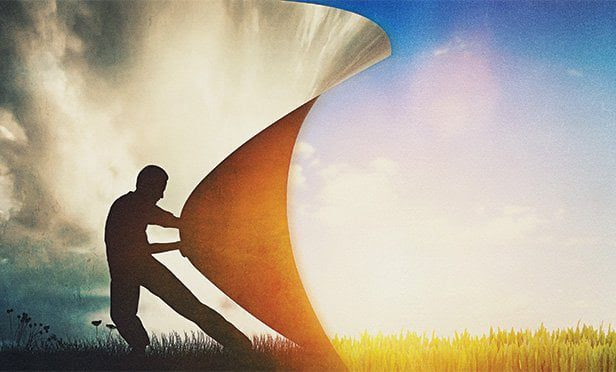
May 5, 2023 | This week we read the Parshah of Emor. Read more about it here.
Happy Passover!
No, I'm not a month off schedule. Nor am I losing my mind. Today is a second Passover - Pesach Sheni - when Jews who missed celebrating Passover in Temple times had a second chance at it.
Here's the origin story of this day: In the first year after the Exodus there was a group of people who were ritually impure and unable to participate in the first anniversary Pesach offering. They approached Moses and complained that it wasn't fair for them to miss out. Moses conferred with G-d, and G-d informed Moshe and the Jewish nation about a new Holiday, Pesach Sheni, when whoever couldn't participate in the Pesach celebration can make up for it.
Was this Holiday part of the original script for Judaism? Even Moses - who learned the whole Torah from G-d at Sinai - didn't know about it! Did G-d just decide to add a new element to Judaism on the spot?
There's a beautiful Chassidic teaching that explains this:
Our relationship with G-d exists on a number of levels. There is the contractual relationship we have with G-d. It is the ideal that G-d wants from the Jewish people and from humanity; this is outlined in Torah - a manual for living on the straight and narrow. From the perspective of Torah, there is no alternative to obedience. If someone breaks a Torah precept, there's no recourse. Like a business contract - if one side doesn't live up to their side of the deal they've broken the contract and the deal falls through.
But there's another dimension to our connection to G-d. We have a personal relationship with the Divine, like a child to a parent. Yes, the child should respect their parent and follow their wishes, but their relationship is inherent and not dependent on that behavior. Our relationship with G-d transcends Torah, and if we can access that depth of ourselves, and by extension that depth of our connection with the Divine, everything can be forgiven. From that vantage point of our personal relationship, everything is redefined and we are always given another chance.
The group of Jews who came to Moses knew that there was no room within Torah to allow them to participate in the Pesach offering - they were ritually impure. From the contractual perspective they were off the hook. They would have to wait until the next Passover.
But their souls felt incomplete. They had a deep longing for the spiritual experience of the sacrifice. Their complaint to Moses was an expression of their transcendent connection with G-d; it overrode the Torah relationship dynamic and elicited a new opportunity for them to connect with G-d. Their desire to celebrate Passover opened a new channel that formed a new Holiday on the Jewish calendar for eternity.
We can learn from them in our lives:
If something happened that makes us feel distant from G-d or from our loved ones and friends, it can often feel like there's no way back. Trust has been broken and the relationships compromised. Or when we feel distant from ourselves because of things that we've been through, we feel broken and lost. Logically, the situation doesn't allow us to connect.
But if we can find within ourselves our core identity, a point of self or relationship that is essential and can't be compromised, we can see ourselves - and connect with others - in a new light. When we are sincere and vulnerable, we discover a place within ourselves that leads to renewal and we always have a second chance.
So today is a celebration of second chances. If you've lost faith in yourself, give yourself another chance. If a relationship has soured, give it another chance. And if you feel distant from G-d, give your relationship with Him another chance. Because He is always open for another chance.
Shabbat Shalom,
Rabbi Menashe
3 Tips on Loving Others
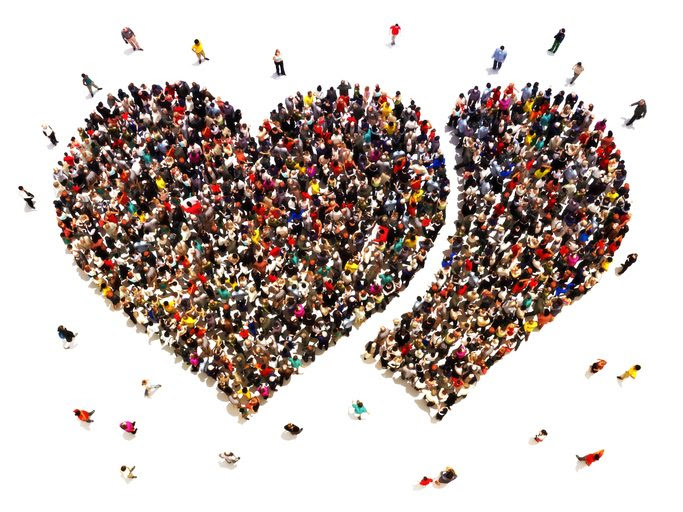
April 28, 2023 | This week we read the Parshahs of Acharei Mot & Kedoshim. Read more about them here.
There are some people that we naturally gravitate towards and like. And then there are people that just make us nervous. We are each unique and there are going to be people that rub us the wrong way. Yet Judaism encourages us to love every single human being. Not just tolerate, or even like - but love!
"Love your fellow as yourself," the famous dictum from this week's Torah reading, is easier said than done. Rabbi Akiva famously said that this was the most important principle in the whole Torah, but he didn’t explain how to do it. How can we actually respect and feel lovingly towards every human being?
It turns out that this verse isn't only an instruction to love others; a close reading shows that it actually also provides tips on how to do so. There are three Hebrew words that shape this most famous Mitzvah - and each word guides us in how to be able to fulfill it.
LOVE - Ve’ahavta
There's an anecdote of a person devouring a tuna steak and saying "I love fish". A wise man overheard this and critiqued him: "If you really loved fish, you would have let it live - you don't love fish, you love yourself!"
The precise meaning of love is vague, but one thing is for sure - real love is selfless. The first step to loving others is to start thinking about what you can give them and not what they can give you. Don’t think about what how they make you feel, but about how you can make them feel. When you approach people with an other-centered mindset, it changes the way you interact.
YOUR FELLOW - Lerei’acha
See in other people the things that you share, not your differences. We may all be so different, but there’s so much we also have in common. Look at another person as a “fellow” - defined by Merriam Webster as "an equal in rank, power, or character." See another person as a human being just like you, a beautiful person created in G-d's image.
AS YOURSELF - Kamocha
If you don't love yourself, you can't love others. Only once you learn to value yourself are you able to value and respect others. People with low self esteem feel judged, and project that by judging others. When you are comfortable in your own skin, you don't look at other people as threatening your existence and you can appreciate them for who they are.
Love. Your fellow. As yourself. If we can all practice this, we'll have a much better world.
Shabbat Shalom,
Rabbi Menashe
Be Judgmental!

April 21, 2023 | This week we read the Parshahs of Tazriah and Metzorah. Read more about them here.
In this week's Torah reading we learn an important lesson about judging others.
We're generally taught not to judge other people. "Don't be judgmental." We hear that all the time. But that's virtually impossible. We are human beings and we naturally judge others and jump to conclusions. Life would be too difficult to navigate otherwise.
The Parshah gives an alternative approach. We read about the metaphysical skin disease, Tzara'at, that would afflict a person who spoke negatively about others. When a person was diagnosed with this condition, they were considered ritually impure and had to be quarantined and spend time alone outside the city until they healed.
An interesting detail of this law is that only a Kohen (priest) could diagnose this condition. The greatest rabbi and expert couldn't pronounce this person impure while even the most unlearned Kohen could (after consulting the expert). This is unique in Jewish law and the reason for it is profound.
There are many other ritual impurities in Jewish tradition, but none quite as severe as this. Tzara'at is the only impurity and warranted complete isolation. The reason is simple: this person engaged in anti-social behavior. Instead of allowing them to erode the fabric of community, they were to be excluded from society until they can be socially rehabilitated.
But no matter the rationale, this was a severe punishment. And Torah was sensitive to the plight of this individual. That is why only a Kohen was empowered with this diagnosis.
The Kohanim are lovers of the people. The first priest Aharon is said to have "loved peace, chased peace and loved every person (Ethics of Our Fathers 1:13)." Even today, the priests are enjoined to bless the congregation with love - a responsibility they fulfill during the prayer services on Festivals (and in daily prayers in Jerusalem).
Only someone coming from a place of love could be trusted to judge the person with Tzara'at. Only someone who cared for the individual was allowed to subject them to the harsh treatment of social isolation.
This past Shabbat, as I was studying a chapter of Ethics of Our Fathers, I realized that Judaism actually encourages us to judge others. The text reads: "Rabbi Yehoshua ben Perachiah would say: appoint a mentor, acquire a friend and judge everyone favorably (Ethics of Our Fathers 1:7)."
We most definitely should judge people, but we should judge them favorably. Instead of distancing ourselves from other people and remaining indifferent to them, we are encouraged to actively judge them from a place of love and concern. Instead of withholding judgement and remaining neutral, we should assume the best and give people the benefit of the doubt.
This is true of judging random strangers online and true of judging our spouses and children too. There's room for criticism and discipline, but only if it is motivated by love and concern. It is also true of judging ourselves. It is ok to be self-critical but only when it comes from a place of self-love and a desire for growth. If it is just negative self-talk then it is unwarranted and unhealthy.
So next time you find yourself judging someone, check yourself to see where it is coming from. Only allow yourself to judge them from a place of love, care and concern. That judgement is favorable to them and to yourself. Otherwise you have no right to judge.
Shabbat Shalom,
Rabbi Menashe
Incremental Growth
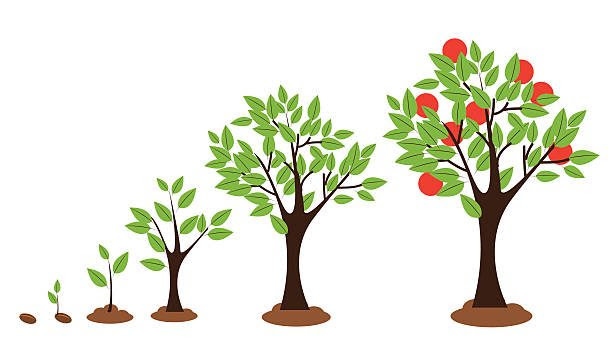
April 14, 2023 | This week is Shabbat Zachor and we read the Parshah of Shemini.
i
in
inc
incre
increm
increme
incremen
increment
incrementa
incremental
incremental g
incremental gr
incremental gro
incremental grow
incremental growt
incremental growth
We had a really beautiful Passover, thank G-d. And I hope you did too. But now it is over. We are back to normal life and all too quickly the beauty of Passover fades into memory.
Passover is a radical divergence from routine. It is an island in time that stands apart from our regular lives. We deep clean our homes, stop eating normally and dive into three-thousand-odd years of history. In the moment it is beautiful and moving. But as soon as the curtains close, life goes back to normal and we go back to being our normal selves. The injection of faith wears off.
That is how it was at the first Passover too. The Jews experienced transcendent miracles that unraveled the very fabric of existence. In those moments they were moved by the Divine experienced and overwhelmed with love and awe of G-d. But the experiences didn’t change them. After they successfully crossed the Sea and life went back to normal, they quickly reverted to their regular selves - complaining ungratefully and dealing with crises of faith.
The Exodus happened to them and wasn’t a result of their efforts. It was an external force - G-d - that was pulling the strings and they were passive actors. The world around them changed but they didn’t.
That’s why they didn’t receive the Torah right away. For the Jews to become a nation under G-d and be ready to experience the Revelation at Sinai, they needed to grow and develop. They needed to be more spiritually mature. That takes time and work. Fast-tracked growth fades easily. Real growth is slow and incremental.
In Jewish mystical tradition, the human psyche is divided into 7 character modes or categories of emotional response. The inner work that the Jews needed, was to work through and nurture these 7 areas of the inner self. That’s why they stood at the foot at Sinai to receive the Torah exactly 7 weeks after the Exodus.
To break it down even further, each of these 7 character modes can be divided further into 7 - and each day of each week was an opportunity to work through a specific area of their character and behavior. Shavuot - the giving of the Torah - was the culmination of Jews’ slow and steady growth.
We mirror this effort every year, and between Passover and Shavuot we count the Omer. We count 49 days - 7 weeks of 7 days each - to prepare ourselves for Shavuot when we relive the giving of the Torah. Each day of this count we pick one aspect of our emotional capacity to grow and develop. It is a small movement but it adds up.
If Pesach is a temporary peak and escape from the stresses of life, the Omer period is a time for steady, incremental growth, within our daily lives. It may not seem like much, and you may not even sense any growth, but the small steps forward eventually add up to a giant leap. As the beginning of this message shows: the letter “i” is meaningless, but one letter turns into two, then three and eventually an entire concept is illustrated - “incremental growth.”
As we emerge from the Passover break back into the routine of life, let’s use each day to grow a little and work on one aspect of our character. This steady incremental growth will help us develop and grow into better versions of ourselves.
Shabbat Shalom,
Rabbi Menashe
P.S. There’s a custom to study Pirkei Avot/Ethics of Our Fathers during this time period - to reflect on our timeless tradition of ethics and learn to apply them to our modern living. You can read the text and teachings of Ethics of our Father here.
Telling Your Own Passover Story

April 7, 2023 | This week we read special readings for Passover. Read more about it here
The Smith's were proud of their family tradition and decided to compile a family history as a legacy for their children and grandchildren. Their only problem was how to write about great-uncle George, who was executed in the electric chair. They finally hired an experienced author who wrote:
"Great-uncle George occupied a chair of applied electronics at an important government institution, was attached to his position by the strongest of ties, and his death came as a great shock."
A story is more than a collection of facts, it is a narrative that is weaved together from those facts.
Our lives are stories, and it follows that the way we perceive our past shapes who we are in the present. We are not defined by what we've been through or what we have done, but by the way we look at those things and the narrative that we create with them. We can't change the past, but we can change the way we tell it - and that makes all the difference.
Interestingly, this is a subtle theme in the Seder. As you read through the text of the Haggadah this evening you’ll notice that it’s actually hard to find the Exodus story. There’s a lot of commentary, introductions, and analysis - but the basic storyline isn’t clear.
And even the story that we do tell doesn't come from the original Exodus story in the Torah. The Haggadah tells the story from a different set of verses - the script that a person would say when they brought their Bikurim, first fruit offering, to the Temple. Part of the ritual was to briefly recount the origins of Jewish history that led the Jews to the land of Israel where they enjoy its wonderful fruits. This short speech includes 4 sentences on the slavery and liberation from Egypt - and those form the basis of the retelling of the story in the Haggadah.
There's a profound reason why it was designed this way. Leaving Egypt is not only a moment of history but a national story that shaped the Jewish nation. A narrative that shapes each of our Jewish identities. It is our story. On Passover, we don't repeat the version of the story as it happened, but the way we experience it. We can’t read the story the way it is told by others. Each of us have to tell the story ourselves.
The Haggadah provides the framework, but every family that sits at the Seder has to recount the Jewish origin story as they experience it. That is why the base text is the one Jews would tell later when they reached the promised land. The details may sound the same every year in every home, but it's a whole different story. What leaving Egypt means to me is different to what it means to you. The story I will tell tonight will be different to the one you do. And that is the brilliance of the Haggadah.
What story will you tell this evening? What relevance do you find in the ancient story of the Exodus? What does it mean to you to be freed from your own Egypt - the things that hold you back from growth and spiritual advancement?
Wishing you a meaningful and joyous Passover - a zissen Pesach!
Rabbi Menashe Wolf
Gratitude: A Messianic Moment
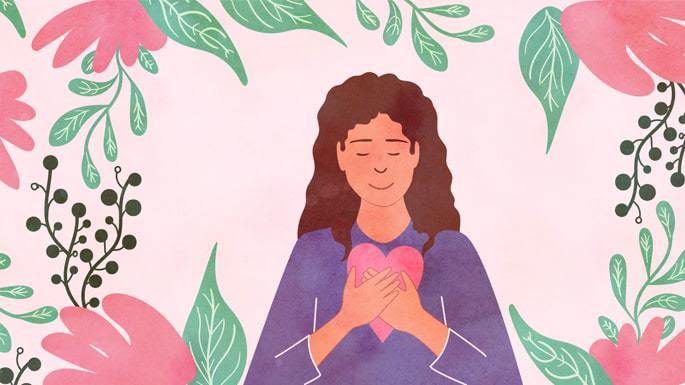
March 31, 2023 | Parshat of Ki Tisa & a special reading of Tzav
Gratitude is more than just a tool to make you feel better. It can have profound cosmic impact and can elevate you beyond the tensions and turmoil of life.
The Torah reading this week continues to elaborate on the sacrificial offerings in the Temple. We are introduced to the Thanksgiving offering that was offered in gratitude to G-d. This offering was unique: we are told that in the Messianic era when the Temple will be rebuilt, all personal sacrifices will cease except for the Thanksgiving offering.
The sacrifices were an attempt to move closer to G-d from a place of imperfection. The animal represented an inner animal - the destructive tendencies of ego. Offering an animal on the altar symbolized an effort to sacrifice a person's ego and pride to connect with G-d.
The Thanksgiving offering was different. Giving thanks is an expression of humility. The Hebrew word for thanksgiving, Hoda'a, also means submission or admitting. To thank someone is to escape the selfish human condition and recognize the other. When a person thanks G-d for the blessings in their life, they have escaped from their ego and transcended their inner animal. They have accepted the divine hand guiding their life and made peace with it.
When Mashiach comes, the world will be perfected and there won't be any evil, jealousy, and selfish pride. We will no longer be plagued by the inner animal that needs to be sacrificed. We will already be in sync with our purpose and creator. But the Thanksgiving offering will be more relevant than ever, expressing our constant gratitude and validation of G-d's presence in our life.
This Sunday - 11 Nissan on the Jewish calendar - marks 121 years since the birth of the Rebbe, Rabbi Menachem M. Schneerson. The Rebbe was a mentor and spiritual guide to millions around the world, and during his lifetime, he championed more than anyone the realization of this Messianic dream. In his letters, conversations and public talks, he constantly encouraged people to make the utopian vision of the Messianic era a reality in their lives - one moment at a time.
We haven't yet experienced the realization of the global Messianic redemption and there's still a lot of pain in the world. We struggle with inner imperfections and with outer adversaries. But we can still create personal Messianic moment in our lives. We do this every time we do a Mitzvah. We do this every time we put our needs aside for someone else. And we do this when we are grateful to G-d for our blessings.
When you are stuck in the struggle and focus only on your challenges, they consume you. There is no room for joy, as your problems take over your every thought. However, if you can find a way to focus on the blessings in your life and feel grateful for them you can rise above the troubles that rage inside you, sense G-d's presence and feel joy, a taste of Mashiach. The humility and selflessness that you feel in that moment dissolves all negativity and invites a powerful Divine force into your life.
For a few minutes every day think about how much you have to be thankful for. Offer a prayer of gratitude to G-d for the blessings in your life. Thank those around you for being there. For those few minutes, your troubles fade away and you will experience the peace and tranquility of Mashiach.
The morning liturgy has a series of blessings thanking G-d for the simple blessings in life that is a powerful reflection on gratitude. I suggest you say those, and then add your own list of things you're grateful for. By offering thanks for the good in our life, we can escape the chaos, and bring a Messianic consciousness into the world.
As we approach Passover, the celebration of our nation's first redemption, may our efforts herald the complete global redemption when the world will collectively experience an awakening - in the words of Maimonides (Laws of Kings 12:5): "In that era there will be neither famine nor war, neither envy nor strife, because good will emanate in abundance.”
Shabbat Shalom,
Menashe Wolf
The Art of Sacrifice
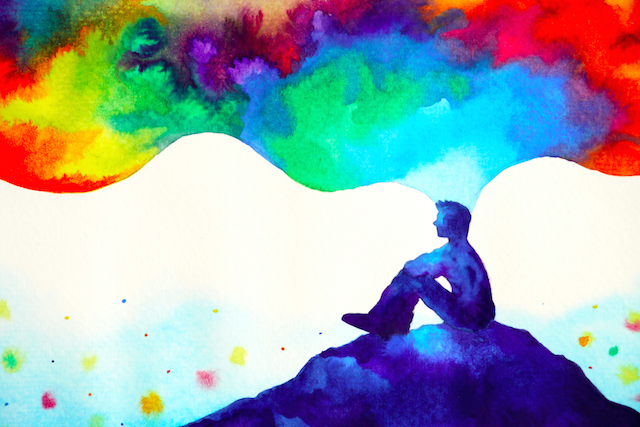
March 24, 2023 | Parshat of Ki Tisa & a special reading of Vayikra
Napoleon said: "Great achievement is usually born of great sacrifice." Any meaningful achievement requires sacrifice. To build relationships, you have to sacrifice your own needs. To chase your dreams, you have to make sacrifices. To get in shape, you have to sacrifice your comforts.
But not all sacrifices are worthwhile.
We often look back with regrets about the sacrifices we made. The things we missed out on. The meaningful opportunities we squandered for the sake of other, less important, things. Too often people sacrifice important things for lesser meaningful things that seem urgent. How can we know which things are worth sacrificing and which are worth sacrificing for?
This week we begin the third book of the Torah, Vayikra, where we read of a different kind of sacrifice: the detailed laws of the animal sacrifices offered in the Temple.
Torah's teachings are eternal, and although the particulars of the offerings aren't relevant today, they teach us important lessons about when to make sacrifices in our lives and what to sacrifice.
From the many details of the Temple sacrifices, here are two that can help us navigate the choices we make in life: Firstly, Jewish ritual sacrifices were for animals, not humans. Secondly, the Hebrew word for sacrifice is Korban, which literally means to come close.
These details provide two criteria to determine whether our sacrifices are healthy ones that will propel us further in life or whether they will result in an unhealthy suppression of self.
"What are you sacrificing?" We are a mix of ethereal human instincts and ephemeral animal instincts. We are torn between an altruistic self that is driven by meaning and purpose and our ego that is selfish and pleasure driven. A healthy sacrifice is when you sacrifice something that stems from your base "animal" drives. Pursuing something that will force you to sacrifice your values, or compromise your "human"-driven dreams and hopes, is an unhealthy sacrifice.
Make sacrifices on things that are driven by pleasure or ego, things that will bring you short-term enjoyment, honor, or the like.
"Where is the sacrifice going to get you?" The sacrifices were not just ritual killings, they were an exercise in becoming close to G-d. We need to always look to the end result of our pursuits to see whether they warrant sacrificing for. Not every goal is important enough to make sacrifices for. Only make sacrifices if the result will lead you closer to the things that you hold dear.
Make sacrifices that will lead you to be a better person. Make sacrifices that will help you build relationships and be closer to the people you love. Make sacrifices that will put you on a path of life of meaning and purpose. Make sacrifices that will bring you closer to G-d.
Shabbat Shalom,
Rabbi Menashe
The Prayer On The Corner of the Page
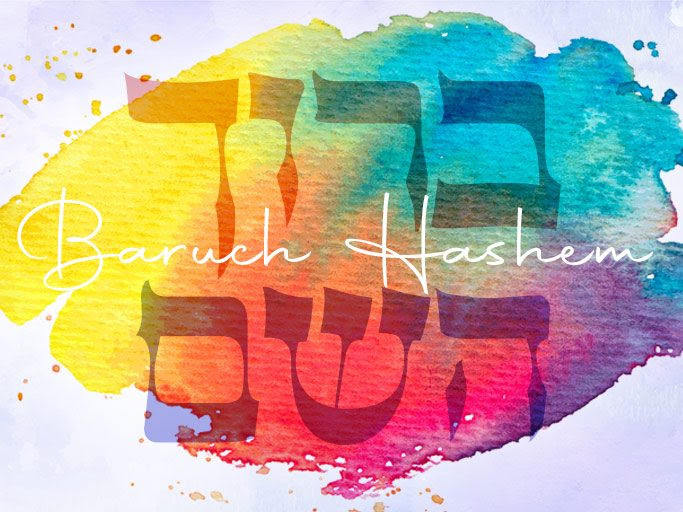
March 17, 2023 | This week we read the Parshah of Vayakhel & Pekudei a special reading of Hachodesh
I don't know if you notice it, but on almost every letter that I write and flyer that Dirah publishes there are a couple of letters in the top corner: either BH or BSD.
This is not a branding signature or barcode, but a prayer code. BH stands for "Baruch Hashem / Blessed is G-d" and BSD is an acronym for the Aramaic words "B'Siyata Deshmaya / with the help of Heaven."
I’m not the only one that does this. It is a pretty wide-spread Jewish tradition write this at the top corner of letters. The significance of those 2 or 3 letters appearing on documents, books, and signs is profound, and stems from this week's Torah portion.
Success is a funny thing. We are always working towards it, but we can never be certain we'll achieve it. It requires a lot of effort, but all the effort in the world doesn't guarantee it. No matter how talented we are, no matter what resources we employ, and no matter how hard we work, we can't control the outcome of our labor. In every project and endeavor, our efforts only create the right space, and we hope it gets filled with success.
This is the role of prayer. Faith and prayer don't absolve us from making our best effort, but they ask G-d to bless our efforts with success.
In this week's Torah reading, the Jews finally completed the building of the Mishkan. After months of construction, hundreds of thousands of volunteers, and a lot of money invested, the home for G-d was ready. The stage was set, but the act hadn't started. Everything was perfectly in place, but the Divine energy wasn't flowing through the space.
Moses realized that the Jews' efforts on their own won't necessarily bring the Divine presence to rest in the Temple. They needed to be blessed for their project to achieve its ultimate success. So he blessed the people: "May it be (God's) will that His Holy Presence (Shechinah) rests upon the work of your hands and let the delightfulness of the Lord our God be upon us." His prayer was successful and the Divine presence settled into the Mishkan.
Writing BH or BSD is an acknowledgment that success is ultimately in G-d's hands. It expresses that when we are successful, we acknowledge that it was a blessing from heaven.
Keep this in mind when you work hard in your office, when you invest energy into parenting at home, and when you do anything else. Realize that your best efforts are only the first part of the equation. We need the blessings from above for our hopes to be realized.
May we all be blessed with success in all areas of life!
Shabbat Shalom,
Rabbi Menashe
Don’t Crash Land
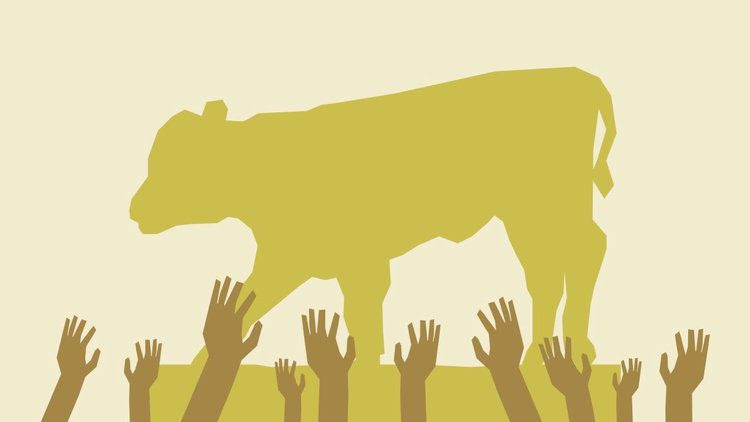
March 10, 2023 | Parshat of Ki Tisa & a special reading of Parah
The hard part of having an amazing experience is dealing with its aftermath.
Often when we have a transcendent moment or experience we come crashing down afterwards. We have a hard time integrating what we gained back into our day-to-day routine. We crave to experience that sensation again and are left with an emptiness in its wake.
This is what happened with the Jewish people after the Revelation at Sinai. They had such an intense spiritual experience and within a few weeks they did the unthinkable and served the golden calf. How could they do something so blasphemous after their personal experience of the Divine?
It was precisely because of their peak experience that they ended up falling so low in creating a false God. They were so moved by the revelation that they were left craving to have that same experience again. So they tried creating it themselves with an artificial God.
I am still on a high from an amazing Purim. Not a substance-induced high, but an authentic spiritual, emotional and mental high. It was incredible to come together as a community and to see so many people genuinely happy and celebrating together; from the Megillah at Dirah on Monday with standing room only to the incredible community celebration at Bison & Bourbon on Tuesday with over 400 people, the communal energy and palpable joy was transcendent. Thank you to everyone that joined and made this Purim so special.
But now Purim is over, and the challenge is to channel the immense joy into a positive flow of inspiration. We need to avoid the mistake our ancestors made in the desert in the aftermath of their spiritual high. How can we do that?
Perhaps we can find an answer from the context that Torah situates the story of the Golden Calf in. The story is told in middle of the narrative about building a Mishkan, the temporary Temple. Between the commandment to build it and the actual construction, Torah interupts with the mistake of the Golden Calf.
I think the message here is profound: Both the Revelation at Sinai and the Temple were defined by a sense of the Divine presence being with the Jews. But there was a fundamental difference between them. Sinai was an inspired moment that swept the Jews off their feet. It happened to them without effort on their part. The Temple required human effort to construct a home for G-d. It was the work of man that created a space for Hashem in their community.
The Jews were wowed by the events at Sinai, but didn’t do anything to harness that energy so it faded and left a void. By situating the golden calf in the Mishkan narrative Torah is telling us that the way to sustain a healthy spiritual enthusiasm is to build a Temple - a space that you carve out for Hashem in your life. If you allow the energy to wash over you and pass, it will fizzle out and leave you wanting. But if you put in effort and build a structure that can maintain it, it will last.
Purim is exciting. Celebrating and dancing with so many Jews is inspiring. But now we have to do something practical in out own lives to house that holy inspiration. We have to construct a Temple: add a Mitzvah, schedule a time for prayer or study, create a permanent space that the enthusiasm can be contained.
Shabbat Shalom,
Rabbi Menashe
G-d is Now-here
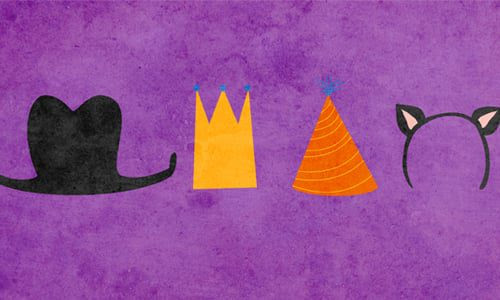
March 3, 2023 | This week is Shabbat Zachor and we read the Parshah of Teetzaveh.
The Purim story is an all-time classic. It has politics, violence, relationship sagas and every other ingredient needed for a great drama. But there's something missing from the script that sets it apart from all other Biblical stories: G-d.
There's absolutely no mention of the divine. G-d doesn't do any miracles, no one asks Him for advice or direction, and there isn't even an explicit mention of the Jews' prayer during this tumultuous time.
Was G-d not present in Persia? Why don't we hear about Him in this story? And how did a political drama - absent any religious overtones - make it into the Biblical canon?To add to this, the rabbis understood the Purim story to be more profound and significant than any other in the Bible. Maimonides writes (Laws of Megillah and Chanukah 2:18) that in the times of Mashiach all of the books of the prophets will be discarded except for Esther. Apparently there's more to this story than what meets the eye.
The Zohar reads G-d into the Megillah, saying that whenever the word King is mentioned in the story it is a reference to the King of Kings, i.e. G-d. But how can we reconcile that with the plain reading of the text?
One of my teachers used to explain this with a metaphor. He'd say that you only feel your limbs when something aches or you have an injury. When everything is healthy, you don't notice your body. Your body is so much a natural part of you that it doesn't register.
G-d isn't absent in the Megillah. The reason that we don't notice Him is because He is ever-present in the story. His presence was so profound that it could not be captured. G-d's involvement was so deep in the Purim narrative that He was not an overlay to the story but the story itself. He wasn't an actor, but the script.
When there's a miracle or divine intervention, it is an injection of the divine to disrupt the natural order. The miraculous stories are inspiring and open our eyes to a transcendent divine reality that can override nature. But in the seemingly regular unfolding of events of the Purim story, nature itself was a divine vehicle. The story helps us appreciate that G-d isn't an outside force, able and willing to intervene in the world when necessary, but the underlying energy of the world itself.G-d isn't mentioned explicitly in the Megillah because the whole story is really about Him. To speak of Him as an individual actor is to diminish His role as the guiding force of all of the actors.
Have you ever felt that G-d was missing from your life? Did you question why there was no overt sign of Him? If you pay close attention, we can see the divine beneath the surface of every part of our lives. Perhaps in the moments of life where He is harder to find, He is there more intimately than ever. So close to you, in fact, that, like your own constant heartbeat, you don't notice Him.
Shabbat Shalom and Happy Purim,
Rabbi Menashe
A Day of Love: We Need Everyone
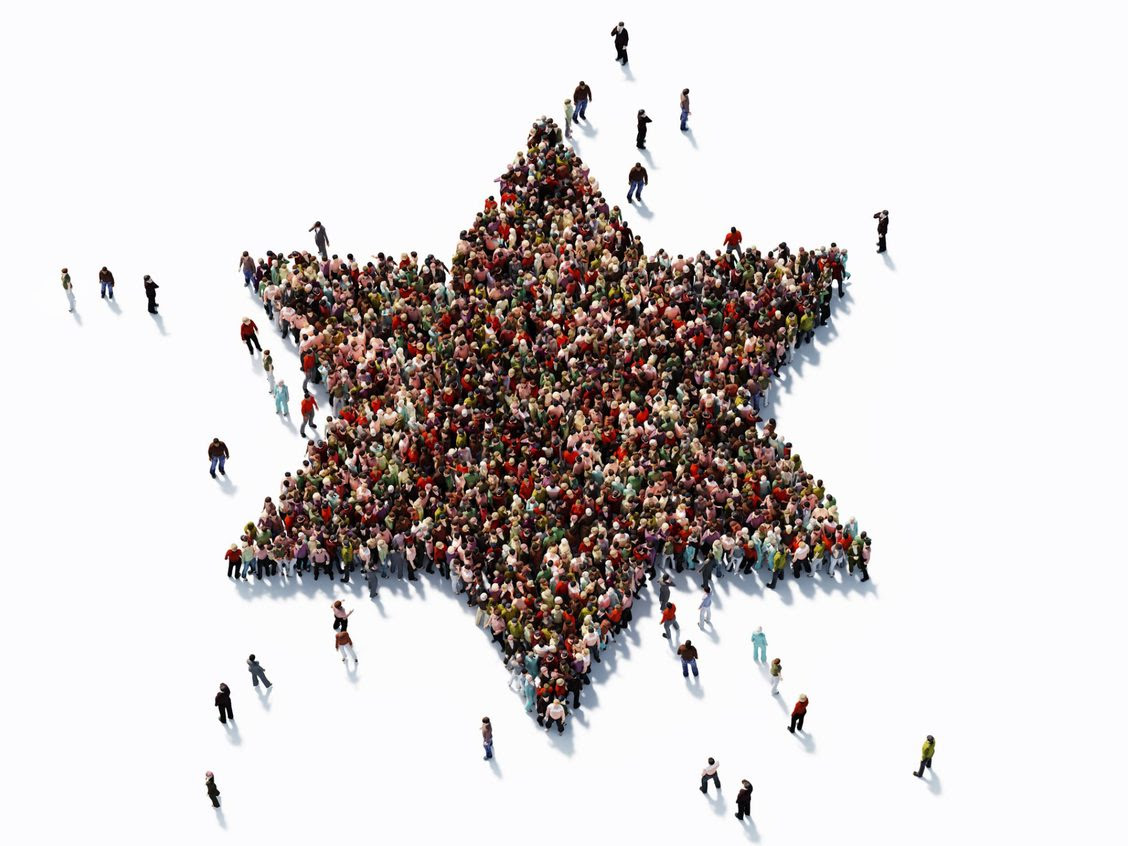
February 24, 2023 | Parshat of Terumah
As you may have heard, there have been calls from alt-right and neo-Nazi groups to call tomorrow a Day of Hate against Jews. I have been in contact with the NYPD and they have assured us that there have been no credible threats and are hopeful that there will be no incidents. Despite that, there will be a heightened police presence over the weekend and we should be vigilant.
As much as I hate to say it, we have something to learn from the Neo-Nazis.
No, I have no sympathy for those hate-filled human beings. But there's something about the Jews that they understand. They don't discriminate between us. In their eyes, there's no difference between a secular Jew and a Chassidic rabbi. They don't divide us by our politics, affiliations, or denominations. To them, we are all the same. We are one people. We are Jews.
In this week's Torah portion, we read of an impressive building project undertaken by the Jewish people in the desert. They put their heads and hands together to build the Mishkan, a portable Temple for G-d.
What was unique about this building project is the sheer amount of people involved. Every Jew alive then - estimated to be a few million - had to participate. Everyone had to donate to the building fund.
Why didn't they select a group of philanthropists instead of enrolling everyone in the project? Couldn't they secure funding from a few foundations?
The Jews weren't just building any building. They were making a home for G-d. They were creating a portal for the divine. They were constructing a sacred space that was going to serve as a source of light for the world.
To construct a finite edifice - with a length, width and height - that can contain the infinite is no ordinary project. The rules of spiritual home building are different from regular building practices. G-d only rests in a place of harmony. Spirituality can only be found in unity. Inspired living can only be achieved in an inclusive environment.
For the physical Mishkan - and later, the Temple in Jerusalem - to be a home for G-d, Moses needed the support of everyone in the community. The slightest hint of exclusivity would have ruined the entire project. If one Jew - no matter their age, gender, wisdom, or skill - would have been left out of the project, the Mishkan structure would have been built and may have been beautiful, but it would not have housed G-d. It would be a home, but a vacant one.
Every one of us is important. We each have a unique role to play in our quest to make this world better. We may look different, behave differently, and not see eye to eye on some pretty big issues - but we are all one people. And we need to work together to create a world where G-d is comfortable. If even one Jew isn't included, we can't complete the project.
To create a spiritual environment we need to include everyone. Lord Rabbi Jonathan Sacks once said of the Rebbe's efforts in the aftermath of the Holocaust: "If the Nazis searched out every Jew in hate, we will search out every Jew in love." If haters unite us in their hate, this Shabbat let's stand tall and reach in together with love.
First of all, as a community, we need to promote kindness, acceptance, and respect. Secondly, let's share our Jewish experiences and opportunities with others - invite someone to celebrate Shabbat with you, join a friend in helping a worthy cause, or schlep a neighbor along to a class or service.When we all get along and work together to create a better world, G-d will surely be present in it.
*******At this moment, let’s stand proud as Jews and show up to celebrate our Judaism together. Join us for Shabbat!
We’ll be having Kaballat Shabbat services this evening at 5:15pm at KUMON.
On Shabbat morning, I will be walking to services in Park Slope proudly wearing my Tallit. Marching through the Brooklyn streets with a visible sign of our Jewishness will demonstrate our Jewish pride. I’ll be leaving at approximately 9:15am. If you would like to join my Tallit march on Shabbat morning, please email me (menashe@dirahbrooklyn.org) to confirm time/place to meet up.
Shabbat Shalom,
Rabbi Menashe
Two Words That Shaped History

February 17, 2023 | Parshat of Mishpatim
They are arguably the 2 most important words to ever have been uttered. They set off a chain of events that shaped history. Revolutionary when they were originally said thousands of years ago, they still ring profoundly true today.
When Moses relayed G-d's intent to give them the Torah, the Jewish people responded: "Na’aseh ve’Nishmah," we will do and we will listen. With that bold statement, they committed themselves to the Divine mission of Judaism to bring G-d into the world.
This very brief affirmation was not just a simple commitment. The precise formulation encapsulated the depth and breadth of the Jews' relationship with G-d. The great Talmudic sage, Rabbi Eliezer, said that at the moment the Jews spoke these words, a heavenly voice rang out: "Who has revealed to My children this secret which only the ministering angels make use of? (Talmud Shabbat 88a)"
Just what sublime secret do these words contain? Here is one possibility.
The word nishmah connotes an active listening, a sort of appreciation or understanding of what is being heard. Na’aseh ve’Nishmah - Following and Understanding - are two sides of a healthy relationship, a balance of give and take, a combination of commitment and appreciation.
Imagine a relationship where your spouse always agrees with you. Where they checked in their emotions and needs at the door of the marriage, have no personality of their own and follow your every whim. It may sound enticing for a moment, but in reality, that's not a relationship at all. If you're significant other has no mind of their own the only person you're having a relationship with is yourself.
On the other hand, imagine the flip side, if your spouse only committed to you on their terms. When it worked for them, they'd be there for you. When they were in the mood, they'd show you love and support. When they agreed with you they'd follow through on what you wanted. That's not a relationship either. Even in the moments when they were showing affection, it's not you they are loving, but themselves. Their relationship is with the version of you that fits inside them, not with you.
Even more than regular relationships, the Jewish people's relationship with G-d is deep and complex. We are simultaneously described as romantic lovers, a loving parent-child relationship, and an obedience-based master-servant relationship (among others). The balance of all of these dynamics are neatly encapsulated in Na’aseh ve’Nishmah. The Jews' declaration harmonized the tension between obedience and appreciation, faith and reason, submission and self-actualization.
We will do - we will commit ourselves and accept what You say, but we will listen - we will actively debate Your Torah, argue it, wrack our brains over it, and do our best to relate to it and appreciate it. We will do - we will act in a way that follows Your directive, but we will listen - we will develop as people and internalize the values and ethics that Your Mitzvot convey. We will do - we will have absolute faith, but we will listen - we will search for rational proof and experiential affirmation.
This balance is the magic of Judaism. When we commit to follow (na’aseh) then we have the audacious license to debate and interpret the Torah and even creatively contribute to it (nishmah). When we are firmly committed beyond question (na’aseh), then our doubts are also acts of faith (nishmah). When we act as G-d wants us to (na’aseh), then our emotions and motivations will follow suit (nishmah). When we make space for G-d (na’aseh), then we will discover the space for ourselves too (nishmah).
Shabbat Shalom,
Rabbi Menashe
The Echo-Less Chamber
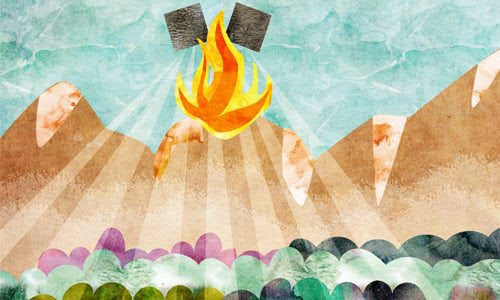
February 10, 2023 | Parshat of Yisro
Before social media was conceived, G-d had the ultimate influencer moment: He went live with Moses with a viewing of over 600,000 to promote His new product!
But what was unique about this viral message is that it wasn't sounded into an echo chamber. In fact, reading into the words of the Torah, the Midrash shares a curious detail about the events at Sinai: G-d's voice had no echo.
This is a strange thing to highlight. It's impossible for us to really imagine what it means that G-d spoke to the people. What does it even mean for a formless force to "speak"? Did G-d sound like a booming voice over a megaphone? Were the commandments like an electronic transmission into their consciousness? We can't know exactly. So why is the echo detail so important - or even relevant?
We can appreciate the message of the Midrash if we look into what an echo is and how we experience it in our own communication.
An echo is a fascinating natural occurrence. Noise travels and reverberates off surfaces to create the impression that the sound is being repeated. But an echo means that the sound didn't get absorbed into the walls that are rebounding it.
When we speak to people, we often look for their tacit agreement and acknowledgement. We want our opinions to be bounced back. That's why we gravitate towards people that already think the same way that we do. But then we lose the ability to really influence people. Real communication should be geared towards absorption. This happens when the people we speak with don't instinctively agree with us but our words give them food for thought that they can chew over and let them sink in, creating the space for real influence.
The purpose of G-d communicating the Torah to the Jewish people at Sinai wasn't just to transmit a set of laws. Truthfully, the Jewish people already knew most of the Mitzvot - as they had been passed down in the family tradition from Abraham. And even if there was a need to formally codify Judaism, G-d could have just as well published a book and distributed it to the masses.
The awe-inspiring event at Sinai had a different agenda. G-d didn't just want obedience or submission, he wanted His words to shape the Jewish people and be absorbed into their consciousness. He wasn't looking for the Jews to echo His words; G-d wanted His presence to shape reality and seep into every element of the world and every physical and conceptual inch of existence. He was imparting influence not information.
Following up from what I wrote about last week - that the splitting of the sea was a shift in the Jews' consciousness - the giving of the Torah at Sinai had that same affect on reality at large. The words of G-d didn't bounce back. They were absorbed into the environment and created a seismic shift in the world, merging heaven and earth.
This shift was only the begining. It created the potential for us to awaken a Divine consciousness in reality through our appreciation of the Torah and living with its precepts. When we do a Mitzvah, we're not just following Divine instructions. We are embodying the Divine and unleashing G-d's presence in the world.
Shabbat Shalom,
Rabbi Menashe
Splitting the Sea of Consciousness
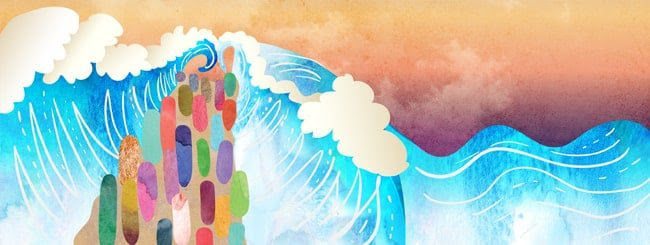
February 3, 2023 | Parshat of Beshalach
Does it ever happen to you, that you see someone all the time, but when you finally get to know them they suddenly look different? Your newfound understanding and appreciation of who they are alters the way you see them, changing their face and transforming their whole demeanor.
This week we read about the splitting of the sea. What is often misunderstood is that the miracle was not only utilitarian. In fact, the Jews never actually crossed the Sea of Reads. They arced back and disembarked on the same side as they had entered. So the goal wasn't purely practical, but spiritual. G-d wanted to give the Jews an awakening that would change the way they see the world forever.
While the Jews had left Egypt a week prior, Egypt hadn't left them. They were still stuck in the sunken Egyptian mindset, which they had developed over the centuries of slavery. They saw the world through the lens of the Egyptian’s depraved consciousness. The splitting of the sea opened them up to a higher consciousness - a divine consciousness - and helped them gain a fresh perspective of reality. According to the Midrash, the Jews at that time had a transcendent experience of the Divine, where the simplest Jew saw what even the greatest prophets did not.
Dry land is representative of our perceived reality - the materialistic and immediate here and now. The sea, which hides the beautiful life within it, is a metaphor for the spiritual depth that is hiding beneath the surface of reality. The waters splitting and becoming dry land represented an unveiling of the spiritual core of reality, where the inner purpose of existence was readily sensed and seen. At that moment, the world of the sea - the unknowable sublime divine reality - split open before the Jews, revealing a Divine vision of the world. And then new dry land became visible - their renewed appreciation of the world’s purpose changed the way they saw the world and created new pathways of consciousness. Their dry land experience or daily life was redefined - forever.
The physical splitting of the water was a material reflection and manifestation of this transcendent experience.
This is not only a historical account. The splitting of the sea is something we can experience too. The splitting of the sea was an introduction to receiving the Torah at Sinai and its experienced defined the Jewish mission. Judaism is a path to recreate the splitting of the sea in out lives.
Generally, we see the world through our limited earthly vision. We are stuck in a "dry land" mindset - a materialistic reality of ego and jealousy that is plagued with poverty and illness, war and hate. Judaism is an attempt to liberate the world from this experience and promote a "sea" reality - a divine consciousness that alters our perception of ourselves, others and the entire world. The Torah is an entryway to the Divine vision of reality that opens our eyes to higher spiritual perspectives. Each Mitzvah is a partial splitting of the sea, drawing back the shades and allowing the divine spirit to seep into our reality.
Through investing in the spiritual path of Judaism we elevate our lives and the world.
Rabbi Menashe Wolf
Shedding Light on Paralyzing Darkness
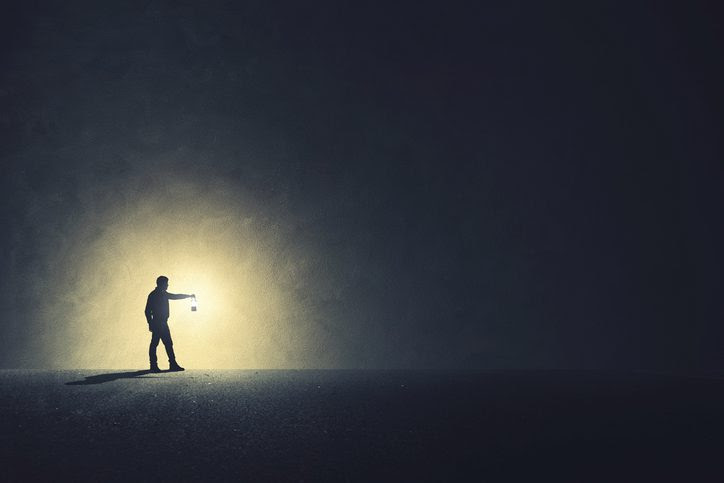
January 27, 2023 | Parshat of Bo
How unbearable is darkness? The ninth plague that struck the Egyptians hardly seemed like a plague at all. Every evening we experience the dark and we make it through to the next morning. Did G-d run out of creative ideas for plagues?
When a room is dark, everything is still there, only you can’t see it. Emotionally, being in a dark place means that you aren’t able to see the blessings and opportunities that are around you. It can be the darkness of loneliness - when you don’t sense anyone in your life that cares - or depression - when you can’t see things in your life that seem meaningful.
Perhaps there was more than a physical darkness that engulfed the Egyptians. The way the darkness is described in the parsha is: “They did not see each other, and no one rose from his place for three days.” The plague turned the tables and uncovered the Egyptians as true slaves - stuck in the dark - and the Jews as having inner freedom - seeing the light. It exposed the Egyptians as bereft of a sense of brotherhood and higher purpose.
The first thing we are told about the Egyptian condition in this plague is that “they did not see each other.” They were only concerned with themselves. They didn’t feel responsible for each other.
In his Holocaust memoir, If This is a Man, Primo Levi describes the days after the camps were liberated from the Nazis. He writes that at one point, some of the inmates offered to share their bread with one another, and to him that signaled that they were free men. As prisoners each of them were concerned only for their own survival. But as free men they could see each other’s pain and share their resources.
The first thing we do at the Seder - even before we tell the story of the Exodus - is to invite all those that are hungry to join our Seder table. We say this sitting in our homes and the invitation isn’t heard beyond our walls. But this is the first commemoration of our freedom: we express care and concern for one another and look out for those that need help.
The second thing we’re told is that they didn’t get up from their places. Their lack of purpose and meaning paralyzed them. They were overwhelmed by the darkness that engulfed their existence.
At the same time we are told that “but for all the children of Israel there was light in their dwellings.” The hallmark of Jewish life is community and purpose. We care for each other and look out for the needs of the oppressed.
When we are there for each other and care for those that need our help, our lives are filled with meaning and purpose and there is light in our lives and homes.
As ambassadors of light, our role is to brighten a dark world. To spread kindness and purpose and bring the values that we have received from our heritage to light up the lives of others.
Shabbat Shalom,
Rabbi Menashe
Breaking the Stress Cycle

January 20, 2023 | Parshat Va’eirah
It’s an irony of life: We are often too busy with our problems that we miss opportunities to solve them. We become so consumed with our stresses that we lack the headspace to work through them.
That's exactly what happened to the Jews in Egypt when Moses came to free them. You would think that people languishing in slavery would jump at the opportunity of freedom and welcome the news of their exodus with open arms. But that isn’t what happened. When our ancestors were told by Moses that he had been sent by G-d to take them out of Egypt, they simply ignored him. His message of hope fell on deaf ears.
It's not that they didn’t believe in G-d. They had faith in a family tradition passed down from their grandparents that G-d would redeem them. So why did they ignore Moses?
The verse actually tells us why: "They did not listen to Moses because of their shortness of breath and hard labor. (Exodus 6:9)" They were so overwhelmed with their work that they couldn't listen to a way out of it.
It wasn’t just that they were too physically drained, but they lacked the mental and emotional capacity. The Hebrew word for breath (neshimah) is related to the word for soul (neshamah). Their souls were tired. Their spirits were run down. The years of slavery had worn down their spiritual capacity. They lacked the faith and vision to imagine a new reality of freedom.
The response from G-d was for Moses to keep going with his mission - eventually, his sacred message from G-d would broaden their spirits and they’d be able to see past their immediate troubles. Indeed, that is what happened.
There's a poignant lesson to learn from their mistake. When we are feeling overwhelmed or stressed, it is important to step back from whatever it is that is weighing us down and allow ourselves to breathe. Often, the more we engage with the problems we are facing the less opportunity we see to solve them. We have to consciously make space for hope. We need to step back and broaden our spirit.
When you’re going through something difficult, take a spiritual breather - a few moments of sincere prayer, a short Torah study session, go and help someone else with their problems. It will give you more strength and expand your spirit. And, who knows, you may just find a resolution to your problem that was lurking there all along.
Shabbat Shalom!
Rabbi Menashe
Spiritual Climate Change
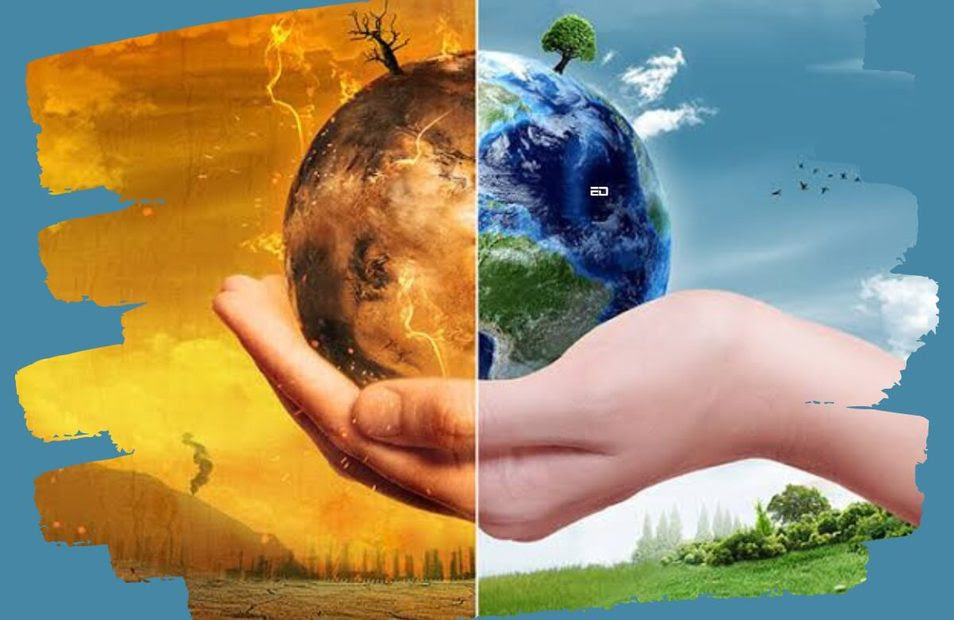
January 13, 2023 | Parshat Shemot
I've been thinking a lot this week about the Jewish slavery in Egypt that we read about this week in the Parshah. What attitudes lay behind the Egyptian's vicious abuse of an entire ethnic group? How could a nation have been so cruel to enslave the Jews?
Traditional sources address this in varying ways. One approach that is particularly enlightening looks at the Egyptian reliance on - and subsequent worship of - the Nile River.
Ancient agricultural societies relied heavily on rainfall. The exception was Egypt. Their water supply was almost all culled from the Nile. Because of the dry climate they couldn't rely on rain water and their fields were irrigated by a pipe system from the Nile. Their drinking water came from it. The Nile was their life source and as such became a deity.
This reliance on existing natural resources, which were predictable, led the Egyptians to be self-absorbed and indifferent towards faith. While most ancient nations developed some system of spiritual worship to elicit divine compassion for much needed rains, the Egyptians were complacent with their supply of water.
This spiritual indifference is symbolized in the nature of water itself. Water is cold. Lifeless. It projects apathy. The Egyptian worship of the Nile River was symptomatic of their lack of spiritual excitement and their numbness to the divine pulse of the universe. The Egyptian spiritual climate was cold.
Their divine apathy led to interpersonal apathy. This indifference allowed for degradation of human life. The Egyptians didn't care for the suffering of their Jewish neighbors. They didn't blink an eye at the cruelty of Pharaoh's laws. They had no feelings towards the Jewish people or towards a moral right.
This explains why the first plague was turning the water of the Nile into blood. Beyond just being an attack on their most precious resource and deity, this plague aimed to unravel the root of the slavery.
Blood is warm and pulses with life. It is the very material of life. Turning the water to blood embodied a warming of Egyptian culture, introducing warmth and emotional sensitivity to the Egyptian consciousness. This spiritual climate change began the process of transforming Egypt, eventually
unraveling the slavery.We all have our own Egypts and Pharaohs that we struggle with. We are slaves to our bad habits and vices. We can sometimes disrespect people that are different to us. Often the root of these demons is an inner numbness. We lack purpose and motivation. We don't feel an inner excitement for life. We're not guided by a higher purpose.
One way to turn ourselves around is to introduce a spiritual awareness and emotional excitement into our lives. To spend a few moments being centered to feel the life-force of G-d radiating everywhere. How can we turn out water to blood? Try diving into a new Torah study goal or spending a few moments in prayer. Maybe do a random act of kindness. Celebrate the warmth of Shabbat. These injections of spiritual life can get your blood going to warm your insides and melt away your inner Pharaoh.
Shabbat Shalom,
Rabbi Menashe
Embrace Your Blessings

January 6, 2023 | Parshat Vayechi
"Life wasn't meant to be fair."Growing up, that is what my mother would tell me when I would complain that others had something that I didn't. Now, as a parent myself, I find myself sharing a similar sentiment to my children - but with a slight, yet important, difference. Life wasn't meant to be equal, but it is fair.
This is highlighted in this week's Torah portion.
Jacob was nearing his death and turned to bless his grandchildren Menashe and Efraim, the sons of Joseph. Joseph positioned the boys so that Menashe, the firstborn, would be on Jacob's right and Efraim on the left, intending for the older brother to receive the primary blessings symbolized by the strength of the right arm. Jacob crossed his arms and blessed Efraim with his right hand while Menashe had to settle for the secondary, left-handed, blessings.
We could have forgiven Menashe for being offended and feeling cheated - like his uncle Esau felt after Jacob stole his blessings. Esau was furious after the blessing saga and pledged to kill Jacob. Yet we don't find any backlash from Menashe. Unlike Esau, he seemed to accept what came to him without complaint.
Jewish tradition understands blessings as channels to express an already existent potential. Blessings are compared to rain; just like rain can only help the growth of a plowed field or planted seed, blessings can only come to fruition for people that are disposed for them. This is why blessings are so precise and personalized. There's no benefit in getting a blessing that isn't matched for you. Without the potential that it is geared for, it will have no impact.
Esau either wasn't self-aware or simply didn't care. He wanted whatever looked and felt good - even it is wasn't for him. But Menashe was well aware of his own strengths, talents, and shortcomings. He accepted that although his blessings may have been objectively inferior, they were right for him. They would help him develop and blossom in his unique way, even if it meant that others would outshine him in other areas.
The same theme is repeated when Jacob blessed his twelve sons before his death. Each son received a unique blessing tailored to their character and life. Jacob knew his children well and saw their individual potentials. The short but incredibly incisive blessing that each child received alluded to their past and predicted their future. He knew that to thrive, each of them would have to shine in different areas. Each would have to focus on their unique strengths and talents.
This is a challenging lesson, but an important one. Your blessings are tailored to your character, strengths, and circumstances. You were born to make a unique contribution to the world. You don't have to be the best at everything and don't have to feel pressured to keep up with other people in all areas of your life. You have to be the best you.
We have to learn to embrace our unique circumstances, blessings, and sets of strengths - and celebrate them. In the words of Oscar Wilde: “Be yourself; everyone else is already taken.”
Shabbat Shalom,
Rabbi Menashe
It’s Not About the Gift
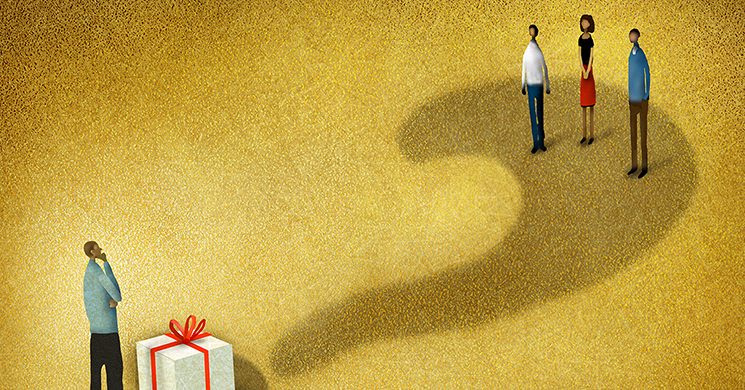
December 30, 2022 | Parshat Vayigash
I have been inundated with ads selling “the perfect gift” for my New Year’s gifting (-is that even a thing?).
The truth is, more often than not, giving is not about the gift itself, but the gesture and love that the gift communicates. It isn’t so important what you give, but that you thought of the person and gave something. You’re not giving the value or utility of the gift - you are showing that you appreciate them. The gift is just a vehicle to express that.
This week we read the conclusion of the saga of Joseph and his brothers. After 22 years of estrangement, Joseph reveals his identity to his brothers and the siblings are reunited. The first thing on Joseph’s mind was his father: “Is my father still alive?” He rushed the brothers to go back to Israel to bring their father, Jacob, to Egypt and sent them off with 10 donkeys filled with fine delicacies.
The extravagant gift seems kind of curious. Jacob was going to be escorted immediately to Egypt, and the trip was going to be a short one. There wouldn’t be time to enjoy the huge amounts of food that Joseph sent. Why force the brothers to travel with overweight baggage and make their journey more arduous?
Joseph knew that the gift was over the top, but he wanted to show the proper respect to his father. After 22 years of not seeing each other, he wanted to convey his utmost love. The over-the-top gift was a gesture of his overwhelming emotions. It wasn’t about the usefulness of the gift, but the message it conveyed.
This week, we have felt the overwhelming generosity of so many people. It has been moving to see the breadth of support for Dirah during our year-end fundraising campaign: Let’s Grow Together. The sheer number of people that have shown their support for this cause - creating Jewish life and community for people in our neighborhood - has been inspiring.
You see, fundraising isn’t only about collecting money. Of course, Dirah relies on community support to operate, but there’s a lot more to it than that. Each donation - no matter how small or large - tells the story of Dirah’s impact. Each gift is a show of appreciation, recognition and support. Each contribution is a validation, someone saying that they believe in this mission and cause.
And in Jewish tradition, giving charity is more than a nice gesture - it is a Mitzvah. When we give tzedaka, we connect with G-d and our life purpose. And we are open channels of blessings. No matter the amount - be it $1, $18 or $1800 - giving is a sacred act and a mitzvah!
I want to sincerely thank everyone who has taken part of this campaign and showed their love and support. There have been more than 130 of you! And if you haven’t yet, there’s still more time to partner with Dirah before the end of the year and express your gratitude and support at www.dirahbrooklyn.org/grow.
Thank you and Shabbat Shalom,
Rabbi Menashe
A Deep(fried) Message from the Latkes and Donuts
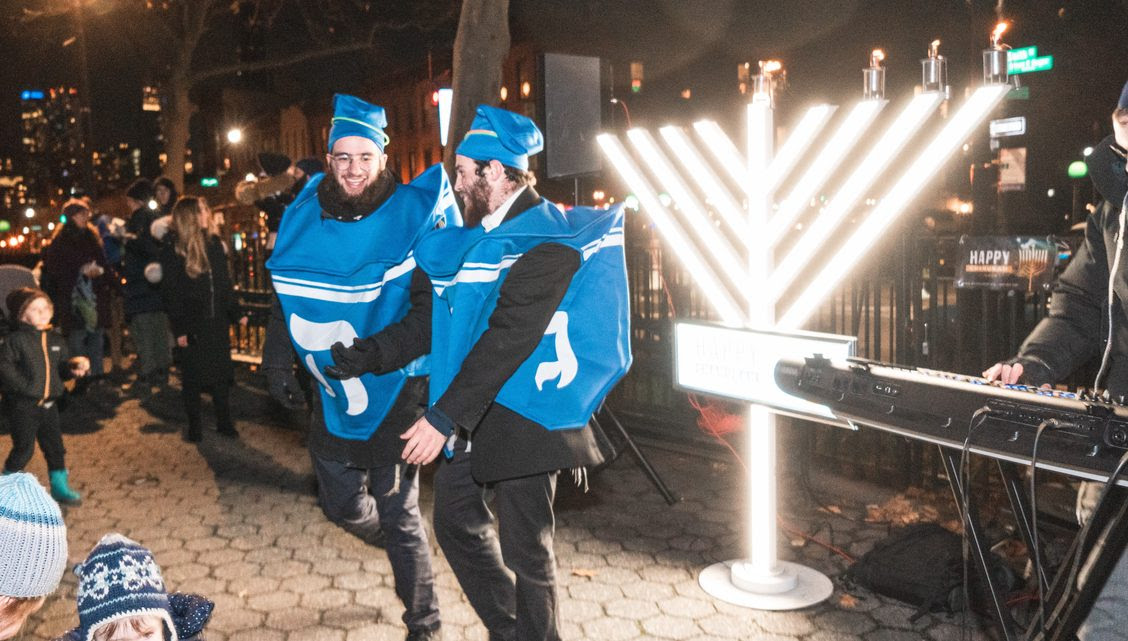
December 23, 2022 | Parshat Miketz
It's 5 days into Chanukah, and we've had too many donuts and latkes. Yes, Jews love food and donuts and latkes taste good - but there must be something more to the heart-attack-inducing selection of Chanukah treats.
In Jewish mystical sources oil has profound significance. It was chosen for the Menorah in the Temple - and to be part of Chanukah ritual for eternity - because of its unique properties. One of those is that oil is insoluble. No matter how much water you try to dilute it with, the oil will remain separate from, and rise above, the water.
There's a deep(fried) message there. It’s easy to be swept with the tide of culture and to have your uniqueness diluted by the standards of society. We often make the mistake in thinking that we need to fit in to be respected. The logic goes something like: (a) to have more influence we need people to like us, and (b) for people to like us we need to please them, and (c) to please them we have to be like them. In reality, nothing can be further from the truth.
The lamps of the Menorah teach that oil - which doesn't mix in - makes the light shine strongest. Trying to fit in will never work, because your core self cannot be diluted. It's our unique and unshakeable spirit that makes us shine.
This is what we celebrate on Chanukah - on a communal and individual level.
As a nation, the Jewish people are still here despite persecution and assimilation. We celebrate our flame that refuses to be extinguished. We are like oil that remains wholesome despite all attempts to drown it, and continues to respond to adversity by rising to the top.
As individuals, we each have a pure soul that cannot be corrupted or influenced. We are flasks of oil. To find meaning and have an impact we must embrace our individual identities and be confident in our purpose. Staying true to who you are and having the courage to be different leads others to respect you.
So while you're enjoying your oily treats and kindling your Menorah lamps, think about what your inner oil is. Consider what gifts G-d gave you that you can share with the world. Find what makes you special and celebrate it. Let your soul shine with the fuel of your oil, and you'll make the world a brighter place.
Happy Chanukah and Shabbat Shalom,
Rabbi Menashe
A Light Created By Darkness
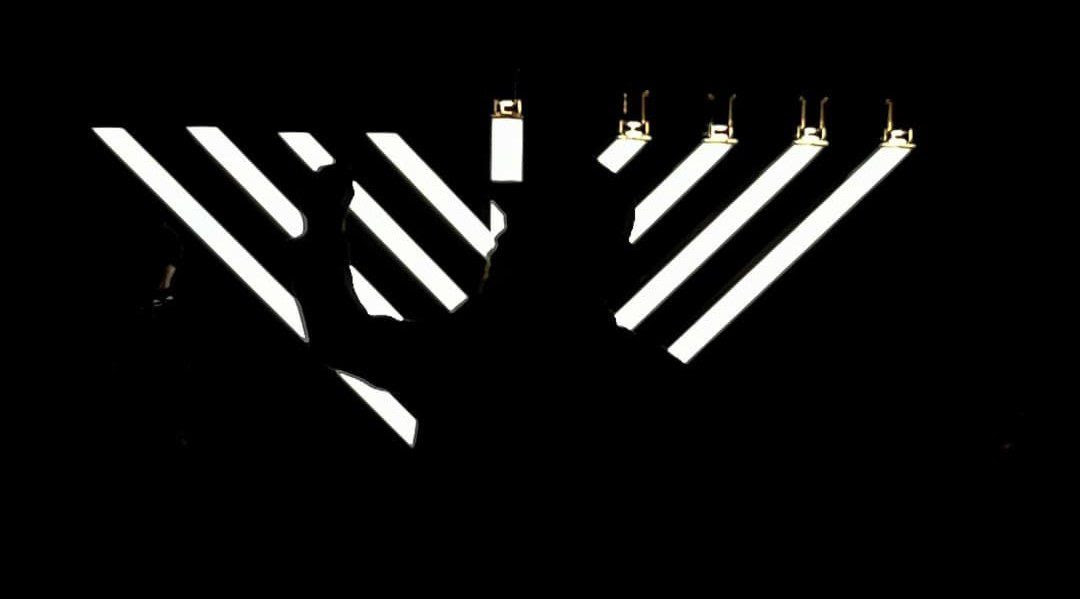
December 16, 2022 | Parshat Vayeshev
(Last years Menorah lighting at Carroll Park/ Photo credit: Heidi Paster)
Chanukah is exactly the holiday we need for our times.
2200 years ago, within the walls of the Temple in Jerusalem, Jewish life radiated. It was a space where the divine presence was manifest, where Judaism shined bright. When the Temple stood in Jerusalem, there was comfort and security for the Jewish people everywhere.
This idealic reality was reflected in the Menorah. Its light filled the Temple and radiated to the world, broadcasting a bright message of faith and divine consciousness.
That came crashing down when Antiochus and his Syrian-Greek army tried to root out Judaism and suppress Jewish observance, threatening the end of Judaism. Although the Maccabees stood firm and miraculously overcame the mighty army, restoring Jewish life back to normal, damage was done.
The Rabbis sensed a darkness in the world that was imminent and real. They realized that there may come a time when the radiating lights of the Menorah could be extinguished, when the future of Judaism will be threatened. To combat this darkness, there was a need to dig deeper and uncover a light that would remain untouchable by opposition.
They responded with the holiday of Chanukah. It would be modeled after the Menorah, to recall the source of light in the Temple, but with two key modifications.
Firstly, the Temple Menorah was kindled during the day, reflecting bright, peaceful times; the Chanukah Menorah would be lit at night, designed to uplift the dark moments. Secondly, the Temple Menorah had 7 branches, a number that symbolizes the regular cycle of life (think 7 days of the week); the Chanukah Menorah would have 8 candles, reflecting the need to push a little beyond our limits.
These two differences are related. When life was calm, the routine light of the Temple Menorah did its job. But it wasn't enough to guarantee the Jews' light would remain bright through turbulent times of moral darkness. To overcome evil we need more than business as usual. To combat the darkness, to shine a light of moral and religious clarity during the night, we need a powerful light that comes from deep within us. We need to discover supernatural strength, and invest extra effort, beyond our 100%. We need the 8th candle of the Chanukah Menorah.
This year is the 2161st Chanukah and unfortunately the darkness is still present, making the Menorah message as relevant as ever. To shine light in the darkened world around us, we have to commit to being beacons of light beyond our comfort levels. We have to live to the 8th degree, pushing ourselves a little beyond what we think possible. By doing radical acts of goodness, we break through any barriers and shine light into the darkest places.
As we kindle the Chanukah lights this year, let's take a moment to find that light within us and commit to doing good beyond our comfort zone.
The Menorah is supposed to radiate light in the night, to shine beyond the walls of our homes spilling its light into the street. That's why we'll be lighting the Menorah at Carroll Park over Chanukah (join us on Tuesday for the community lighting and Chanukah celebration), bringing the light and joy of Chanukah to the world. We can all can do the same thing in our homes by putting the Menorah in the window facing the street. Even if you actually light the candles elsewhere in the house, you can put an electric Menorah in a place that's visible to the outside. This way, we all have a part in making the streets shine with the light of Chanukah.
Shabbat Shalom and Happy Chanukah!
Rabbi Menashe
The Secret to Jewish Survival
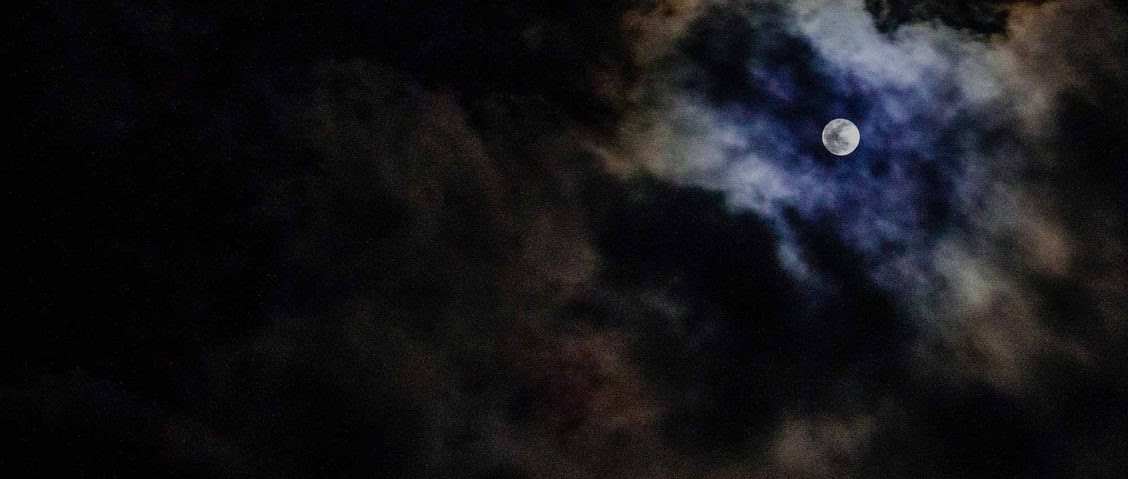
December 9, 2022 | Parshat Vayishlach
In September of 1989, the Dalai Lama met with a group of Rabbis in New York. One of the topics that he wanted to discuss was the Jewish secret technique to survival in exile. Despite being scattered around the world for thousands of years, facing persecution, expulsion, and genocide, we are still here celebrating and practicing Judaism. What is the secret to our survival?
Had you been at that meeting thirty three years ago, what would you have responded?
Some people point to the hand of G-d in history as the reason we are still here. In fact, they say that this is proof that G-d exists - how else would this tiny nation that has faced so much adversity survive? True as that may be, there must be a more practical explanation too.
Perhaps the answer lies in our name - B'nai Yisrael, the children of Israel. Of all the forefathers we are named after Israel, which was Jacob's other name.
Jacob had a challenging life. He had to run away from home because his twin brother Esav wanted to kill him. He ended up with his uncle, Laban, who cheated him and took advantage of him. Despite all that, he managed to succeed. He didn’t become a victim to his circumstances and was able to find light in the dark moments.
In Jewish tradition there are three daily prayers, each of which was composed by one of the forefathers. Abraham was a trailblazer and innovator. He found G-d in the emergence of a new day and prayed in the morning - Shacharit. Isaac nurtured Abraham’s mission and was the steady anchor in making the vision sustainable in the long term. He found G-d in the process of the daily grind and prayed in the afternoon - Mincha. Jacob was the first to pray at night - Maariv. In the dark of night, when all hope seems lost, Jacob was not afraid. He didn’t give up. On the contrary, he found G-d in the dark and challenging moments of life. When everything was stacked against him, he was inspired. He innovated the capacity to pray in the night.
It is easy to see the good in our lives when it is light. When everything is going well, we feel expansive and free to sing and pray. It is comforting to pray to G-d when things are running smoothly. But in the dark moments of fear and anxiety, when the world seems to close in on us, it is a lot more difficult. We tend to shut down and retreat into ourselves. Jacob introduced to the world how to pray to G-d - how to be thankful and hopeful - in the dark times.
Last night, at our inaugural DirahTEEN event, we discussed the symbolism of light - a key theme of Chanukah. One idea that was mentioned is the power of light to shine through the deepest darkness. One little ray of light spreads around the room and pierces the darkness. One small ray of hope can light up the most challenging moments of your life.
The Jewish nation owes our survival to Jacob, who bequeathed us with spiritual grit and resilience. Let’s continue to be inspired by Jacob and be ambassadors of light even in the darkest moments.
Shabbat Shalom,
Rabbi Menashe
Confronting Hate
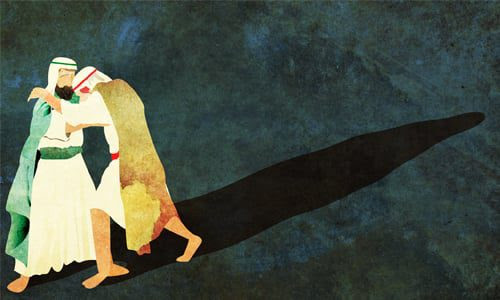
December 2, 2022 | Parshat Vayetzeh
When “the Jews” and “Nazis” are trending on Twitter, you know that we are in a troubling time. The vile antisemitism that has been shared in recent days and weeks on public platforms, by public figures, is deeply disturbing. As a grandchild of Holocaust survivors, I never thought I would hear the rhetoric that I have this week. But I did. And it is only getting louder.We read in the Torah portion this week about Jacob running from Esav, who was angry at him for “stealing” his blessings and had verbalized his intent to kill him. Jacob settles in Charan with his uncle Laban, marries and builds a family. After 20 years away from his parents, Jacob decides it is time to head back to his home town.
The story continues in next week’s parshah: on his way home, Jacob gets news that Esav was chasing him with an army of 400 men. His hatred still hadn’t dissipated after all those years. Jacob was justifiably afraid. He feared the worst and prepared for war.The night before their meeting, Jacob is confronted by an unidentified person and the two of them wrestle all night long. Tradition has it that his wrestling partner was a G-d-sent angel.One explanation of this enigmatic episode suggests that Jacob was tempted to change course to avoid confronting Esav. The assailant was sent by G-d to stop Jacob's escape and force him to stand up to his brother, allowing G-d's promise of protection to be realized.After struggling all night, Jacob eventually continued on to meet Esav. Overwhelmed by Jacob's love, Esav's hate melted, and the two embraced and wept on each other's shoulders. When confronted head-on, the evil dissipated in the face of love, respect, and compassion.The struggle between Jacob and Esav is symbolic of the eternal tension between good and evil.
Inevitably, the forces of Esav in the world will always rise up against the Jacobs. We can try to ignore them and pretend that they won't reach us. We can hide under the radar of those that hate us. We can run to safer communities and more secure places. We may personally succeed to be sheltered from the reach of antisemitism, but it will continue to exist. And inevitably it will simmer and rise. It will get stronger. It will spread.The Torah narrative implores us to confront evil. We have the responsibility to stand strong and tall, to show up in the face of antisemitism. We have to be vocal in our condemnation of hate. We have to be unabashedly proud Jews.
And in the end, good will prevail. G-d promised Jacob then, and His word rings true for us today. Good will always overpower evil. Love will outshine hate. When Jacob stood strong, Esav was humbled before him. When we stand strong, we will overpower the dark forces of hate.
At this moment, let’s do what we can to band together and support each other. Let’s strengthen our commitment to our Jewish heritage, values and communities. And let’s continue to spread goodness and call out hate whenever we can.May we see the ultimate fulfillment of this promise, echoed in the words of the prophet Zechariah (Zechariah 13:2): "And it shall come to pass on that day... and the spirit of contamination I will remove from the earth."
Shabbat Shalom,
Rabbi Menashe
Giving Thanks
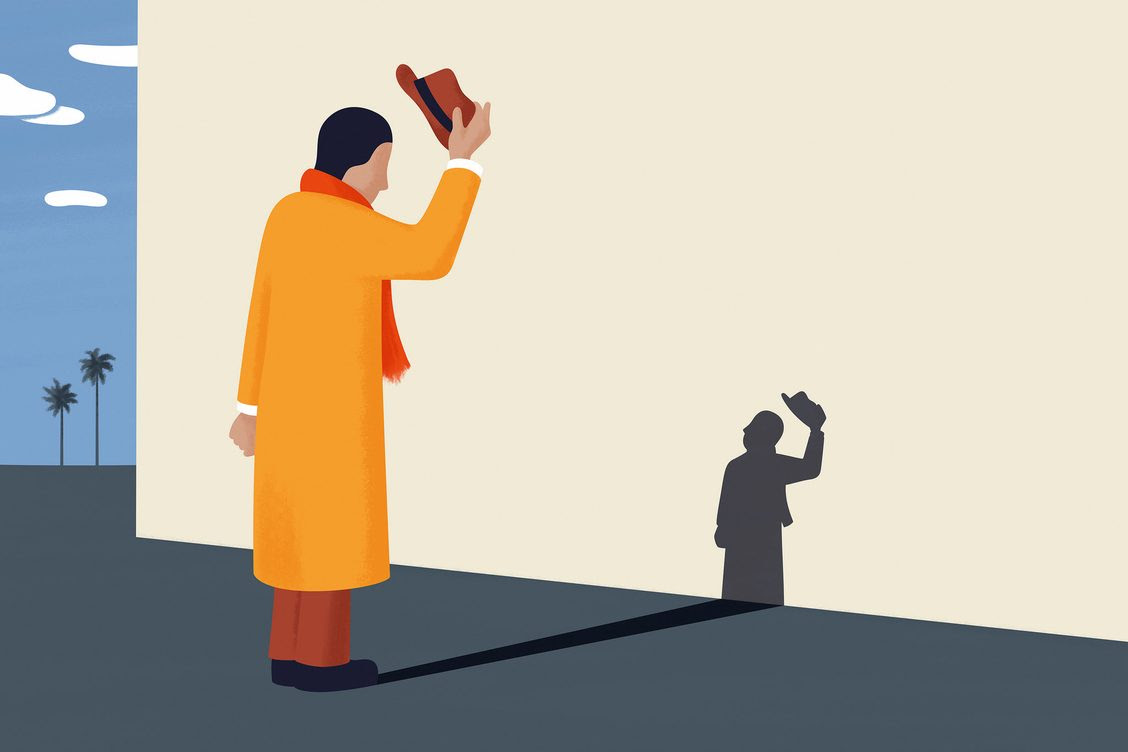
November 25, 2022 | Parshat Toldot
"Do you celebrate Thanksgiving?"
I got this question many times over the last couple of days.
Although not a Jewish holiday, per se, Thanksgiving has a very Jewish theme. And although I'm not a native of America, my children are 6th generation American and we are incredibly thankful for living in this wonderful country. So, yes, we do enjoy spending the family time and focusing on being thankful to G-d for our blessings.
Being thankful is at the heart of Judaism.It is the first word on our lips each morning as we wake up: “Modeh Ani Lefanecha - I am thankful to You G-d for another day of life.”I want to share a beautiful Thanksgiving teaching that I shared on Yom Kippur this year:The highlight of each prayer service is the Amidah - the personal silent prayer, where we figuratively enter G-d's presence for a private conversation. Since not everyone is familiar with the prayers, the Chazan repeats the entire Amidah aloud, allowing everyone to participate in the prayers by listening to them.With one exception. There's one paragraph of the Amidah that we don't rely on the Chazan's repetition, and the congregation interjects to chant this paragraph themselves. This is the Modim prayer - the prayer of thanksgiving: "we thankfully acknowledge You..."There's an incredible lesson here. While there's so much we can delegate and automate, we can't delegate gratitude. We can rely on others to pray on our behalf. We can appoint people to give charity on our behalf. We can set up apps to do things for us. We can hire people to take care of almost all of our responsibilities. But we can't offload the duty to be thankful. That is a personal responsibility that has to come from within.In Jewish tradition, giving thanks is closely linked with humility. The Hebrew word for thanks - Hoda'ah - is the same word as submission or acknowledgment. (Coincidentally, it is also related to the Hebrew word for turkey - Hodu). To thank someone is to sacrifice your pride to acknowledge and recognize what they have done for you. Gratitude is deeply personal.We all have so much to be grateful for. On this wonderful Thanksgiving weekend, let's pause for a few moments and thank G-d for the blessings in our life and thank those around us who help us realize these blessings.Shabbat Shalom and Happy Thanksgiving,
Rabbi Menashe
The Ultimate Giving Pledge

November 18, 2022 | Parshat Chayei Sarah
What would it take for you to give away your entire life's savings - literally every possession that you own? Imagine the Giving Pledge on steroids: instead of half your wealth, all of it; instead of after death, right now during your lifetime.
No. This isn’t a fundraising pitch. But it’s an interesting question to consider. Is there a cause that is more important to you than everything you own? Take a moment to think about what is so fundamental to who you are and central to the purpose of your life - that you would be willing to sacrifice everything for.
If you're looking for some inspiration, take a look at Abraham. In this week's Torah portion we read how Abraham sent his servant Eliezer on a mission to find a suitable wife for his son Isaac. Abraham pulled out all the stops to make sure Isaac found the perfect wife. He sent Eliezer off with 10 camels laden with jewelry and gifts, and on top of that, we're told that "all the best of his master was in his hand," which the commentaries explain to mean his entire estate. Abraham signed over every last penny of his to use if necessary to pull off this match.
What was so urgent and important about this cause that warranted Abraham's irresponsible generosity? Yes, Isaac was a 40-year-old bachelor, but there must be something more to this hoped-for marriage that inspired Abraham to splurge his entire life’s savings.
The mystics explain that the marriage of Isaac and Rivkah (the first marriage of a "Jew" from birth) was a cosmic merger of spirit and matter. Isaac, the perfect and wholesome child of Abraham was a symbol of the divine spirit, the soul. Rivkah, who came from an upbringing of corruption and moral depravity, symbolized the material world, the body.
Their marriage was more than just two people finding love. It would set the tone and lay the groundwork for the Jewish mission for all of history - to merge matter and spirit; to bring heaven down to earth; to animate the material world with the light of G-d.
Abraham was aware of this, and it was the realization of his life’s mission. Isaac and Rivkah were going to actualize his monotheistic revolution is the most profound way possible. This union was so important to him that nothing else in his life was of any value if it were not to materialize. He was willing to give everything away to ensure its success: to elevate the material world with spiritual meaning.
This absolute dedication of Abraham can serve as a guiding light to us, his descendants. We are all here for a purpose. We have a divine mission. We're empowered to bring light into the world, to bridge the gap between the material and the spiritual. Judaism is essentially the actualization of Isaac and Rebecca’s marriage, lending immense spiritual significance to our everyday life. Each Mitzvah is a portal for the divine light to resonate in the reality we inhabit. Every act of kindness elevates the world.
This weekend is the international conference of Chabad Rabbis. Thousands of my colleagues from around the world have gathered in Brooklyn for a weekend of networking, development and spiritual recharge. I have spent time over the last couple of days rubbing shoulders with people who have thrown everything away - living far from their families and native communities, having little access to kosher food and Jewish education, shouldering the burden of funding themselves and their institutions - in order to create and strengthen Jewish communities and spread the light of Judaism to every corner of the world. They are inspired by Abraham's sacrifice and I, in turn, am inspired by theirs.
We're all heirs of Abraham, and each of us has a role to play in the drama of history. Let's learn from our forefather and find areas that we can commit ourselves in a stronger way to making the world a more refined place and connecting it with its Creator. We don’t have to throw everything away, but we should be willing to sacrifice something.
Shabbat Shalom,
Rabbi Menashe
The Defining Jewish Trait
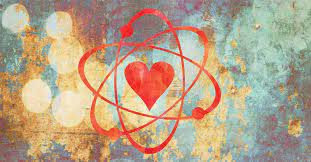
November 11, 2022 | Parshat Vayeirah
At this week’s Jewish Sparks session, students crafted their own personal Tzedaka (charity) box and had a discussion about charity.
Although we give them a coin every week to give to charity, the idea of helping others financially is a little removed from them. They don’t work hard to earn a living, nor do they relate to the struggle of poverty (thank G-d!).
So we asked them to suggest alternative forms of charity - things that they could implement in their lives. They came up with some great examples: “Give clothing to those that don’t have;” “Welcome guests into your home;” “Help a friend who is struggling with their school-work.” These practical forms of charity resonated with the children, and made it relevant to their lives.
In this week’s Torah reading we learn why G-d chose Abraham to be the father of the Jewish people: “For I have know that he educates his children and household to keep the way of the Lord to perform righteousness (tzedaka) and justice.”
Abraham’s commitment to righteousness, to helping others, spilled over to his family. He wasn’t content with being charitable himself. He was careful to include his children in the good that he did. He made sure to educate them to continue his legacy of hospitality and concern for others. He inherited to his children not only his wealth, but the tools to be generous in sharing it.
Kindness is one of the hallmarks of the Jewish people. In fact, this verse led King David to understand that being kind and charitable is fundamental to being Jewish - leading him to reject potential converts who didn’t display this trait (Talmud Yavamot 79a).
There is a lot of negativity in the world right now. And, unfortunately, an outsized portion of it is directed at us, the Jews. Antisemitism is on the rise.
Of course, we need to speak up against the hateful rhetoric and do what we can to combat it. But most importantly, we have to be living proof of the good that the Jews do for the world. Our best response to hateful things being said about us is to show the world how false the libels are. By continuing to spread kindness and love we will overshadow and conquer the hate.
Kindness in in our DNA. We are predisposed - through our heritage and education - to be generous and giving. Let’s continue the legacy of Abraham and make every effort to spread kindness. We can be a light unto the nations, leading by example and educating others to be kind as well. And if you are blessed to have children, think of ways to include them in the charity that you do, raising the next generation of Jews who will make a positive impact on the world.
Shabbat Shalom,
Rabbi Menashe
Abraham and the NYC Marathon

November 4, 2022 | Parshat Lech Lecha
I love the NYC Marathon. There's a unique community feel about it that brings the entire city together. It is uplifting to watch ordinary people push themselves to do extraordinary things. The commitment and motivation of the runners are inspiring.
I was speaking to a few friends who are running on Sunday and the way they defined their goals struck me. Unlike a usual race, most marathon runners are not in it to win. They know that others will run much faster than them, but it doesn't faze them at all. The runners are motivated by the challenge itself. Their goal is not to win but to complete; not to outrace others, but to achieve their own PB (personal best).
This is such a powerful message for life.
Abraham, our forefather, was arguably the biggest influencer in world history. Over half of the population today trace back their spiritual heritage and beliefs to him. His road to success was not easy - our sages point to 10 significant challenges that G-d subjected him to bring out his best potential.
The secret to Abraham's growth and eternal legacy was his courage to be himself and not conform to social pressure. He was called Ivri (Hebrew), an allusion to his differentness. This week's Torah reading opens up with G-d's first calling to Abraham: "Lech Lecha - go to yourself."
He didn't measure himself by the yardstick of those around him. His moral and spiritual compass was guided by truth, not popularity. While his neighbors were worshipping pagan deities that made them feel good, Abraham discovered faith in a transcendent G-d. While his peers were chasing gratification and pleasure, Abraham heard a moral calling. He dared to be different.
As heirs to Abraham's faith, we have to have the courage to look inward and work on being the best we can be. To chase our own dreams and reach our potential. The only person we should be trying to be better than is the one we were yesterday.
We were gifted a wonderful heritage of Torah wisdom and divine Mitzvot. It can be daunting to follow this calling when everyone around us is not. But we can summon the courage of Abraham and live a life that is in sync with our inner calling.
We are all recipients of G-d's message: "Lech Lecha - go to yourself;" instead of looking around us to be influenced by - and compete with - others, we ought to be to look inward and chase our own PB.
Shabbat Shalom,
Rabbi Menashe
How To Build an Ark

October 28 2022 | Parshat Noach
The first DIY project on record is in this week's Torah reading: Noah was given directions to build an Ark. Without so much as an IKEA handbook, he single-handedly built a 450 foot water-worthy, flood-proof yacht.
We don't know if Noah was handy or had any engineering training, but necessity is the mother of all invention and crisis breeds competence. He knew that a flood was threatening to wipe him out with the rest of the world, and his only chance of survival was to complete the complex construction.
Most of us aren't threatened with a flood or given instructions by G-d to build an ark, but we do face something analogous to Noah's crisis that should mobilize us to create the equivalent of Noah's ark.
Going through life, we encounter waves of pressure which push us in many directions, often threatening to sweep us away. There are social pressures from our friends, neighbors, and society. We are forced into decisions by financial pressures. Advertisers, Hollywood, and the media all try to sway our thinking in so many directions. Work responsibilities and financial commitments wash over us like giant waves. It sometimes feels like we are just trying to stay afloat, bobbing up and down in an endless sea of doubts.
Just like Noah, we have what it takes to construct a life raft - the tools to sail safely and float above the waves that threaten to crash down on us.
The Chassidic masters point out that the Hebrew word for ark, תיבה/Teiva, has a dual meaning. In addition to ark it also means word. This wordplay is significant. Noah built a physical ark from wood; we build our conceptual ark with words.
Judaism places a strong emphasis on the power of words, and in particular on the words of Torah and prayer. The timeless words of the Torah anchor a person in a life of focus and meaning. Torah wisdom provides context for life and gives meaning to every moment. Immersing in Torah study builds an ark that protects you from being pushed around by the forces that try to influence your life.
The words of prayer, too, create a mental safe space to retreat to remain immune from the varying pressures of life. Prayer is therapeutic and transcendent. It puts you in touch with your deepest self and connects you to a higher truth. It builds a relationship between you and G-d that imbues life with meaning and direction.
Even if you don't have much experience, you can utilize the tools that Judaism provides to find balance and stability in the rich words and texts of Torah and Tefilah. Today, more than ever, when society seems to be falling in all different directions, we can use the clarity and direction that these spiritual sanctuaries provide.
Jump on the ark-wagon and dedicate some time this week to prayer and Torah study. Reach out if you want to schedule a time to study or host a class as part of the Salon Study Sessions.
Shabbat Shalom,
Rabbi Menashe
Why Days Begin at Night
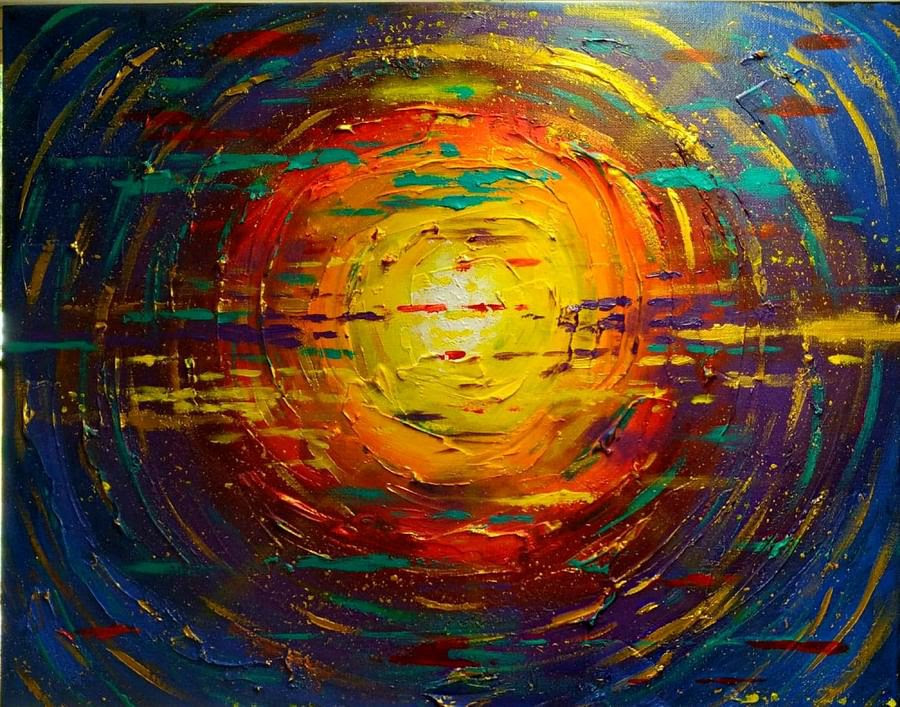
October 21, 2022 | Parshat Bereishit
There's something strange about the Jewish version of time: the Jewish day begins at nightfall. Shabbat is not Saturday; it begins on Friday evening and runs through to nightfall on Saturday.
This understanding of time is rooted in the creation story that we read this week as we begin the Torah anew.
In describing the process of creation, the Torah narrative finishes each day's work with "... And it was evening, and it was morning day number ____." Evening was brought into existence before morning, and since then, our counting of time has followed this pattern. Night precedes day.
We usually think of G-d as the source of light and life, yet the first divine expression in creation was night. Darkness preceded light. Why would G-d design the world this way? Is darkness more powerful than light?
There's a profound message here. Woven into the fabric of existence is that light will always come after (and sometimes from) the dark. No darkness is too heavy, no challenge too great; there's always light at the end of the tunnel. G-d wrote into the script of life that the darkest night will eventually succumb to the light of day.
Woven into the fabric of existence is the idea that although we live in an imperfect world, we have the capacity to heal it. Judaism acknowledges that darkness and evil exist, but it provides tools to shine light to overcome it. Our job in this world is to shine light, and even in a world that seems to be as dark as night, our light can - and will - bring the dawn of day.
On a personal level, the creation story teaches that despite our challenges and weaknesses, we can live happy and fulfilled lives. We all have some inner darkness that we struggle with. Instead of beating ourselves up over it and getting stressed over our stresses, and upset at ourselves over our weaknesses, we should acknowledge them for what they are. We weren't born to be perfect. After all, G-d created the night first. But at the end of the darkness there's always light. We can work to improve ourselves and find the light in our lives no matter what we are going through. In this world, it's inevitable that after night comes day. The divine creation gives hope that we will all eventually find that light.
Shabbat Shalom,
Rabbi Menashe
Our Collective Bar Mitzvah

October 14, 2022 | This week we read a special reading for Sukkot.
It's like a Bar Mitzvah on steroids (minus the DJ). The collective Jewish community has spent the past year studying the Torah and is about to reach the end. We haven't only learned one parshah, we've covered all of them!
Each week we read - better yet, perform - one of the 53 Torah portions in the synagogue on Shabbat. But that's not the only interaction we have with the text. Just like a Bar Mitzvah boy spends months studying his portion to prepare for the big day of his reading, the community as a whole spends the week leading up to each Shabbat studying the communal parshah, analyzing it, interpreting it, and mining new depths of the text. Although it's only the Rabbi who has to prepare a sermon and the Torah reader that needs to know the tune, every Jew is a partner in Torah and has an equal share in its learning.
At the end of Sukkot we read the final parshah and celebrate Simchat Torah. One person is designated as Chatan Torah, the Groom of the Torah, a representative of the community to say the blessings and read the final verses - but it's customary for every person in the Shul to receive an Aliya on Simchat Torah, even young children. On that day in the Shul, we are all the B'nai Mitzvah.
One reason that the Torah cycle was designed to finish at this time of year is to capitalize on the high of the High Holiday season. We've been on a spiritual roller coaster, from Rosh Hashanah to Yom Kippur to Sukkot, and there's a unique Jewish spirit that's alive now more than ever. You see, the Torah celebration is not just on the completion of a study cycle.
Just like a Bar Mitzvah is not a celebration of the child's Torah reading performance - we celebrate the child, not their accomplishments - similarly, on Simchat Torah we celebrate our relationship with Torah that is much deeper than just cerebral. More than deep wisdom, Torah is our divine heritage and the beating heart of the Jewish nation. After the High Holidays and Sukkot, we feel the deep connection we have to G-d and His Torah.
That's why we dance with the closed scrolls on Simchat Torah instead of only reading them. Every Jew, no matter how much they've learned or know, has an equal part in the Torah celebration. Our entire being, from head to toe, from mind to movement, is caught up in the joy of Torah.
So join Jews around the world this coming Monday and Tuesday and celebrate your Judaism and the Torah. The Bar Mitzvah won't be the same without you.
We’ll be joining with Congregation B’nai Jacob for Simchat Torah festivities (scroll down for more info) and look forward to celebrating together with you.
Shabbat Shalom and Chag Sameach!
Rabbi Menashe
The Happiness Hut
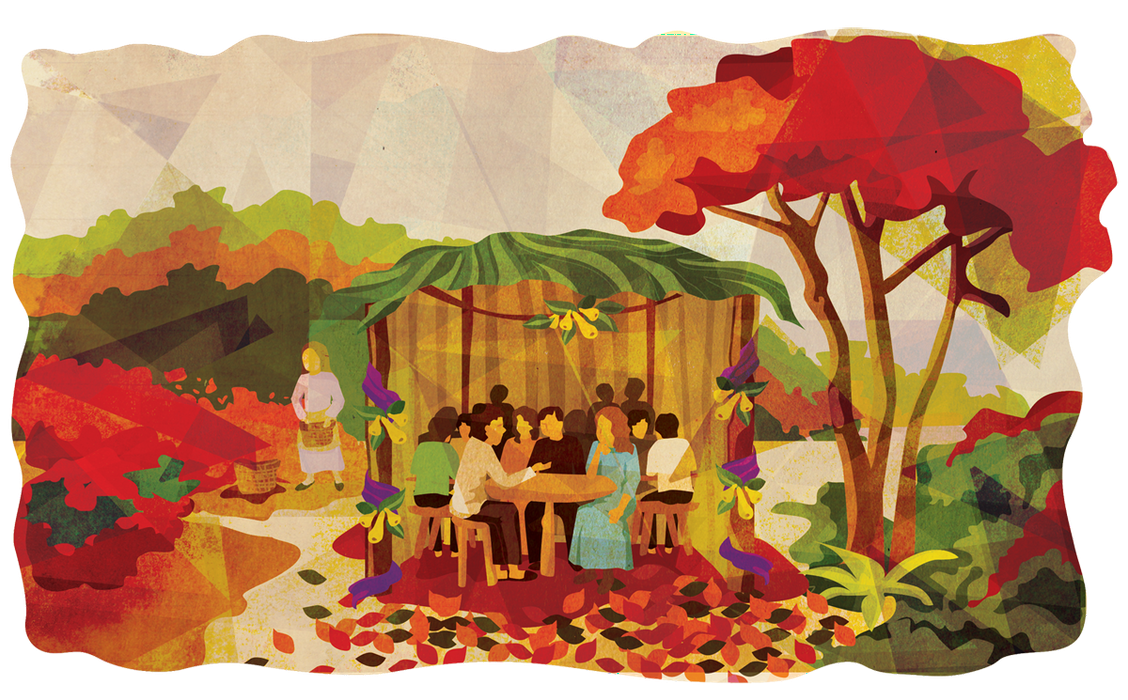
October 7, 2022 | Parshat Ha'azinu
Before there's even time to breathe after Yom Kippur we launch into high gear for Sukkot - the Festival of Joy.
We live in the most comfortable time in history. Our homes are fitted with running water, electric lighting, and heating. We have leisure time, a concept that would have been foreign to the average person not too long ago. We have infinite information at our fingertips. We can travel the world in just hours. We can video chat with anyone anywhere in real-time.
Yet we are not, as a society, happier than our ancestors were. Depression is rampant. Suicide rates are high. Overall, we have a hard time finding real happiness.
The subliminal message that today’s society preaches is that to be happy you must buy the latest gadget, upgrade to a fancier car, or build a nicer home. But this formula for happiness isn't working.
Sukkot, the Festival of Joy, teaches an alternative formula for happiness.
To experience the joy of Sukkot we step out of the comfort of our homes, leaving behind our elaborate furniture and treasured belongings, and embrace the fragile structure of the Sukkah.
To be happy, Sukkot teaches, we have to focus less on what we have and more on who we are. Happiness is the experience of living a life that expresses who you are, and of being true to yourself. External possessions and stimuli only distract you from knowing and experiencing yourself.
The Sukkah teaches us to be vulnerable and allow ourselves to be fragile. It teaches us to let go of the expectations we have for ourselves and the images we try to project of ourselves and accept who we are as a work in progress. It teaches us to strip away our masks and be comfortable in our rawness and metaphoric nakedness.
When we step beyond the facade of possessions and status and begin to feel ourselves, we can begin to feel happy.
But Sukkot takes that teaching one step further. The Sukkah structure is meant to recall the clouds of glory that protected our ancestors in the desert. G-d's presence was palpable to the newly founded nation as they wandered in the wilderness.
When we let go of the self we have artificially created, we can feel the self that G-d created. When we let go of the version of ourselves that we have created in the image of others, we can experience the self that is created in G-d's image.
By stripping away the barriers we have erected for ourselves - and going into the Sukkah - we can sense our inner soul, and by extension, G-d's presence. And that is the greatest experience of happiness we can have.
I hope you can join us to celebrate in the Sukkah - on Friday, October 14 - at Shabbat in the Hut.
Shabbat Shalom and Chag Sameach!
Rabbi Menashe
The Year of Gathering

September 30, 2022 | Parshat Vayelech
This week's message is a little longer than usual and is an excerpt of my sermon at Dirah on the First Day of Rosh Hashanah. If you haven’t yet, please make your reservations for Yom Kippur here.
This year is a special year. Well, every year is special - the Kabbalists speak of the brand new energy that each year brings - but this year is especially so. It is the year of Hakhel. A year of community.
We all know the value of community. Last summer, the air conditioner in my kids' room broke. It was a sweltering hot day, and I needed a replacement urgently. Before going out to buy a new one, I posted on the Buy Nothing Facebook group to see if anyone had a unit that they no longer needed. That same day I was able to pick one up from a neighbor. And we both gained: I got a working AC and they felt good that they helped a neighbor - and got a chunky unit out of their storage space.
But there's more to a community than just mutual benefit.
In Temple times, every seven years was Shemitah - a Sabbatical year for the land and farmers. This past year was a Shemitah year, and farmers across Israel took a year off from working the land.
Following the Shemitah year, there was a mass gathering on Sukkot of the next year. A gathering called Hakhel.
Millions of Jews from around the world - men, women, and children - would make a pilgrimage to Jerusalem and gather in the Temple. The highlight of the event was the reading of the Torah from the King, the leader. It would have been a sight to see: the streets of Jerusalem flowing with flocks of diverse Jews all heading to, and spilling out of, the Temple. The Temple itself would have been bursting at the seams, with people packed in like sardines.
What was the point of this gathering? I can only imagine that most people weren't able to hear. Even those that heard, plenty wouldn't have understood the Biblical passages being read. The young children who were shlepped along definitely didn't appreciate the reading. Yet they all came; Torah instructs everyone to gather (in this week's Parshah) and gather they did. In truth, the Jews didn’t come to see or to hear. They came to gather. To experience.
You see, there's something incredibly powerful about community. Something more than just functional.
I once learned from Rabbi Jonathan Sacks that there are actually three terms for community employed in Jewish tradition: Edah, Tzibur, and Kehilah. Although used interchangeably, they differ slightly in their connotation. Edah (literally, witnesses) is a group bound by shared experience and fate. They have a strong sense of collective identity. Tzibur (literally, pile) connotes a group that is diverse and fragmented. They are bound by nothing more than proximity. Kehilah (literally, gathering) is a different type of community. It describes a group of different and diverse people who are bound by a collective goal. They are united by a sense of belonging to something larger than themselves. This is the ideal Jewish community. This is what the Hakhel gathering (from the root Kehilah) accomplished.
This form of community was highlighted in the aftermath of the Golden Calf. When Moses came down the mountain and witnessed the betrayal of the Golden Calf, he smashed the Tablets in protest. Just weeks after experiencing the Divine revelation, the new nation had served a foreign deity.
Now Moses faces the herculean task of regrouping the Jewish and helping them recover from this tragic mistake. The first thing that Moses did to restore the Jewish nation was to gather them together. Vayakhel.
Moses knew that the antidote to the Golden Calf, the strength of the Jewish people, was to be found in sacred community. In Kehilah. In uniting the people for one goal.
At that moment of gathering, he taught them two Mitzvot: to observe Shabbat - a holy day of rest - and to build the Mishkan - the sacred home for G-d. In these two commandments, he shared the secret to community building. For a community to form it has to be driven by a goal higher than itself. Shabbat creates a community in time and the Mishkan a community in space.
For better or worse, work divides us. Some people have great jobs while others work menial jobs at minimum wage. Others still are out of work altogether. In the workplace, we're all looking out for our own individual interests. But Shabbat is the great equalizer. We all rest the same. During the week we are creators - and we create differently, even competitively. On Shabbat, we step back to appreciate our role as creations of G-d, and that unites us. Shabbat designates one day of the week for us to be together. To be equals in a shared mission and faith.
Our homes also separate us. The walls of our houses create boundaries. My home is my space and your home is yours. Some homes are beautifully decorated with expensive furniture while others are sparse and simple. But the sacred communal space of the Temple belongs to everyone equally. It is where we come together seeking truth, transcendence, and G-d. In that search, we are all equal. As Shabbat does in time, the Temple designates a geographic place where we feel as one and join together in community.
The point of the Hakhel gathering was not (just) to hear the Torah being read. It was for Jews to gather and feel a part of one nation. It was for every single Jew to feel they belonged. They belong to something larger than themselves. To sense their collective faith in G-d. The mass gathering created a community. It formed a Kehilah.
This year is the year of Hakhel. And it couldn't have come at a better time. We need it now more than ever. After over two years of being wary to gather, we need the warm embrace of community. After more than two years of hesitating to join gatherings, we need to grab every opportunity to get together.
In the Hakhel of old, the priests would walk the streets blowing trumpets, calling everyone to gather. Today, in the absence of the Temple, we are all priests. We can all be ambassadors of gathering. Find every excuse to bring people together. Bring your family together on every possible occasion. Bring your co-workers together for a party or a discussion. Invite friends to your home for a Shabbat dinner. Host gatherings of all types. Include people in your micro-community. And together we can all join in the macro-community.
At Dirah, we are making every effort to increase community and gather together more often. We are undertaking two initiatives to mark the Year of Gathering. Following the two-pronged community building plan of Moses, we'll be increasing community in time and space.
1. Community in Time: We will be having Shabbat services every Friday evening. Instead of periodical Kabbalah Shabbat, we'll now be gathering every week.
2. Community in Space: It is a dream of ours that Dirah can secure a permanent space, which would enable us to increase our programming and bring everyone together more. G-d willing, this will be the year! In the meantime, in the absence of our own formal space, we can make every home into a sacred space of community. We are offering you to host a study/discussion group in your home. Invite a few friends, choose a topic, and we will come over to lead a discussion.
I hope we can all participate together in this Year of Gathering and continue to build and nurture our wonderful community.
I am looking forward to seeing you all at these gatherings!
Shana Tova and Shabbat Shalom,
Rabbi Menashe
Renewal and Rosh Hashanah

September 23, 2022 | Parshat Nitzavim
Something most of us have learned the hard way is that we need sleep to function.
For a long time, this phenomenon bothered me, partly because sleep eats up so much of our lives, and partly because I didn't understand why it had to be this way. Couldn't G-d engineer a more efficient product? Couldn't we have been designed to have enough energy to last a lifetime?
Lately, though, I have come to appreciate the brilliance of this biological design. It's not only the body that needs to rest each day, the conscious soul needs to too. Sleep makes each day a fresh experience. Imagine you had a really bad day, and by the time night rolls around, you are sad, annoyed, and not in the mood for anything. If your day would continue forever you would be stuck in that cycle of depression. Instead, you go to sleep and wake up reenergized. In the morning you are a new person with new energy, ready for a new start.
By forcing us to reset ourselves in order to reenergize, G-d ensured a fresh start every day. Each morning, the soul returns like a new birth, giving us a lease of life.
Spiritually the same thing happens to the world on Rosh Hashanah. Each New Year the world is invested with energy to sustain it for one year. According to the Kabbalists, on the eve of Rosh Hashanah, there's a moment of cosmic sleep before a rebirth when new energy invigorates the world for the new year.
G-d could have invested energy at creation that would sustain the world forever, but He chose to provide one year of life at a time, to make each year new. Just like you feel refreshed each morning, on a much larger scale, Rosh Hashanah is a potent time to refresh your life.
What does this rebirth look like? How can we access this renewal and harness it to make refreshing changes in our lives? This is one of the themes that we’ll be exploring throughout the Rosh Hashanah explanatory services this week - and something that is embedded in the sounding of the Shofar. I hope you can join me to participate in the discussion and hear the piercing sounds of the Shofar.
Shabbat Shalom,
Rabbi Menashe
Don’t Give Charity

September 16, 2022 | Parshat Ki Tavo
Judaism doesn't believe in charity. The closest word in Hebrew is Tzedakah, which is rooted in Tezedek - justice or righteousness. Giving to the poor is a responsibility not a luxury.
The social contract outlined in Torah is as radical as it is simple. Every producing person has to set aside a (somewhat significant) portion of their earnings to give to those less fortunate.
In the ancient agricultural society there was a complex 7-year cycle of taxes and tithes, as we read this week: “When you have finished tithing all the tithes of your produce in the third year, the year of the tithe, you shall give [them] to the Levite, the stranger, the orphan, and the widow, so that they can eat to satiety in your cities." But the modern application is much simpler: Designate 10% of your net income to give to those in need.
It's not an easy thing to part with your hard-earned money, especially if you yourself are just getting by or even struggling yourself. But a simple re-framing of perspective can make it easier.
As hard as you've worked to get where you are and bring in the money that you do, there's a great deal of good fortune that has gotten you there. The income that you have is a blessing from above. This is true whether you are living very comfortably or pinching pennies. The amount that you make, however much or little, is somewhat beyond your control - a gift from G-d. And He has earmarked part of that blessing for others. In His kindness, G-d has designated you to be a banker, trusting you with the finances that are meant to be passed on to help others.
This is a profound Jewish value that can change the way we look at and interact with the less fortunate. Personally, I have implemented this into my banking and it's a game-changer. We created a separate Tzedaka checking account. Every time we deposit our earnings, we transfer 10% of it to that account. That money isn't for us. When someone needs our help or an organization reaches out for funds we are so happy to give. We don't feel a pinch or the slightest hesitation. The money is literally sitting there waiting for us to give it to them.
With this attitude you never "give charity". You're not giving of your money to the less fortunate; their money was temporarily entrusted in your hands. You don't feel pained when you encounter someone in need and have to dip in to your account to help them. You're not parting with your money. Instead, you have a fund that you are looking to distribute. There's a pool of income that is designated for the less fortunate and you are the trustee.
We are promised in Torah that when we give graciously, we also gain: "You shall surely give him, and your heart shall not be grieved when you give to him; for because of this thing the Lord, your God, will bless you in all your work and in all your endeavors." If we open our hearts and hands to those that need, G-d will open the channels of blessings for us too.
Shabbat Shalom,
Rabbi Menashe
Don’t Fall Off the Roofs You Build
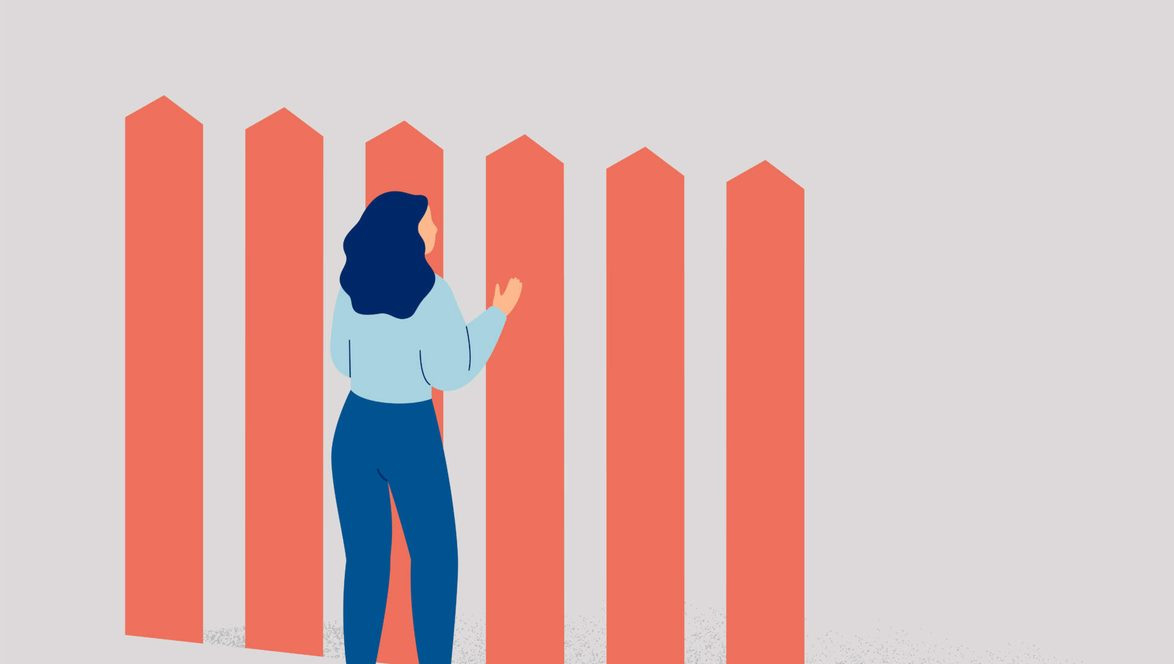
September 09, 2022 | Parshat Ki Teitzei
The higher you climb the further you can fall. The more we progress as a society, the higher the stakes get. When you're at the peak, mistakes prove much more costly.
In this week's Torah portion, we read 74 of the 613 Mitzvahs (that's over 10%!). One of them is the responsibility of a homeowner to build a fence around the perimeter of their roof for safety: "When you build a new house, you shall make a guardrail for your roof, so that you shall not cause blood [to be spilled] in your house, lest someone fall from there."
Like everything in Torah, this idea operates on many levels. Beyond the practical function of the Mitzvah lies a conceptual reading with a spiritual and moral teaching.
To maintain the things we build, we have to create boundaries. If we permit ourselves to grow without limits, our successes end up being employed against their own interests. We have to have morals and values that guard our success and protect us from falling. We have to build fences around our buildings.
This is true of society at large and in our personal lives too. The most precious parts of our lives are the most fragile: our family relationships, our personal spiritual and mental health and even our material successes. We have to create healthy boundaries and center ourselves to our core ideals and values to ensure that we can stand atop of our achievements and not allow them to bring us down.
The Mitzvot, rituals and values within Judaism provide a healthy framework for practical and spiritual boundaries that ensure the structures that we build throughout our lives are stable and protected. As we approach the New Year, let’s put some thought into investing in these fences. What Mitzvah can you add that will center you and ground you in a healthy way?
Shabbat Shalom,
Rabbi Menashe
A Spiritual Safe Space

September 2, 2022 | Parshat Shoftim
Do you have a sanctuary to immerse yourself in to escape from your worries and fears? Is there an activity that you do to reconnect with yourself and leave behind the stresses of the workday, the pressures of society and the craziness of life? Where - or what - is your personal refuge?
When the Jews entered Israel they were charged with establishing Cities of Refuge. These spaces were designed to provide accidental killers a place to run to and find safety from the relatives of the dead who may be after their blood. But more than just being places of safety, the Cities of Refuge also served as remedial programs, providing the accidental killer with the time and resources to immerse themselves in Torah study, giving them an opportunity to consider the gravity of their actions and atone for their behavior.
Like the geographical places that provided protection for people on the run, there are conceptual places of refuge that can provide mental and spiritual safety from the negativity of this world. The Torah, the divine wisdom that is accessed through the study of our texts and traditions, has been a refuge for Jews for millennia. Immersion in the study of the transcendent wisdom has allowed us to survive as a people for thousands of years, shielding us from forces - both physical and spiritual - that have threatened to destroy us.
Today more than ever, we could benefit from temporary escapes into the wellsprings of Torah. Wherever we turn, we are constantly being hounded with ideas trying to influence our minds and hearts. From brands pushing their products on billboards and social media to commentators selling their beliefs on the radio and TV, our society is an endless marketplace of ideas competing for our attention. With all of the noise and distraction, it’s hard to know what is real, and even harder to remain true to who we really are.
Torah study anchors us in a transcendental truth, provides the wisdom and tools to live an enriching life, and gives us insight into our inner selves. Spending a few minutes each day engaging with Torah texts, can give us context and perspective to understand the world and help shape the narratives of our lives. The spiritual depth and practical wisdom in the Torah texts are the perfect antidotes to the craziness of the world we live in.
The month leading to Rosh Hashanah - Elul - has been labeled the City of Refuge in time. It is an opportunity to step back before the New Year and realign ourselves with our calling and begin the new year on the right foot.
Shabbat Shalom,
Rabbi Menashe
Now Is The Time To Climb
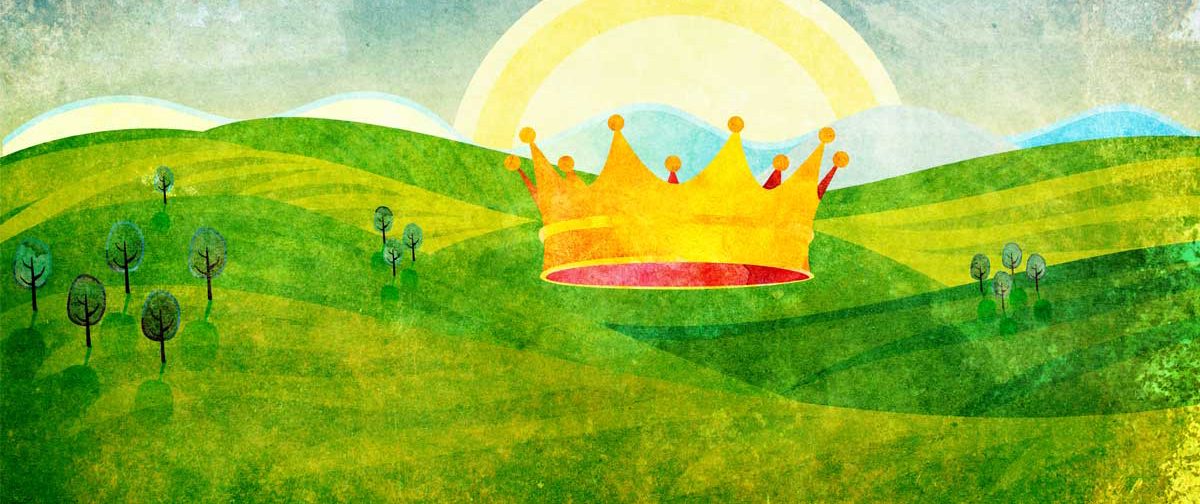
August 26, 2022 | Parshat Re'eh
Meaningful achievements come through consistent effort and disciplined preparation. To run the marathon, you need to train for weeks. To read your Bar Mitzvah portion, you need to practice for months. To practice law or medicine, you need to study for years.
Spiritual achievements and experiences are no different. To grow and connect with something deeply, you have to prepare for it. Just like physical strength is built by exercise, spiritual growth is attained by ongoing intentional practice.
Rosh Hashanah and Yom Kippur are the big days on the Jewish calendar. They are the spiritual peaks of the year. But you can't reach the peak without first climbing the mountain. The Kabbalists pointed to the month leading up to the High Holidays, the Jewish month of Elul - which begins tomorrow - as the real time for growth. Like Rosh Hashanah, we blow the Shofar every day of Elul, but it’s a very different experience.
The founder of the Chabad movement, Rabbi Schneur Zalman of Liadi, likened the opportunity in Elul to a king traveling in the field. When the king is seated on his throne in the palace, access to him is limited. And even those that are allowed entry are humbled by the encounter. But when the king is traveling through the field everyone has access to him, no matter their social standings, worthiness or attire. And they can approach him in their work-clothes, in their natural environment.
The High Holidays are akin to visiting the king in the palace. The services are serious and solemn. We follow a precise formula of Shofar blowing, praying and fasting. The experience is deep and moving, but it's rigid and formal. It's disconnected from our real-life experience. We have to escape our regular routine to enter G-d's presence.
But in this month without Holidays, we have easier access to G-d and can connect with Him on our turf. We connect with Him within the course of our regular lives and work schedules. G-d is accessible to us wherever we are.
So don't wait for the High Holidays to get inspired. Instead, spend a couple of minutes each day for the next month doing something good. Add a prayer each day. Give a little extra charity. Spend a minute or two in spiritual self-reflection. These small steps will create real growth, and ensure a successful year ahead.
To capitalize on the potential of this month, I will be sharing a short thought every day (besides Shabbat) for the next month leading up to Rosh Hashanah exploring the spiritual themes of growth, repentance, and renewal. You can join these mini-lessons on our Facebook page and Youtube channel, or you can email me to have it sent to you.
Shabbat Shalom and Chodesh Tov,
Rabbi Menashe
The Blessing of Neediness

August 19, 2022 | Parshat Eikev
We hate having to rely on others. It's uncomfortable. It makes us feel weak. It means we can't do it ourselves. But this vulnerability is what creates relationships and community. If we were completely self-sufficient we'd never reach out to other people and build friendships. We wouldn't band together in communities to support each other. Our supposed weakness is really a strength.
The same is true on a broader scale with our collective relationship with G-d. When the Jews were about to enter Israel, Moses contrasted their new Homeland with the country they had come from: While the crops in Egypt were watered from the Nile River, Israel relied on rainwater to sustain its growth. In Egypt, the irrigation was man made and completely under the control of the people. In Israel, the rainwater was unpredictable and they would be at the will and mercy of forces beyond their control.
Moses wasn't trying to discourage the Jews on the eve of their long-awaited entry to Israel. Recognizing the limits of human ability and achievement and the inherent instability of our societies is actually a blessing. Acknowledging our weakness and limits causes us to reach out to the Creator and elicit His help. It opens a space to connect with G-d and develop a relationship with the Divine.
The Jews’ eventual dependency on a blessing of rain in Israel was actually a positive. It would ensure that they maintained a relationship with G-d and never forget about their Father in heaven. It would strengthen their faith and encourage a strong religious life. Their vulnerability was the cornerstone of their relationship with G-d.
We all have vulnerabilities and weaknesses. We can choose to let them weigh us down or allow them to be catalysts for strong relationships with our friends and neighbors, and with G-d.
Shabbat Shalom,
Rabbi Menashe
Life is a Jigsaw Puzzle
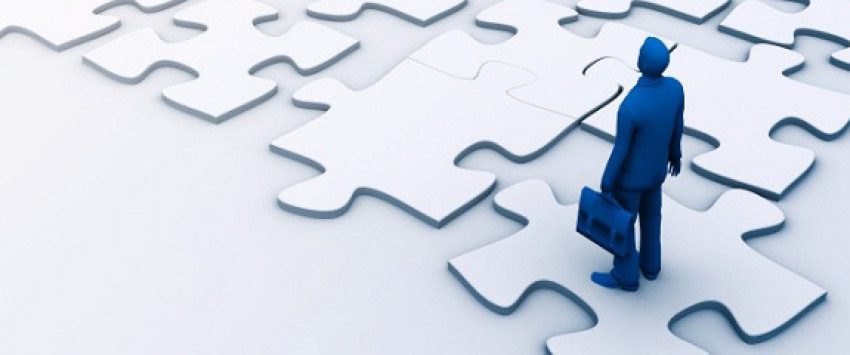
August 12, 2022 | Parshat Va’etchanan
Life is like a jigsaw puzzle. There are so many pieces that all look different and, at first, don't seem to fit together. But ultimately, the scattered pieces are part of one whole and match perfectly to collectively create a single picture.
The most basic Jewish belief is that there's one G-d. It's the first of the 10 Commandments. It is the highlight of the Shema. But what does it actually mean? It is not just a numbers game, one versus many, but a revolutionary shift in perspective.
Belief in monotheism is not only about G-d, but a perspective on our experience of reality too. Having one G-d means that there is order to the chaos. It means that there is a singular beginning of existence, and everything is a result of that oneness. It means that there is a unified purpose to all of life. It means that everything is here for a reason - including me and you. It means that all life is sacred.
In this week's Torah portion we read (Devarim 4:35) "that the Lord He is God; there is none else besides Him," and (Devarim 4:39) "that the Lord He is God in heaven above, and upon the earth below; there is none else." A careful reading shows that not only is there no other G-d besides Him, there is no other. Period. The Chassidic masters noticed this and highlighted it. We don't just believe in one G-d; we believe in Oneness, and that is G-d. Every part of life and existence is a fragment of the Singularity. Everything is G-d.
Like pieces of a puzzle, the myriad details that make up our lives and all of reality are each seemingly separate. They have different colors, designs, and shapes. Each is unique. But together they form a unified picture. When pieced together, you can see that all along they were part of one whole.
Just knowing that we are all pieces of one large puzzle is comforting. Recognizing that there's a unified purpose and plan, even without knowing what it is, changes our perspective. But we shouldn't stop there.
G-d created the splintered puzzle and handed it over to us with a tutorial to help us piece it together. He gave us the Torah, the blueprint of the world. The moral, spiritual and practical guidance in Torah provides the bigger picture that we can work off to repair the fractured world. Every Mitzvah that we do creates harmony. Each good deed fits pieces together and allows some of the bigger picture to shine through.
Our role is to return the fragmented pieces of reality to their Oneness. To connect each dot to its source in the Creator and uncover the spirituality in every piece of existence. To fit the pieces together to create a singular beautiful picture - a utopian society that is in sync with its purpose and creator. This is the Messianic reality that we are waiting for, praying for, and most of all bringing about through our actions.
Shabbat Shalom!
Rabbi Menashe
Disagree with Dignity
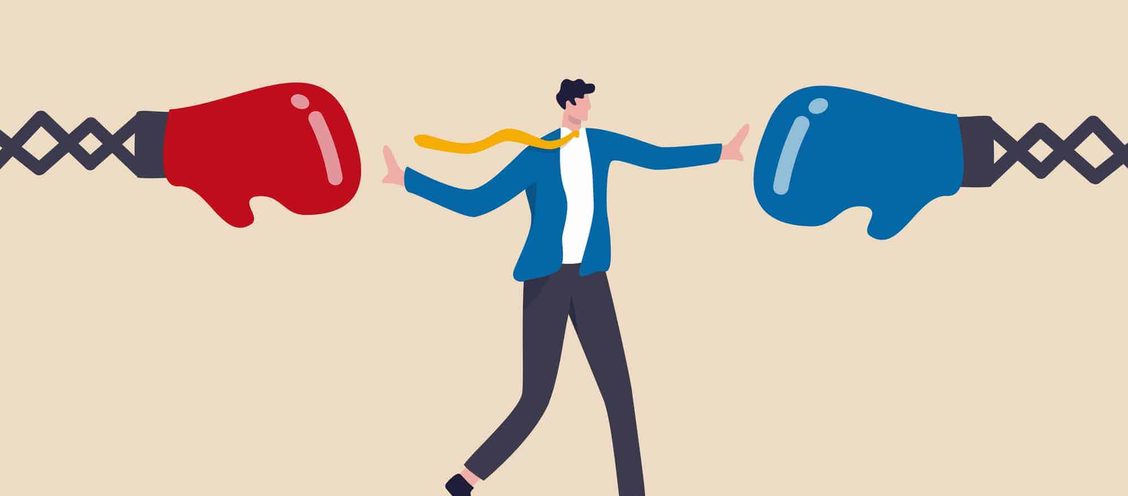
August 5, 2022 | Parshat Devarim
We all dream of a kinder and more respectful world. But what does such a world look like?
Do we hope for a time when everyone agrees about everything? Such a society would be boring, unimaginative, and suppressive.
Do we wish for a world of radical acceptance, where everyone is free to say and do what they want? That would lead to anarchy and an immoral society where people get away with everything.
The truth is that we are all different, and it's only natural that we see things differently. Being accepting doesn't mean that you can't disagree - just do so respectfully. Being kind doesn't mean you have to let everyone do what they want - just tell them off with dignity.
This week we begin the 5th book of the Torah, Devarim (Deuteronomy) where Moses spends the final 37 days of his life lecturing the Jewish people (a sermon that spans the entire book of Devarim), using their past mistakes as a springboard for an ethical and spiritual vision for their future in Israel.
Moses could have let the Jews' past mistakes slide - let bygones be bygone. He could have ended his career (and life) on a high note, being adored by the people. But Moses knew that these were important lessons, and it would be beneficial for the Jews to hear this criticism, even if it would make him less popular. To ignore their past failings would be to accept them, and not help the people learn and grow.
So he set about preaching to the people, but he framed his strong rebuke in the most respectful way. Even though his criticism was pretty harsh, Jewish tradition sees it as an exemplar of sensitive dialogue. Here are a number of examples:
▪ Moses waited until the end of his life to air his criticism. The Midrash (Sifrei Devarim 2) learns from Moses: "There are four reasons why you should rebuke someone close to your death: So you don't rebuke them repeatedly; so they don't feel shame in your presence; so you don't bear a grudge in your heart (for the rebuke not being heeded); and so that the rebuke leads to peace."
▪ Moses used vague references to their failings instead of spelling out their mistakes publicly. Rashi points this out in his commentary: "it makes no explicit mention of the incidents [in which they transgressed], but rather merely alludes to them, [by mentioning the names of the places] out of respect for Israel"
▪ Moses gathered all of the Jews together to tell them off. The Midrash explains that this was to give everyone a fair chance to defend themselves.
Moses' example teaches us how to disagree with dignity, rebuke with respect, and maintain respectful conversation even when we feel that others are wrong or have made terrible mistakes. Using this template, our society can be kind and embracing even while having absolute standards, and we can all be respectful to everyone even while strongly disagreeing with them.
This Shabbat is the 9th of Av - the anniversary of the destruction of the Temples. Because we don't want to display sadness on Shabbat, we observe the mourning rituals and the fast of Tisha B'av on Sunday. According to tradition, the Temple was destroyed on account of baseless hatred and Jewish infighting. It stands to reason, then, that through love and acceptance we can bring about its renewal. While we mourn the loss of the Temple this week, let's take a lesson from Moses and make an effort to treat everyone with respect and dignity and show sensitivity to others, even those we disagree with.
Wishing you an easy and meaningful Tisha B’av.
Shabbat Shalom,
Rabbi Menashe
The Journey is the Destination

July 29, 2022 | Parshat Matot-Masei
Imagine a person who has been put on a diet. On their way home, they walk by a café and see their favorite dish being served. They're tempted to go in and order it, but knowing that their new diet doesn't allow it, they control themselves and walk on. As they keep walking, the urge grows stronger. Finally, after 10 minutes of struggle, they succumb and walk back to order the dish for lunch.
Conventional wisdom looks at this person as having failed. They didn't keep to their diet. Our society rewards people for results, not efforts. We celebrate reaching our goals, and don't care much for the work it takes to get there. The bottom line is the only thing that matters.
But what would the dieter's personal coach say? "Wow! You controlled your urge for a whole ten minutes. What an amazing start!" Looking at the person and valuing their struggles helps appreciate how each moment of control is a success.
This week's Torah reading details the Jews' encampments throughout their 40 years in the desert. Although it records the destinations they camped at, it is titled Masei - Journeys, emphasizing their efforts along the way. There's an old adage: "Fool's gold is at the end of the rainbow. The real gold is on the way." More important than where the Jews reached is what they did to get there. Every day is another story, and every moment another battle. Each small step in the right direction is a giant leap and each little victory is invaluable.
The Baal Shem Tov taught that the 42 journeys of the Jews from the birth of the nation until it reached its Homeland are reflected in each of our lives. We go through many stages and phases, challenges and successes. At different times in our lives, we are camped in different places - geographically, mentally, and emotionally. Yet we aren’t defined by the places we’ve reached, but by the journeys we’ve undertaken to get there.
G-d sees each person as an individual and each moment as eternity. He is like a personal coach who recognizes our struggles and appreciates our progress. This is a profound mindset shift. Life isn't about succeeding, but about trying your hardest. You are not judged by your overall achievements, but by your performance each moment. Success is not measured by which rung of the ladder you've reached, but by the direction that you're headed. The journey is the destination.
If you're going through a challenging time - know that the place you are in now is only temporary; it is for some reason a part of the journey to your Promised Land. If you are fairly comfortable in your current place in life - know that you have further to go and grow. Don't be complacent. Journey on.
Shabbat Shalom,
Rabbi Menashe
Making Daily Sacrifices

July 22, 2022 | Parshat Pinchas
After I pulled some muscles in my neck a couple of weeks ago I made a commitment to exercise regularly. I got in touch with a friend, who is a workout enthusiast, to help create a workout routine.
After sending me a daily routine, he emphasized that more important than what I do each day is that I do something every day. The best workout routine is the one you do consistently. The ideal exercise plan is not an occasional workout, but a steady routine.
It turns out that the soul operates the same way as the body.
There's a wonderful debate in the Midrash about which verse in the Torah is the most important. Several rabbis offer conventional responses: "Love your neighbor as yourself" and "Hear O Israel, the Lord is our G-d, the Lord is one" among them. One of the group, Rabbi Shimon ben Pazi, suggests an unlikely verse about the daily Temple offerings from this week's Torah portion, that the Midrash ends up siding with: "The first lamb you shall sacrifice in the morning and the second lamb you shall sacrifice in the evening."
Of all the theological principles and social values in the Torah, is the daily sacrifice really the most foundational?
It's not the meaning of the sacrifice that makes it the most important verse, but the fact that the same exact sacrifice was offered every morning and evening without exception. There are plenty of Jewish highlights, practices, and ideas that excite the mind and warm the heart - these are the heavy workouts for the soul. But more important than these big ideas is the ongoing commitment to Jewish living day in and day out.
Our relationship with G-d is cemented in the consistent effort we invest. If a commitment to daily implementation is missing, all of the big ideas are worthless. And if it's there, everything will come along with it. Just like a relationship is built on consistent expressions of love over the occasional expensive gift, G-d appreciates our consistent sacrifices. Our souls are nourished by the small good things we put into our regular routine.
And the verse emphasizes a need for consistency in the morning - the bright times in our life when we are inspired to follow through on our commitments, and in the evening - the dark and challenging times when we may not be in the mood.
It could be a commitment to pray every day or light Shabbat candles on a consistent weekly basis or have regular Torah study sessions. These commitments don't make the headlines and may not make you feel inspired, but they are your ongoing expressions of commitment to Judaism. They are the ideal workout for the growth of your soul relationship with G-d.
Shabbat Shalom,
Rabbi Menashe
A New Appreciation for Stars
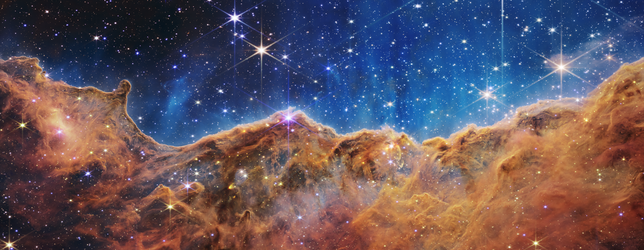
July 15, 2022 | Parshat Balak
It's hard to do it in Brooklyn, but there's something magical about looking up at the sky on a clear night and seeing the dazzling array of stars. Tiny specks of light dot the night sky in a mesmerizing pattern, serving as a window into the vast universe around us.
Now that inspiring sight is but a few thousand stars that can be seen with a naked eye. Earilier this week NASA released pictures from its James Webb Telescope that were absolutely beautiful and inspiring. It's beyond me to fully appreciate the scope of what they portray, but at the very least they paint a vivid picture of a world so vast and detailed. Scientists estimate that there are 200,000,000,000,000,000,000,000 stars out there in the universe! Each of those stars is a world of its own, being born into existence with a dazzling array of radiation light and dust. Each with its unique age and frequency.
Before the telescope was dreamed of, only one person had ever seen the stars from this angle. In Genesis, G-d took Abraham on a journey beyond the Earth's atmosphere and told him "Look at the stars. Are you able to count them?" Abraham saw the cosmic light show and was blown away. G-d promised him that his offspring will be as astounding. In this week's Torah portion, the non-Jewish prophet Bilam blesses the Jews with the same symbolism: "A star goes forth from Jacob."
We can look at the images of the vast universe and dizzying number of stars and be impressed at how small and insignificant we are, or we can marvel at it in awe of the One who created it all. We are told that G-d counts the stars and individually names each one of them (Psalms 147). It may be beyond us to appreciate, but every one of those balls of energy has a unique identity, purpose, and function.
Like stars, each of us shine individually and uniquely. From our vantage point on earth, the stars in the heaven seem tiny and insignificant. But when you see them up close, you realize how powerful, significant and bright each one is. Humans are the same. We sometimes feel so small and insignificant. Or we judge others to be insignificant But when you zoom in on each individual person, we are all incredibly majestic and beautiful bundles of light, radiating positive energy.
And like stars that historically served as guides in the dark night, we each radiate a bright light that can positivley influence our surroundings and be a moral and spiritual guide to the world around us.
Shabbat Shalom,
Rabbi Menashe
Is the Universe on Your Side?
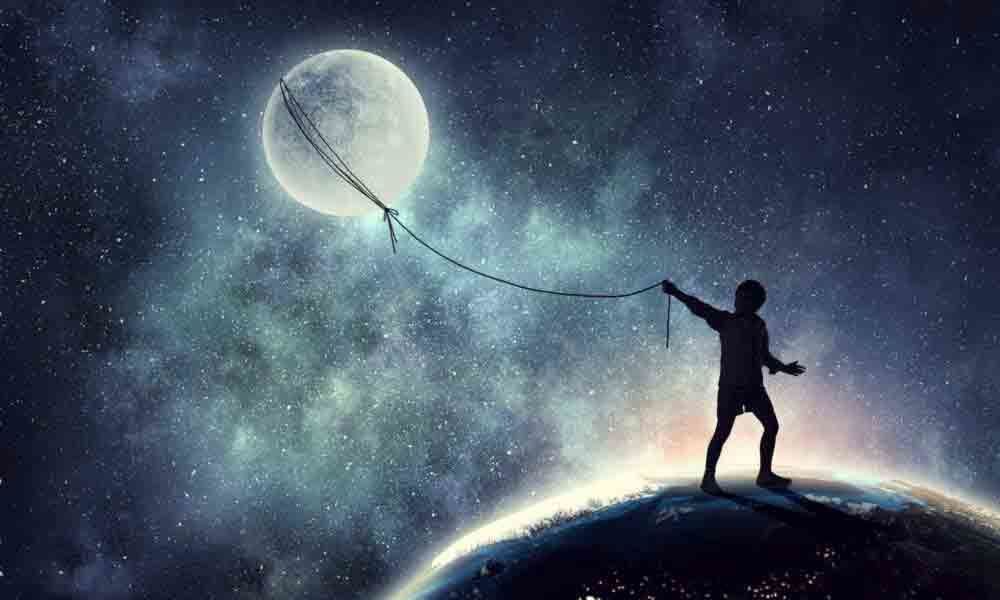
July 8, 2022 | Parshat Chukat
Have you ever felt that the universe was on your side and everything just worked out and fell into place the way you wished it to? Or, the opposite, have you sensed a negative force that made every little thing into a giant task?
According to the Jewish mystics you might not have been imagining this. And what's more, the spiritual teachings of Kabbalah and Chassidus explain that reality is shaped by our attitudes and whether things beyond your control work in your favor may very well be caused by your mindset.
This Chassidic variation of the law of attraction is highlighted in this week’s Parshah. After Miriam died the miraculous rock that provided water to the wandering Jews in the desert dried up. The people quickly became thirsty and complained to Moses. G-d instructed him to speak to the rock and it will produce water.
As Moses approached the rock, he turned to the onlooking nation in a fit of anger and said: "Now listen, you rebels, can we draw water for you from this rock?" Then, instead of talking to the rock, he struck it with his staff and water flowed.
Moses had been instructed to talk to the rock, not hit it. The greatest of all Jewish leaders had faltered. G-d was disappointed at the missed opportunity to sanctify Him and it was this mistake that ultimately cost Moses his opportunity to lead the Jews into the land of Israel.
Why did Moses hit the rock instead of talking to it? And why was that such a big deal?
The Chassidic master, Rabbi Levi Yitzchak of Berditchev, provides a deep insight into this story. G-d designed the world to facilitate humanity's quest to live an elevated life. As long as we live in sync with this vision - a life of kindness, respect, and meaning - the world will naturally - by design - conform to assist us. But when we lose sight of the divine purpose in our lives and the depth and value of other people, we undermine this hierarchy and reality doesn't bend to the mental space we occupy.
Were Moses to have been in an inspired mood, the inanimate rock would have conformed to his will and provided water at his request. But in his dispirited state of anger, when he was momentarily blinded to the Jews’ beautiful potential, he didn't see the world as a reflection of G-d. In that moment of failure, the rock wasn’t beholden to him. It would not conform to his word without being forced to by the hit of his stick and he had no choice but to hit the rock. Hitting the rock was only a symptom of the problem; his sin was losing faith in his people and in the divine image inherent within them.
When we have sincere faith amazing things happen. When we are inspired by our purpose in this world and inspired to see the beautiful divine depth in every person around us, we sense the beauty and harmony in the world. And reality around us aligns itself to confirm that. Things fall into place for us. Things work out in ways we could never have expected. When we aim to uplift people, doors open up for us. When we try to make the world a more G-dly place, nature becomes our assistant.
Shabbat Shalom,
Rabbi Menashe
What Defines a Good Leader?
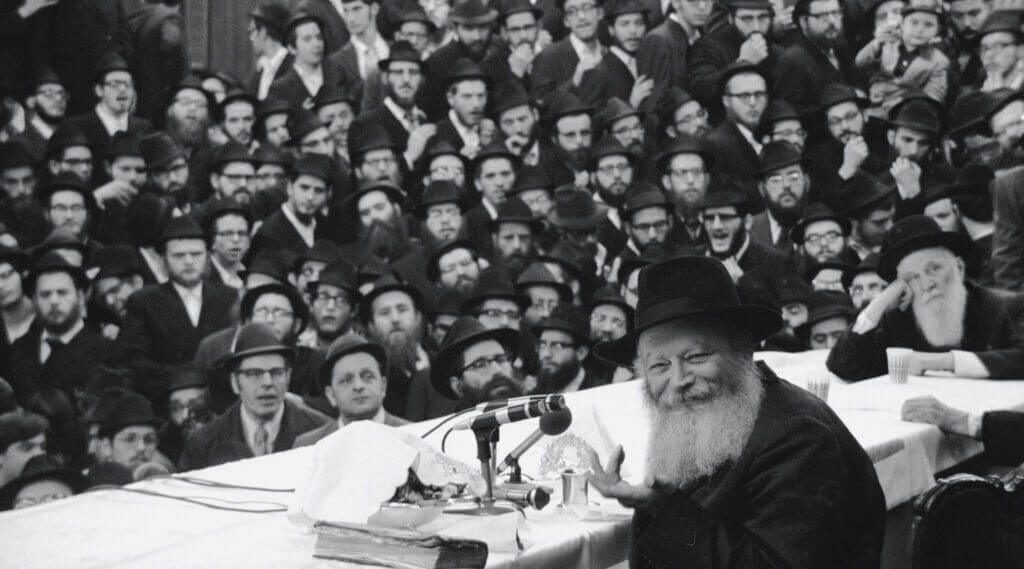
July 1, 2022 | Parshat Korach
It was a political scandal that threatened to tear apart the Jewish community. Moshe had appointed his brother Aaron to the position of High Priest, and people complained of nepotism. Korach, Moshe and Aaron's relative, riled up his friends and neighbors and led a rebellion against his cousins.
After the attempted coup was quashed, G-d designed a test to prove the legitimacy of Aaron's appointment. Each tribe would put forward a barren staff to be placed together in the Temple. The staff that blossomed overnight would determine who G-d had chosen to be the spiritual leader. Indeed, Aaron's staff blossomed supernaturally and sprouted almonds, while the others remained plain.
The test was meant not only to show who should lead, but to teach what leadership is. The role of a leader is to see people's potential and help them blossom. A leader is someone that can take a barren staff--a dry, lifeless stick--and make it flower. Every person is created in G-d's image and has a unique and incredible potential. A true leader recognizes that and knows how to unlock that potential and help the person utilize it.
For me personally, and for the Jewish world at large, this Shabbat is a very special day - marking 28 years since the passing of the Rebbe - my mentor and spiritual guide to millions. The Rebbe was a profound leader and visionary who inspired and led a Jewish renaissance in post-Holocaust Judaism - perpetuated by a cadre of thousands of Chabad Shluchim couples around the globe. Although time keeps pushing us further from when the Rebbe lived and breathed among us, his leadership and impact only continues to grow.
There are many things to say about the Rebbe, but one thing stands out in particular. He genuinely cared for every individual. He saw each person’s potential and did what he could to help them blossom. He sensed their divine soul and fanned its flames. He encouraged and guided people to unleash their unique spirit and often saw in them budding talents and a flowering potential that they themselves were unaware of.
To the community leader struggling with self-doubt, the Rebbe helped him see his value and impact. When Elie Weisel had lost his ability to feel after the Holocaust, the Rebbe restored his faith in himself and G-d. One person the Rebbe encouraged to become a rabbi; another he steered away from the rabbinate. Out of a genuine love for humanity, the Rebbe aimed to guide each person towards their unique calling.
Rabbi Jonathan Sacks summed it up well when he said about the Rebbe: "Good leaders create followers; great leaders create leaders."
Whether or not you consider yourself a follower, if you are reading this you have been impacted by his leadership. In honor of the Rebbe, do something extra this week to blossom a little more. Add a Mitzvah. Study a little Torah. Help a friend. Try your best to live up to your unique potential.
Shabbat Shalom,
Rabbi Menashe
Subjective Reality
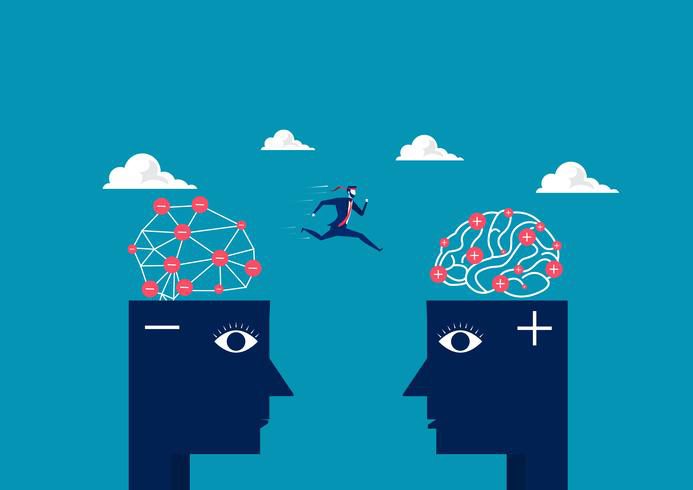
June 24, 2022 | Parshat Shelach
It is often hard to distinguish facts from opinion.
I have a pretty diverse social media feed. It never ceases to amaze me how every story can be painted in such different ways by different people - and somehow always in line with their respective views. Everyone is convinced that their spin on the story is an undeniable fact. It is as if there are multiple concurrent realities existing independent of each other.
But this is not a new phenomenon. There's precedent for it in this week's Parsha.
The Jews had sent a delegation of leaders on a mission to scout out the land of Israel in anticipation of their advancement to conquer it. Of the twelve representatives that were sent, 10 came back with a disparaging report (Bamidbar 13:28): "The people who inhabit the land are mighty" and (13:31) "they are too strong for us," and (13:32) "the land eats its inhabitants." The Promised Land, they claimed, was a sham. Only two of the spies -Yehoshua and Calev - firmly disagreed with their colleagues' assessment and encouraged the nation (14:7-8): "The land we passed through to scout is an exceedingly good land. If the Lord desires us, He will bring us to this land and give it to us."
They had traveled across the same country, seen identical views, and interacted equally with the same locals. These were honest people ("men of distinction" - Bamidbar 13:2) and not suspect of projecting falsehoods to advance their agendas. How did a group of people who had toured the exact same country come back with such different reports? Which group was telling the truth?
The answer is simple and profound. There is no objective reality. We all experience the world around us through the deep-rooted filters of our mind. The spies each had life experiences, philosophical perspectives and spiritual expectations that shaped what they saw. They weren't distorting the facts, nor deliberately fitting them to their agendas. They were honestly describing the situation that they experienced. They all saw the same thing, but they each processed it differently.
Those spies that didn't feel comfortable about the conquest of Israel innately noticed the negatives and legitimately didn't see how or why they would conquer this land. Yehoshua and Calev, who both had profound humility and deep faith in G-d's words, were sure that this was the Promised Land. There was no question in their mind whether this land was appropriate or if conquest was feasible - G-d had told them that it was their destiny to own it.
Where the others saw obstacles they saw opportunity. Where the others noticed pain, they saw potential. While the others questioned if, they only wondered how.
With the gift of hindsight, we can learn from these two great Jewish leaders to shape our vision positively. When we are aware of our own inherent biases that shape our worldview, we can self-correct. Knowing that our minds are shading the reality we experience we can intentionally create positive biases that allow us to experience life with more happiness and fulfillment. We can almost choose our own reality. Developing a kind, positive, and tolerant posture will change the way we see the world and experience life.
Shabbat Shalom,
Rabbi Menashe
Breaking Down Religious Hierarchy
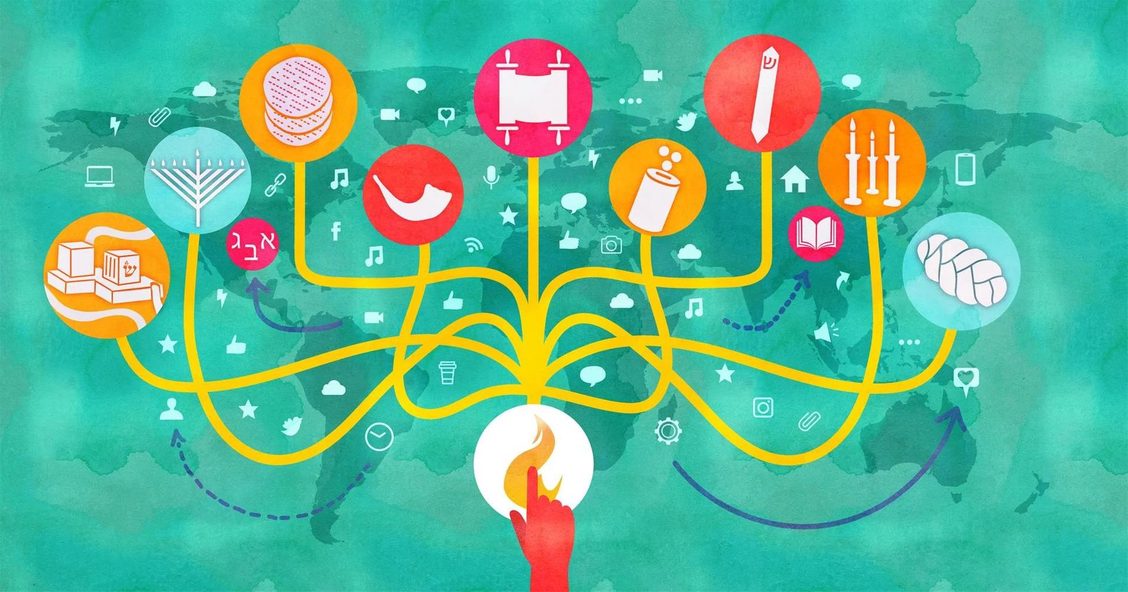
June 17, 2022 | Parshat Beha’alotecha
"If you are a rabbi," a child I was studying with recently asked me, "does that mean you're closer to G-d?"
Every part of our society is hierarchical; in schools and workplaces there are chains of authority; in politics and academics there are people closer to, and further from, the top of the ladder; there are the wealthy who have access to more, and the poor who have those channels closed to them. It's no wonder that the student thought the same about Judaism, that some people have a closer connection with - and deeper access to - G-d than others.
And while it's true of a Jewish community - only the Kohen could serve in the Temple, a rabbi may have religious authority, etc. - nothing could be further from the truth in regards to Judaism itself.
This week's portion talks about Aaron, the high priest, kindling the Menorah. The mystics explain the 7 branches of the candelabra as symbols of the diverse strands within the Jewish community. Each branch symbolized another type of person, with their unique way of thinking, believing and acting.
Every branch of the Menorah carried an equal flame, communicating an important and deep truth. There are many pathways to heaven. The flame, a symbol of a passionate relationship with G-d, can be accessed equally by everyone, regardless of their character, background and path in life.
We can each connect with the Divine with our unique set of qualities and circumstances. Each time we pray, do a Mitzvah or connect to G-d, we ignite the spark that burns bright in our souls and fuel the flame of sacred light.
If one of the branches wasn’t lit, the Menorah wasn’t complete. We need every one to contribute our unique light for our collective Menorah to spread its light and brighten the world.
Shabbat Shalom,
Rabbi Menashe
Be Unique, Not Different
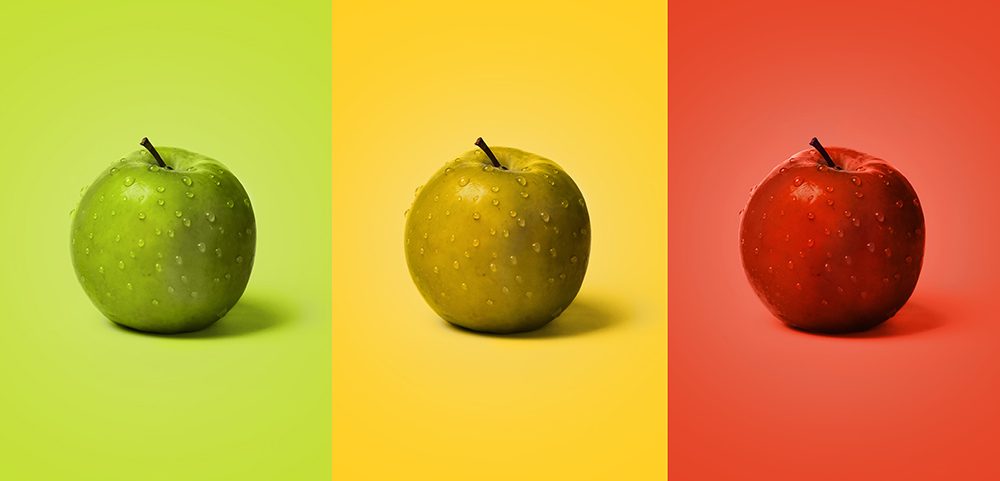
June 10, 2022 | Parshat Naso
Can you imagine what your Instagram feed would look like if every one of your friends posted the exact same pictures?
That's exactly how this week's Torah portion reads. To dedicate the Mishkan (the portable Temple that the Jews had in the desert), the leaders brought elaborate offerings on behalf of their tribes. They all gave the exact same offering, yet Torah lists each one individually, repeating the detailed description for each of the tribes. The redundancy makes this week's reading the longest of the year! Why wouldn't the Torah just say it once and tell us that each tribe brought that offering?
There's a deep lesson embedded here. You don't have to act differently to be unique. You don't have to rebel against the culture to express your individuality. When you invest your energy into something, it will stand out, even if other people are doing the exact same thing.
The leaders all gave the same offering to G-d, yet each one was different. The gifts may have looked the same on the surface, but the unique set of experiences and perspectives that they were brought with made them exceptional.
Going back to the Instagram feed. Imagine if your friends posted those identical pictures, but with different filters, hashtags and captions. That would make for an interesting browse.
This is an important lesson in all areas of our lives, and especially in Judaism. The Mitzvahs seem to try to make us conform, to behave the same way as everyone else: we all pray the same text, eat the same food and observe the same rituals. But nothing can be further from the true intent of Jewish practice. We may be posting the same picture, but with very different filters and hashtags. My prayers and your prayer - although maybe identical on paper - are outpourings of different hearts and souls. Your observance of Shabbat may look the same as mine, but it should feel a lot different. After all, your experience and appreciation of the day of rest is shaped by your life circumstances and experiences, something I'll never have.
Let's embrace our individuality, and appreciate its expression even in the common things we do.
Shabbat Shalom,
Rabbi Menashe
Stronger Together: A Shavuot Message
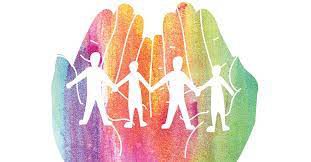
June 3, 2022 | Parshat Bamidbar
A man on his death bed summoned his children around him. Using his last ounces of energy, he handed each one a twig and asked them to break it. The children snapped their twigs with ease. Then he handed out a tied bundle of twigs. “Now,” he said, “please try breaking this bundle.” Despite their best efforts, none of the children succeeded. “You see,” said the father, “as long as you all remain united, nothing can ever break you. But if you decide to be on your own, be aware that a lone person is as feeble as a thin twig.”
This coming Sunday and Monday is the festival of Shavuot, the day G-d gave us the Torah. At Sinai, G-d insisted that everyone be in attendance, from the one-day-old baby to the weak and elderly senior, and everyone in between. In fact, the Midrash says that the souls of all future Jews - including each of us - were there too. Why was this so necessary? Couldn’t those who were there simply relay the message/experience to their families back at home?
G-d was teaching us that for this ‘Jewish idea’ to work it will require that we all do it together, in unison. No one can claim superiority or more rights to the Torah. Nobody can fulfill their G-d-given destiny on their own. We all need the support of the entire Jewish community.
Now more than ever we need to be strong and strengthen each other. Our strength comes from our shared vision, our unified voice, our unbreakable solidarity, and our love and concern for each other.
They say, “If you want to walk fast, walk alone. But if you want to walk far, walk together!” Let us go far, together. We are one people. Let us stand strong and proud. Let us lead the way in turning this world into a more peaceful and purposeful place.
Here's one practical way of uniting together: Jews across the world will be celebrating Shavuot by re-living the Sinai experience with a Torah reading of the 10 Commandments. Wherever you are, find a synagogue to go to on Sunday morning and unite with your brothers and sisters around the globe. If you are local, please join us at the Dirah Shavuot brunch and ice cream party on Sunday morning where we'll be reading the 10 Commandments. Scroll down for more information.
Shabbat Shalom and Chag Sameach,
Rabbi Menashe
A Spotlight on Lives Lost in Uvalde
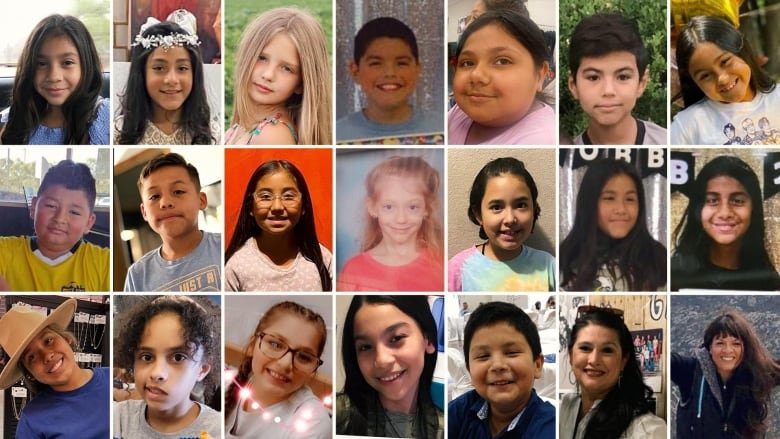
May 27, 2022 | Parshat Bechukosai
There was no mass shooting in Texas this week.
No, I'm not a conspiracy theorist or raving lunatic. My heart is broken over the senseless murders with the rest of the country. But I believe that we should retire “mass shooting” from our lexicon.
The term mass shooting lumps the victims together in one story. It focuses on the murderer and makes him the subject of the story. When our focus is on the victims, on the innocent and beautiful lives that were so viciously taken prematurely, each one is its own world. Each murder is a story of its own. There wasn't a mass murder. There were 21 murders.
This morning I read a short description of each one of the murdered. Each with their own life story, their hopes and dreams, and their own mourning family left behind. It wasn't one story of murder coming out of Uvalde. It was 21 stories.
I don't think that this is pure semantics. There are many factors that share responsibility for the overwhelming amount of violence in this country, but at the core of it all lies a basic lack of respect for others and a lack of appreciation for human life. We are each created in the Divine image. The Talmud teaches that G-d originally created only a single human being to demonstrate that each individual is an entire world. Someone with even the most rudimentary awareness of the infinite value of each and every individual would never dream of harming them.
Yes, we have to decry hate and push for safer laws and policies. But if those are our only reactions, we make the incident about the perpetrator and what we can do to make it more difficult for people like him to do this again.
Instead, we should also channel our outrage to spread the value of life. Instead of speaking about the murderer and his motives, let's share stories about the victims and the lives they could have had. Let's champion life instead of decrying murder. By mourning the loss of life more than the rise of hate, we send a deep message that goes to the root of the problem, inspiring people to not even want to do something similar again.
Most of us aren't in positions of leadership and can't create global change, but each of us can do our part. We can let the people around us know that we value them for who they are and that their lives have meaning. We have to champion the infinite value of human life and spread awareness of its sanctity. We can encourage our children, coworkers, and friends to help others and respect them. We can empower each other to recognize our unique potential to make the world a better place.
It may not seem like a lot, but you never know who is affected by your message and who needs it right now.
May the families of the victims be blessed with comfort, and may we be blessed with peace.
Shabbat Shalom,
Rabbi Menashe
The Busyness Trap

May 20, 2022 | Parshat Behar
Recently, a Bar Mitzvah boy that I was learning with was supposed get back to me about something, and told me: "Rabbi, I'll let you know when, and if, I have a few moments free in my schedule this week." Our society celebrates being busy and it feels like we are always trying to cram more into each day. Even children nowadays are busy, their schedules are filled with every possible activity and enrichment program.
But there's a fine line between being busy and being productive. Being busy doesn't mean you get more done or feel more fulfilled. If anything the opposite is true. Being busy is distracting. When you have so much going on, there's no time to think about what your real priorities and goals are, and how best to achieve them. Not only is it less productive, some of the most important things in life are sacrificed on the altar of busyness: meaningful living and spiritual growth. There's simply no time for them.
Judaism has a built-in mechanism to save us from the busy trap. Every seventh day is a day of rest. A day off from work and pursuits. A day off from being busy. Shabbat is a time to pause and reflect on your place in the world. It is a day to think about the Creator and realign yourself with your vision and goals. It's a day off from outward productivity that allows for inward reflection. Forcing us to take time off is G-d's way of helping us be more spiritually productive.
This week's Torah reading introduces the Shemitah year that takes this idea even further. Every seven years the land had rest and all agricultural work had to stop. Everyone who worked the land (which was what practically everyone did back then) took a sabbatical. (Incidentally, this is actually where the word 'sabbatical' comes from).
While Shemitah is described as the land resting, it was more about the people who worked the land. To protect them from falling into the busyness trap - of working constantly to do more without thinking what the more they want is - G-d instructs the Jews to take a sabbatical and spend time studying Torah and reflecting on life. The gap year gave them a perspective that carried them through the next six years of labor.
This Jewish calendar year is a Shemittah year. In Israel, the land is resting and farmers are taking a year off from their work. We're not farmers, but we can still practice the Shemittah ethic.
We’d be more productive, feel better and be better people if we took some time off from being busy and spent a few moments reflecting on our purpose. A few moments a day for prayer connects us with our source of meaning. A few moments a day of Torah study connects us with our purpose. And, of course, on a weekly basis, celebrating Shabbat anchors us in our life's mission.
Shabbat and Shemittah are gifts that we should accept with open arms.
Shabbat Shalom,
Rabbi Menashe
Small Steps of Growth
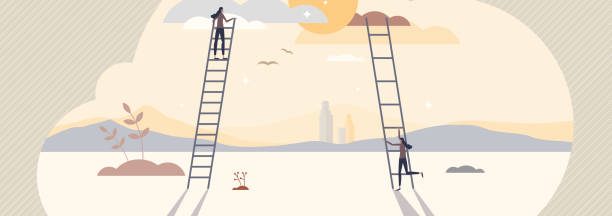
May 13, 2022 | Parshat Emor
We all have areas of life that need improvement, and although we are aware of them - and want to get better - we have a hard time actually making change.
The problem often is that we look at the big picture of the issue: “I want to be a kinder person,” I want to be more present for my spouse/kids,” or “I want to be more organized.” We want to change ourselves wholesale and the task is too ambitious and daunting. It’s impossible to completely change our personalities and habits overnight, if ever.
This is one of the messages of the Omer count, when we count the time between Passover and Shavuot.
The Torah instructs us to count 7 weeks from after the first Seder night until Shavuot - reflecting our ancestors’ countdown from leaving Egypt to receiving the Torah at Sinai. But then Torah adds that in addition to counting 7 weeks, we should count the days too - 49 days. If it weren’t a whole number - say 6 and a half weeks - I’d understand why the need to count days. But once we are counting 7 complete weeks, why is it a Mitzvah to count the days too?
The counting isn’t just to know when to celebrate Shavuot - it is to prepare ourselves for the special day. Kabbalah divides our personality into 7 character traits or emotions. This is the symbolism of the 7 weeks we count - each week we are meant to be improving in one area of our inner selves as we prepare to re-accept the Torah: the first week is chessed / kindness, the second week is gevurah / discipline etc.
And herein lies the profound lesson of counting the days as well as the weeks. It is impossible to approach self-growth in broad terms. Instead we have to break it down into small, manageable steps and tasks. Instead of trying to be a kinder person, consider what I can do today to someone specific that would be kind. Instead of turning into a super-organized person, think about how to structure one particular part of your life.
In this vein, instead of working on 7 broad areas of character, we break each of the 7 areas of our personality into smaller subgroups. And each day, we work on one small area of growth.
Small and gradual steps work to incrementally grow and improve, until you become a better person. Try it for 49 days - growing a little each day - and you’ll see remarkable results.
Shabbat Shalom!
Rabbi Menashe Wolf
Do You Have a Mentor?
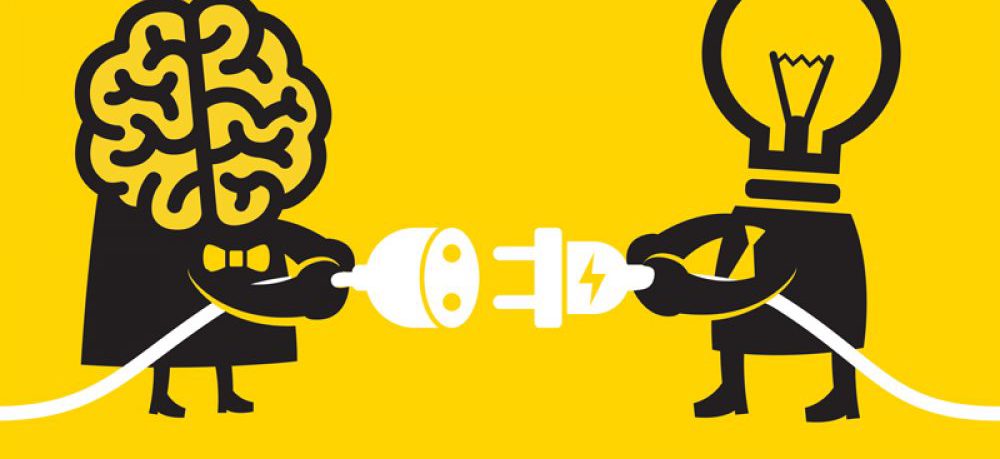
May 6, 2022 | Parshat Kedoshim
"Knowledge is knowing that a tomato is a fruit; wisdom is knowing not to add it to a fruit salad."
We live in an era of information. Thanks to Twitter we know everything that is going on in the world - and virtually everyone’s reaction to it - in real-time. Thanks to Wikipedia we can pull up everything there is to know about any subject. Thanks to Google we can find answers to any question we have in seconds. Thanks to Facebook and Instagram we know more than we need to about our friends’ lives.
But what do we do with this information? How should we process it to make sense of the world and figure out our lives? How do we utilize it to make the world a better place? Information is a very powerful machine - but until it's "switched on" and guided with direction, it is pretty useless.
This is the role of wisdom. The Hebrew word Torah comes from the word "Hora'ah" which means guidance. Torah is a source of wisdom that gives life context and purpose and provides meaningful direction. When you invest time studying Jewish texts, you discover that they provide a wellspring of guidance and inspiration on just about every topic and decision.
But we naturally have an inbuilt bias. We see things from our personal vantage point and have a hard time seeing the context beyond that. Even with the spiritual guidance of Torah, we easily end up slanting the texts to conform to our agenda.
There’s a custom to study Ethics of Our Fathers in the six weeks between Passover and Shavuot - one chapter a week. This past Shabbat I was studying the first chapter and one of the teachings caught my attention: “Joshua the son of Perachia would say: Assume for yourself a mentor (Avot 1:6).” Everyone needs someone to guide and direct them.
The role of a mentor - be it a parent, teacher, rabbi, friend, or whoever else - is not to impart knowledge, but to provide the context to contextualize the knowledge we intake and harness is to guide our choices. We need someone to look up to that can give us a moral compass and a meaningful context to navigate our lives.
Let's spend less time searching for knowledge, and more time seeking wisdom. Start by exploring the vast wealth of Torah resources out there - and find yourself a mentor to guide you on this wisdom journey.
Shabbat Shalom,
Rabbi Menashe
Love Isn’t Everything

April 29, 2022 | Parshat Acharei Mot
Rabbi Akiva, one of the greatest Jewish sages, famously commented that "Love your neighbor as yourself (Leviticus 19:18)" is "the most foundational principle in Torah."
But not everyone agreed with him. His student and colleague, Shimon Ben Azai, argued that the most important verse was the passage in Genesis that describes the inherent worth of every human being as created in the Divine image: “in the likeness of God He created him (Genesis 5:1)”. In this view, respecting your neighbor, as a reflection of the Divine image, is more important than loving them.
The limits of Rabbi Akiva’s position actually played out in his lifetime. Between Passover and Shavuot every year is a period of national mourning (we don't have weddings, haircuts, etc.) to commemorate the tragic death of 24,000 students of Rabbi Akiva. Tradition has it that the spiritual cause of this calamity was the lack of respect that the students had for one another. Imagine that: The students of Rabbi Akiva, the archetype of love for each person, had such disrespect for each other as to be deserving of paranormal punishment.
Loving someone doesn't always lead to respecting or tolerating them. In fact, the opposite can be true. We each see things our own way and often can't appreciate that someone else may have a different, and equally valid, approach. Loving each person like yourself can lead you to project your feelings and experiences on them and want them to fit your vision for them. Rabbi Akiva's students felt so strongly for their convictions and loved their colleagues so deeply that they wanted them to see things the "right way", i.e. their way.
I've noticed this a lot as a parent. When I have a way of thinking about something or doing something, I want my children to follow the way I do it and envision them following the path that I pave for them. My loving instinct is to try to fit them into the mold I envision for them, for their benefit of course. But my children don't always think like me. They are their own people and have their own personalities and ideas.
Herein lies Ben Azai's profound addition. Besides loving each person, you have to also respect them. Every human being is created in G-d's image and is deserving of profound respect. Respecting their infinite value as a reflection of the Divine image leads to appreciating them for who they are and for what they bring to the table.
When interacting with my children, I have to keep reminding myself of Ben Azai's principle: they too are created in G-d's image, and I have to respect their unique personalities and perspectives.
Rabbi Akiva's and Ben Azai's views are not mutually exclusive. We can, and should, love every person while also respecting them. My role as a parent is to lovingly nurture my children's distinctive personas in the best possible direction. Each of our roles as members of society is to lovingly go out of our way to do everything for another person while respectfully listening to them about what their needs are.
May our love and respect undo the tragedy of this time period and transform the mourning to joy with Moshiach.
Shabbat Shalom,
Rabbi Menashe Wolf
Splitting the Sea of Our Consciousness
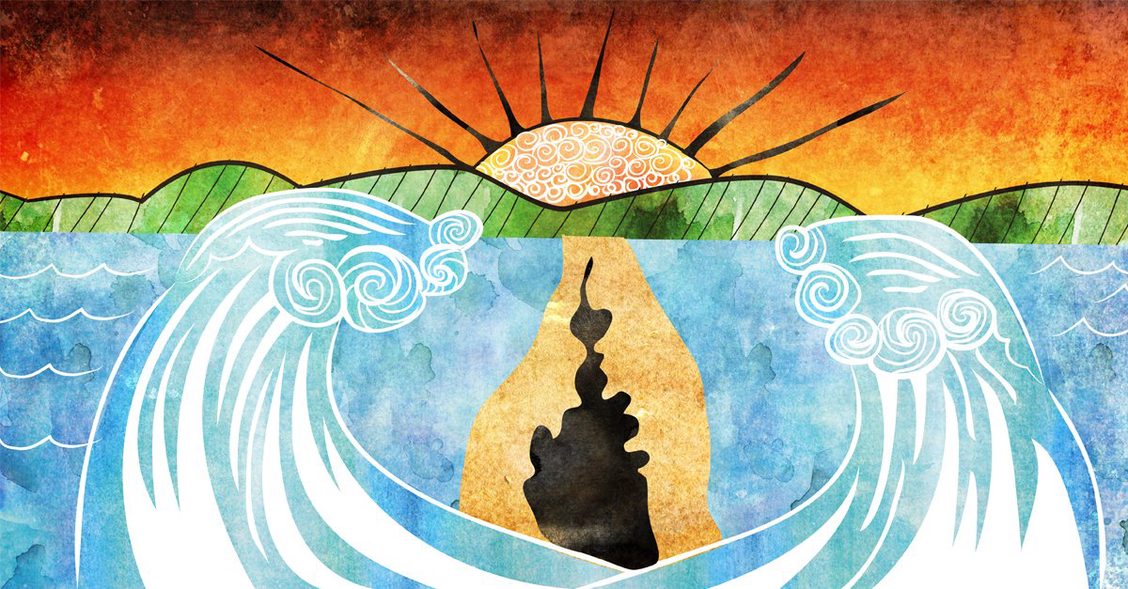
April 21, 2022 | Tonight through Saturday celebrates the “Second Days” of Passover
Does it ever happen to you, that you see someone all the time, but when you finally get to know them they suddenly look different? Your newfound understanding and appreciation of them alters the way you see them, changing their face and transforming their whole demeanor. This is exactly what the second half of Passover is about.
Passover is a commemoration of the past, an experience in the present and also a hope for the future. According to the Chassidic mystics, the first half of Passover commemorates a redemption of the past - the Exodus from Egypt - and the second half - when we commemorate the splitting of the sea - celebrates the future redemption.
The miracle of the splitting of the sea was not only utilitarian. Contrary to public perception, the Jews never actually crossed the Sea of Reads. They arced back and disembarked on the same side as they had entered. So the goal wasn't purely practical, but spiritual. At the sea, the Jews had a transcendent experience of the Divine, where, according to the Talmud, the simplest Jew saw what even the greatest prophets did not. The sea splitting was a material reflection of this experience.
The land and sea are metaphors for our consciousness. Generally, we see the world through our limited earthly vision. We are stuck in a "dry land" materialistic reality of ego and jealousy that is plagued with poverty and illness, war and hate. Judaism is an attempt to liberate the world from this experience and promote an immersive "sea" reality - a divine consciousness that alters our perception of ourselves, others and the entire world. Each Mitzvah is a partial splitting of the sea, drawing back the shades and allowing the divine spirit to seep into our reality. When we truly get to know the inner workings of the world, we see it in an entirely different light. The Messianic age - when the seas of G-d-consciousness are split wide open - is a time when we experience the redeemed world.
While the Jews had left Egypt a week prior, Egypt hadn't left them. The splitting of the sea was intended to schlep them out of their sunken Egyptian mindset and open them up to a higher consciousness, a divine consciousness. The world of the sea - the unknowable sublime divine reality - split open before them, revealing a G-dly vision of the world, and created a new dry land - new pathways of consciousness. The Jewish people then had a fleeting experience of the Messianic age.
Each year on its anniversary, we remember this and attempt to make that momentary experience an established reality. There's a beautiful custom established by the Baal Shem Tov to finish Passover with the Meal of Moshiach - a 'Seder' of sorts, to harness the spirit of freedom and redemption of Passover and channel it as a force of positive change in the world. We translate the Exodus of the past into the present and work on creating a better future - a redeemed world, where we are liberated from jealousy and hate, poverty and illness, ego and anxiety.
We will be joining Chabad of Park Slope for a Moshiach Meal on Shabbat, April 23, for an evening of song, storytelling, and insights, and enjoy a home-cooked dinner with Matzah and wine (see details below).
Chag Sameach and Shabbat Shalom,
Rabbi Menashe Wolf
Memory, Not History
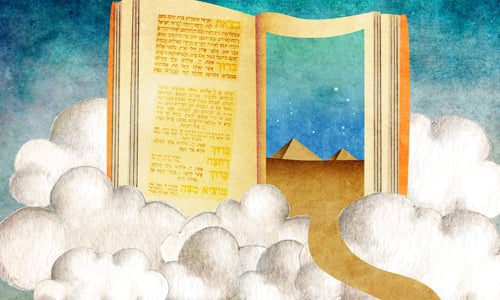
April 15, 2022 | This Shabbat is Passover
Tonight, millions of Jews around the world will sit down at the Seder table and recount the ancient story of the Exodus from Egypt. But if we pay close attention to the traditional text of the Haggadah, we can conclude that it is not the ancient history that we are interested in, but the experience of being Jewish in the present.
Instead of reading the original detailed story as it is recounted in Exodus, the author of the Haggadah decided to complicate things and quote a concise version of the story and expound on it to extract the complete story-line. The chosen text is from a declaration that Jews would make when they offered the first fruits (Bikurim) in the Temple. Each word of the brief declaration is analyzed in the Haggadah until the details can be understood. Wouldn't have made more sense to read it from the original source where the story is straightforward?
The story as recounted in Exodus is recorded in the objective third-person voice of a narrator; it is telling the story from the point of view of history. But the declaration made at the time of presenting Bikurim is the personal expression of the fruit-bearing Jew. It tells the story from the recollection of the Jew who experienced the Exodus.
The Exodus narrative is a record of Jewish history; the Bikurim narrative is a record of Jewish memory.
By telling the story through the voice of personal experience, the Haggadah is teaching us a fundamental tenet of Judaism. Judaism is not a history, theology or philosophy - it is a way of life. We don't learn about Judaism, we experience it. We don't believe in the Torah, we live it. On Pesach eve we don't tell over the story as it happened but the way we, the Jews, remember it.
Judaism is not a story about our past, it is the narrative of our present. The ancient stories are valuable inasmuch as they shape our minds and lives in the here and now.
As you sit tonight at the Seder, spend a few moments to reflect on the role Judaism plays in your life and how the Exodus story can be translated into your own personal experience.
Chag Samaeach and Shabbat Shalom,
Rabbi Menashe Wolf
Do One Thing - It’s a Big Deal!
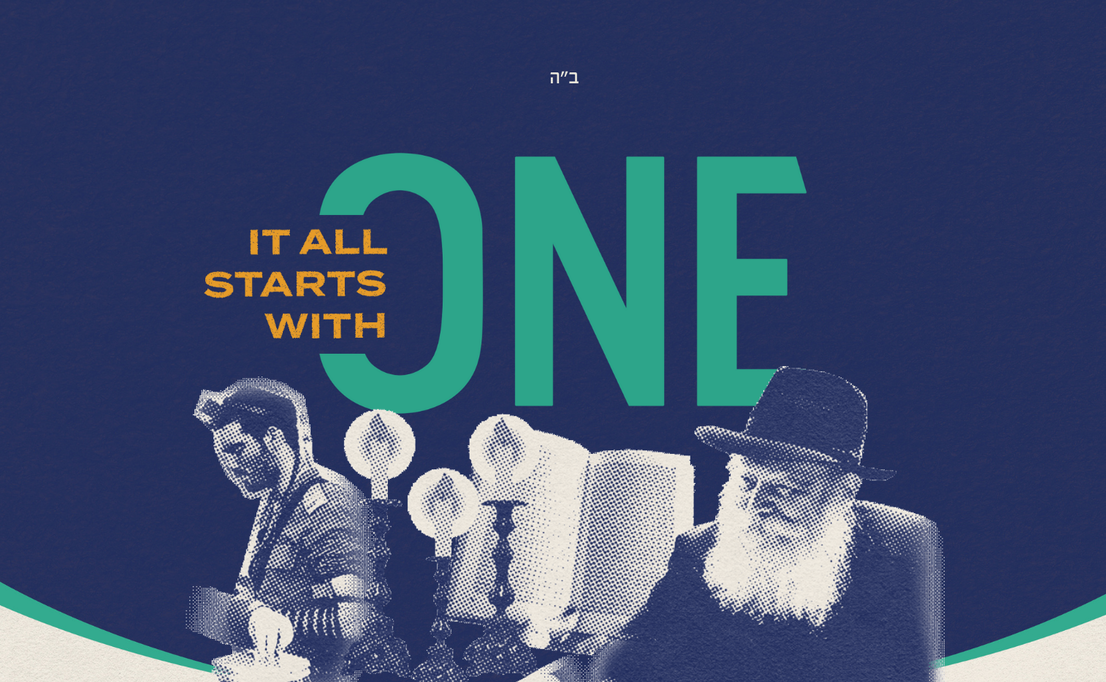
April 8, 2022 | Parshat Metzorah
A philanthropist once approached the Lubavitcher Rebbe with a large sum of money that he proposed donating to a worthy cause, but with one proviso: “Rebbe, I want it to go towards a groiser zach (Yiddish for a big project).”The Rebbe, who oversaw plenty of causes that needed funding, urged the man to donate the funds to Chabad Rabbis who would buy and distribute Shmura matza to the Jews of their respective communities.The magnate was unpersuaded. “No, Rebbe, you’ve misunderstood me. I want it to go towards something permanent and substantial. Something that will last for a long time. You know, like a building that will carry my name.”The Rebbe’s reply was brief but classic. “If you want a building, there are plenty of other communities where they’ll be happy to build a fancy building, but if you ask me, what I call a ‘groiser zach’, it’s making sure that one more Jew has a Shmura matza for the Seder”.The Rebbe was a global Jewish leader who was sought out by dignitaries and politicians, yet he never lost sight of the individual. He cared for each person and believed deeply in the value of a singular act. Every person mattered. Every act counted.In the Rebbe's weltanschauung, one more person having Matzah for their Seder was tantamount to a societal revolution. The small act of the Mitzvah will reverberate with nuclear potential in the person's life and have a cosmic impact. It truly is a big project.This week America will mark Education and Sharing Day, the annual day established by Congress and proclaimed by the President in honor of the Rebbe’s day of birth. This year is particularly important, as it marks 120 years since the Rebbe was born in Mykolaiv, Ukraine. To mark the special occasion, New York state has proclaimed 120 days of Education in the Rebbe's honor.We can all honor the Rebbe’s legacy this week. In his honor, let’s pledge to do one more good act - one Mitzvah - and that can have infinite impact. To paraphrase Neil Armstrong: That’s one small act for man, one giant impact for mankind.
There’s an online campaign, where Jews around the world are pledging a Mitzvah in the Rebbe’s honor. If you have been inspired or touched by the work we do or by Chabad’s efforts elsewhere, consider paying it forward by pledging a Mitzvah here: www.onemitzvah.org.
To honor this milestone and further the Rebbe's impact and vision, Dirah will be providing Shmurah Matzah to 120 homes in the community. This "big project" will inspire tens of Seders and grant hundreds of people the opportunity to enjoy the authentic, hand-baked Matzah at their Seder, with the potential to ignite 120 homes with the fire of Jewish faith and endurance. Claim yours here.
Shabbat Shalom,
Rabbi Menashe Wolf
The Human Spring
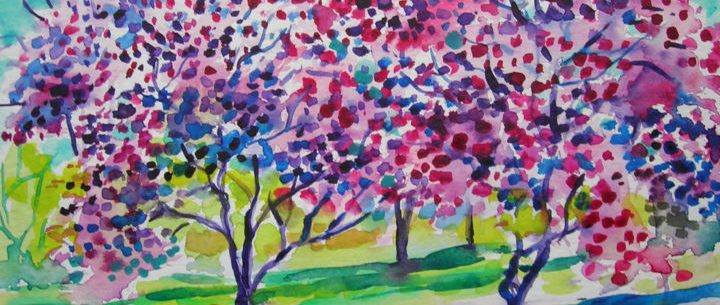
April 1, 2022 | Parshat Tazria with a special reading of Parshat Hachodesh
Spring is in the air. It's such a pleasure to walk down the street on the warmer days when you can sense the season on people's faces and in their voices. Everyone seems happier and more chirpy. It's as if the human soul is a tree - it opens up and buds with excitement as the warm weather comes.
There's a little-known blessing made during the Spring season. It expresses the experience of rebirth and highlights the beauty of nature. The blessing is recited in the presence of a fruit-bearing tree during the Jewish month of Nissan, which begins tomorrow (on Shabbat). It thanks G-d, "Who has made nothing lacking in His world, and created in it good creations and good trees to give mankind pleasure."
I love this blessing and look forward to it each year. It is packed with so many meaningful meditations and imparts a sense of wonder at the perfection of nature. It is perfectly poised to harness our excitement for the new blossoms and the transcendent experience of beauty and channel them towards spiritual awareness. The closer we pay attention to the world around us, the closer we come to G-d.
Like the trees around us, we too are created perfectly in G-d's image. We have a budding potential to live life to its fullest. Our souls lack nothing.
Sometimes we go through a patch of winter and don't see the immense purpose or value in our life. We lack energy and color. We don't experience beauty. We don't see our work bearing fruits. But inevitably spring will come when we experience a rejuvenation. Our potential, that we had all along, blossoms. Our lives become colorful and animated. We burst with motivation and purpose.
These Spring moments help us realize what we had under the surface all along, waiting to burst forth. They open our eyes to who we really are and what we were created to achieve. They help us recognize that G-d truly "made nothing lacking in His world, and created in it goodly creatures."
As the flowers begin to blossom around us, let's utilize the season of growth and work on seeing ourselves and others through its lens, valuing the amazing potential and infinite worth within of every individual.
Shabbat Shalom!
Rabbi Menashe Wolf
The Holistic Diet

March 25, 2022 | Parshat Shmini with a special reading of Parshat Parah
Organically grown. Ethically sourced. Pesticide free. Farm to table. Natural ingredients. No added preservatives. Non-GMO verified. No MSG or trans-fat. These labels scream out to you wherever you look in a grocery store.
We are more conscious than ever of the food we put in our mouth. We care not only about the quality and taste of the finished product, but also about the process it underwent to get onto our plates. Our modern sensibilities recognize how and where our food is sourced and processed effects our health and well-being, as well as the environment and society. So we take a close look at the food labels before we make any purchase.
But there's another label to look for if you're conscious about a holistically balanced diet: a kosher symbol.
Judaism takes food certification one step further. Not only does it track the quality of the food and the process that it undergoes, it is concerned with the nature of the foods themselves. Like the old adage says, you are what you eat. Torah believes that the character of the original ingredients impact the consumer. The laws of Kosher may sound like an archaic diet plan, but according to the Jewish mystics, they reflect a progressive and holistic culinary approach.
All animals and plants have a soul - a personality and character that is embodied in the food that is made from them. Besides nutrients that energize our body, foods have a spirit that energizes our souls. Some animals have an energy that promotes violence, anger and ego. Eating products made from them triggers these troubling traits in the person and is detrimental to emotional and spiritual well-being. Other foods are made up of a more positive character and contain positive energy, that we can benefit from through consuming them.
Kosher laws are designed to navigate the complex spiritual world of food. For a spiritually balanced life, Torah provides a strict framework of Kosher dietary guidelines to help avoid eating foods that embody negative character and encourages us to digest foods that provide an energy that promotes spiritual health and sensitivity.
So if you're concerned about keeping a balanced diet, look out for the kosher labels too. They'll add an integrated spiritual component to your healthy lifestyle.
Shabbat Shalom,
Rabbi Menashe Wolf
Another Day of Purim?
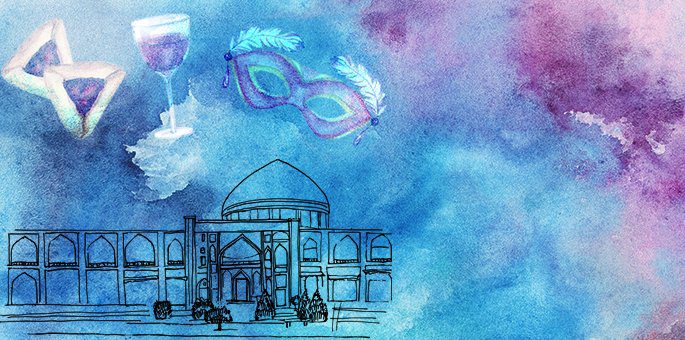
March 18, 2022 | Parshat Tzav
Its the morning after Purim and I am trying to collect my thoughts. It was an incredible Purim at Dirah - our first one - and I am so thankful to G-d and to all the people that joined and helped make it so special. From the full room of wonderful people who came together to hear the Megillah on Wednesday night to the more than 100 homes that we visited to deliver Mishloach Manot gifts, to the amazing Community Purim Celebration - it was so beautiful to celebrate together with the community.
But that was yesterday, and now it’s today. The past is only meaningful in as much that it shapes the present and the future. More important than what happened yesterday is who you are today because of what happened. That’s where the second day of Purim comes in.
Purim is the only Jewish holiday that is celebrated on different dates in different places. Walled cities, including Jerusalem, celebrate Purim a day after the rest of the world, in what is known as Shushan Purim. Shushan was the capital of Persia in the Purim story, where the battle to defend Jewish lives raged an extra day. To commemorate that, Mordechai instituted that walled cities, similar to Shushan, celebrate Purim on the 15th of Adar instead of the 14th.
When I was studying in Israel, my friends and I made sure to celebrate two days of Purim. We spent the first day of Purim in the north of Israel and traveled back to Jerusalem for its Purim the following day.
I'm no longer living in Israel, and I don't know if I can handle two days of Purim anymore. But even outside of the walled cities, Shushan Purim is marked as a special day. It’s not a full-fledged Purim, but it serves an important function.
Shushan Purim is a day to reflect on the holiday that was and feel the effects it had on us. The word Shushan is etymologically related to the Hebrew word meaning rose, Shoshana. A flower is beautiful, but it is pretty small; it’s fragrance, though, spreads around the room.
Like a rose, the greatness of Purim is encapsulated in the smell it gives off. Shushan Purim is when we smell the perfume of Purim. When we no longer have the thing itself but still access it through the fragrance it left behind.
We’re not wearing costumes today, but we can still feel as free to be ourselves as we did when we were disguised. The party is over, but the joy and friendships remain. The Megillah is not being read again, but the messages of the story are still on our minds. Purim itself has passed, but its inspiration is still with us.
Purim is one day of the year, but having a day on the calendar earmarked for post-Purim reflection ensures that we walk away from the holiday uplifted and invigorated. It helps carry the Purim spirit and joy into the rest of the year. The fragrance of Purim may smell differently for different people, but let’s all take the joy, community, and spirit of Purim and inject it into our post-Purim lives.
Happy Shushan Purim and Shabbat Shalom!
Rabbi Menashe Wolf
Should We Cancel Purim This Year?
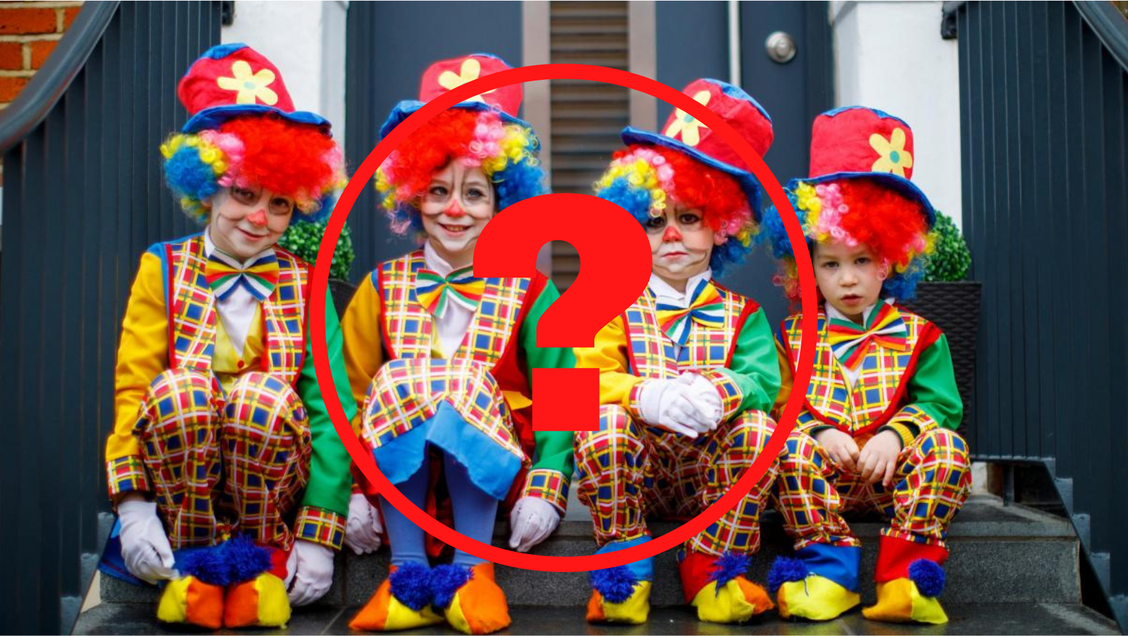
March 11, 2022 | Parshat Vayikra
There’s a war raging in Ukraine with millions of people displaced or in fear of their lives. A threat of a world war is looming over our heads. How should we be reacting?
This has been bothering me over the past couple of weeks. How can we go about our lives regularly while the world faces upheaval and crisis? I posed this question to the students of the Meditation from Sinai course that we concluded this week: Didn’t it feel strange to be sitting and discussing spirituality and growth while people are fighting for their lives across the ocean?
Yet, it seems that despite our interest in the war in Ukraine, and despite the funds that we donate, we are going about our lives business as usual. Our daily routines are unchanged.
I’ve been asking myself the same question about Purim. Is it appropriate to celebrate Purim right now, when the world is going through so much pain? Perhaps, I have been wondering, we should cancel Purim this year? Or, at the very least, tone down the celebrations?
As these thoughts were swimming through my mind last week, the venue that we had rented for Dirah’s Purim celebration messaged me they had to cancel our booking for reasons they couldn't discuss. Even when I pressed, they refused to give an explanation why.
Was this a sign that we should cancel Purim this year? Perhaps this was G-d sending me a message. Maybe a Purim celebration isn’t appropriate right now. I wasn't sure.
As we scrambled to find a new venue and I continued to mull over this question, an answer dawned on me from the Purim story itself.
Purim is a story of faith in the face of crisis. The Jews in Persia did not submit to the terror of Haman, and instead remained committed to G-d despite the threat of their annihilation. And when they refused to be shaken, everything turned around.
Everything that seemed certain and stable was revealed not to be. The king who hated the Jews discovered his queen was one and began to favor them. Haman who wielded undisputed authority in Persia and built gallows to hang the Jewish leader was deposed and hanged on that very gallows. Royal messengers who advertised a day designated to slaughter Jews were dispatched to spread a message of support to the Jewish people. G-d is missing from the story, yet He is behind every part of it. Purim is a celebration of irony. Its slogan is Venahapoch Hu - everything was turned upside down.
And perhaps a Purim celebration is the irony we need right now. To celebrate despite the darkness in the world. To trudge on in the face of despair. To laugh despite the pain. To have faith when all hope seems lost. To find G-d when He is hidden.
The Purim story teaches us that when we act this way, we create a new reality. We show that the evil forces that seem overbearing are not. We reveal stability in an unstable world and the instability of the terror that seems stable.
So, I concluded that the show must go on. We should celebrate Purim this year. Perhaps with even more enthusiasm than other years. And, thankfully, we found a new venue for the Community Purim Celebration to support that. Please join us at 5:15 on Thursday, March 17 at Hannah Senesh Day School (342 Smith St.) for a Purim celebration for the ages.
We hope and pray that G-d will respond in kind with Purim miracles - when in an instant darkness was turned to light and sadness to joy.
Shabbat Shalom / Peaceful Shabbat,
Rabbi Menashe Wolf
Think About Yourself A Little More

March 3, 2022 | Parshat Pekudei
There's a common attitude that the most important thing for the religious person to think about is G-d. It's not true.
Consider this: This week's reading continues with the account of the building of the portable Temple--the Mishkan--that the Jews build in the desert. So much detail is given surrounding this building effort, making it perhaps the longest narrative in the whole Torah. To put it in context, only 34 verses are dedicated to G-d's creation of the world, while hundreds of verses are used to describe the Jews' creation of the Mishkan. Why would that be?
Here’s one idea: For G-d to create the entire universe isn't a great feat, and the way he created it is quite frankly not of our concern. For us to infuse that universe with holiness is a tremendous achievement, and the way we can do that is our business.
G-d is omnipotent and omniscient. He doesn't need our approval or help. He doesn't really need our subservience either. To marvel at G-d's greatness and strength is to belittle Him. The Creation narrative is His business, not ours.
Where we fit in to the picture, our role in this world, has to concern us. We have to constantly ask ourselves how we can rise above our mortal, temporary lives and connect with an eternal truth. We have to concern ourselves with our own behavior, and try to forge a relationship with G-d. Do we give enough charity? Are we kind to people? Are we committed to a moral lifestyle? Are we dedicating our time to the pursuit of something larger than ourselves? We have to challenge ourselves to live deeper and connect higher. That's what Judaism is. It doesn't try to change G-d, it changes us and our lives. It doesn't make G-d greater, it makes the world greater.
The Jews building a home for G-d was the realization of this vision. They uplifted the materials they used to be part of a Divine structure. They created a place on Earth where G-d's presence was experienced, a microcosm of what we are achieving in the world at large. It was the human effort to construct a better world.
So what's the most important thing for the religious person to think about? Themselves.
At this moment, with the situation in Ukraine deteriorating, we have to step up to the plate. It isn't enough to just think about the people of Ukraine and feel pity for them, we have to do our part and help out in any way we can. We have to focus on how we can help them. Whether that means giving financial support, prayer or any other opportunity that we may have - let’s invest what we can to help. Let’s think about ourselves.
Shabbat Shalom / Peaceful Shabbat,
Rabbi Menashe Wolf
Being a Light in this Dark Moment
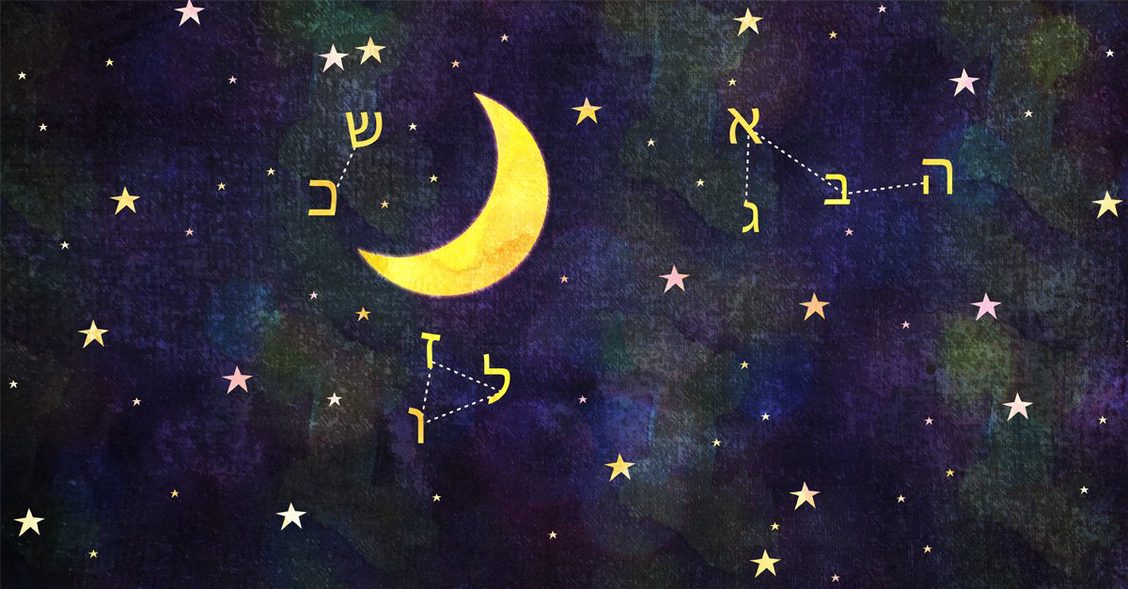
February 25, 2022 | Parshat Vayakhel
We are living through history. A dark moment of history. The war on Ukraine is unsettling and terrifying. And there's really no way of knowing what will come next.
Although I have never been there, I feel a closeness to the people of Ukraine. Chabad has strong roots there (the Rebbe was born there) and there are over 250 Chabad centers across the country.
I messaged a friend of mine who is a Chabad rabbi in Kyiv (Kiev) to see how he was doing and to offer support. He told me about the sirens and bombs, and the selfless and courageous work he and his colleagues were doing for the community through it all.
What took me most about his message were the first and last words. His opening words were (he wrote them in Hebrew): ברוך ה' בסדר/Thank G-d, we are alright. And he ended his message saying: מקווה לטוב בעזרת השם/We are hopeful for a good outcome, with G-d's help.
In spite of everything going on around him, his faith in G-d was unrelenting.
______
I visited a Shiva house this week and shared a thought about the opening Mishna in the Talmud. There's a Jewish tradition to study Mishna (the compendium of collected law) in memory of a deceased - Mishna shares the same Hebrew letters as Neshama.
The first Mishna discusses the latest time one can say the Shema in the evening. Of all the important Jewish laws and values, this seems like a strange choice of where to start the Talmud from.
Turning to the mourners, I suggested that this law gives hope and strength to those who suffered a loss and encapsulates what it means to be a Jew.
Shema is the declaration of our faith in G-d: Hear O Israel, The L-rd Is Our G-d , The L-rd Is One.
It is natural to say the Shema during the "day". When life is bright and things are going well, it is easy to be thankful and have faith in G-d.
It is difficult to place our trust in G-d when we don't sense rhyme or reason or when we face challenges or witness suffering. But real faith means to trust wholly in G-d when things are dark and difficult, during the "night" moments of our lives.
This is the deeper meaning of this Mishna which teaches that we have to say Shema in the evening: We have to find ways to affirm and commit to our faith in the overwhelming darkness of tragedy.
And this is the opening law of the Jewish code, which sets the tone for the entirety of Jewish life. The foundation of Jewish continuity and survival is our ability to say "Shema" during the "night"; our ability to counter fear with faith, tragedy with trust, and suffering with solace.
________
We are witnessing a unique "night". The war in Ukraine has cast a shadow over the entire world. But we have to remain hopeful and have faith in G-d. Leaning deeply into our faith provides us with powerful weapons in our arsenal that we can deploy to help the situation. Prayer. Charity. Mitzvot. These are tools that G-d has given us to actualize our faith and imprint it onto the world to create real change.
The conclusion of the Mishna is that we may say the evening Shema "until the morning rises". I think the deeper meaning of this is that when we say Shema at night we are confident that the morning isn't far away. The faith we display in the darkness brings the light of the new day.
Shabbat Shalom / Peaceful Shabbat,
Rabbi Menashe Wolf
A Tribute to a Special Woman
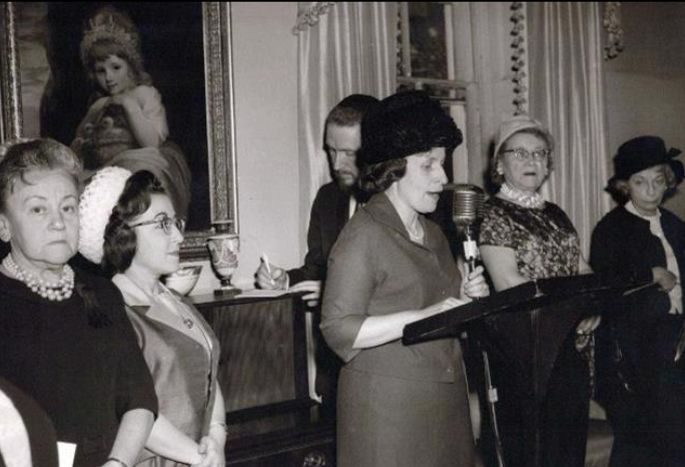
February 18, 2022 | Parshat Ki Sisa
Last week, we lost a giant. “Bubby Hecht” passed away at 95. Our grandmother, Rebbetzin Chave Hecht, was such a loving force in our lives and a powerful force in the broader community.
She had over 400 descendants but knew each one personally. She had a personal relationship with each of her children, grandchildren, great-grandchildren and great-great-grandchildren, and kept up where they were in the world and what they were doing. Yet when we were with her, she treated each of us as if we were the only ones.
Beyond her family, which was everything to her, Bubby Hecht was Jewish heroine, leader and matriarch. She was an educator and leader whose legacy and impact spanned generations. Until her final years, she oversaw NCFJE, a Jewish non-profit with a multi-million dollar budget. She founded Camp Emunah, a summer camp for girls in 1953, which she directed for 70 years - right until her passing.
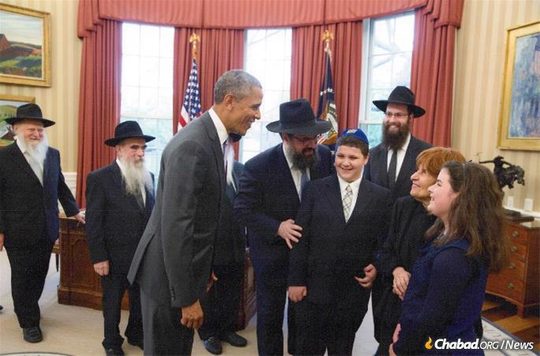
She had time for everyone and would greet each person with her soft smile and a patient listening ear.
Bubby was a rare combination of kindness and strength. She was incredibly warm and loving yet didn’t like to tolerate nonsense. She loved and accepted everyone for who they were, but was unwavering in her values. Her work ethic was legendary but she didn’t impose it on everyone else. She was a passionate achiever but carried herself with humility.
The two primary paradigms that we have for leadership in the Torah are the brothers Moses and Aharon.
Moses was a teacher. He was the lawmaker and judge; he led with the force of his Divine authority, imposing the law of G-d on the people. Aaron was kind and nurturing. As High Priest, his role was to help the people express their deep spirituality and connect to the Divine. Moses held the law above all else; Aaron's guiding principles were love and compassion. Moses led with rigid truth; Aaron was prepared to lie for the sake of people's welfare and happiness.
This week we read one example of their differences. When the people wanted to create the Golden Calf, Aaron didn’t know how to put his foot down and say no. So he tried to stall them instead, but his plans didn’t work out; his soft kindness was actually partly to blame for the greatest fiasco in Jewish history. By contrast, when Moses got wind of what was happening he smashed the Divinely inscribed Tablets in front of their eyes, protesting their actions in the greatest possible way.
Two brothers. Two great leaders. Two very different personalities. Each epitomized their unique character.
As individuals, we have to try our best to bridge those two personalities and balance them. Bubby Hecht will be remembered as a woman who did just that. Her wonderful legacy of the organizations and camp she built and of her large and diverse family that she nurtured are testament to her unique and impactful life.
I hope that we can follow in her path and continue to learn from her.
Shabbat Shalom,
Rabbi Menashe Wolf
P.S. You can read more about her fascinating life here: Legendary Rebbetzin Chave Hecht, 95, Life-Long Woman of Action.
Life’s Playbook
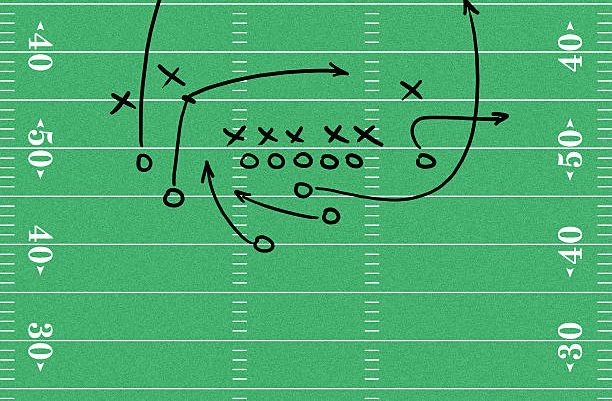
February 11, 2022 | Parshat Tetzaveh
I grew up in Australia, where football is a very different game to the one played here. We did play "American football" (as we called it) occasionally, but I didn't really know enough about it to appreciate the game. So when I came over to the US, and made friends who were crazed fans, it took me a while to understand what they saw in the continuously-stopping game.
Only once I learned more about the nature of the game and the depth of the tactics did I begin to appreciate it. I realized that the football we played as kids was vastly different to the one being played by the professionals. I learned that the quarterback didn't just throw the ball in the hope of one of the players catching it, he executed a carefully practiced plan involving many of the teammates. I found out that the coach communicated with the players at each break in play and helped them navigate to a win. What seemed as people running in random directions, was actually precisely choreographed plays. I learned that football is a complex game with keen strategy and intelligent plays
I think this learning curve is a great metaphor for Judaism.
Looking at the detailed Mitzvahs and Jewish practices, you could be forgiven thinking that they are superstitious, archaic, crazy, or a host of other things. We wrap strange things on our arms, follow an intense regiment of prayers and blessings, avoid certain foods and behaviors and do a lot of seemingly random things. Our lives keep being interrupted by rituals and we listen to an unseen voice to determine every move we make.
But the astute and educated observer, who understands the "game", knows that each of these rituals has incredible meaning. The Mitzvot are precise plays, with cosmic significance and spiritual depth, that help us grow and connect with something deeper than ourselves.
To navigate this complex playbook, we have the coach's guidance in our ear. The guiding voice of G-d, heard through the Torah, provides a bird's-eye view of the game of life and directs us exactly how to navigate around any opposition.
The detailed laws of Judaism are like strategies and plans that come together to create a drive that moves us forward down the field of life towards the end-zone of a perfected self and redeemed world.
No matter who you are rooting for on Sunday - you are an actual player in the game of life. And in this game, everyone can be a winner.
Shabbat Shalom!
Rabbi Menashe Wolf
What You Get When You Give

February 4, 2022 | Parshat Terumah
You don't expect the wealthy CEO to go begging on the subway for quarters or the well-endowed college to be door-knocking for collections.
So it's surprising that when G-d wanted to build a home for Himself, he reached out to the Jews to build the Mishkan - portable Temple - in the desert. In fact, in this week’s Parsha we read how He requested that every member of the nation give towards the building fund, and asked for every possible donation.
G-d had all the means in the world at His disposal. He is the master and creator of it all. And there were plenty of wealthy Jews who could have bankrolled the entire operation. Despite all this, G-d wanted everyone's involvement: the poor to donate along with the rich, the simpletons with the elite, the sinners together with the righteous. And He wanted the cheap materials alongside the elaborate donations - requesting copper as well as gold.
With His fundraising efforts, G-d was teaching the Jews an important and powerful lesson.
He was not asking for their involvement for His sake, but for theirs. He didn't need them to give, they did. When a Jew donated towards the building of G-d's home, he or she was privileged to be engaged in a project of cosmic significance. By asking for their help, G-d was providing them with an opportunity to be uplifted and elevated.
When you give charity - of your time, money or resources - you gain as much as you give. Yes, you're helping out the poor person or the non-profit institution, but they are also helping you. The opportunity to invest in the worthy tzedakah cause gives you a chance to live for something higher.
When you give to others you gain a sense of fulfillment and purpose, achieve a heightened spiritual sensitivity and channel G-d's immeasurable blessings.
So next time you are panhandled by an unfortunate stranger on the subway, asked to volunteer for a community event or solicited by a letter in the mail, ignore your initial reaction to hold back. Instead, give what you can and say thank you. Thank them for providing you a chance to touch the Divine.
Shabbat Shalom!
Rabbi Menashe Wolf
The Foundational Message of Torah? Be a Mensch!
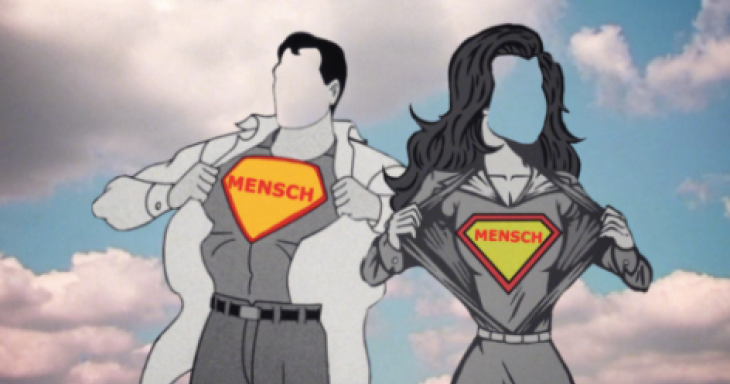
January 28, 2022 | Parshat Mishpatim
Judaism is often associated with ritual laws. If someone says that they are not an observant Jew, they probably mean that they don't keep Shabbat or Kosher or wear Tefillin.
But as important as the rituals are, Judaism is actually more than that. It is a way of life that informs every area of our experience. The Torah inspires social action and lays the foundation of a just society. It is supposed to shape our values and ideals. It is remarkable that so many of the values that we hold to be sacred in today's society stem from Judaism: the value of life; the equal worth of every person; the responsibility we have to the poor and vulnerable. These moral truths have thankfully become universally accepted, but are rooted in the Torah.
This week's Torah portion follows last week's description of the giving of the Torah, and is titled "Mishpatim" or "Laws". As its name suggests, it deals primarily with many of the civil laws that Judaism teaches, such as treatment of workers, respect of other's property, and compensation for damages. It is telling that these civil and moral laws--that teach justice, fairness, integrity, and respect--are the first set of laws that are taught following the giving of the Torah.
The Midrash suggests a profound message here, that respecting other people and resolving disputes peacefully is the foundation of Judaism: R. Shimon says: Why did Torah detail civil laws before all the other mitzvot of the Torah? For when there is litigation between a man and his neighbor, there is strife between them. Once the ruling has been given, there is peace between them.
Similarly, the sages pointed out that: The ideal of proper behavior preceded Torah. Historically, G-d entered a relationship with our forefathers based on their adherence to a moral code before He gave the Mitzvot of the Torah. Our own attitude should reflect that chronological order; treating others respectfully is the first priority in Judaism. As Rabbi Akiva famously put it: Loving your neighbor as yourself - this is the greatest rule of Torah.
So next time you come across someone who needs your help or a situation where you are tempted to do something that may hurt or wrong someone, remember, that in Jewish tradition, being a mensch is the highest priority. Being an observant Jew should include Shabbat, kosher and tefillin, but it ought to also imply having a compassionate heart and moral compass - being a mensch.
Shabbat Shalom,
Rabbi Menashe Wolf
What I Learned From the Events in Colleyville, TX
January 21, 2022 | Parshat Yisro
The events from last Shabbat in Colleyville, TX may be fading from the headlines, but they are very present - and deeply etched - in my mind. The image of a rabbi and congregants being held hostage in a synagogue by a rabid antisemite is harrowing. And frightening. And I can't stop thinking about it.
But I don't want to focus on the fear. Or on antisemitism. Or on whether synagogues need more security. No. These are important conversations, but not what's forefront on my mind. My takeaway from this story is not about feeling threatened as a Jew but empowered. Instead of being afraid to attend synagogue this week because of what happened, I want to suggest that we should all make every effort to go.
In this week's Torah reading, we read about the first convert to Judaism. Yisro, Moses' father-in-law and a priest in Midyan, traveled to the desert to join the Jewish nation. What moved him to give up his pampered life of prestige to join a fledgling nomad tribe of recently freed slaves? What inspired the first Jew-by-choice to engage Jewishly?
The Talmud records a number of possibilities.
One rabbi says that he heard about the war with Amalek - a classic case of antisemitism. Amalek didn't attack the Jews for a specific purpose. They weren't conquering or defending any land. They simply hated Jews for no other reason than for being Jews. This was the first instance of blatant and senseless antisemitism. Instead of eliciting fear, however, it inspired Yisro. If a people is being attacked just for existing, there must be something unique and special about them. They must stand for something sublime and holy. Why else would their very presence offend people? Beyond just being an ally, antisemitism inspired Yisro to want to be a part of this Jewish nation.
A second rabbi in the Talmud suggests that Yisro heard about the splitting of the sea. There were many miracles before that, so it must have been something else about the story that moved him. The Jews then were placed between a rock and a hard place, effectively hostages in the desert. After finally fleeing Egypt, the mighty Egyptian army was chasing them down and they had reached an unbreachable body of water. Despite the impossible situation, they placed their firm faith in G-d and jumped into the sea. And when they did so, they saw G-d's hand and sea split for them. G-d rewarded their faith and efforts with miraculous salvation. When he learned about the Jews’ faith coupled with heroic action, Yisro was inspired to join their faith.
A third opinion in the Talmud posits that Yisro was moved to become a Jew after hearing about the giving of the Torah. When he learned about a people who were committing to a higher code - of morality, ethics, and divine ritual - he was moved to be a part of it.
In Colleyville, last Shabbat, all three of these elements were highlighted. We witnessed the depravity of senseless antisemitism. We witnessed the faith of the hostages despite their hopeless situation, and the faith of millions of Jews, and people of all faiths, who prayed to G-d and trusted in His kindness. We witnessed the heroic bravery of the rabbi who relied on G-d and took whatever action he could to bring about G-d's salvation. We witnessed the Kiddush Hashem of the rabbi who pledged to continue living by his Jewish faith - by wearing his Kippah and keeping the Shul doors open.
When Yisro heard about these events, he was moved to become an active Jew. Let's follow his lead and allow these events to move us to greater and deeper Jewish engagement. Let them inspire us to be prouder and stronger Jews. Let's respond to an attack in a synagogue by going to Shul this week.
I'll be in Shul this Shabbat. Will you join me?Shabbat Shalom,
Rabbi Menashe Wolf
The One-Word Antidote to Indecision Paralysis

January 16, 2022 | Parshat Beshalach
In his book Steve Jobs, Walter Isaacson writes about a decision that Steve Jobs made in 1997 that turned Apple around to be profitable: he cut the product inventory by 70%. His theory was that the simpler a product range, the easier it is to make a choice, which equals more sales. One year later, the nearly bankrupt company turned a very healthy $309 million profit.
Jobs’ insight was brilliant. People hate making decisions. When we are confronted with a decision, we often overthink and rethink and get stuck and overwhelmed. In fact, we'll often do nothing just to avoid having to choose something.
Big decisions often paralyze us. But they don't have to.
This week's Parsha picks up the story of the Jews after they left Egypt. The Egyptians regretted letting the Jewish slaves free and gave chase. The recently liberated Jews now found themselves stuck between a rock and a hard place. In front of them, blocking their escape path, was the formidable Red Sea. Behind them was the quickly advancing mighty Egyptian army.
What should they do? Of course, the Jews couldn't decide. The Midrash tells that there were 4 factions with 4 different plans. One group felt there was no choice but to surrender to the Egyptians and return to slavery. Another felt that the only way out of the predicament was praying to G-d. A third group campaigned to jump into the water and face an easy death. Yet a fourth group wanted to try their luck fighting the Egyptians.
The competing parties couldn't decide on a winner. The Jews were paralyzed by their indecision and came to Moses to ask him what to do, and he, in turn, turned to G-d for direction. G-d's response was profound in its simplicity and still resonates today. He didn't pick a side or make the decision for the Jews. Instead, he offered one word of advice, that continues to resonate today:
"The Lord said to Moses, Why do you cry out to Me? Speak to the children of Israel and ‘let them travel’ (Vayiso'u)." Stop pontificating on the best option. Stop debating incessantly over the nuances of each argument. Just move on. Just do something. Go!
We know the ending. Once the Jews put all theories aside and focused on moving forward, doors opened for them that they could not have imagined or anticipated. The sea split and they walked through it on dry land.
This is a message for each of us too. Perfect is the enemy of good. Instead of waiting for inspiration or getting bogged down by a decision, just move forward with something. Take action. Go.
A wrong decision is better than indecision. We'd be better off just choosing something - even if we're not 100% sure about it - over being immobilized by not being able to choose anything. Seas won't always split open for you, but at least you'll have a good shot at success. And you never know - things may just open up for you in ways that you could never have expected.
Shabbat Shalom,
Rabbi Menashe Wolf
The Time-Warping Calendar That Shaped a Nation
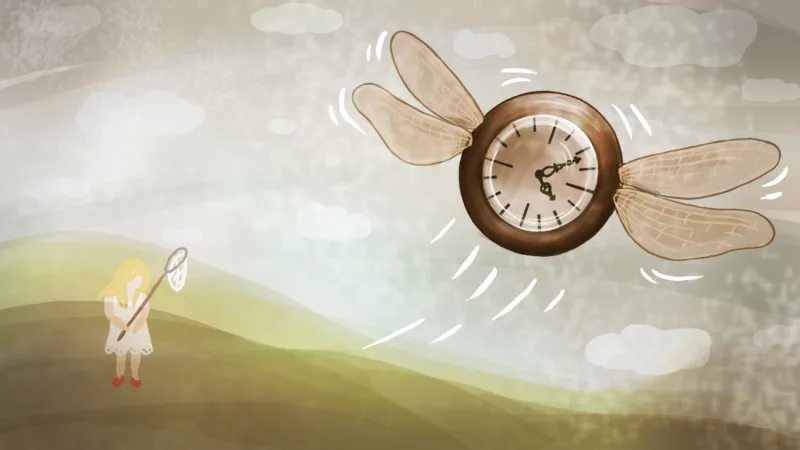
January 7, 2022 | Parshat Bo
The first Mitzvah that the Jews were given - while still slaves in Egypt - was to create a calendar. From that point on, the Jews would measure time based on the cycles of the moon.
There's something unique about how the Jewish lunar calendar worked. The new month was decided on the basis of a 'new' moon, i.e. the reappearance of the crescent of the moon as it begins its new cycle. But here's the catch. They didn't rely on astronomic calculations to determine the moon's cycle. The court (Bet Din) had to receive testimony from witnesses that had seen the reemerging moon and then formally declare a new month.
The calendar was completely given over to the agency of the court. If the court didn't declare a new month until the following day, for whatever reason, or made a mistake in declaring a new month early, their decision stood. They weren't just figuring out the passages of time, they were creating it.
Time itself was warped by the court’s ruling. The sacredness of Rosh Hashanah and Yom Kippur were determined based on that decision. When to observe Passover, Shavuot and Sukkot depended on the calendar. If the court made a mistake and announced the wrong day to be a new month, the passage of time that marks the sacredness of these days would shift to the new dates affirmed by the court.
The designation of the new month based on the sighting of the moon was a small step for man, but a giant leap for mankind. The sanctity of the Holidays was in effect created by the Jewish community. In essence, the whole structure of Jewish life was handed over to the people to set in place for themselves.
This was the biggest gift G-d gave the soon-to-be liberated people. They would not only be free to calculate time, but to create it. They would control time, and not the opposite. They were empowered to not only follow a path in life dictated by G-d, but to be partners in actualizing His vision.
Our calendar no longer functions this way and is now set according to the mathematics of the moon's cycle, but the message is as relevant as ever. We are empowered by G-d to be partners in creating a better world. We define reality through our actions. When we do Mitzvahs, when we are kind to others, when we sanctify Shabbat through the candles and Kiddush, when we wear tefillin, we create sanctity and take control over our environments. Like the courts did with the calendar, we become masters over time and matter. Our actions have the potency to change the world, to alter its metaphysical makeup which changes the way we experience reality.
Don't underestimate yourself. Do something today that can change the world and shape the very fabric of existence.
Shabbat Shalom!
Rabbi Menashe Wolf
Don’t Be Bottlenecked in 2022

December 31, 2021 | Parshat Va’erah
How often have you decided to do something only to find yourself being too lazy when the time comes for it? How many times have you resolved to share with someone how much they mean to you or tell someone what they have done to hurt you, but didn't follow through? How much of your life is actually in sync with how you want to live and who you want to be?
Chances are that most of us have plans and dreams for 2022. Whether we've verbalized them or not, we have a couple of positive resolutions for the New Year. But what can we do to make sure we follow through? There seems to be an infinite gap sometimes between our minds and our behavior. We have a hard time bridging what we want to do with what we do, turning an idea into action.
In Jewish spiritual texts, this condition is symbolized by the Egyptian slavery. The difference between a slave and a free person is not in the amount of work (think 90-hour-a-week Wall St. jobs) or degree of labor (think restaurant delivery workers on a frigid winter night), but in the control over that work. A slave doesn't get to decide whether or not to work, a free person opts into it. Simply put, a free person is in control while a slave isn't.
Now, when we behave in a way that goes against our better judgment, we have lost control over ourselves. We're being coerced by unwanted forces to do things we don't want to or not to do the things we want. In those moments, we are slaves to our impulses, habits, and laziness.
Kabbalah traces the root of this psychological imprisonment to the neck. In Jewish mysticism, the body form mirrors the soul makeup. The brain is in the top region of the body because it houses the mind, the dominant force of consciousness. The soul consciousness flows downwards from the mind (wisdom/judgment) to the heart (emotions) and from there to the body (behavior). The narrowness of the neck that divides the head from the body is the bottleneck where the decisions of our minds get stuck on their way down to the heart and body.
It is no coincidence that the Hebrew word for neck, oref (ע-ר-פ), has the same letters as Pharoah (פ-ר-ע-ה), the mastermind of the Egyptian slavery. Like our ancestors in Egypt, we all experience Pharoah's slavery - an inability to lead lives of integrity and have a seamless transition from thought to action. The mind-self loses control over the body-self.
Thankfully, we also have a Moses within that can help us escape this sentence. We have a soul that is charged with an insatiable desire to find meaning and achieve a positive impact. The Moses within is driven to implement our ideas and follow through on the conclusions of the mind. Giving your soul a voice in your head can turn the neck from a blockage to a filter.
So here's some unsolicited New Year's advice: on top of the specific goals and resolutions you have for the New Year, commit to spending some time nurturing your soul and empowering your inner Moses. Consider committing to a study session, a few moments of daily prayer, or a Mitzvah that is going to empower your inner Moses. The small acts of positivity will shift your disposition and help the rest of your mind's ideas flow through to your behavior.
Free yourself from the inner slavery and make this coming year your best one yet!
Happy New Year and Shabbat Shalom,
Rabbi Menashe Wolf
For Better Relationships, Take Off Your Shoes

December 24, 2021 | Parshat Shemot
You can't experience intimacy with your shoes on.This is not some wacky relationship advice, but the message that G-d teaches to Moses in this week's Torah reading.
When Moses encountered the burning bush, G-d instructed him to remove his shoes because "the place on which you stand is holy ground." This idea is also echoed in Jewish ritual, when the Kohen is instructed to serve in the holy Temple barefoot.
The common understanding of the need to discalceate (it's a real word - Google it!) is out of respect for a holy space. But there's an alternative understanding that de-shoeing (not a real word) is not so much about the place, but about the person. Taking off your shoes is a prerequisite for having a sacred experience.
Shoes are designed to protect you from the environment. A shoe forms a barrier between the person wearing it and the potential hazards of the world beyond them. Shoes, then, symbolize the safety barriers we erect between ourselves and the world.
Walls protect, but they also divide. The defenses that we put up to protect ourselves also disconnect us from the people and places around us.
When Moses approached the sacred space of the burning bush, G-d told him that if he wanted to experience the holiness of the moment he had to put down his guard. He had to remove his shoes and step out of his comfort zone. He couldn't intimately communicate with G-d from within his own paradigm. Bearing his soles was a symbol of bearing his soul.
We may never encounter a burning bush, but we can learn from Moses' experience. Every Mitzvah is an opportunity to encounter G-d. By letting go of our own agendas and egos - removing our shoes - we can transform the moments of prayer, the acts of kindness, the observance of Shabbat and any other divine act into intimate sacred experiences.
And if we want to build deep relationships with our spouses, children, or friends, we have to be willing to step out of our own mindset and empathize - wholly experience the other person in the place that they are at. That requires letting down our guard and allowing ourselves to be present and vulnerable. To experience intimacy we have to be barefoot.
Shabbat shalom,
Rabbi Menashe Wolf
The End of the Beginning

December 17, 2021 | Parshat Vayechi
There's a tipping point in team building when individuals merge into a collective. It's a magical moment when the group combines to create something bigger than any one of them. But it doesn’t happen on its own; it takes strength, commitment, and support.
This transition shifts the point of gravity. As individuals, each team member is concerned with themselves and is competing against the others. There's competition and discord. But as a team, they look out for each other and work together.
In the Biblical narrative, this is the transition between the Books of Genesis and Exodus. In the first book of the Torah, the emerging Jewish people are individuals. It is the stories of individual members of a singular family. Perhaps this is why Genesis is full of sibling rivalries and family feuds. As individuals, differences were fought over, not reconciled. In the second book, the children of Israel grow into a collective and develop into a nation. They become bound by a shared fate and destiny.
This process begins to take shape in the final portion of Genesis that we read this week, where we encounter, for the first time, a family that lives in harmony. Joseph's children, Menashe and Efraim, are the first siblings in the Torah to get along. And by the end of the reading, even Joseph and his brothers reconcile their differences and make up. At the end of Genesis, the seeds are planted for community and nationhood.
This is the end of the beginning of the story, and the birth of the next chapter in Jewish history. As a family of individuals is about to emerge into a nation, they and develop into a team, when each part is only as strong as the whole.
And when we read the yearly cycle of Torah, we recognize the challenge of new beginnings. When we conclude the Parsha this week, the final one in the book of Genesis, we declare “chazak, chazak, venischazek - be strong, be strong, and we will strengthen each other.” We support and strengthen each other at this crucial moment of transition from Genesis to Exodus, from individuals to a collective.
In some respects, I feel that we are going through this transition right now at Dirah. In the 10 months since we launched, we have provided so many meaningful Jewish experiences. From explanatory High Holiday services to Hebrew to You lessons, from putting up Mezuzahs to helping people put on Tefilin, from classes to private study sessions - hundreds of individuals have been touched and inspired.
As we continue to grow and gather support, the seeds of community are beginning to sprout. It hit me a couple of weeks ago when over two hundred neighbors came together a couple of weeks ago for the Menorah lighting at Carroll Park, to celebrate Chanukah as a community. That moment signified to me the end of the beginning chapter of our organization. A new chapter of our growth is emerging, where a group of individuals is being transformed into a collective, and a community is taking shape.
At this crucial moment in our community's growth, we reach out to you for strength and support. In 2021 Dirah lit a spark of community. Now it’s time to fuel the flames and make the fire roar in 2022. Please consider joining our end-of-year campaign to fuel our growth in the new year.
With deep gratitude and wishes for a Shabbat Shalom,
Rabbi Menashe Wolf
You Are Not A Victim
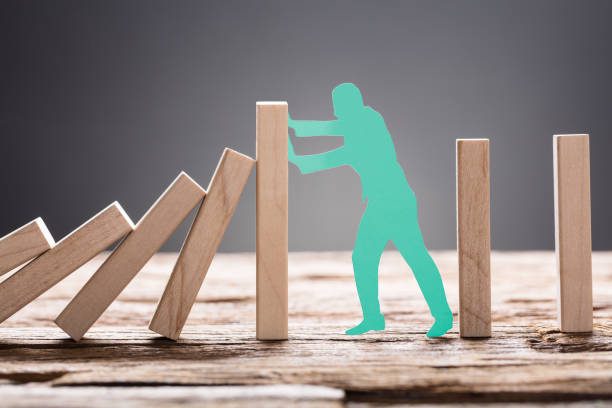
December 10, 2021 | Parshat Vayigash
Take a moment and think of the things in your life that bother you: the relationships that are complicated, the circumstances that are holding you back, the embarrassing character flaws, and your financial/emotional/health stresses. Now take another moment to think about who is to blame for them. I’m sure it's not hard to identify someone.
The problem is, that even when this finger-pointing is justified, it is counterproductive. Blaming others is a subconscious attempt to alleviate yourself from the burdens of your problems, but it actually ends up making them worse. By having a victim mindset, you render yourself powerless to change anything. Instead of shirking from the problem, you cement its place in your life.
The first step to creating positive change is taking ownership of your problems and weaknesses. Because even if someone else really is to blame, you're the one suffering.
The Biblical figure Joseph exemplified this character. He had every reason to feel like a victim. His brothers sold him into slavery - after coming close to murdering him. Because of them, he spent more than a decade as a slave and prisoner in a foreign country, alienated from his family and friends.
But somehow he thrived as both a slave and prisoner, receiving promotions and praise and eventually earning the highest office in the nation after Pharoah. He is the only person in Torah to be described as successful. He managed all that because instead of being a victim he recognized what had happened to him was by divine design. Instead of blaming others, he took ownership over his life's direction.
Nowhere is this more profoundly expressed than when Joseph revealed himself to his brothers after more than 20 years of estrangement. Instead of lashing out at them, he calmed them and said: "But now do not be sad, and let it not trouble you that you sold me here, for it was to preserve life that God sent me before you... And now, you did not send me here, but G-d, and He made me a father to Pharaoh, a lord over all his household, and a ruler over the entire land of Egypt."
He explained that the only reason he got this far in life is that he didn't bear a grudge against them. His success was credit to his ability to take control of his life and not shift the blame and responsibility. His acknowledgment that "you did not send me here, but G-d" is what led him to be "a father to Pharaoh, a lord over his household, and a ruler over the entire land of Egypt."
Now go back and think about those uncomfortable parts of your life. But instead of thinking about who to blame, accept them as G-d-sent and think of ways to change them yourself. Just like Joseph, you'll be happier and far more successful.
Shabbat Shalom!
Rabbi Menashe Wolf
The Carroll Park Shamash Thief
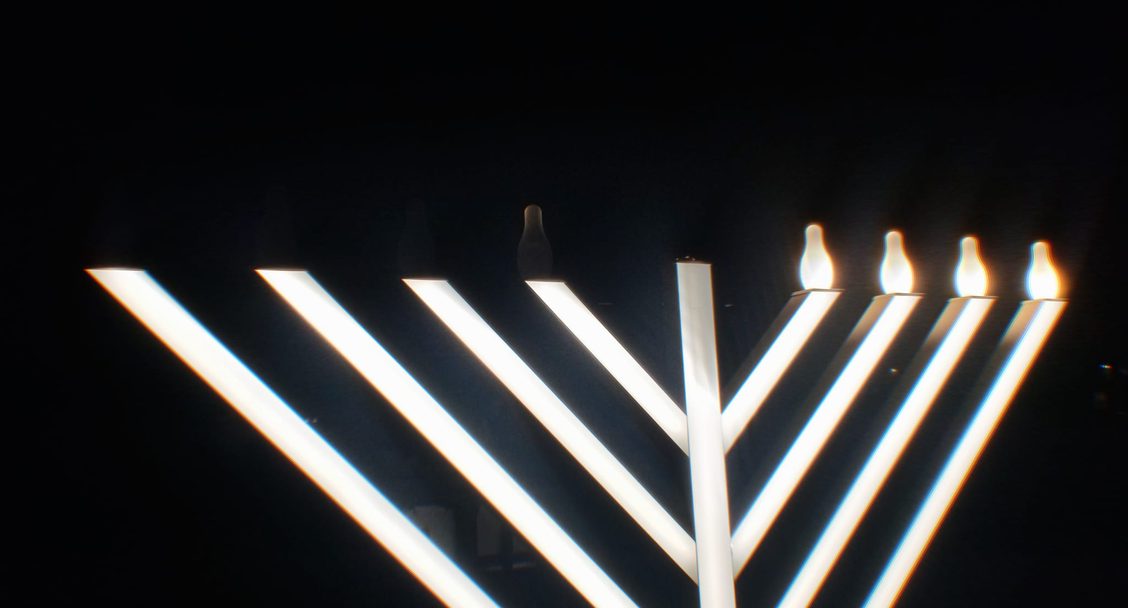
December 3, 2021 | Parshat Miketz and Chanukah
I am still on a high from Chanukah at Carroll Park. We were overwhelmed and inspired by the incredible show of community on Wednesday night. Close to 200 people packed into Carroll Park to celebrate Chanukah and light up the neighborhood with the lighting of the beautiful LED menorah.
At the Menorah lighting, I mentioned that someone had taken one of the Menorahs candles and spoke about the lesson we can learn from that about power of the light to overcome darkness and how each of us can be a that force of light in the world. Here is a letter I penned to the “Shamash thief”:
To the person who stole the Shamash from our community Menorah,
Thank you. You inspired me.
While there's no excuse for the damage you did to the Menorah -and I hope you have a change of heart and return the stolen light - you taught me and the community a profound lesson.
You may not know this, but after learning of your heinous act this Wednesday, I complimented you later that night at our neighborhood Menorah lighting.
You see, when I found out about your brazen theft, I was hurt and annoyed. Why would someone deface such a beautiful symbol of light and unity? Who would stoop so low? But after thinking it over, it dawned on me that you were onto something and (perhaps unwittingly) personified a profound message of the Menorah lights.
Chanukah is celebrated in the winter when the nights are getting longer and the world is becoming colder and darker. The lights of the Menorah are lit in the evening, as the darkness of night descends. The Menorah is an acute symbol of the power of light to overcome the darkness. When things seem bleak, we light the Menorah in our windows to inject light and warmth into the world. The flickering flames spread their warm light around them and brighten their surroundings.
But the flames of the Menorah are not meant to remain as mere symbols of light - our goal is to actualize their message and spread their light to all areas of our lives. The Menorah teaches us that we can each be a shining light of faith and hope in our homes, workplaces and communities. We can all be a candle and brighten the world around us and the lives of those we encounter. And like the Shamash, our flames can ignite other people's flames so that they too can be ambassadors of light.
I don't know why you decided to take the Shamash from the Menorah and carry it away with you. But I hope we can all emulate you and take the Shamash flame from the Menorah and carry it with us wherever we go. I hope that we can all become walking Menorahs - spreading light and warmth to every place and person we come into contact with.
Please return the Shamash light to its place, but don't stop spreading it's light.
Happy Chanukah and Shabbat Shalom!
With wishes for a brighter world,
Rabbi Menashe Wolf
Sure as Sunrise: A Chanukah Reflection
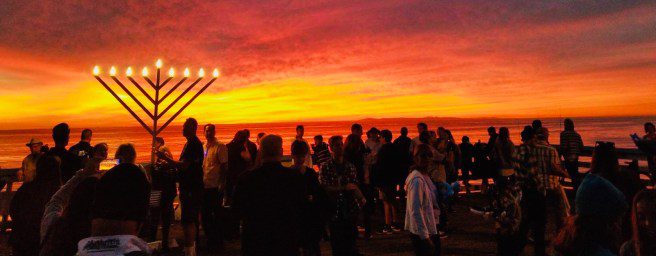
November 26, 2021 | Parshat Vayeshev
Watching a beautiful sunrise can take your breath away, and not only because of its visual aesthetics. As you notice the first rays of color over the horizon, you experience the birth of a new day, a reawakening of life. At that moment a basic truth of nature is reaffirmed - the darkness that invaded the night is only temporary.
But imagine the first human, Adam, experiencing nightfall for the first time. He had no history to rely on and no precedent to comfort him. The world suddenly darkened with no way of knowing if the light of the sun will return. Fear and dread must have filled his heart.
Yet instead of resigning himself to a dark world without the excitement of color or the clarity of sight, the Midrash tells how he took action: "When the sun sank at the termination of the Sabbath, darkness began to set in. Adam was terrified [thinking] “surely the darkness shall envelop me” (Psalms 89:11)… What did the Lord do for him? He made him find two flints, which he struck against each other. Light came forth and he said a blessing over it."
What drove Adam to even attempt hitting the stones against each other? Was it an accident or did Adam somehow intuit the potential of fire in the stones?
One possibility is that Adam knew that the world was meant to be light. Darkness was an aberration. If all around him the light seemed to fade, he knew that there had to be a way that he could create it himself. His absolute confidence in the necessity for light led him to try anything possible to create it.
This is one of the themes, too, of the Chanukah story. Perhaps even greater than the miracle of the oil lasting for 8 days and the miracle of finding the sole untainted jug of oil is the fact that the Jews even looked for the oil in the first place! They had just fought a tough war and finally regained access to the holy Temple only to find it desecrated, defiled, and in disarray. We would forgive them for feeling overwhelmed and being too tired to dream of finding an unbroken jug of oil in the mess. Yet on the forefront of the minds of the battle-weary Maccabees was how to rekindle the Menorah and shine the light of G-d in the world. They knew that the world needed light and were confident that there existed the means necessary to make that happen. They searched for a jug of oil with conviction and created a light that continues to shine over 2000 years later.
We all experience darkness and struggles, on both the personal level and societal. One lesson we can take from the Chanukah story is not to be fazed by the darkness and always remain aware that the light is within reach. At the core of each of us is a bright, untainted light of the soul. Written into the fabric of the world is an eternal flame of hope and goodness. The night may fall and envelop the world, but the sun will always rise in the morning. Our inner Temple may be scattered, but the fuel to brighten our worlds is always within reach. If we see darkness, it is a sign that we have to be the light to overpower it.
Like Adam's flintstones and the Maccabees' jug of oil, when we do everything we can to create light, our efforts are rewarded with success and our lives will radiate with joy and positivity.
Happy Chanukah and Shabbat Shalom!
Rabbi Menashe Wolf
Don’t Be Thankful

November 19, 2021 | Parshat Vayishlach
It is much easier to be thankful than to actually offer thanks. You don't have to sacrifice anything to be thankful; in fact, it is enriching. Feeling thankful makes you happier and has been proven to have health benefits.
But giving thanks to someone or something is a very different experience. To thank someone is to humble yourself before them and recognize what they have done for you. It is to sacrifice your pride and acknowledge the other.
Our society is very good at being thankful. It's fashionable to feel thankful and countless studies and articles have come out in recent years extolling its virtues. But this thankfulness can often be part of the ego rather than its detractor; it sometimes projects entitlement instead of negating it.
The Hebrew word for thanks is todah. Insightfully, it shares a root with the word for acknowledgment or submission, hodah. Judaism recognizes that to offer thanks is to humble yourself and acknowledge the other. That's why being thankful requires actually thanking someone. When you express the thanks, you recognize that credit must be given to someone outside of yourself for your success.
In this week's Torah portion, we read how each time Jacob experienced G-d’s assistance, he showed his recognition by building an altar and offering a sacrifice. In the Temple, too, there was a Thanksgiving offering that a person would bring to show their gratitude to G-d. In Jewish ritual, it isn't enough to feel thankful to G-d, you have to express your thanks through sacrifice.
In Jewish tradition, every morning begins with a thanksgiving ritual. Upon waking up, we wash our hands and say:
“Modeh ani lefanecha melech chai vekayam, she-he-chezarta bi nishmati b’chemla, raba emunatecha - I offer thanks to You, living and eternal King, for You have mercifully restored my soul within me; Your faithfulness is great.”
We thank G-d for another day of life. We admit our own frailty and surrender ourselves to the source of life.
So here's a Thanksgiving resolution (is that a thing?) that I suggest: Don't just be thankful for what you have - think about who you are thankful to and why you owe them thanks.
Reflect on your limits and feel grateful and humbled that G-d/your parents/friends/teachers have provided you with so much. Then, don't suffice with feeling thankful - tell them thank you.
And consider starting your day with the Modeh Ani meditation. It will frame your waking hours with a powerful sense of gratitude and humility.
Shabbat Shalom,
Rabbi Menashe Wolf
The Counterintuitive Path to Success

November 12, 2021 | Parshat Vayetzeh
On Veteran's day this week, I read a quote that the Marines say: "Everybody wants to go to heaven, but nobody wants to die."
There's profound wisdom here, even beyond the battlefield. We all want to be successful, but we don't necessarily want to do what it takes to get there. And that's because, quite simply, what it takes to get there is uncomfortable.
This week's portion opens with Jacob on the run. His brother Esav wants to kill him and, already in his sixties, Jacob is forced to leave his family and everything he is comfortable with and head into the unknown to start life anew, traveling to his conniving uncle Laban's home where he ends up living for 20 difficult years.
While on this precarious journey, Jacob has a dream. In his dream, he sees a ladder that is rooted on the ground and extends to the heavens. There are many layers of interpretation to this mysterious prophetic dream, but here is one of them.
It is while at Laban's home in Haran, when well into his 70s and 80s, Jacob gets married, builds a beautiful family (the only one of the patriarchs that had all of their children follow in their spiritual and moral path), amasses wealth, and develops spiritually.
Ironically, Jacob's success came when he was least set up for it. Until then, he was pampered; he lived comfortably with his family in the Holy Land of Israel; he spent his time in study and meditation; he never encountered a world that was different or hostile to him. Then he was forced to leave all that behind and travel to Haran, a city named for its moral corruption (the Hebrew word connotes G-d's anger with the city residents), where he was subjected to hard labor and had to live under a roof with a crook. Yet it is there that he flourishes, and not by coincidence.
This was the symbolism of Jacob's ladder. When we are in a compromised position, we have the capacity to reinvent ourselves and uncover strengths that we didn't know existed. When our ladder of growth starts from the lowest point (earth), it can extend to the heavens. Jacob had to leave home to become the person he was. The uncomfortable environment forced him to confront himself and dig deep to find strength and grit to overcome the hardships to reach the greatest heights.
To be successful in any area of life, you have to move out of your home - the space of your life that you are most comfortable with - and stretch yourself beyond your comfort zone. Initiate hard conversations. Navigate complicated relationships. Challenge yourself to try new things. Make the uncomfortable calls you have been pushing off. Put yourself out there.
The same is true in spiritual growth. If you want to grow and develop, you have to make an effort beyond what you are comfortable with. Give a little more charity than you think is reasonable. Don't be afraid to follow your convictions even if others will label you or laugh. Do an extra Mitzvah. If you push yourself that extra mile, you will discover an inner recess of strength and depth that you didn't know you had.
The Marines were definitely onto something, but I think the quote needs a small edit. To reach your heaven, you don't need to die - you need to fully live.
Shabbat Shalom,
Rabbi Menashe Wolf
Fighting Hate with Hope

November 5, 2021 | Parshat Toldot
Is there a Jewish response to antisemtism?
We're starting a new course next week, Outsmarting Antisemitism, and I've been getting a lot of questions about it: How can we outsmart people that hate us? What is there to learn about antisemitism that would necessitate 4 lessons?
The truth is that the course is not about antisemites. It's about us. The thinking is that if the problem is antisemitism, than the resolution might just be a stronger semitism.
This week's Torah portion tells the famous episode of Jacob 'stealing' Isaac's blessings from his older brother Esav. Isaac was blind and Jacob capitalized on that by covering his arms with animal skins to give off the impression of his hairy brother. Isaac thought he recognized Jacob's voice, but when he felt the hairy arms he was convinced that it was Esav, the firstborn. He gave him the blessing, but voiced his suspicion: "The voice is the voice of Jacob, and the hands are the hands of Esav."
Commentaries explain that this statement alludes to the brothers' respective paths in life. Esav was a hunter and a seeker of power. He asserted influence with his hands, using strength to get his way. Jacob was a scholar, described as tam, translated as simple, sincere or wholesome. He asserted influence with his mouth, educating and inspiring people with his teachings. This is the deeper meaning of Isaac's words: the voice belongs to Jacob and the hands to Esav.
The Talmud says: "If there is a sword, there is no book; and if there is a book, there is no sword." Torah was given to heal the world. Its profound and timeless lessons are the backbone of modern civil society. When we study, practice, and spread the moral and spiritual values of Torah, the divine wisdom influences positive change in the world. It promotes the inherent value of each human being, creates a kinder and more civilized society, and gives people meaning that leaves them content and not searching for the attention that violence gives.
As Jews, we have not had much access to power and instead have a tradition of influencing society through our moral and spiritual teachings, the voice of Jacob.
We owe it to the world to use and share our voice, and scream it from the rooftops. On top of all other practical measures we take, we can respond to those that insist on hate by increasing our own knowledge of Jewish wisdom and sharing it with others - spreading a message of love and tolerance.
I invite you to join the fascinating new course to explore this theme of fighting hate with hope through illuminating source texts and fascinating case studies. You will leave enriched with unabashed optimism and a Jewish identity that is rooted in positivity, purpose, and pride.
Shabbat Shalom,
Rabbi Menashe Wolf
Kindness: The Jewish Gene

October 29, 2021 | Parshat Chayei Sarah
I am always very reluctant to cancel a class or study session. Occasionally something comes up that is important enough to outweigh the study opportunity. This past Wednesday was one of those occasions, and I had to postpone the weekly Parsha Power discussion to next week.
A young child of a family that we are friends with has been battling Leukemia for the past 7 months received the good news that the treatments had been successful and their 4-year-old was going to be discharged from the hospital. After practically living in the pediatric ward for over half a year, they'd be coming home.
To celebrate the wonderful development, friends and neighbors planned a surprise drive-by celebration to welcome them home. It was so heartwarming to join the tens of cars, with balloons, signs, and streamers hanging out of the windows, driving past the family’s home in a procession. They were stunned and overwhelmed by the outpouring of love from their community.
After getting over the initial shock, the father of the young boy shared a few words. "We could not have done this - our little boy could not have done this - without all of you," he began. "I only have one sibling, but since this whole drama began earlier this year, I have gained tens of brothers and sisters." The power of community had got them through this ordeal and strengthened them.
I was moved by his words, and it struck me that this was the hallmark of the Jewish people, and of Judaism itself.
In this week's Torah portion, we read about Abraham's servant Eliezer searching for a wife for Isaac. He devised a plan to find the perfect young woman: he would ask her for water and see how willing she was to help him. Abraham's hallmark was kindness, and whoever was going to marry into the family and continue the tradition of the Jewish faith, needed to exhibit that trait too. No sooner than he hatched the plan, he saw Rivkah (Rebecca) approaching and asked her for water. She responded by not only getting him water from the well but also offering water for his camels.
When he saw this degree of care and empathy for a stranger, Eliezer knew that she was the one. She was worthy of being the future Matriarch of the future Jewish people. This is the central Jewish trait - to care for others and help them whenever possible.
This is what has sustained the Jewish community throughout the thousands of years of our people's history, and is what continues to be the lifeblood of our people today. Kindness is in our genes, so let’s make an extra effort to think about who can use a little help and support and be there for them.
Shabbat Shalom,
Rabbi Menashe Wolf
Can You Perform a Miracle?

October 22, 2021 | Parshat Vayeirah
Have you ever dreamed of being a superhero? Do you wish you could do something miraculous? Well, I’ve got some news for you - you can!
Before you get too excited, let me explain what I mean by miracle.
A miracle is when something out of the ordinary happens, and a force that is beyond what we are familiar with breaks to the surface and suspends the natural order. Nature is set and we are convinced that it holds the ultimate power. But occasionally something happens that upends all the rules, and we are shown the hand of G-d that is stronger than the laws of nature.
Just like the world has its natural order, we each have our fixed nature. We have our strengths and weaknesses and when life is smooth sailing, there are the routines we fall back on and the limits we acknowledge about ourselves. How can we stretch ourselves beyond those limits miraculously?
The Hebrew word for miracle is nes, which is oddly etymologically related to the Hebrew word for challenge, nisayon.
In the Torah portion, we read that in choosing Abraham to be the father of the Jewish nation, G-d threw challenges at Abraham time and again to test him. These challenges were designed to help Abraham develop his inner spirit and strength and rise to his utmost potential.
The challenges forced Abraham to suspend his natural tendencies and allow his superhuman core to break to the surface - to perform a miracle. And once he found it, the inner strength that he discovered stayed with him, and his life was changed forever.
Sometimes, life throws us a curveball. We hit a brick wall or face a challenge that seems insurmountable. Perhaps a tragedy that threatens to break our spirit or a struggle that we don’t know if we can overcome.
Our natural response is to become a victim to these circumstances and cower away from them, complaining “why me?” or “life isn’t fair!” But we can choose instead to perform a miracle and find the inner strength that we didn’t even know we had.
I recently read a quote from Australian rugby player, Robert Tew: “The struggle that you're in today is developing the strengths you need for tomorrow.” Every challenge brings an opportunity for us to dig deep within the superpowers of our soul, and allow them to shine through the surface of our lives to overrule our usual, natural response.
We can all be superman, and turn our nisayon (challenge) into a nes (miracle or super-human feat).
Shabbat Shalom,
Rabbi Menashe Wolf
The Original Non-Conformist
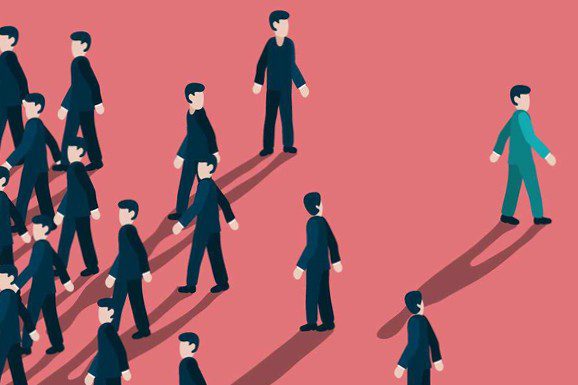
October 15, 2021 | Parshat Lech Lecha
“What does being Jewish mean?” This was the question that I posed to the children sitting around the table in the first cohort of Hebrew to You, our new Hebrew School model that brings tailored lessons to the homes of the students.
At first, they were too shy to offer their opinions, so I followed up with another question: “Who was the first Jew?”
Judaism doesn’t believe in history (there’s actually no word for it in Hebrew), because the stories we learn are not about the past - they shape our present. Knowing who the first Jew was would be a guide to what being Jewish means to us today.
One student suggested Moses - he took the Jews out of Egypt and taught Judaism for the first time. Another thought Adam - he was created by G-d and interacted with Him. Finally, someone said Abraham - he discovered monotheism and is the first of the patriarchs. Each of these responses had merit and provided an opportunity to explore what being Jewish is (or isn't). Is having a relationship with G-d reserved for Jews? Is practicing Judaism a prerequisite to being Jewish? (The answer is no to both.)
In the end, we settled on Abraham as the first Jew. He was chosen by G-d and told that his descendants would be His nation - the Jewish people. But what made Abraham unique? How did he earn the title Jew? And what does that say about being a Jew today?
We learned about Abraham’s discovery of Monotheism and steadfast faith in G-d. We discussed his kindness and hospitality; he had an open tent policy and would host everyone who passed by. And we talked about his advocacy for the people of Sodom. These are all central features of Abraham’s legacy and hallmarks of Jewish life.
But the term Torah chooses to describe Abraham doesn't reflect any of those qualities. In this week’s Torah reading Abraham is labeled Ha’Ivri (the Hebrew) which translates as someone from the other side. The term communicates more than a geographic place - the Midrash explains that “the whole world stood on one side and Abraham stood on the other.” Abraham was a non-conformist. He stood up for what he knew to be right, even when the whole world was against him. He literally risked his life to promote his faith and values in a society that shunned them. He even stood up to G-d when he thought that He was committing an injustice.
To be a Jew means to stand firm in our timeless Divine heritage of morals, values, and practices, and do what we know to be right even if the whole world thinks or acts differently. To be a Jew means to follow your inner calling, even if it isn’t popular. To be a Jew means to stand tall and proud of your Jewishness and not cower to the hate of antisemitism. To be a Jew is to be an Abraham Ha’Ivri.
In the end, Abraham’s vision withstood the test of time, and today, thousands of years later, he is the inspiration for billions of people. When you have the unabashed conviction to stand strong in your beliefs, eventually people come around and respect you for it.
Shabbat Shalom,
Rabbi Menashe Wolf
Surfing Life’s Crashing Waves
October 8, 2021 | Parshat Bamidbar
The Flood of Noah was a long time ago, but its waves are still crashing down on us.
Waves are incredible forces of nature and have the power to knock you over, leaving you gasping for air under the turbulent seas. But the brute energy of the water can be harnessed to help you - ask any avid surfer and they'll tell you the thrill of catching a wave. It all depends on whether you have the tools and skills to rise above the wave instead of going under.
The turbulent waters of Noah's flood are also a metaphor for the overwhelming waves of life that threaten to drown us. From our work responsibilities to family commitments and personal challenges - we are swept by conflicting currents in directions beyond our control. The waves can pull us in directions that we don't want to go, or worse yet, totally overwhelm us and leave us gasping for breath.
How do we rise about the tide and have the buoyancy to charter our course in life? What is the trick to enjoying life instead of being overwhelmed by it? You can't stop the waves but you can learn to surf. That's where Noah's Ark comes in. The Hebrew word for Ark, Teivah, also means word. The Baal Shem Tov played on this and taught that words can be our lifeboats. Investing our energy in the words of prayer and Torah study helps anchor ourselves in meaningful truths and rise above the flowing waters.
Torah and Tefillah give us a deep sense of mission and purpose and a healthy understanding of who we are. Armed with the right perspective and connected to something larger than ourselves, we appreciate the waves for where they can take us. Family commitments become precious moments. Work responsibilities become opportunities. Personal challenges become areas of growth.
When we are enveloped in the sanctuary of the words of Torah and Tefillah - our personal Ark - we are propelled above the choking waters of life's pressures and are able to feel the thrill of riding life's waves and experience every part of life as a joyous ride.
Shabbat Shalom,
Rabbi Menashe Wolf
